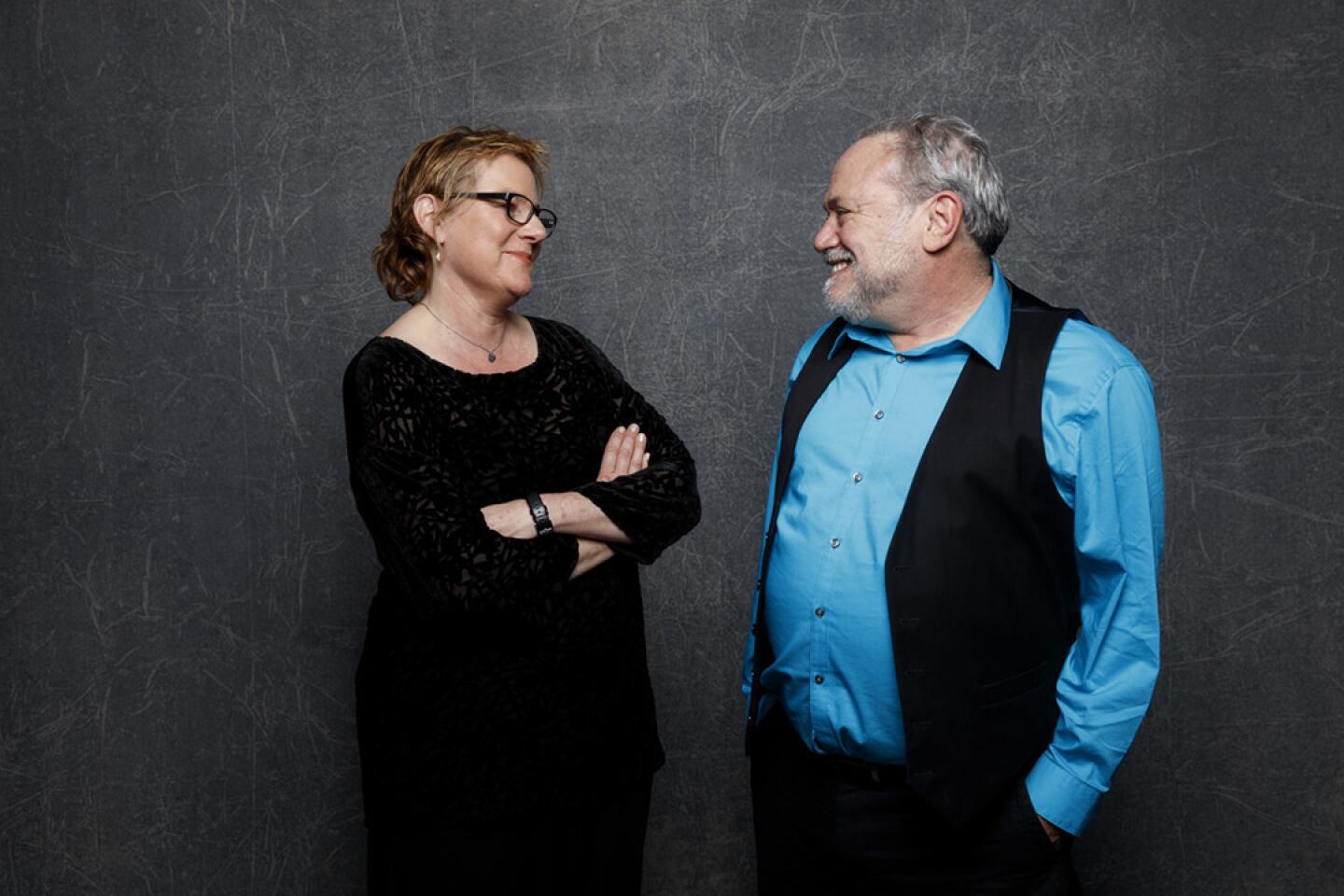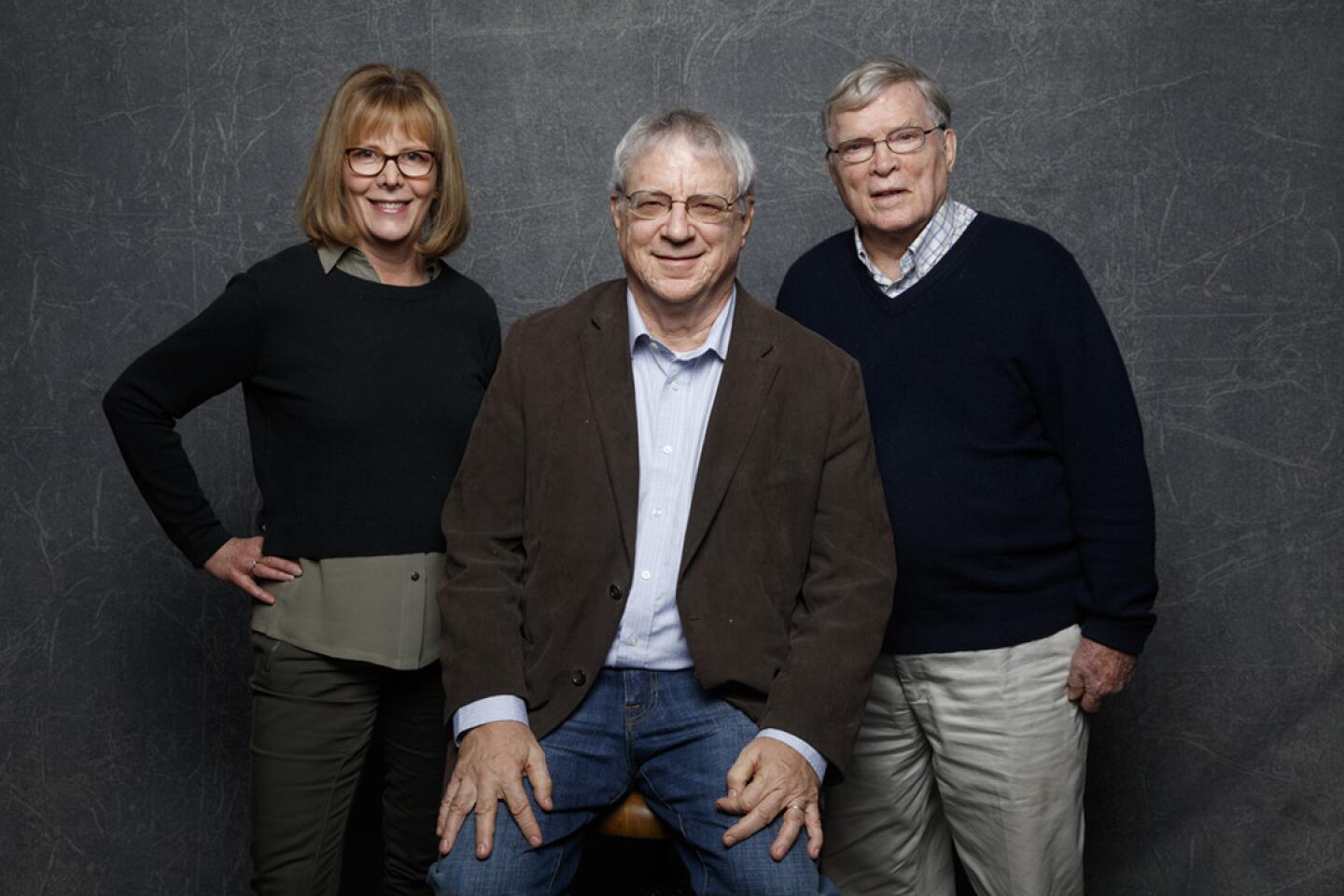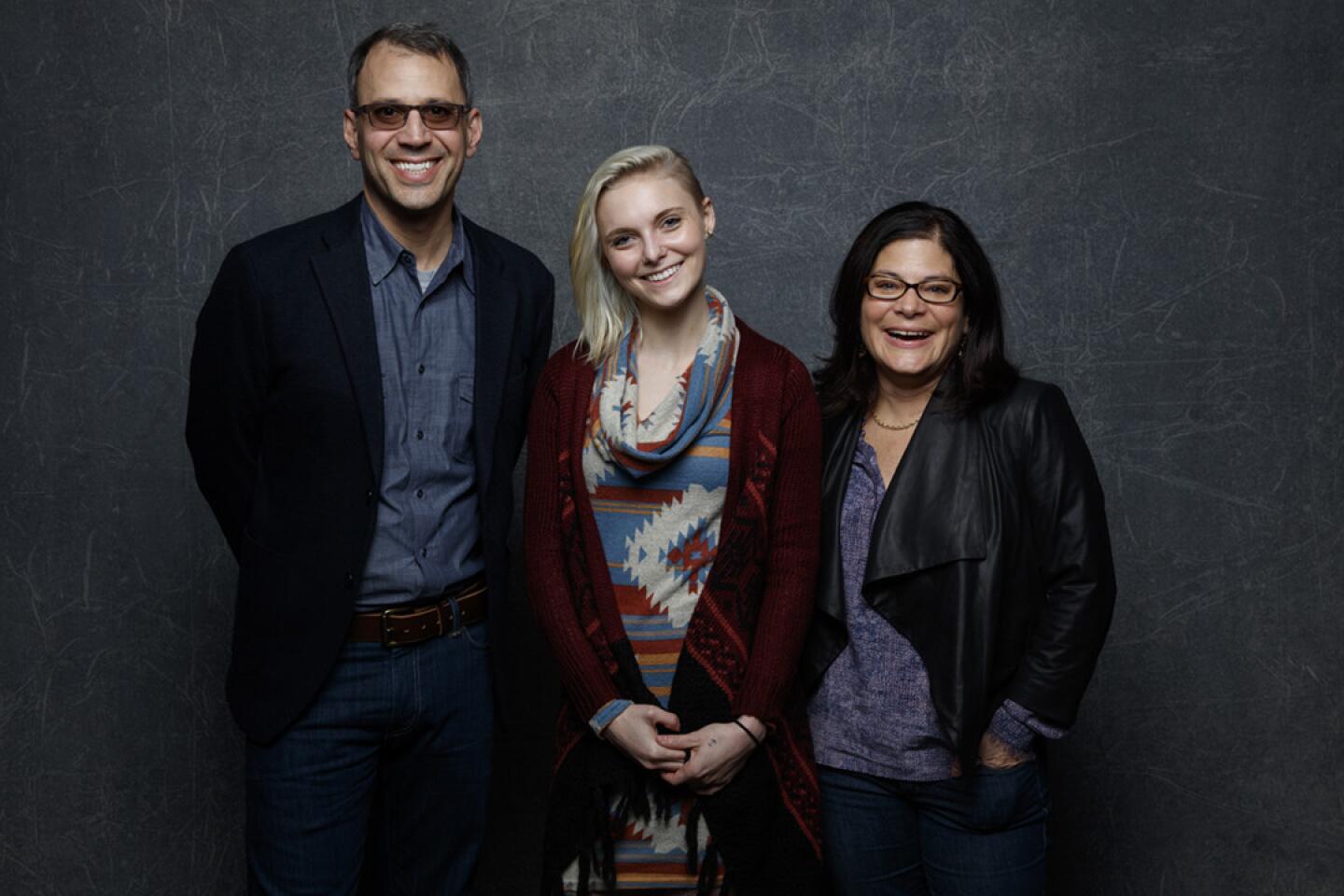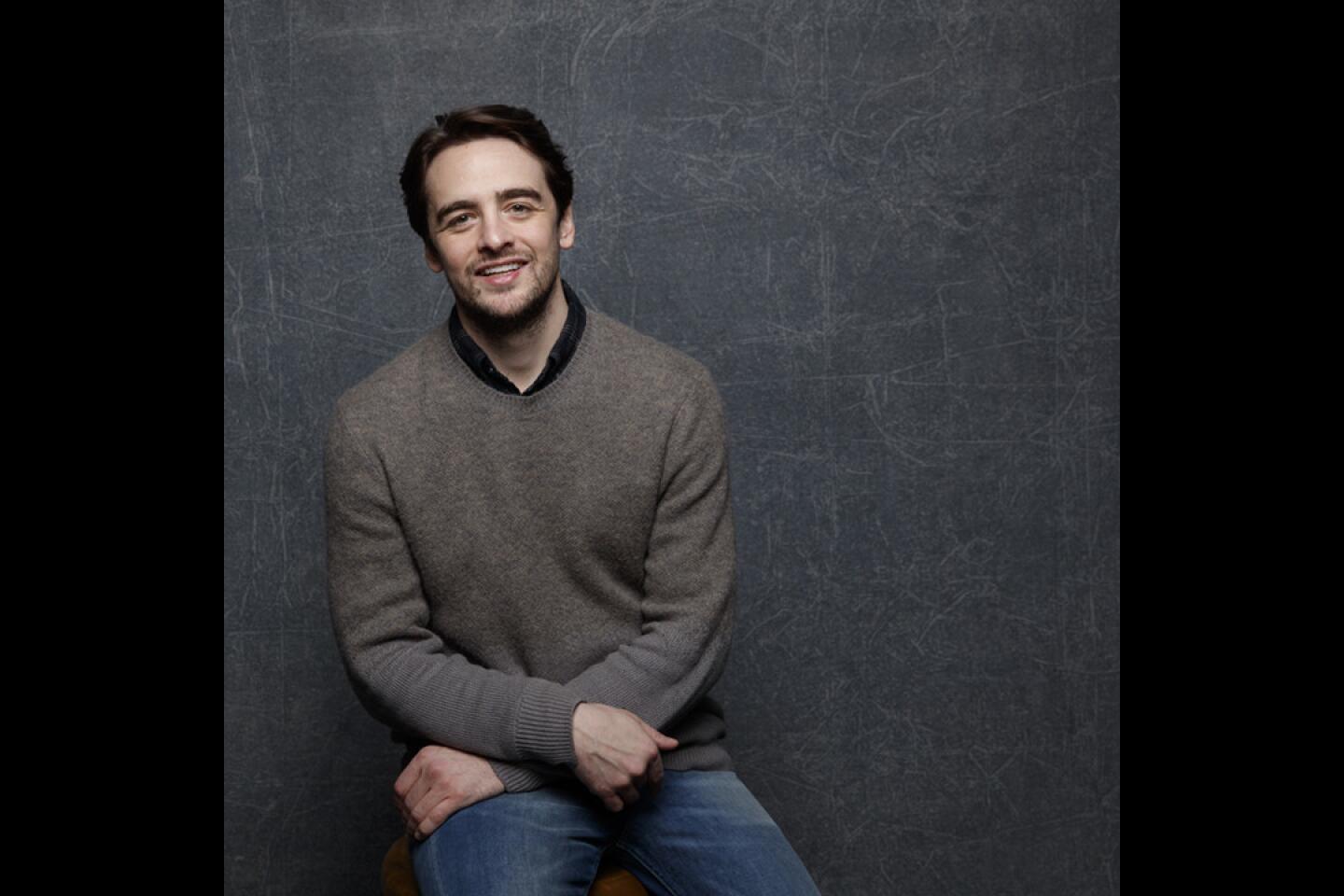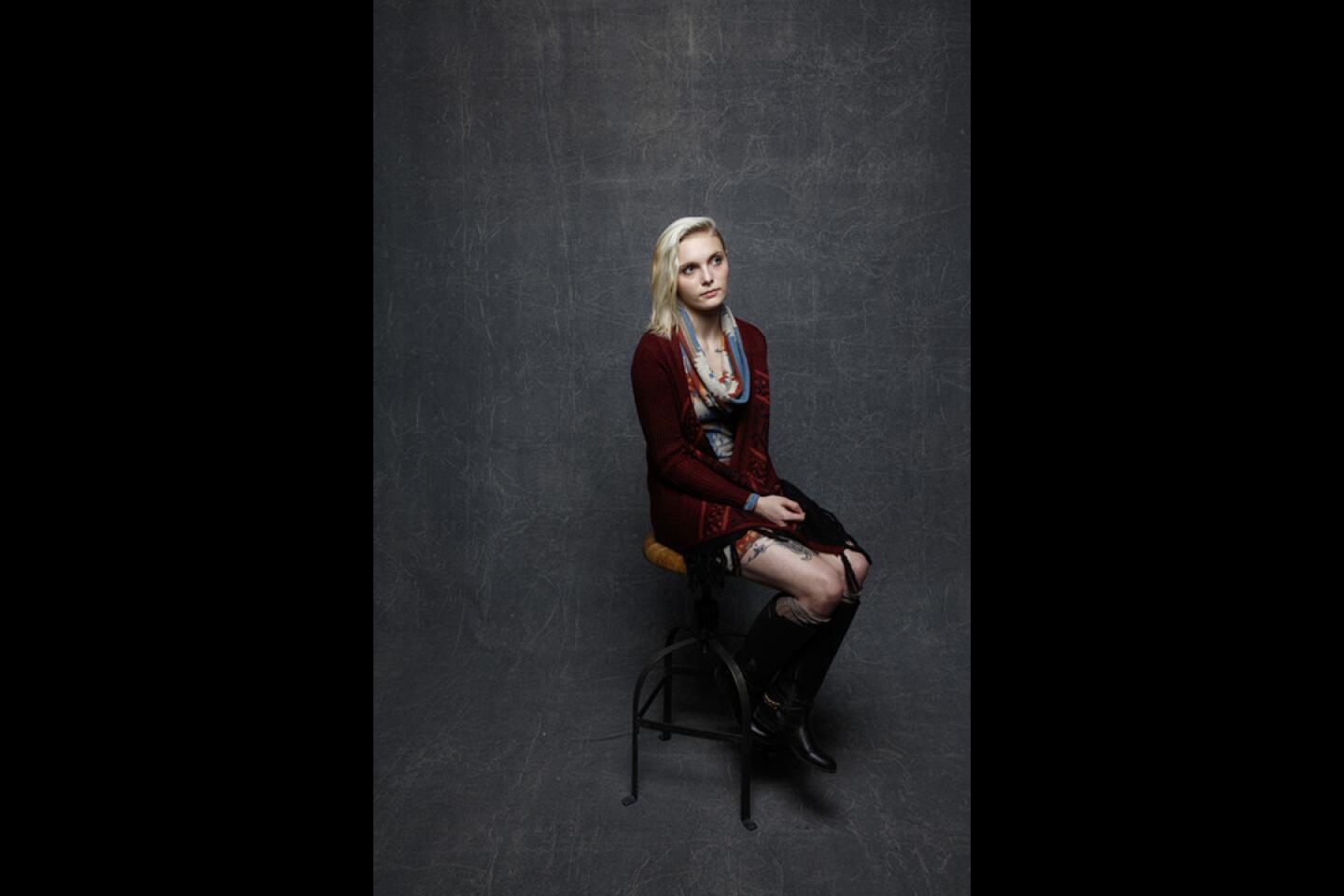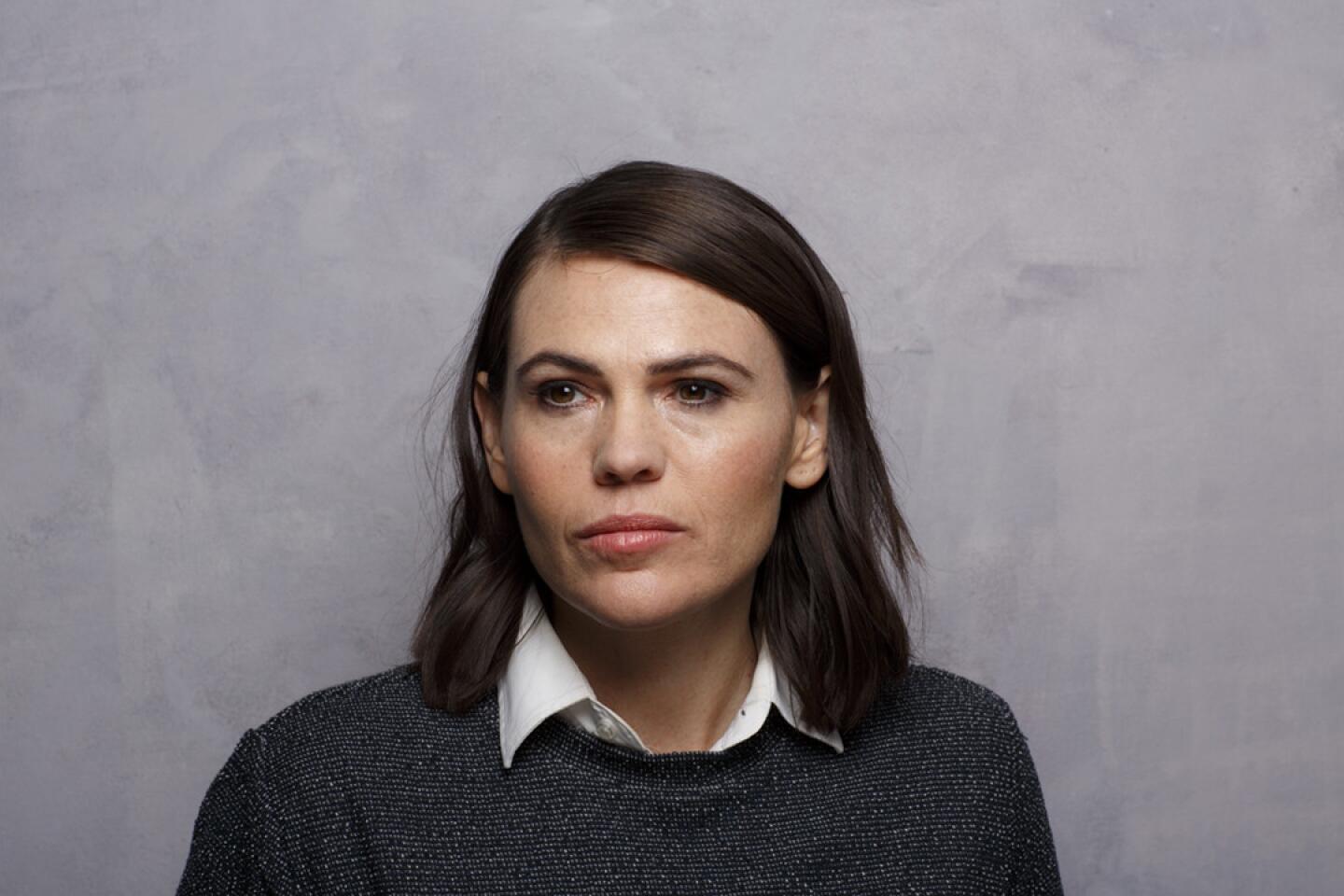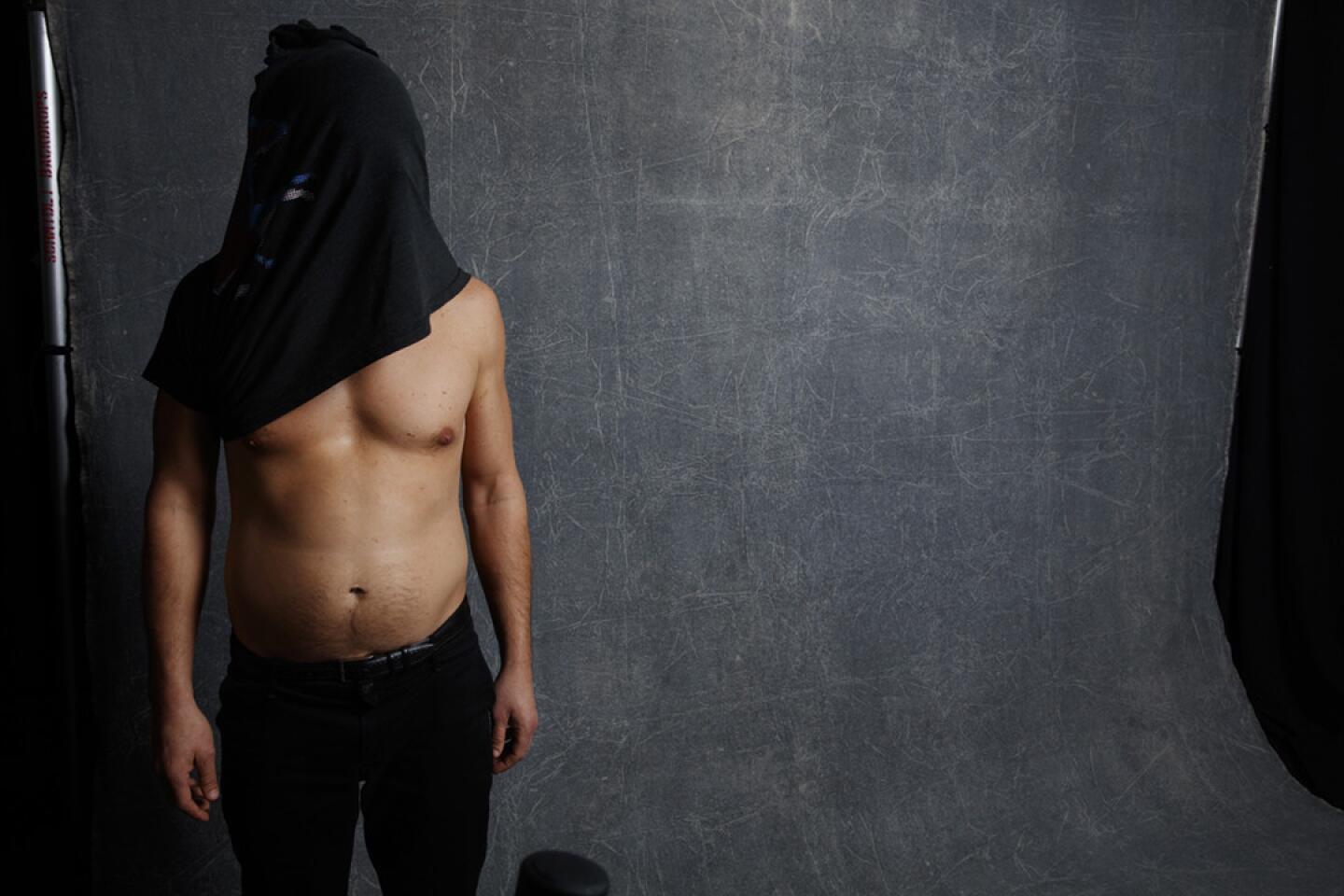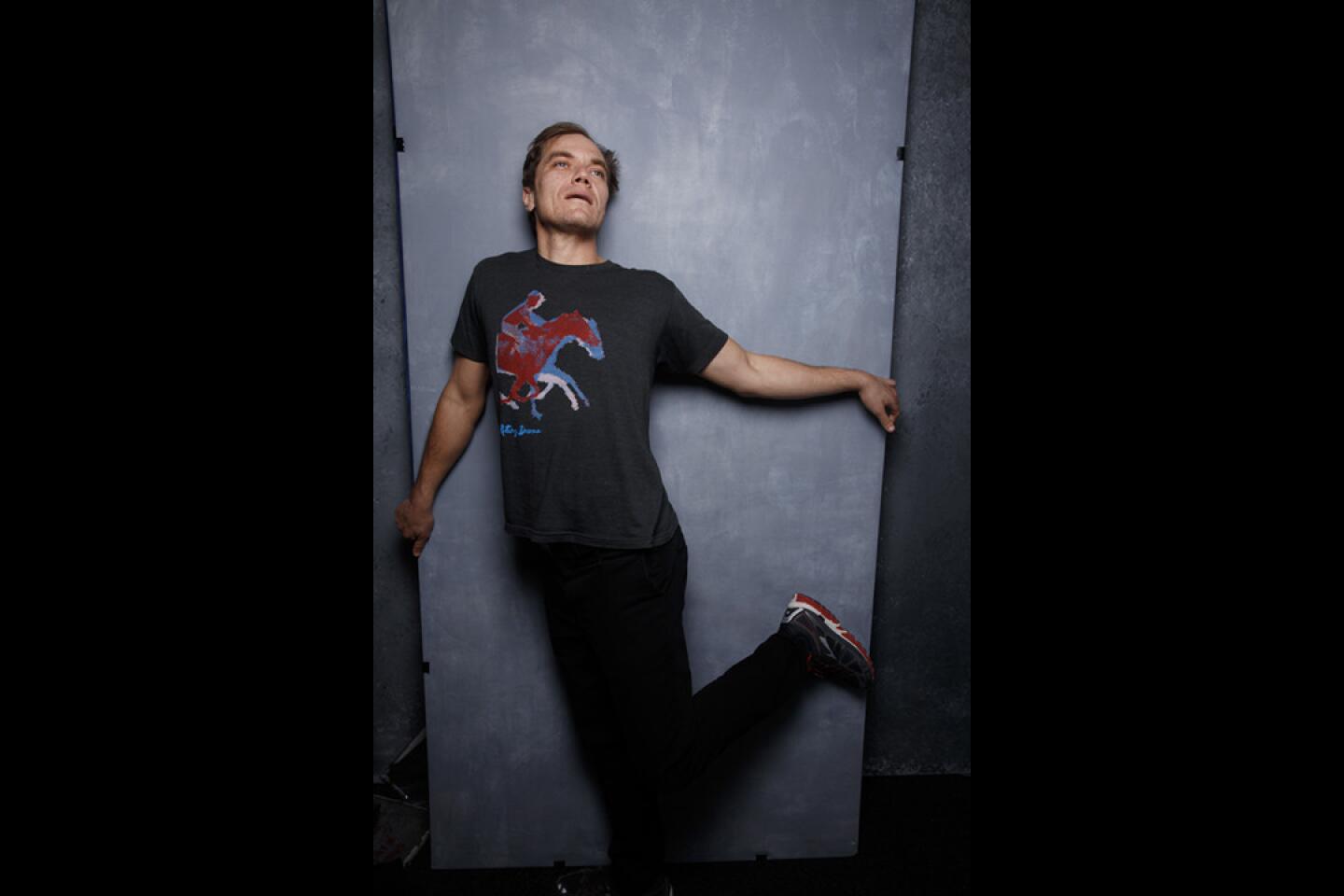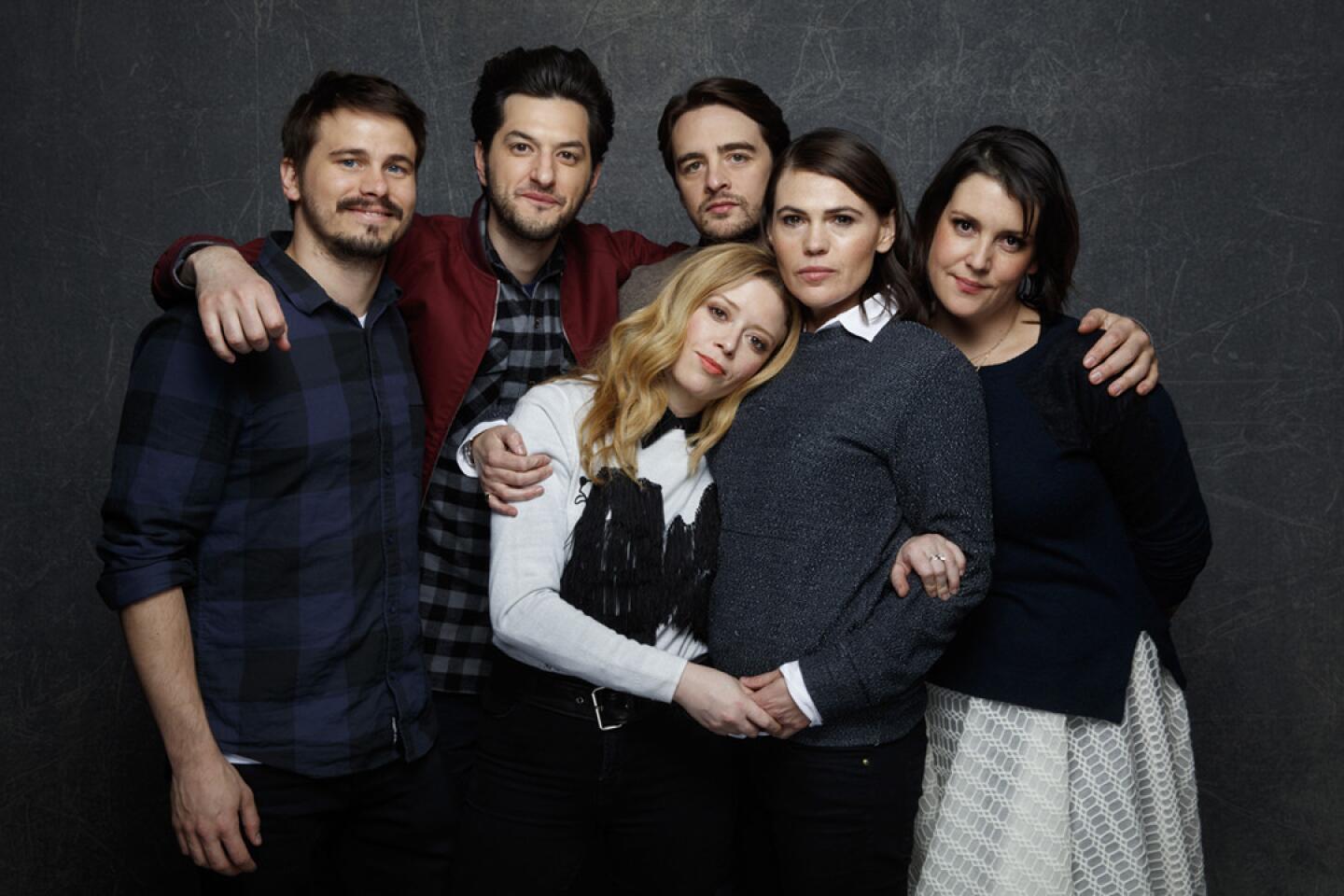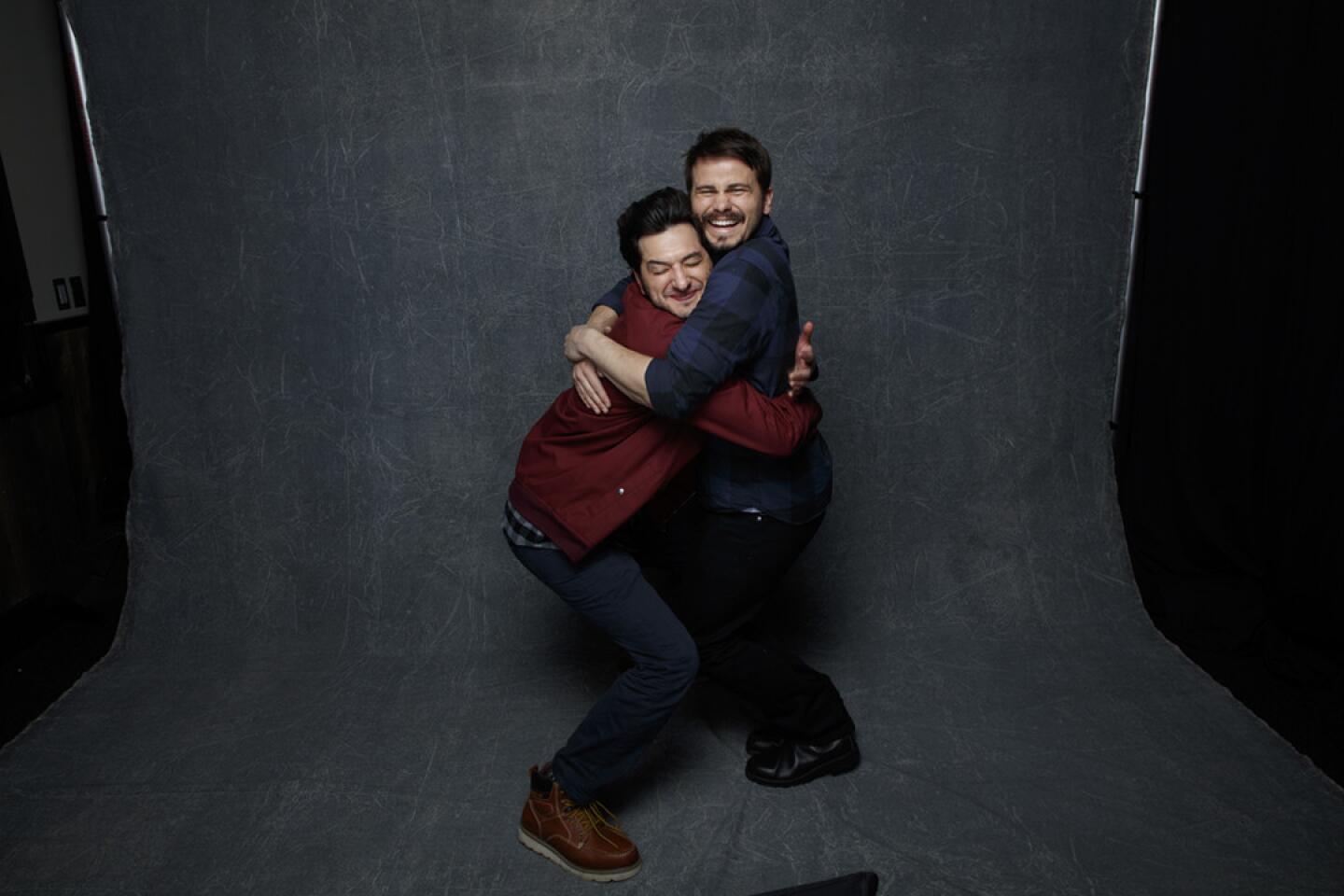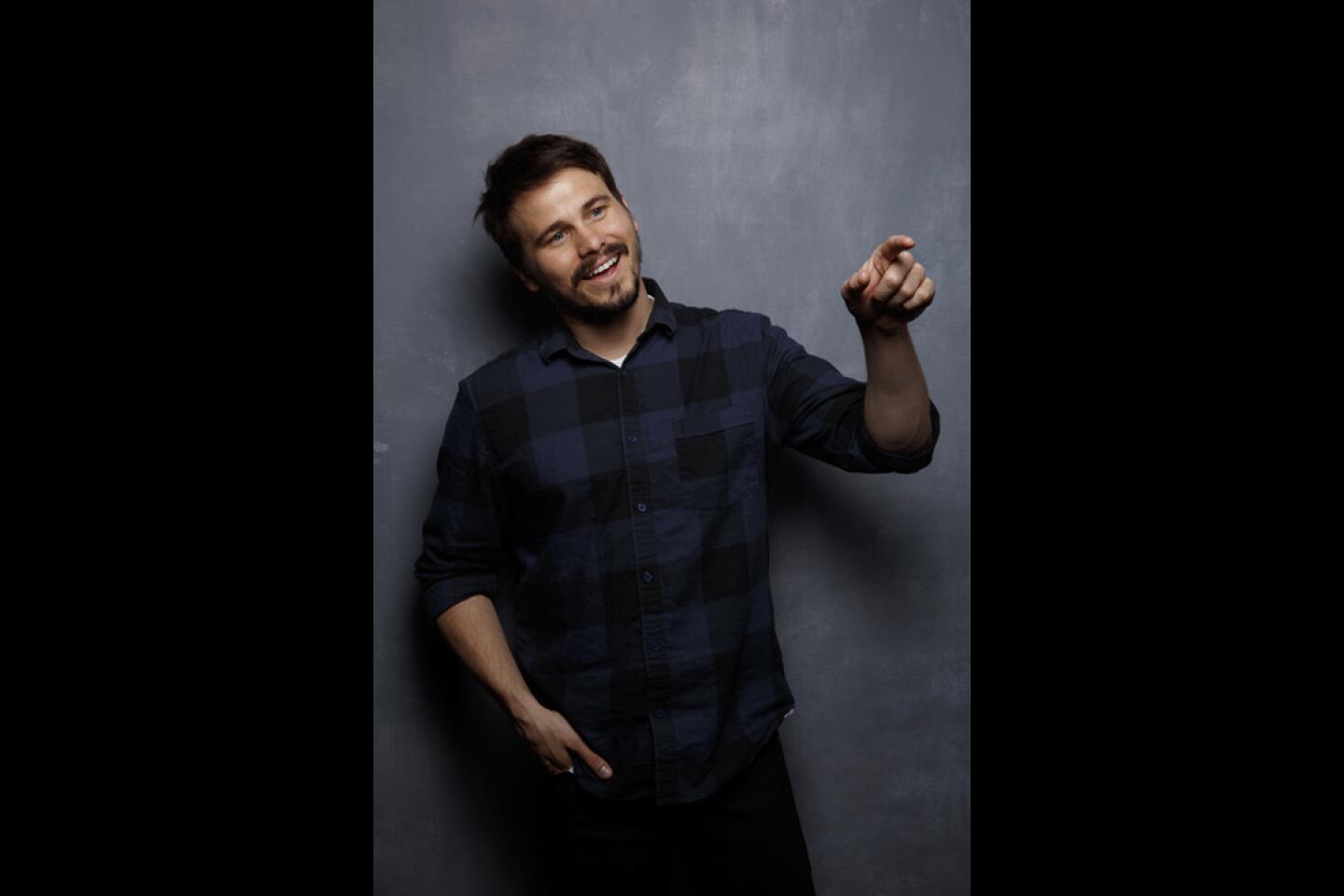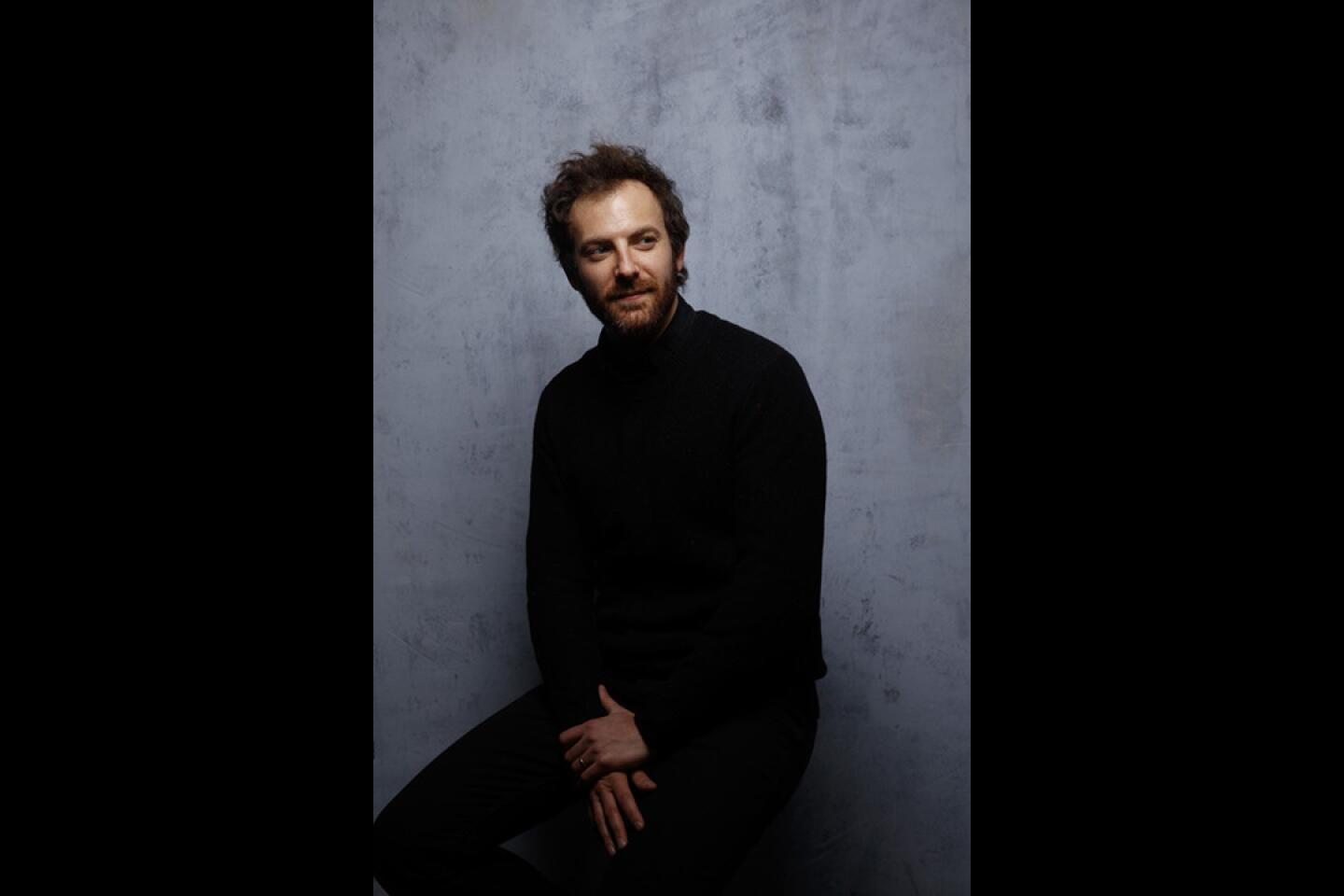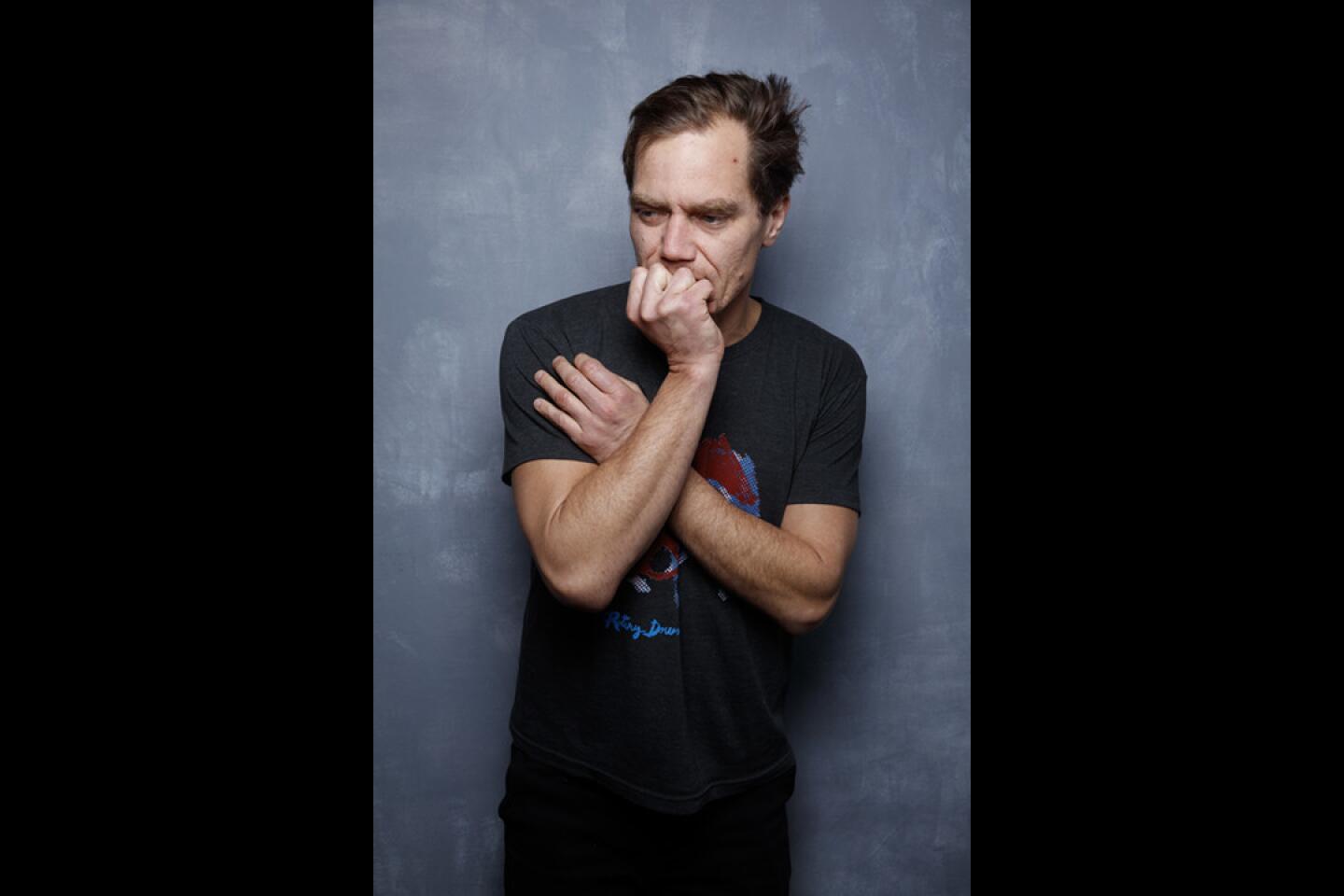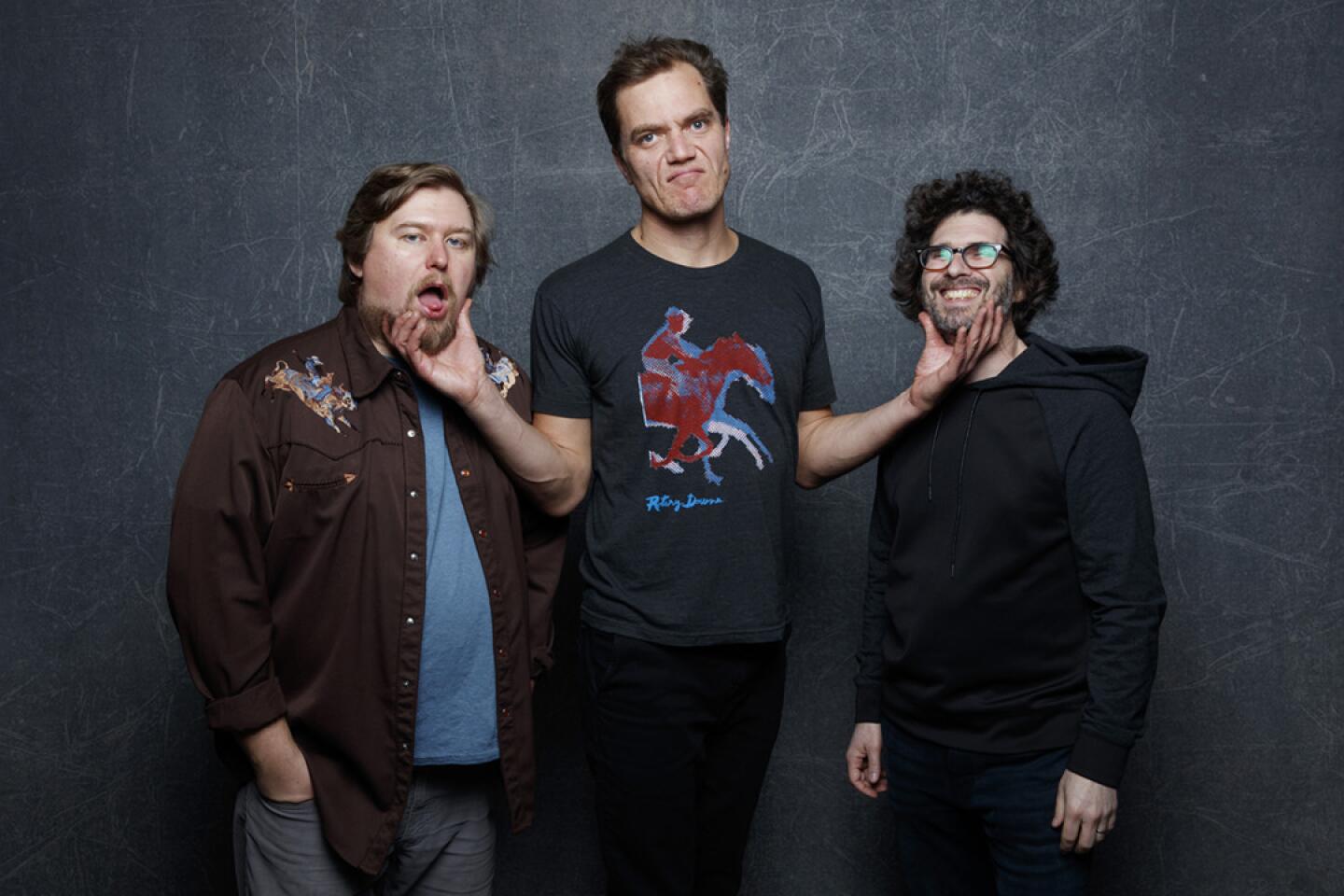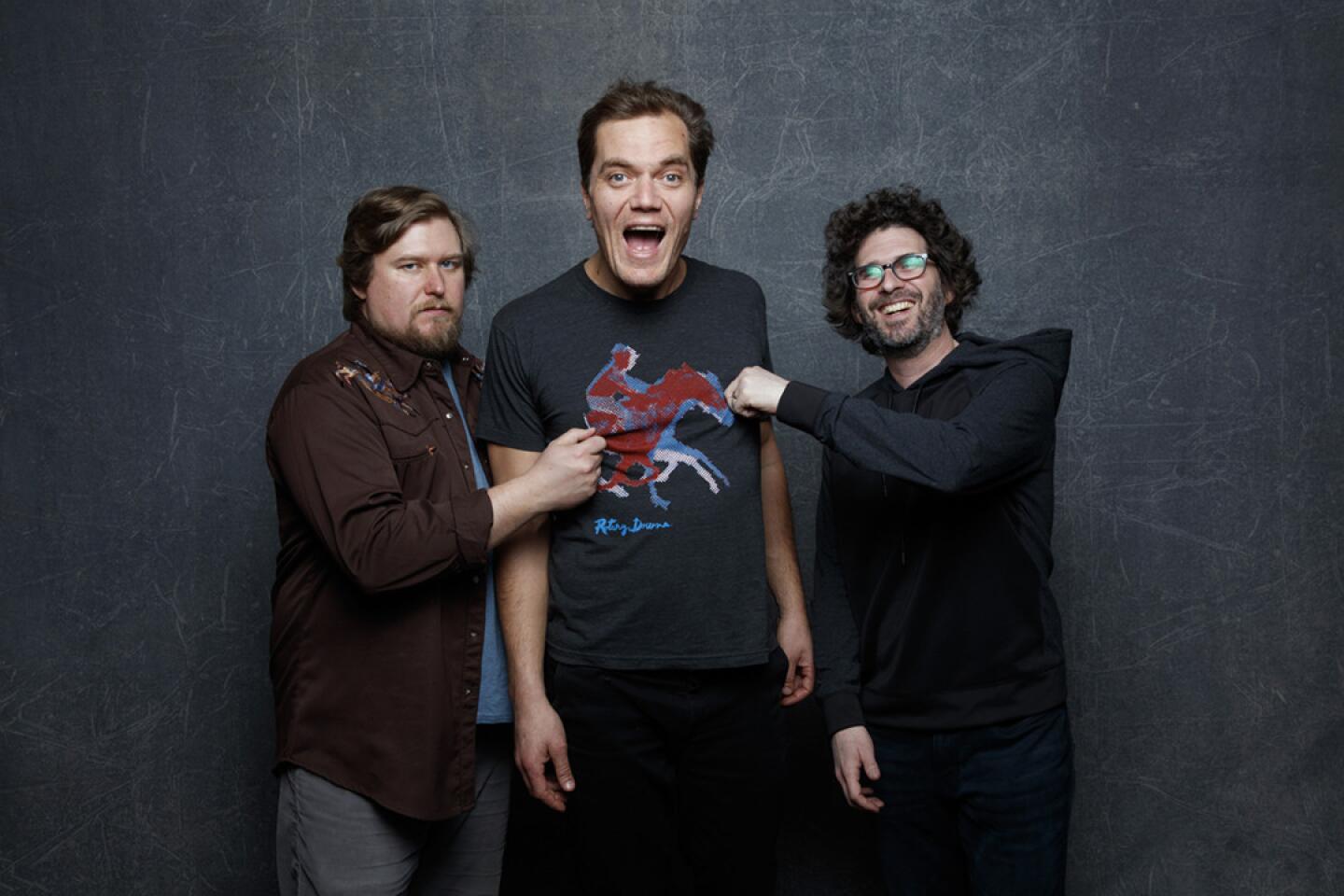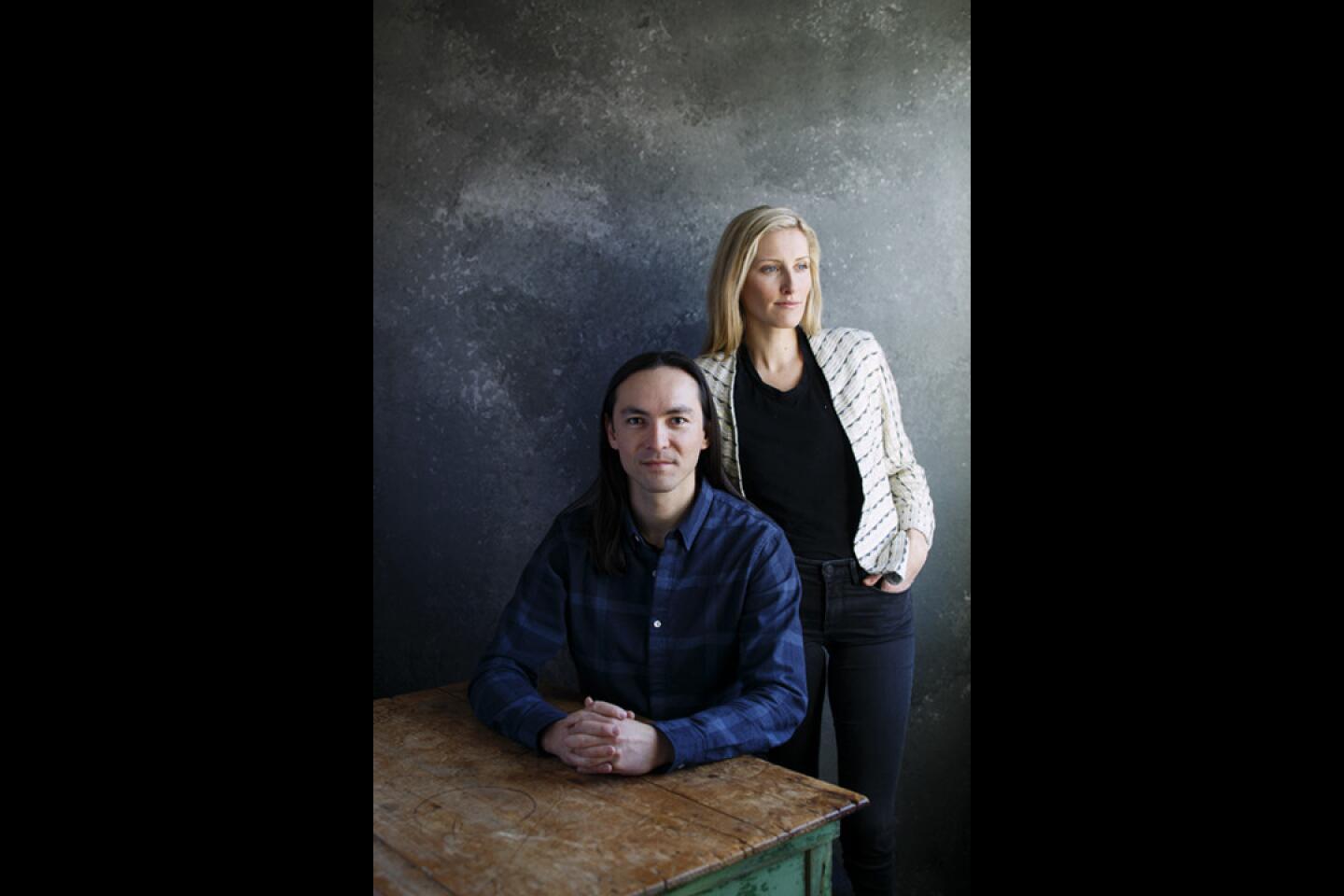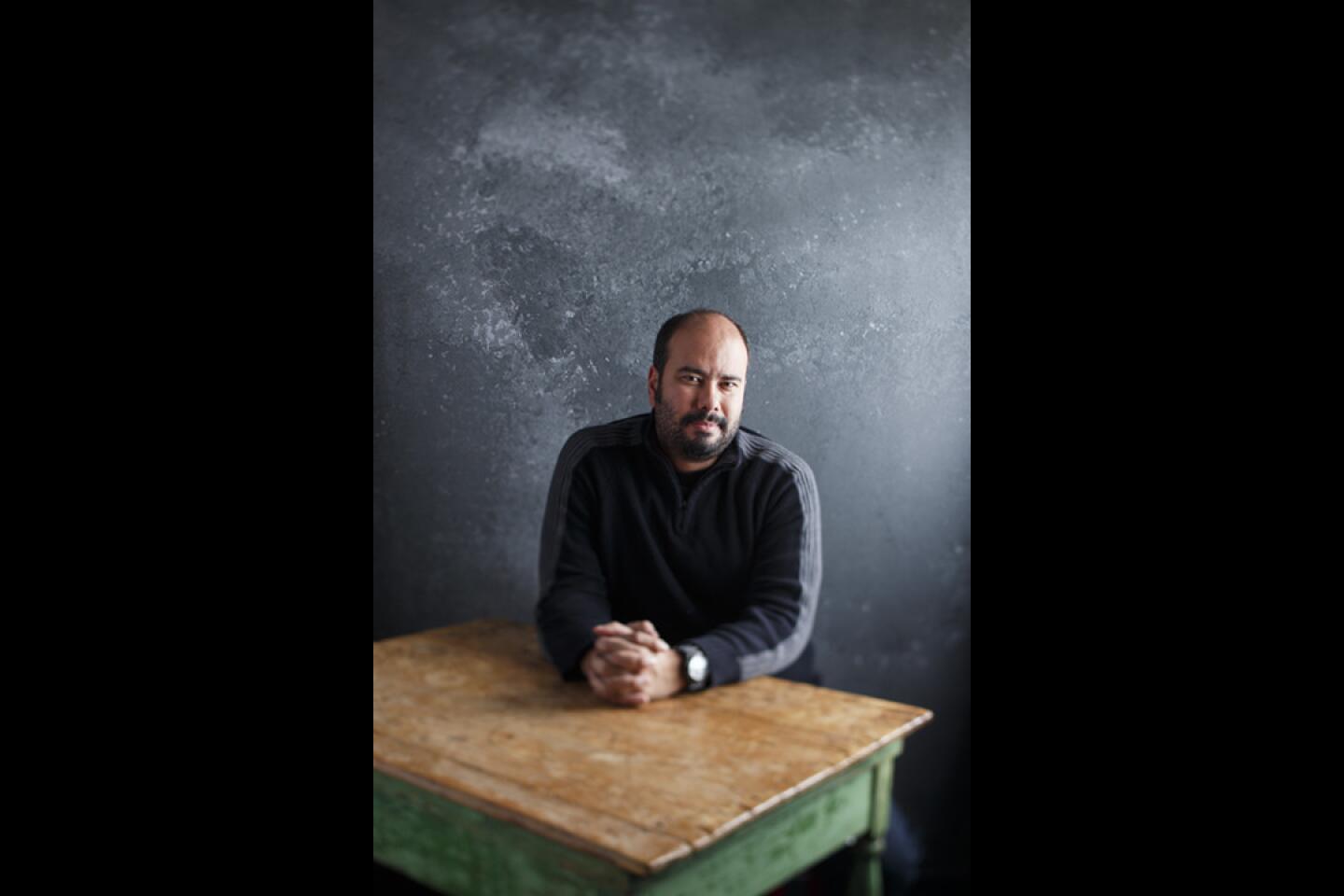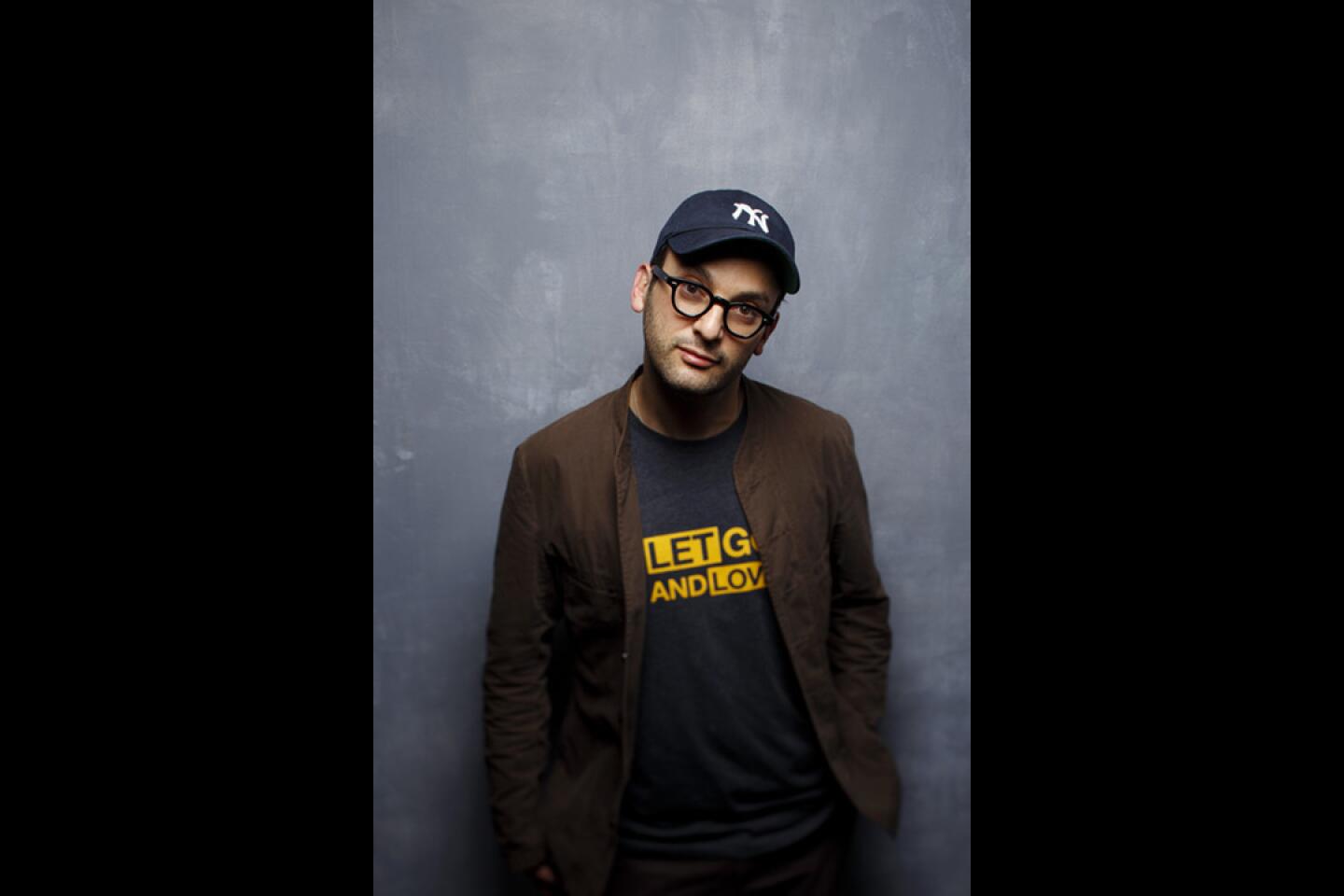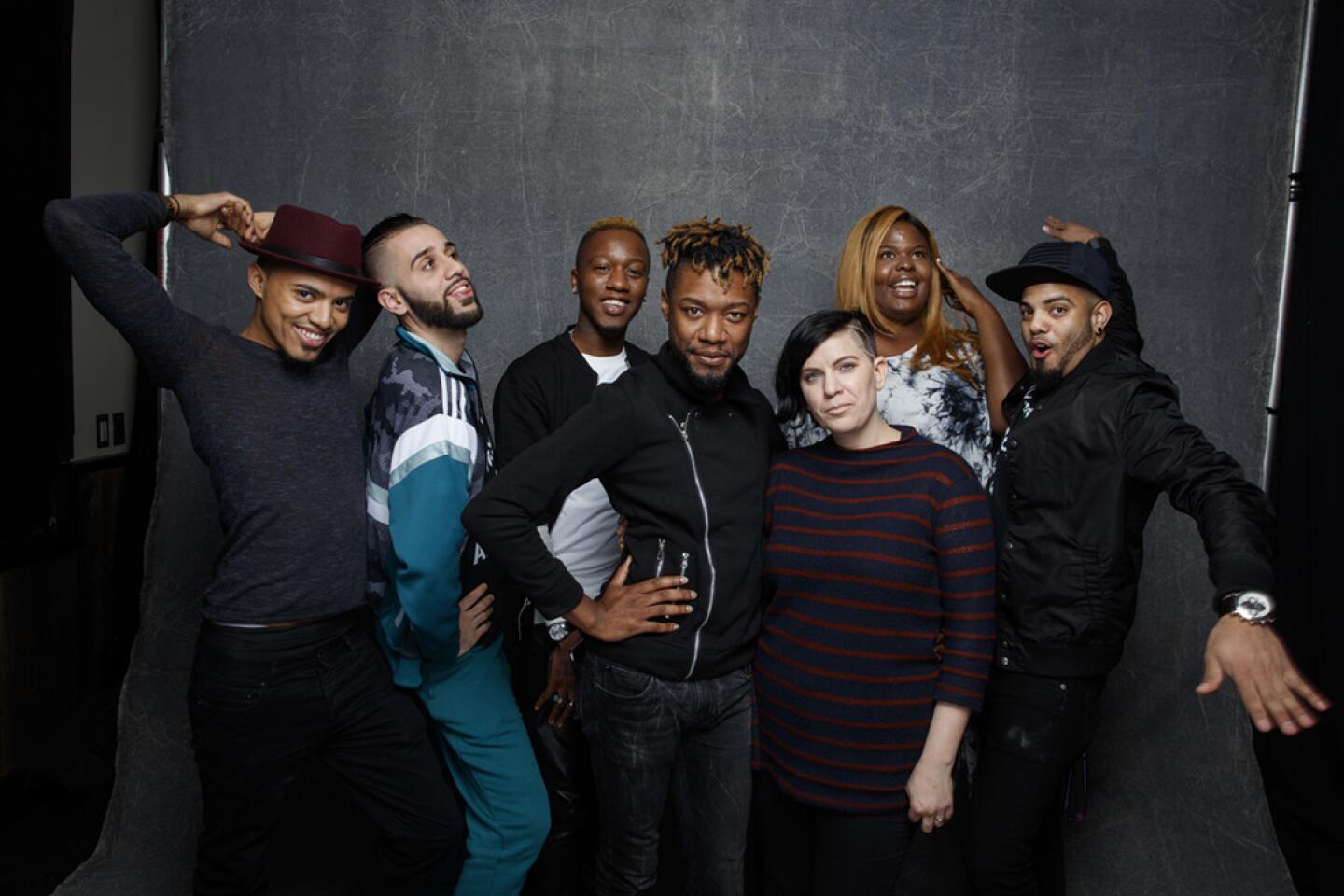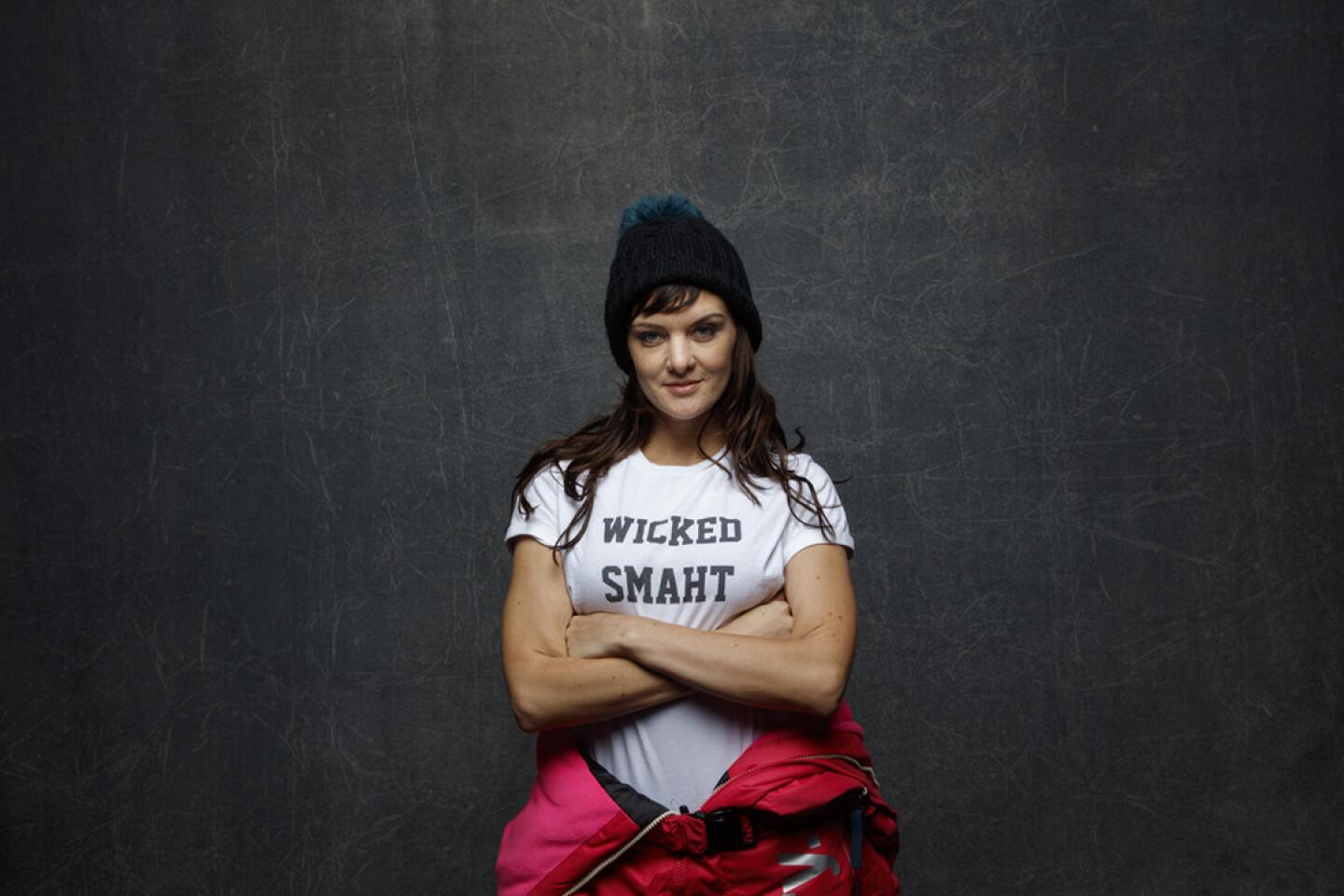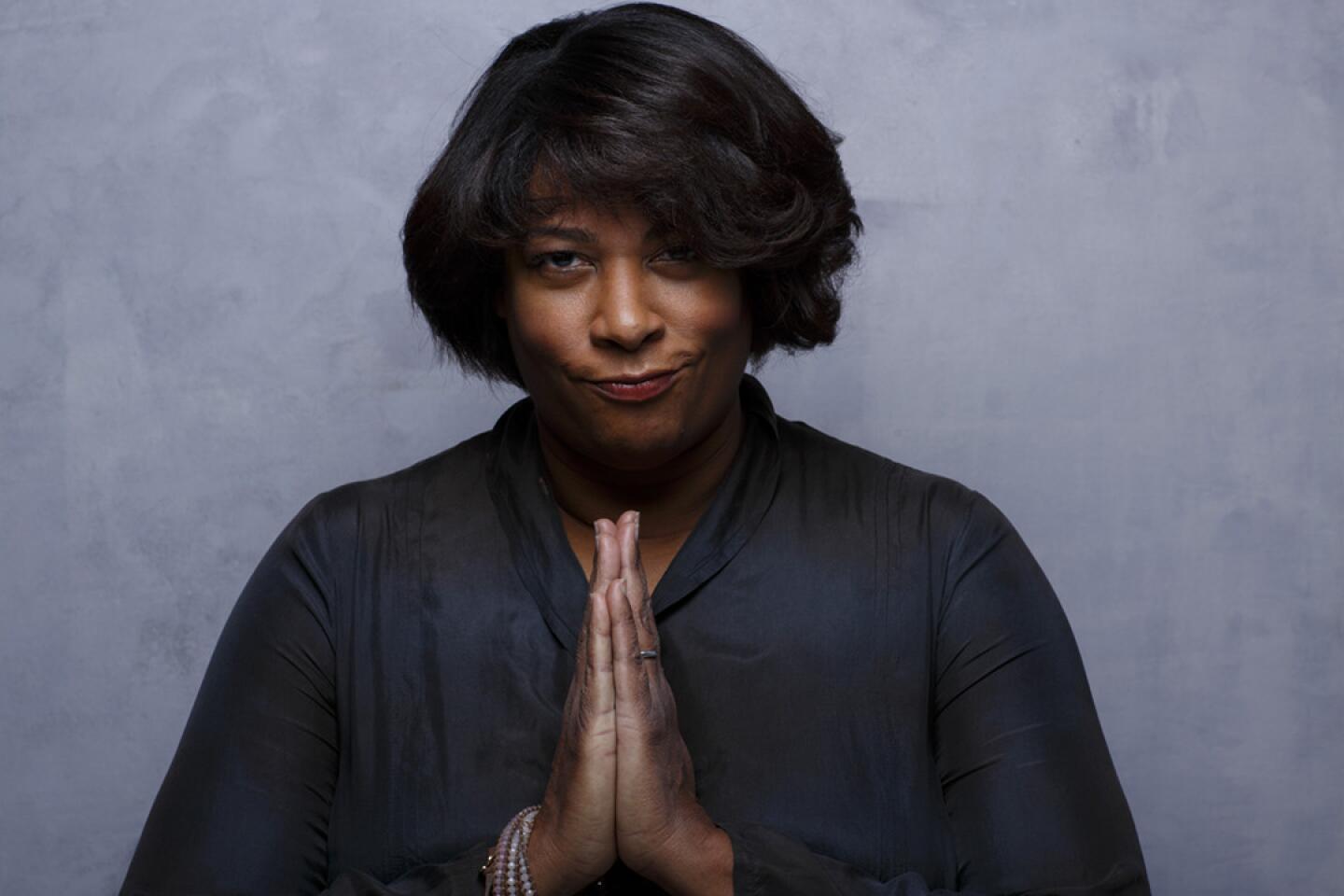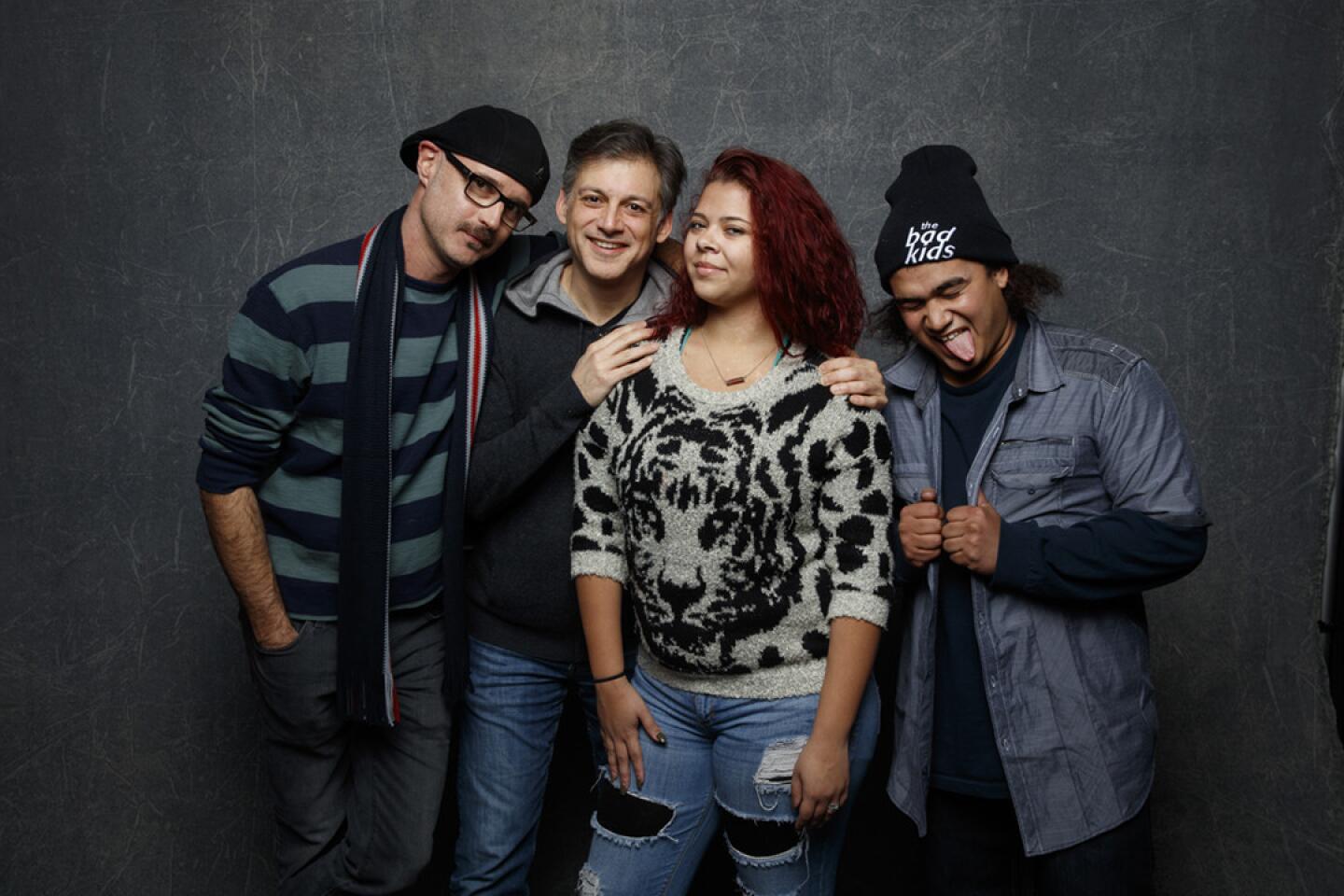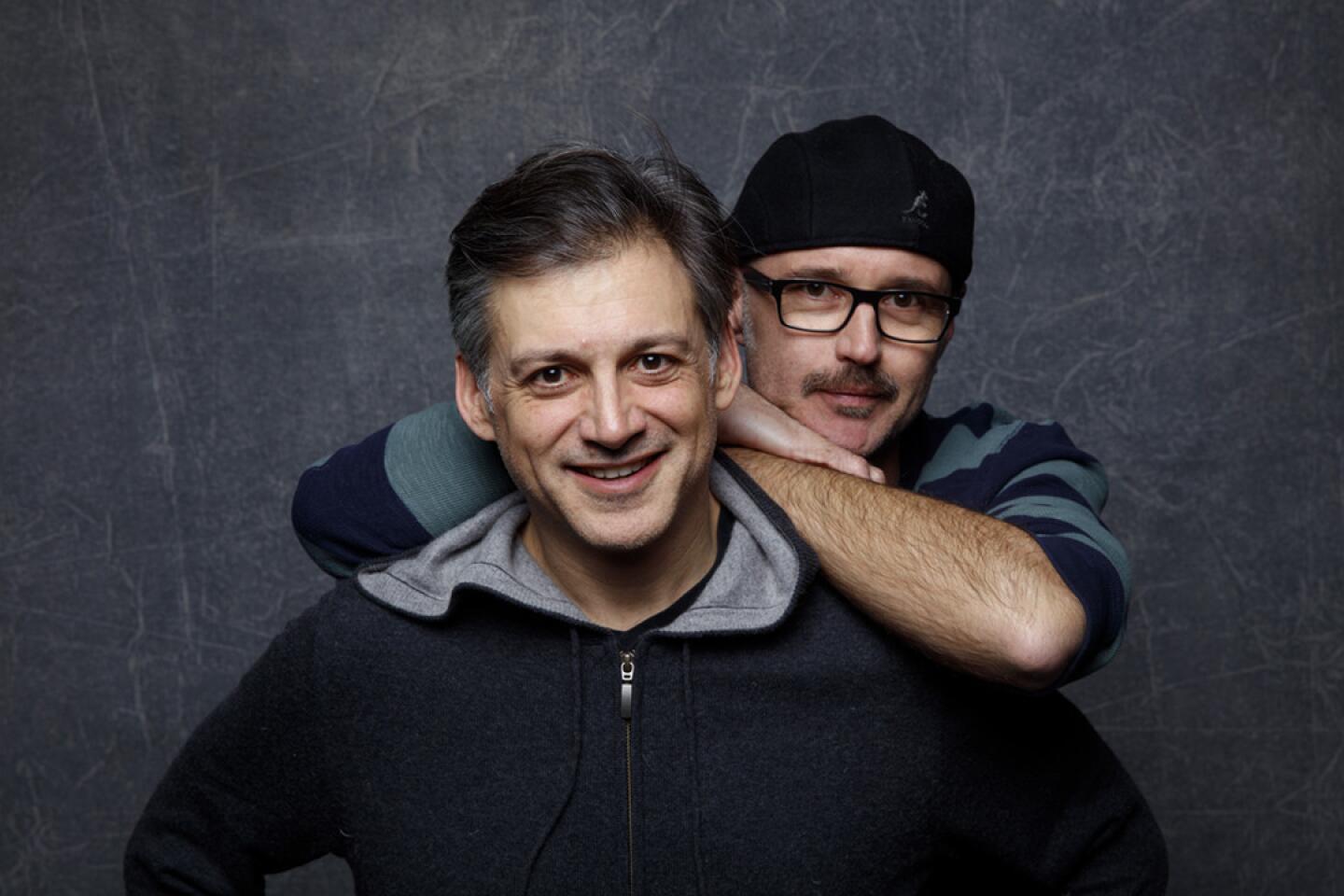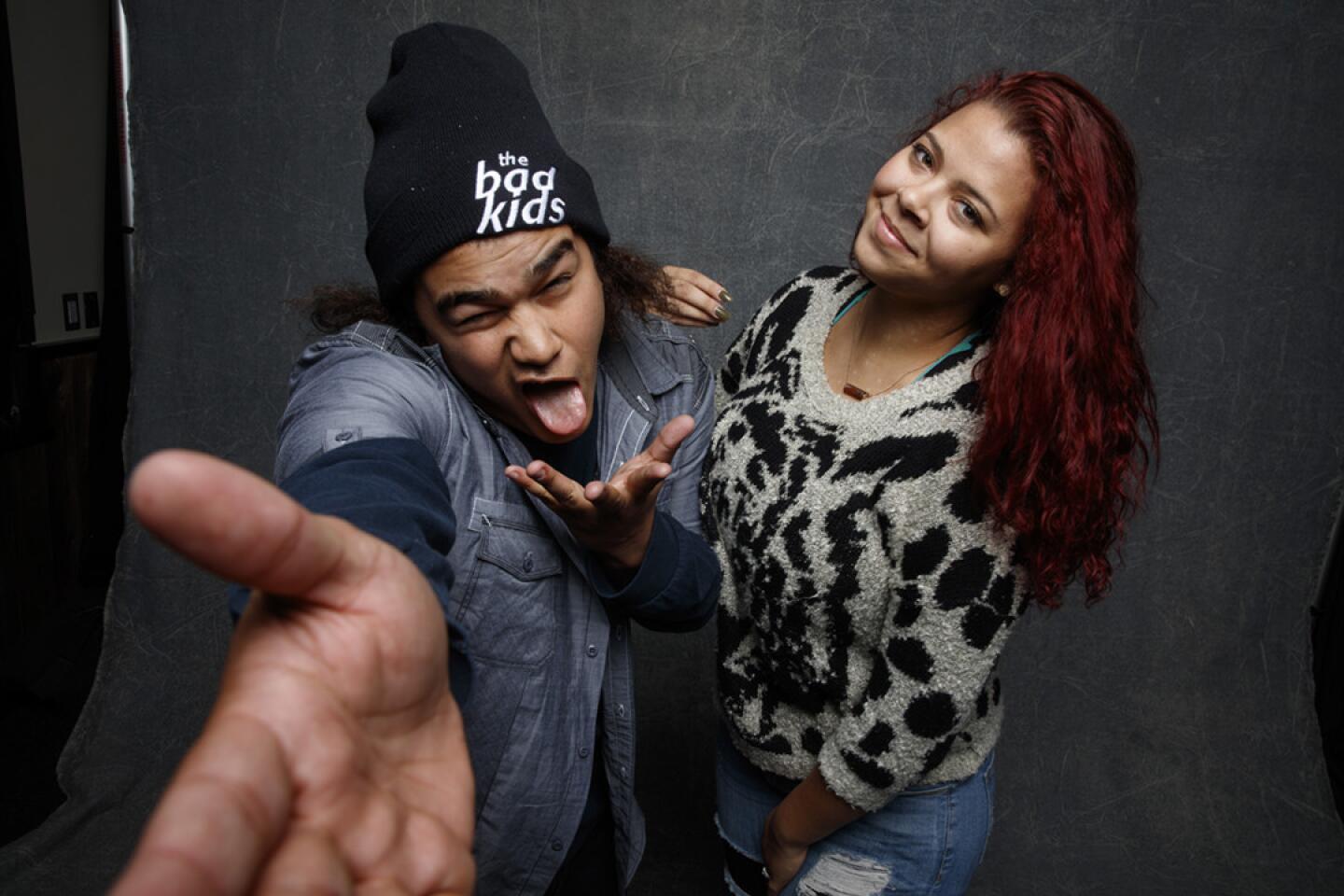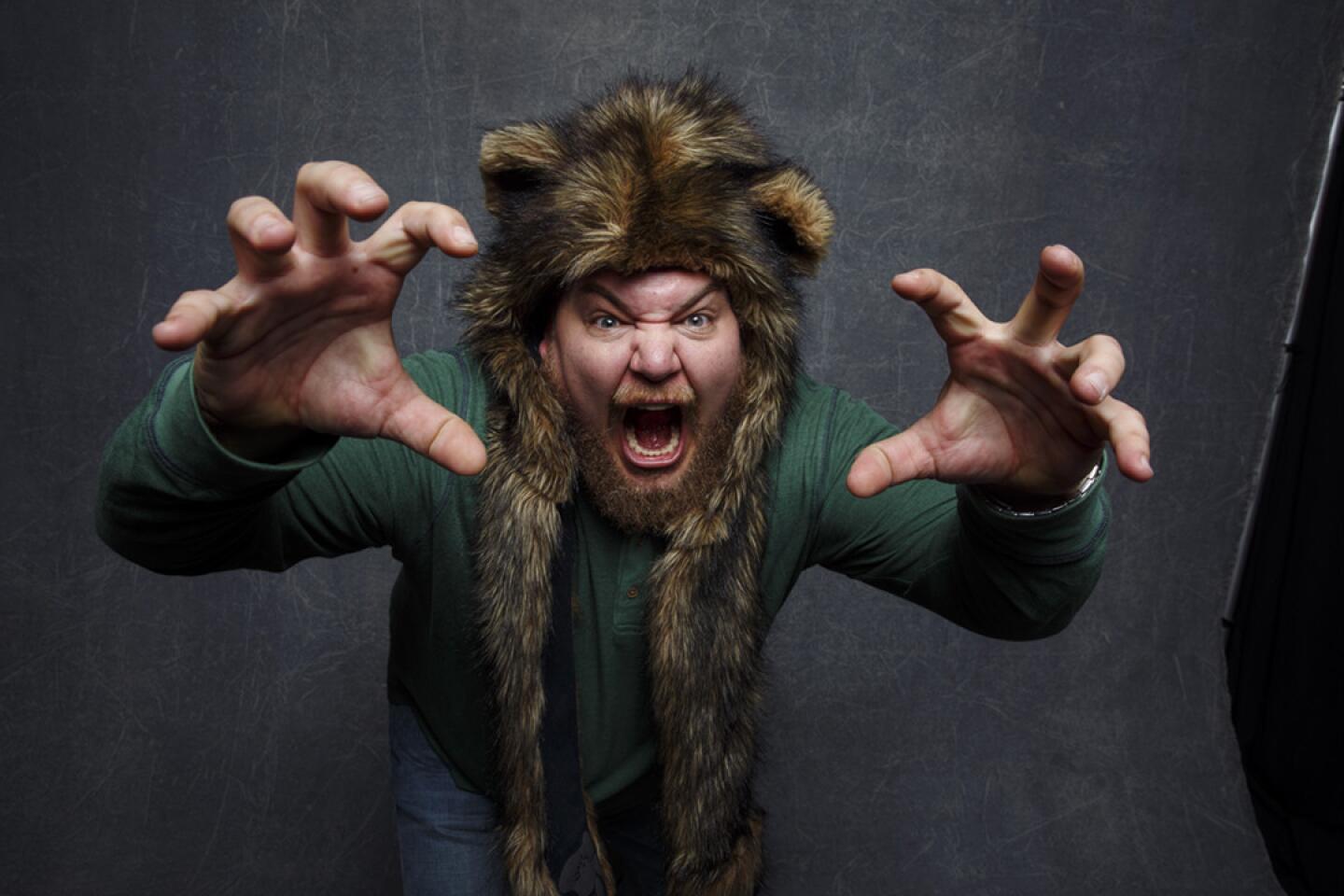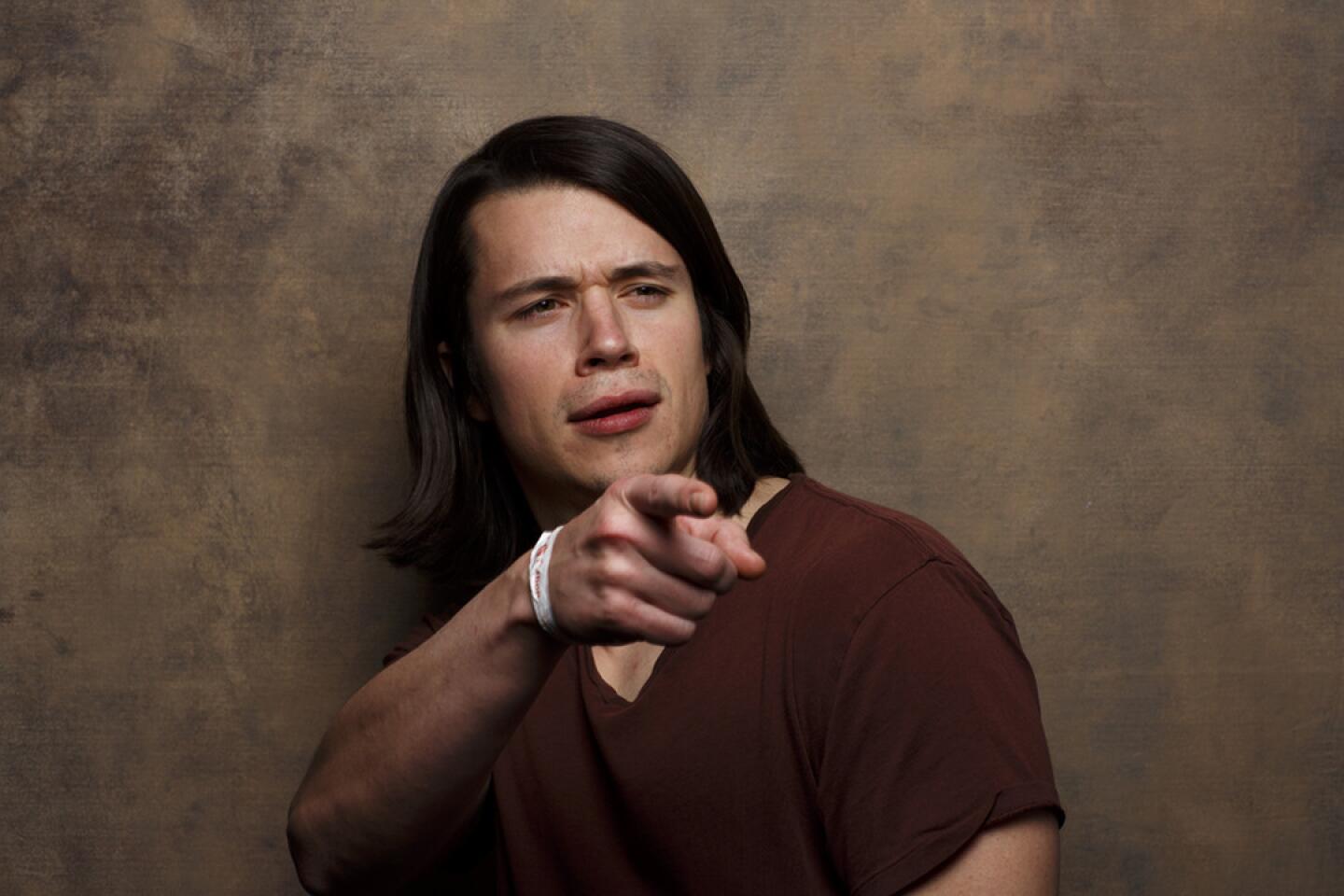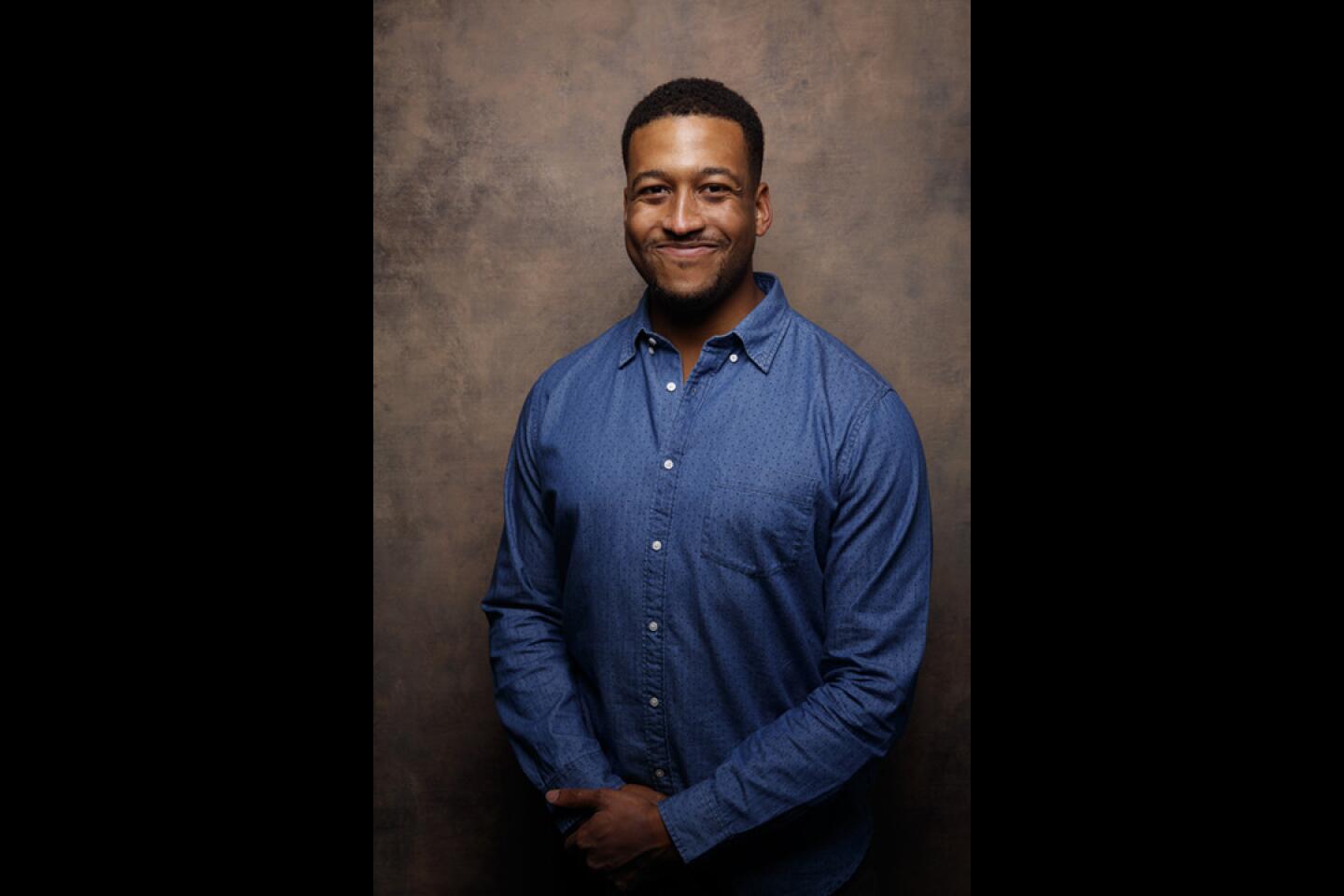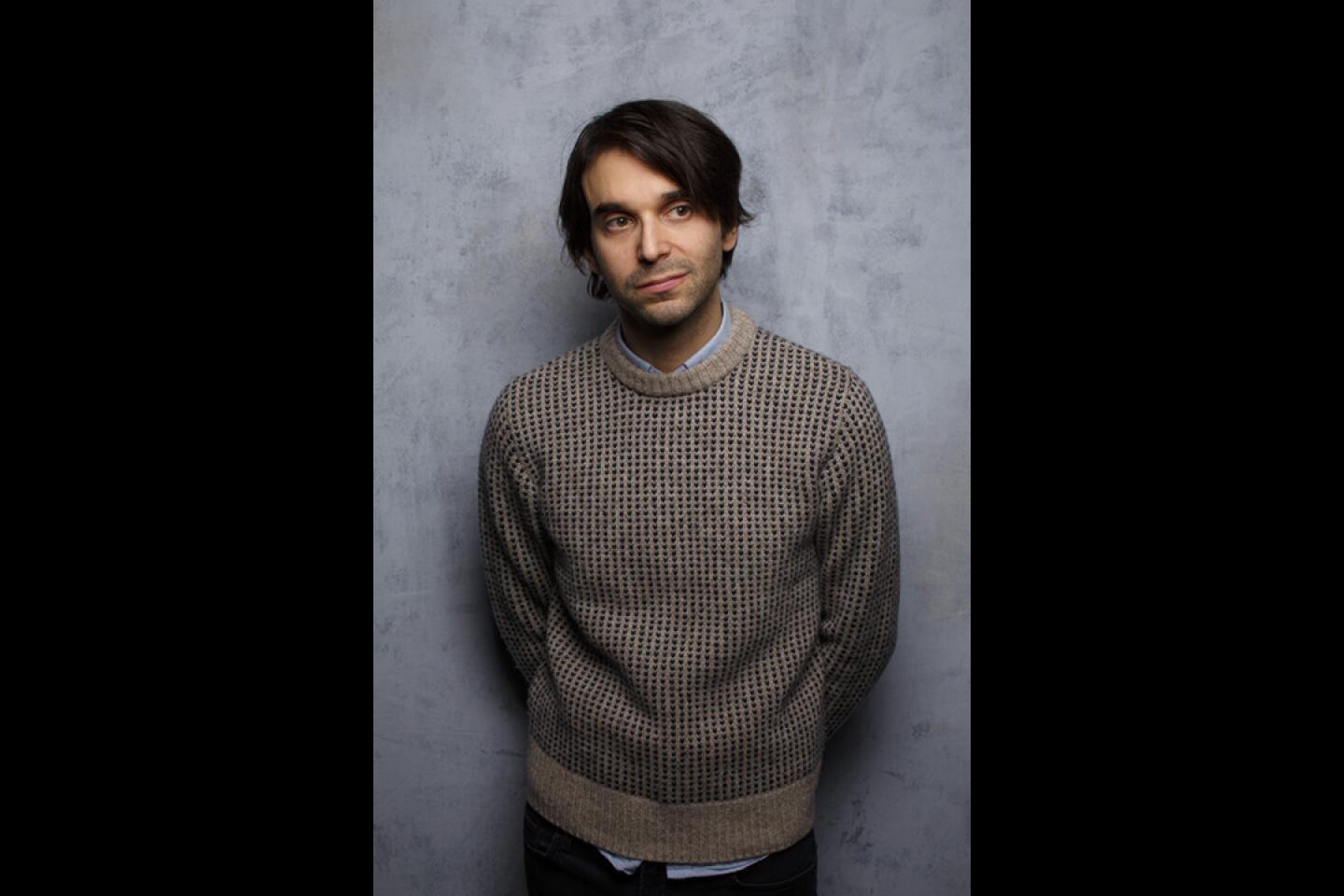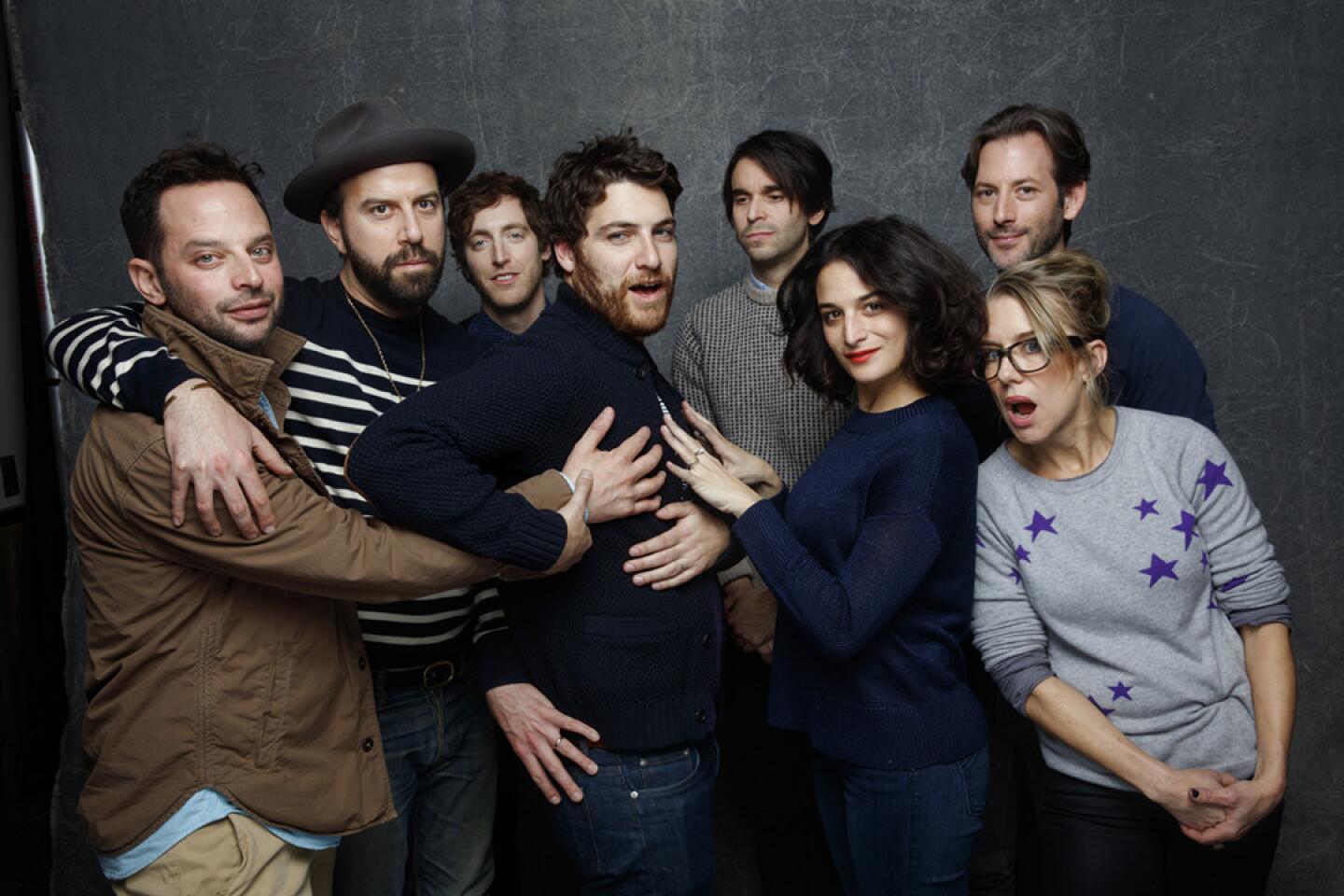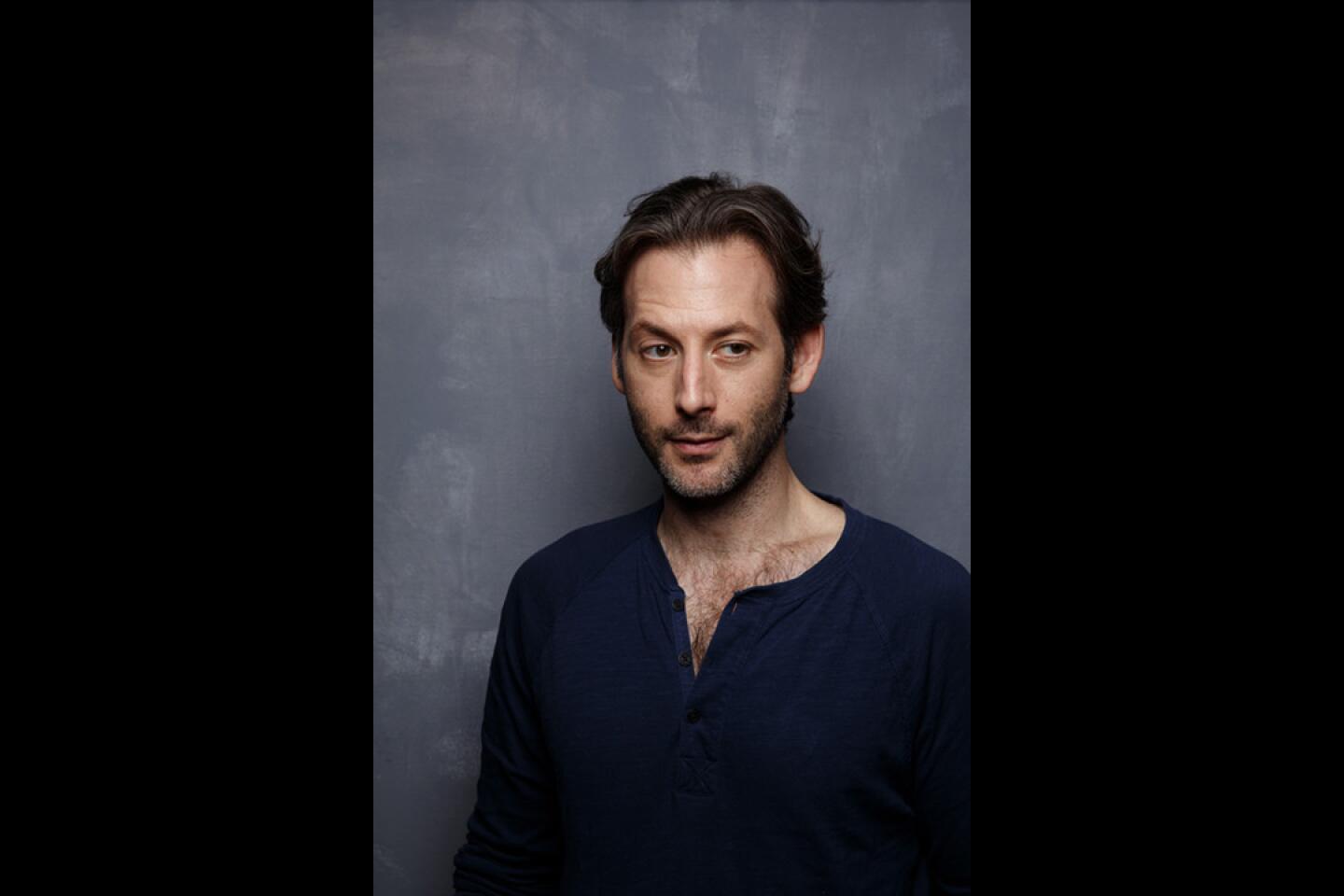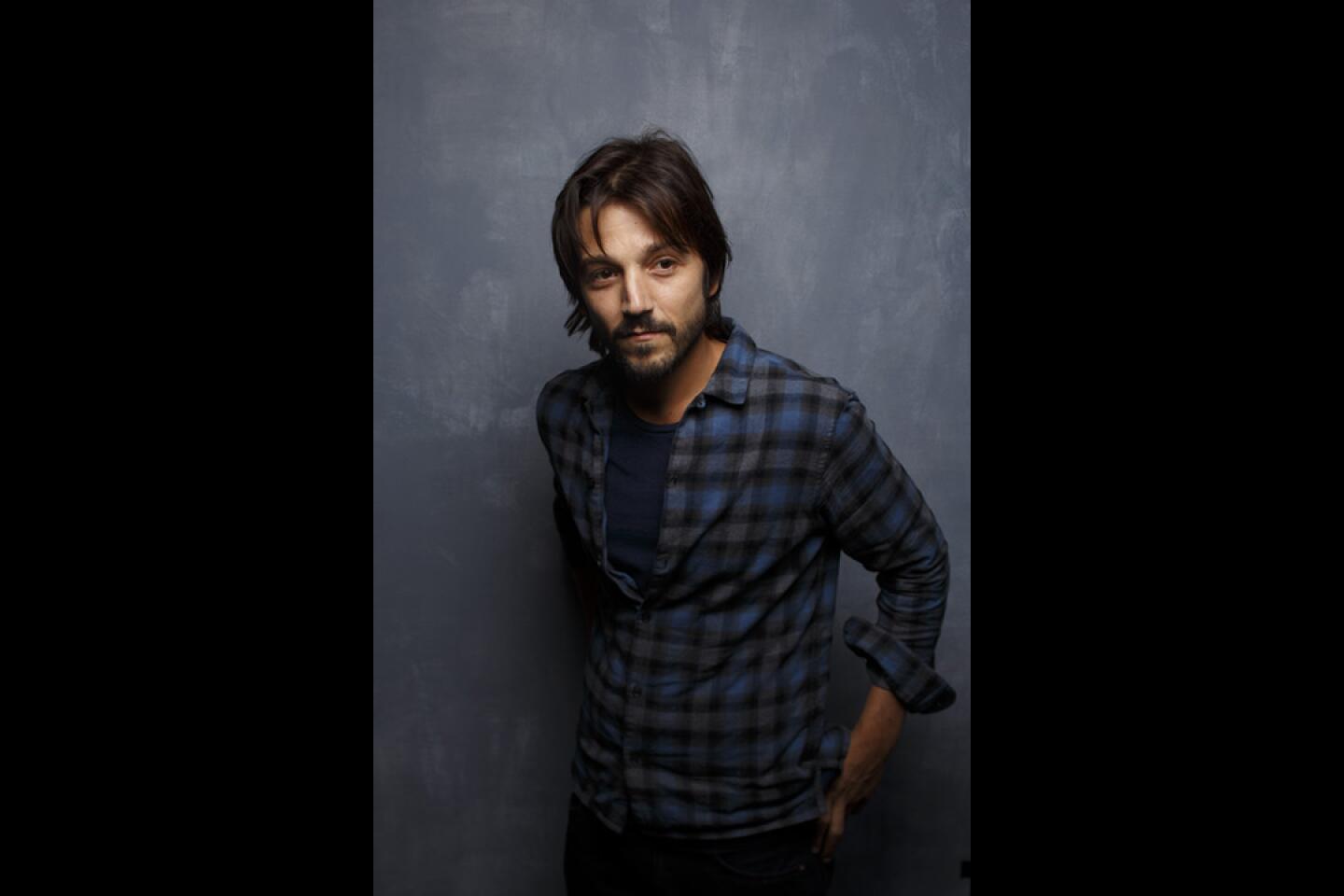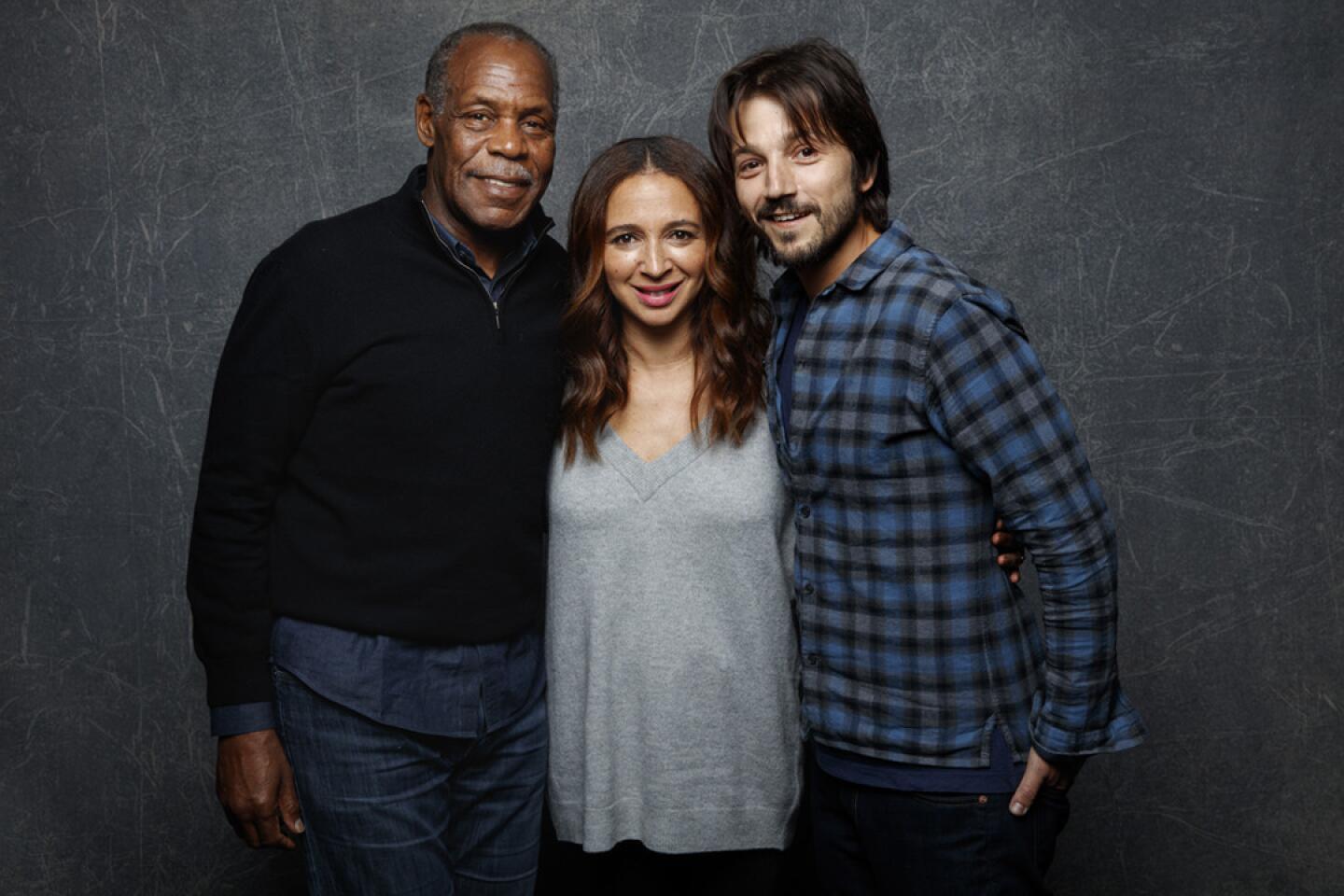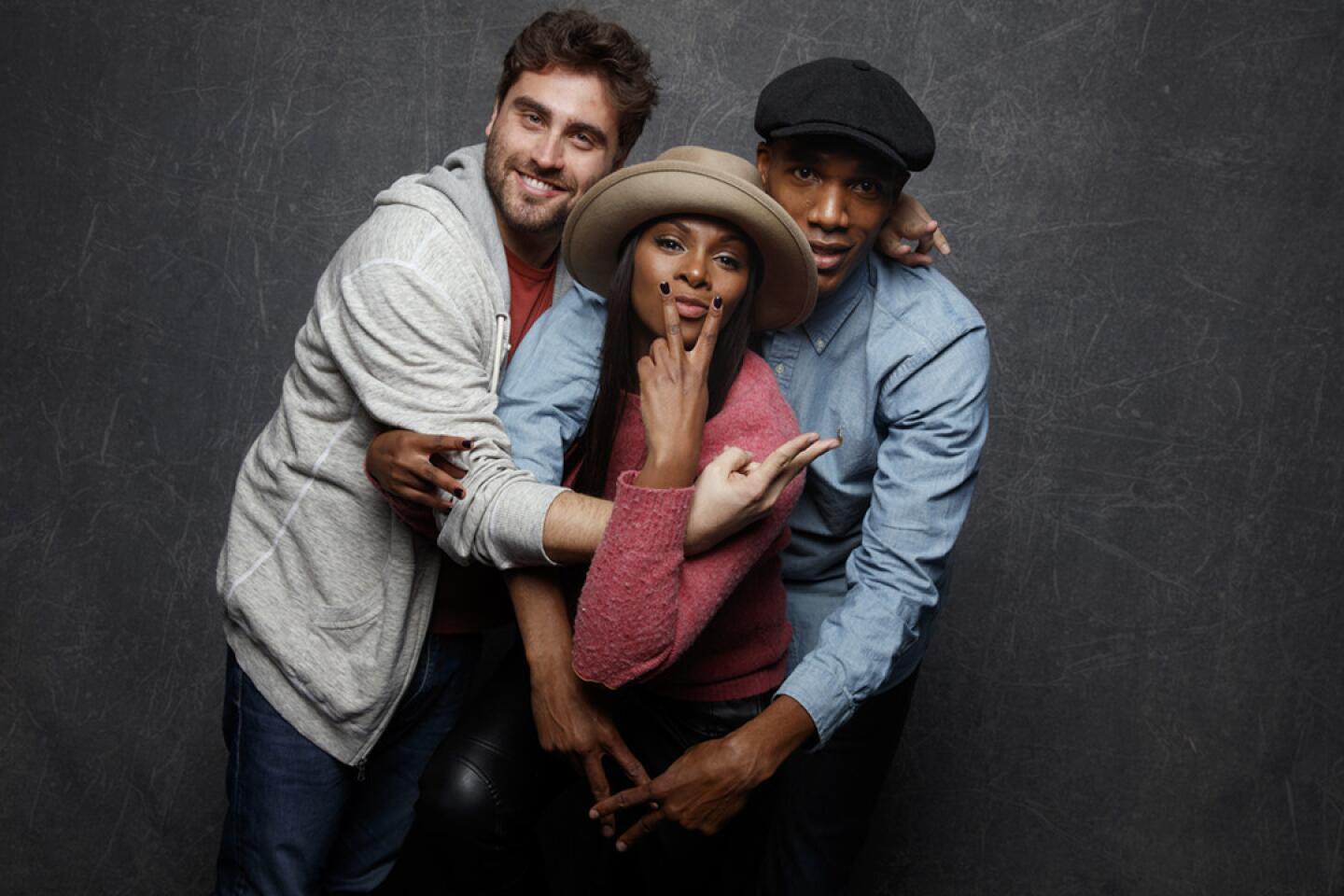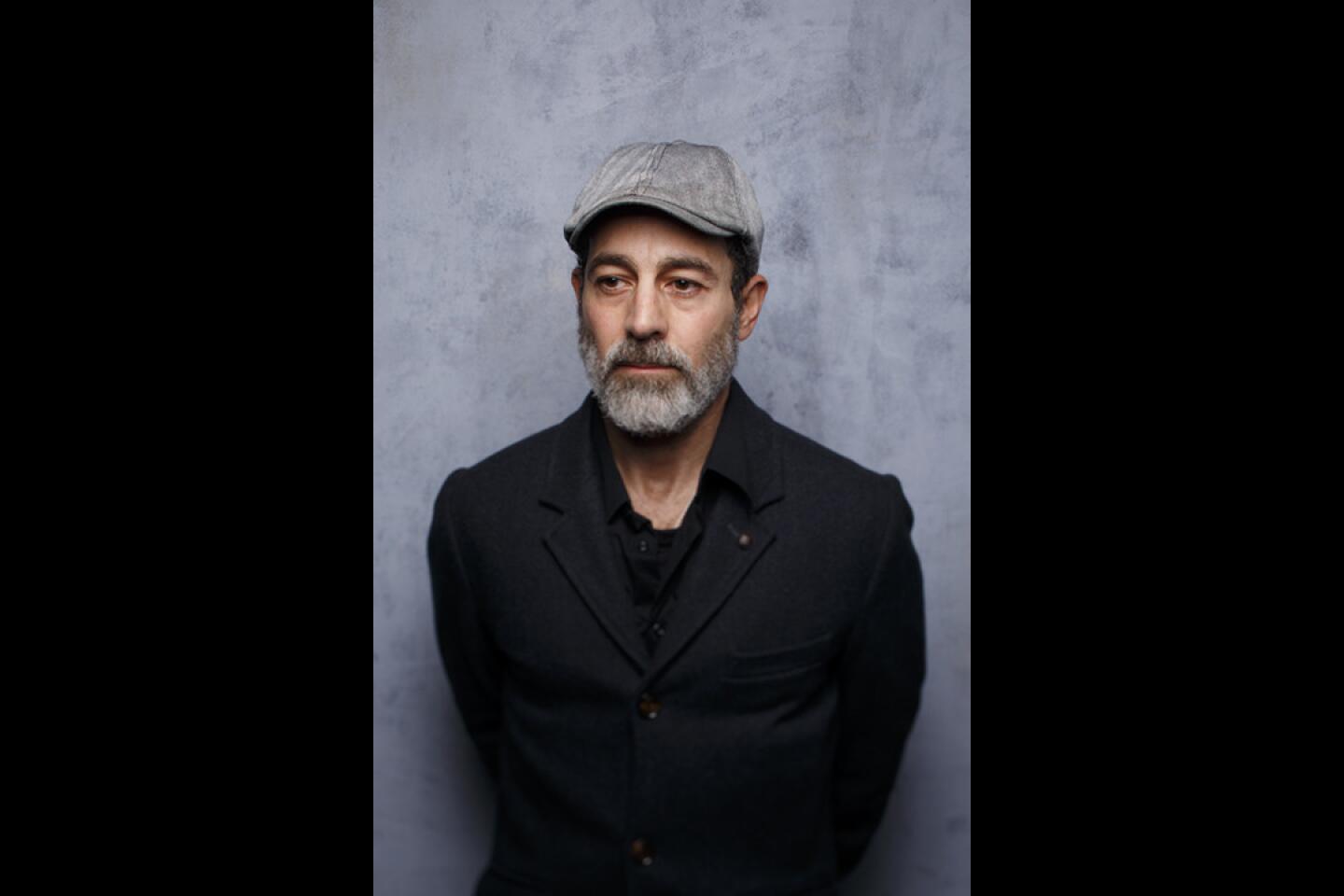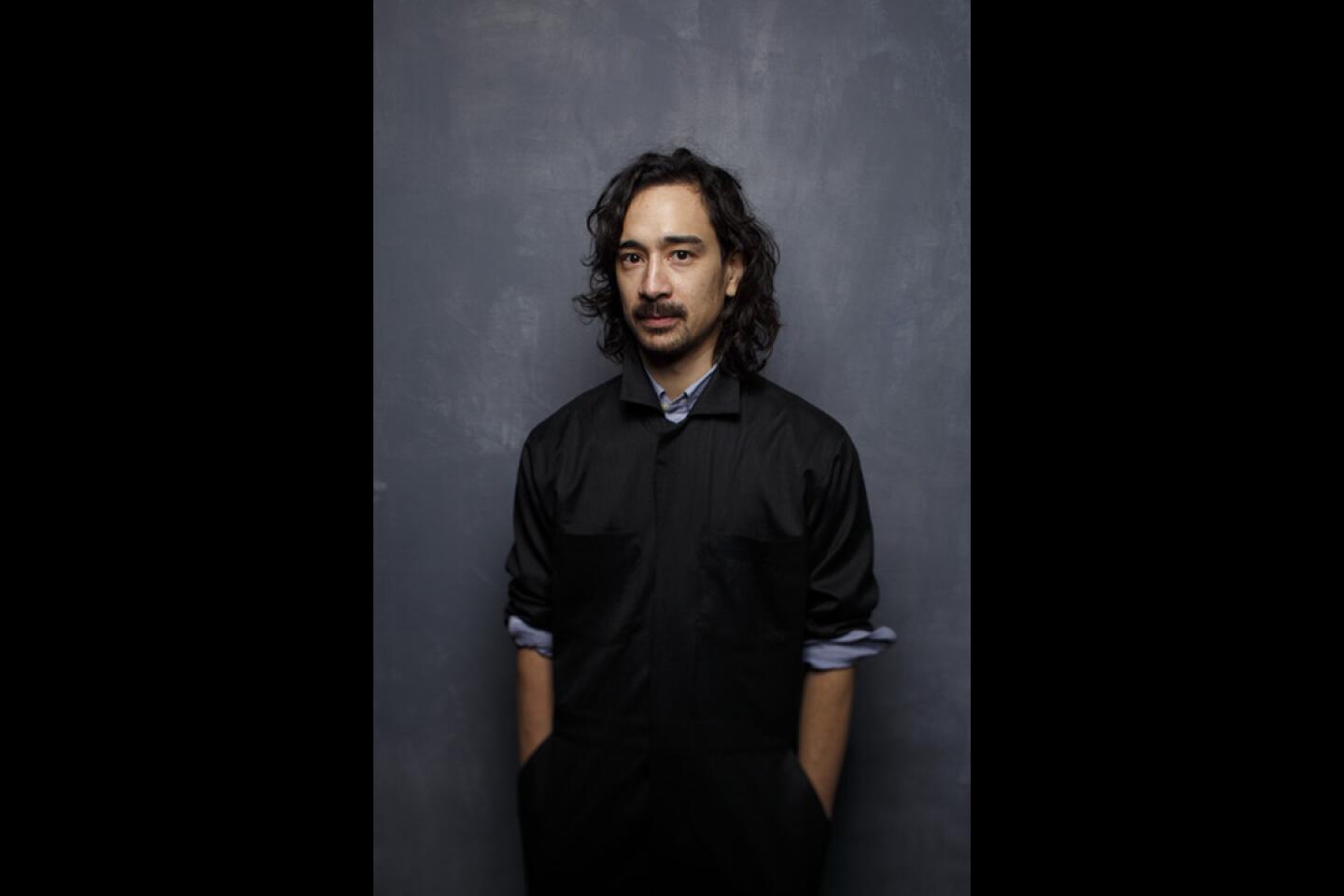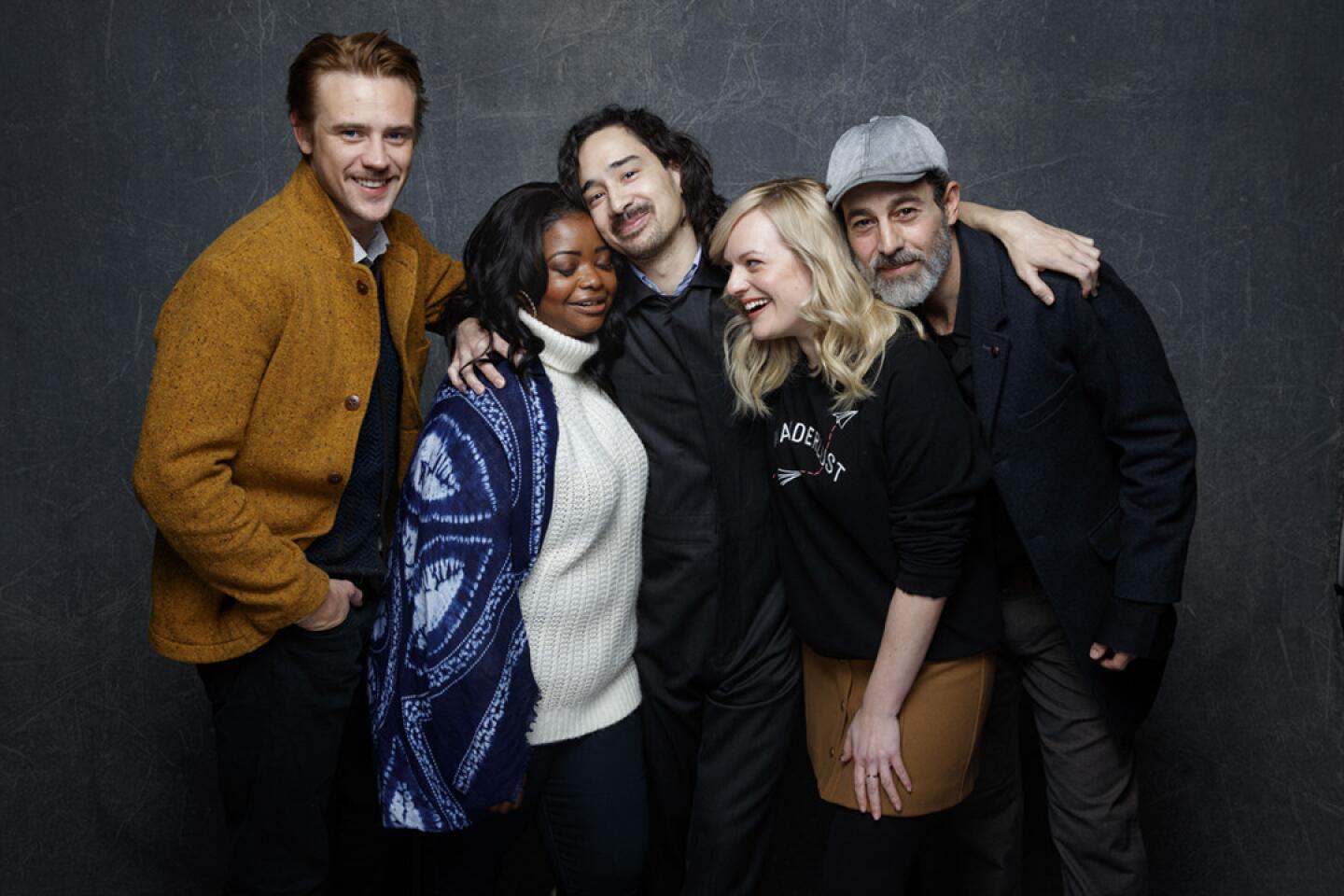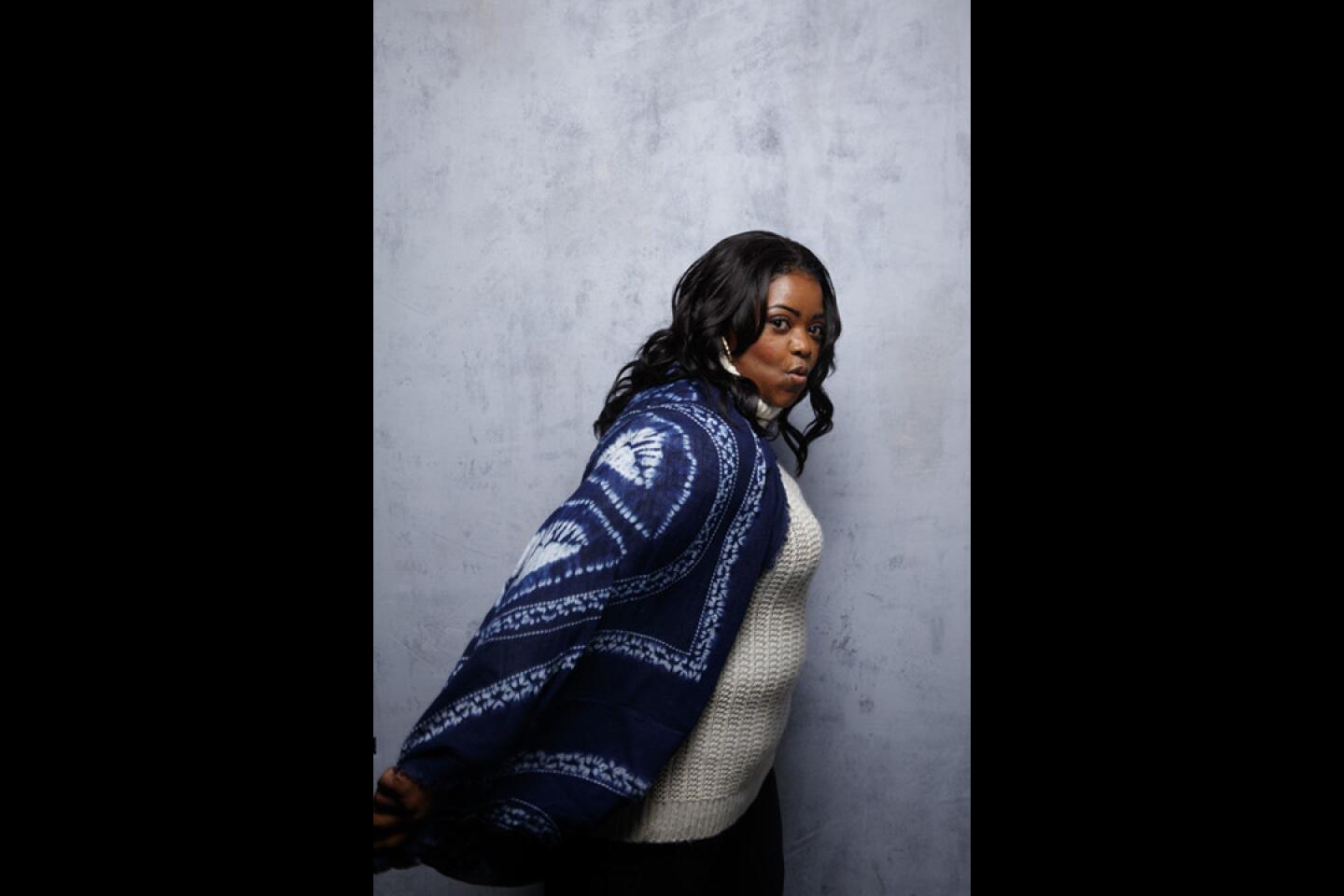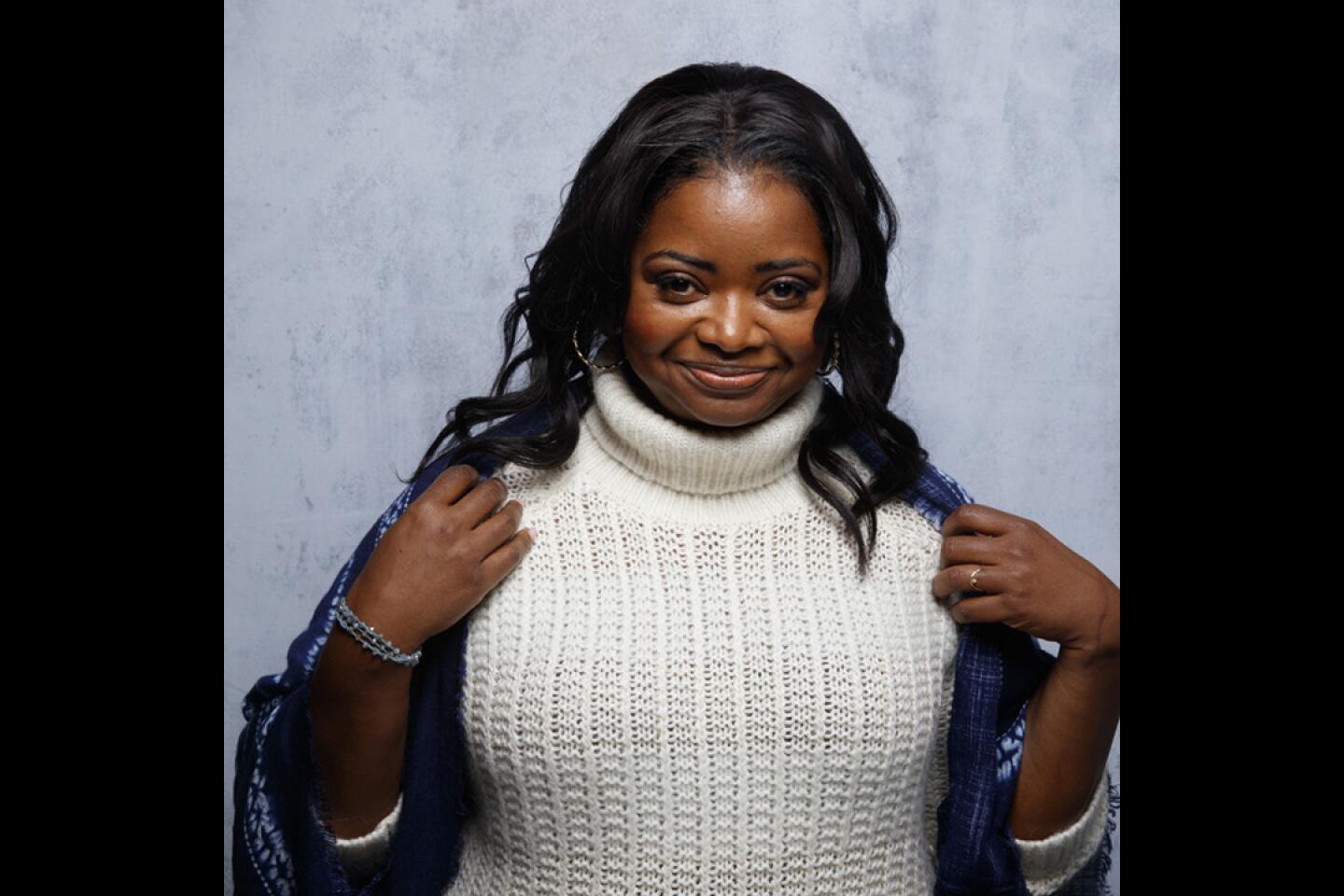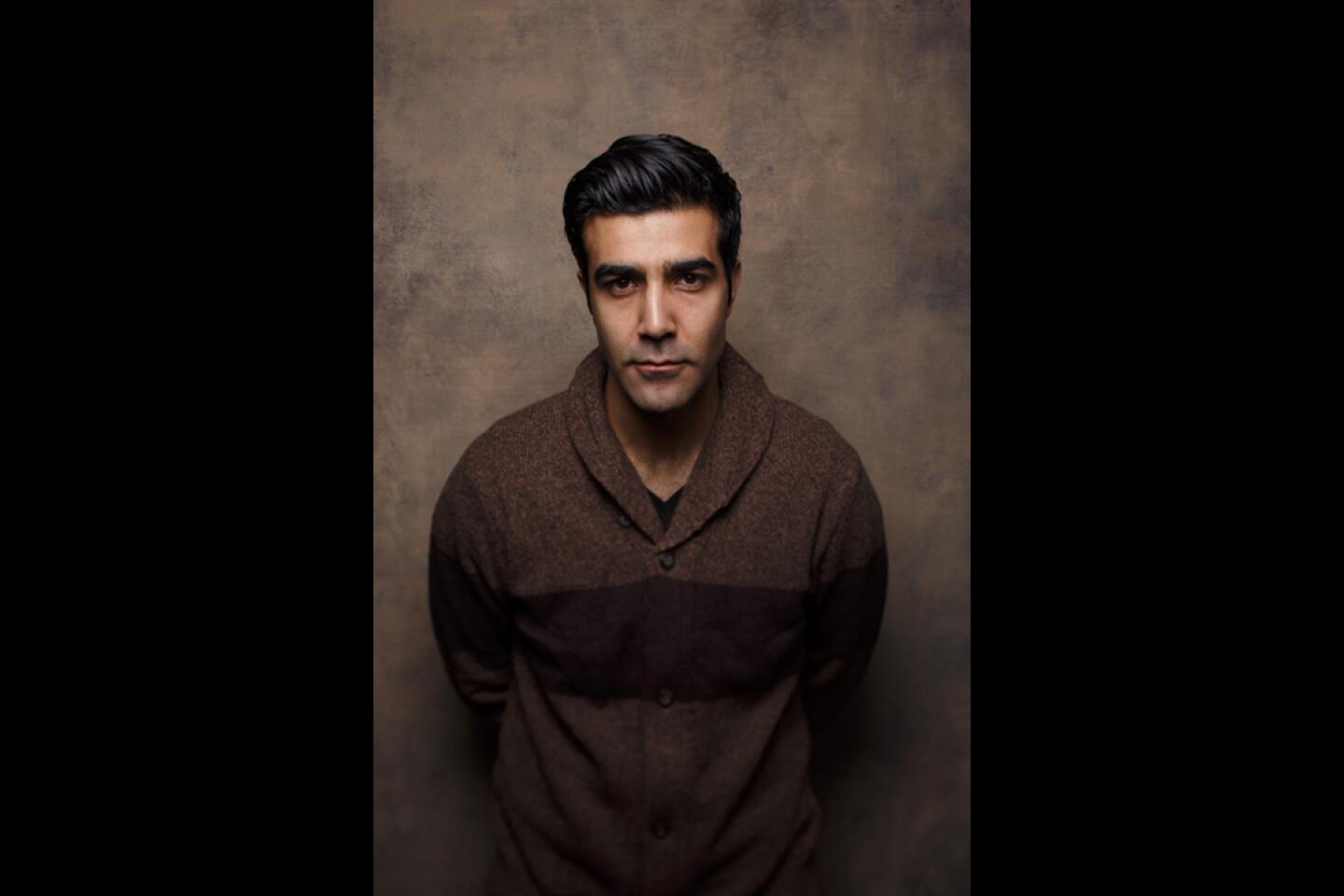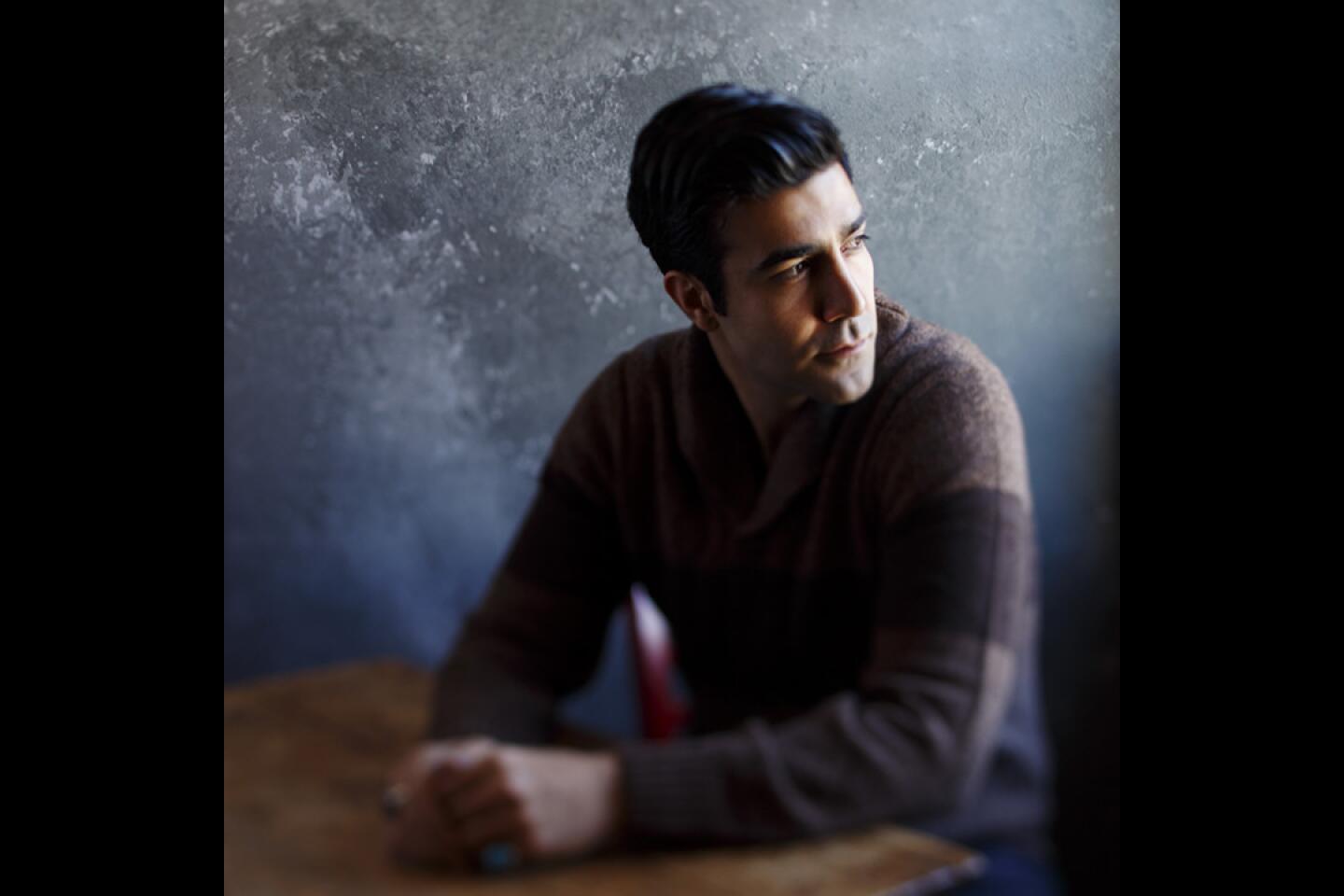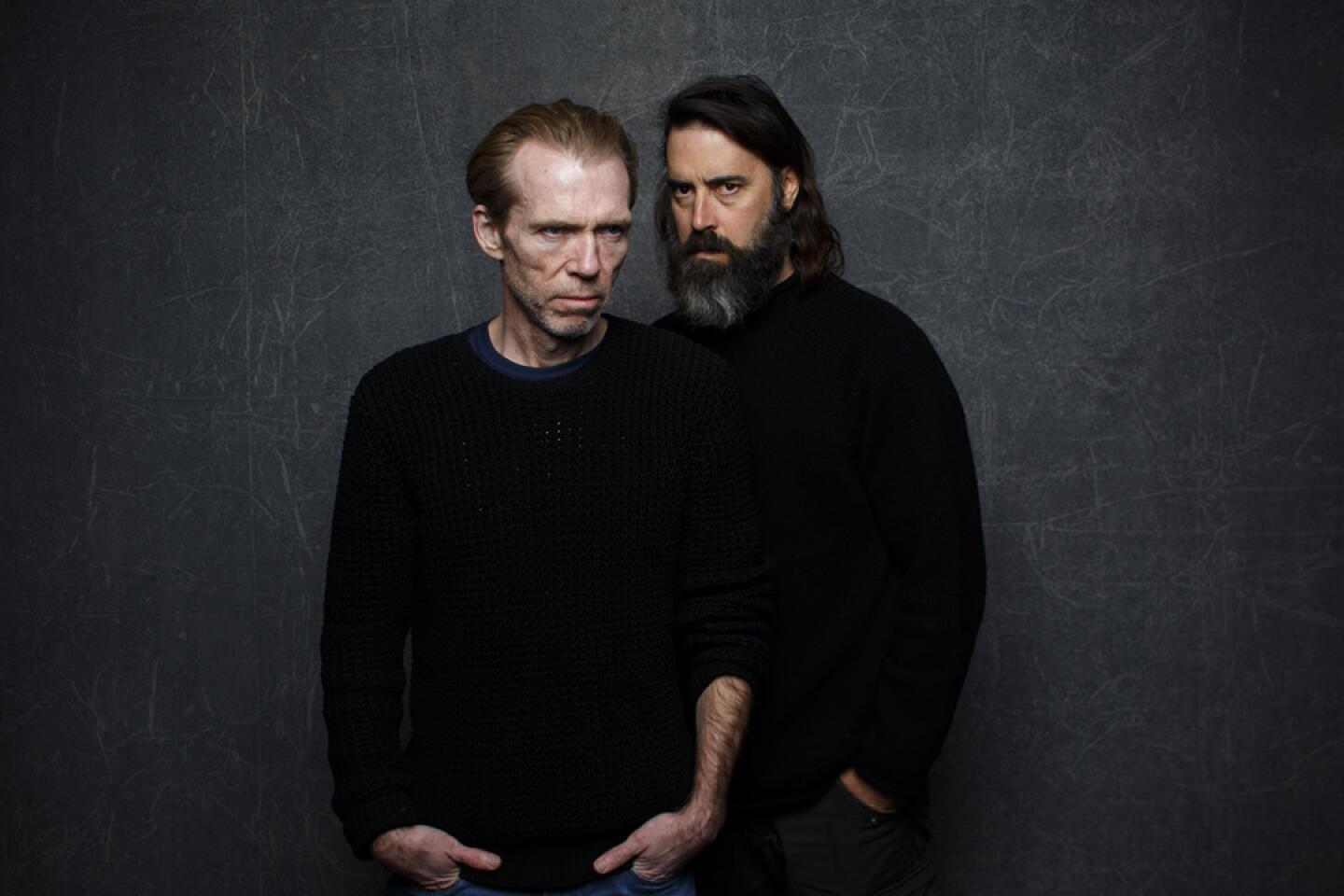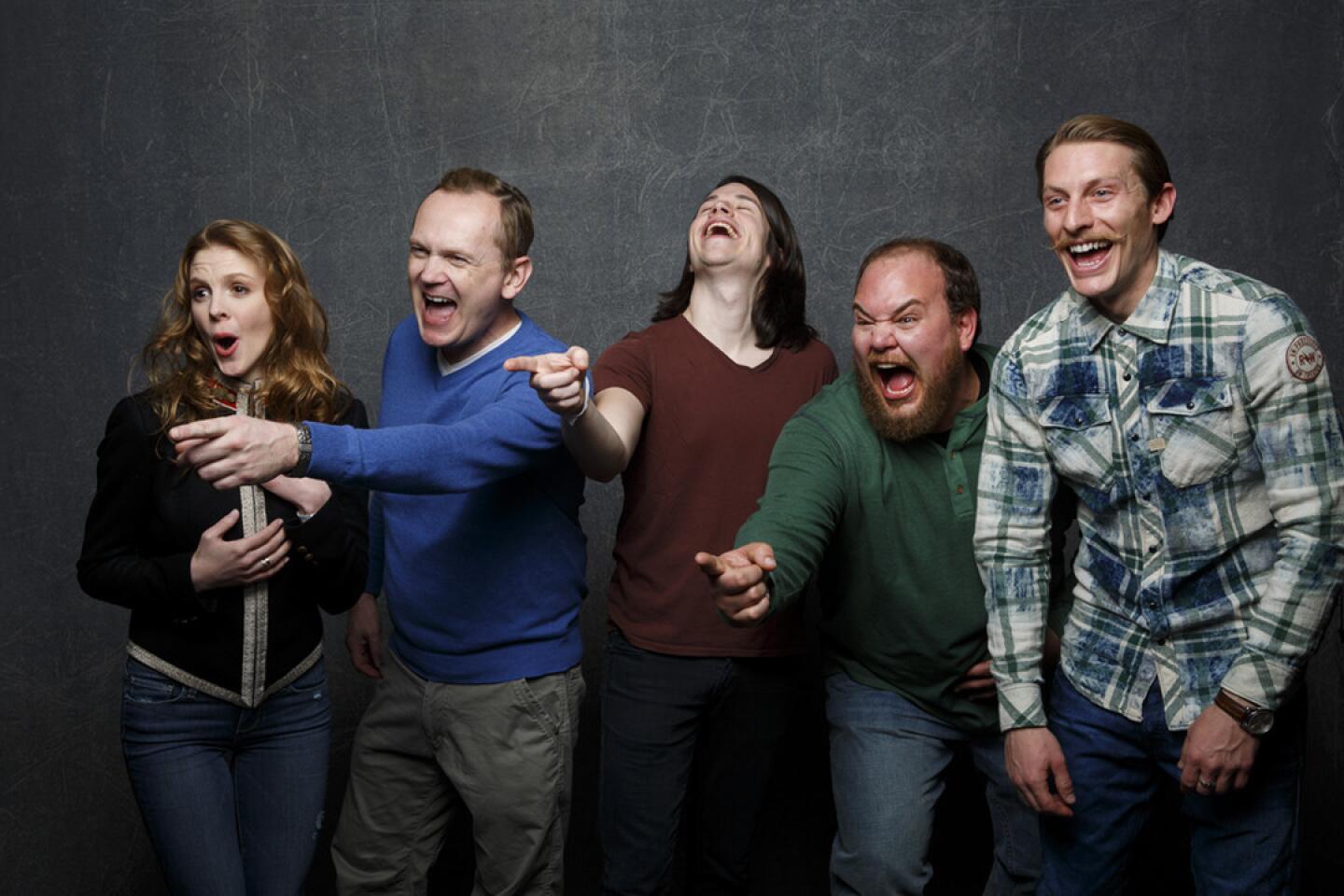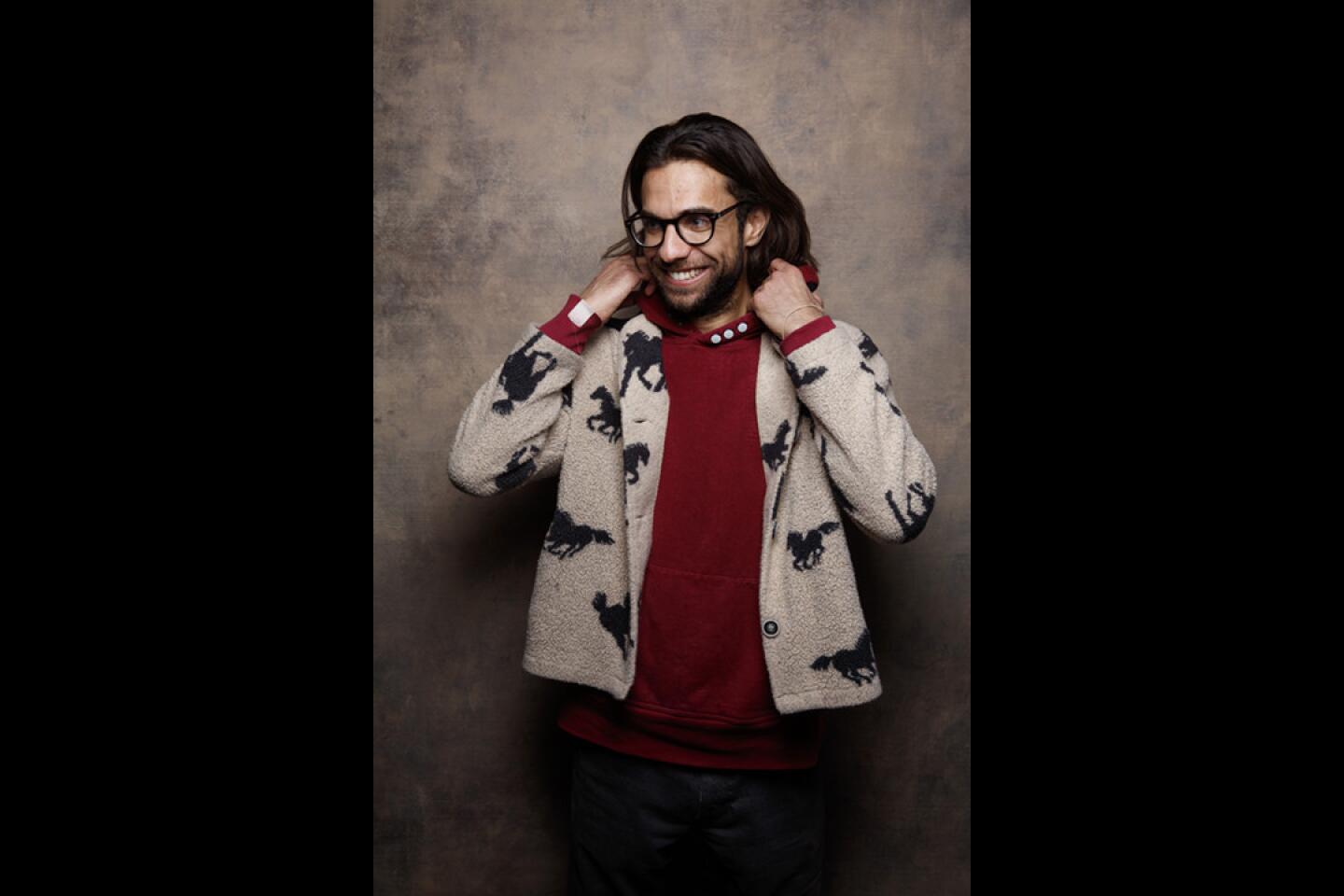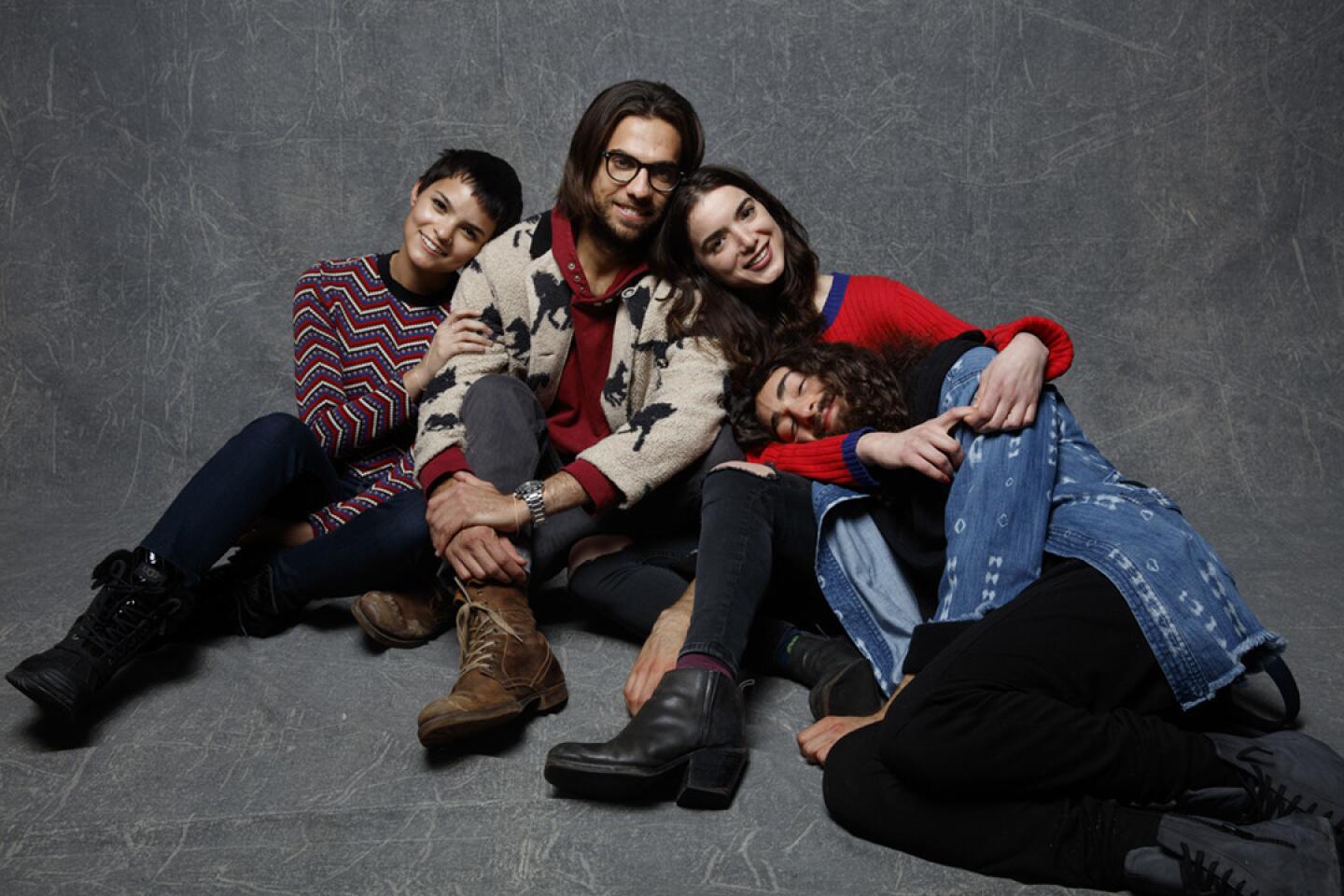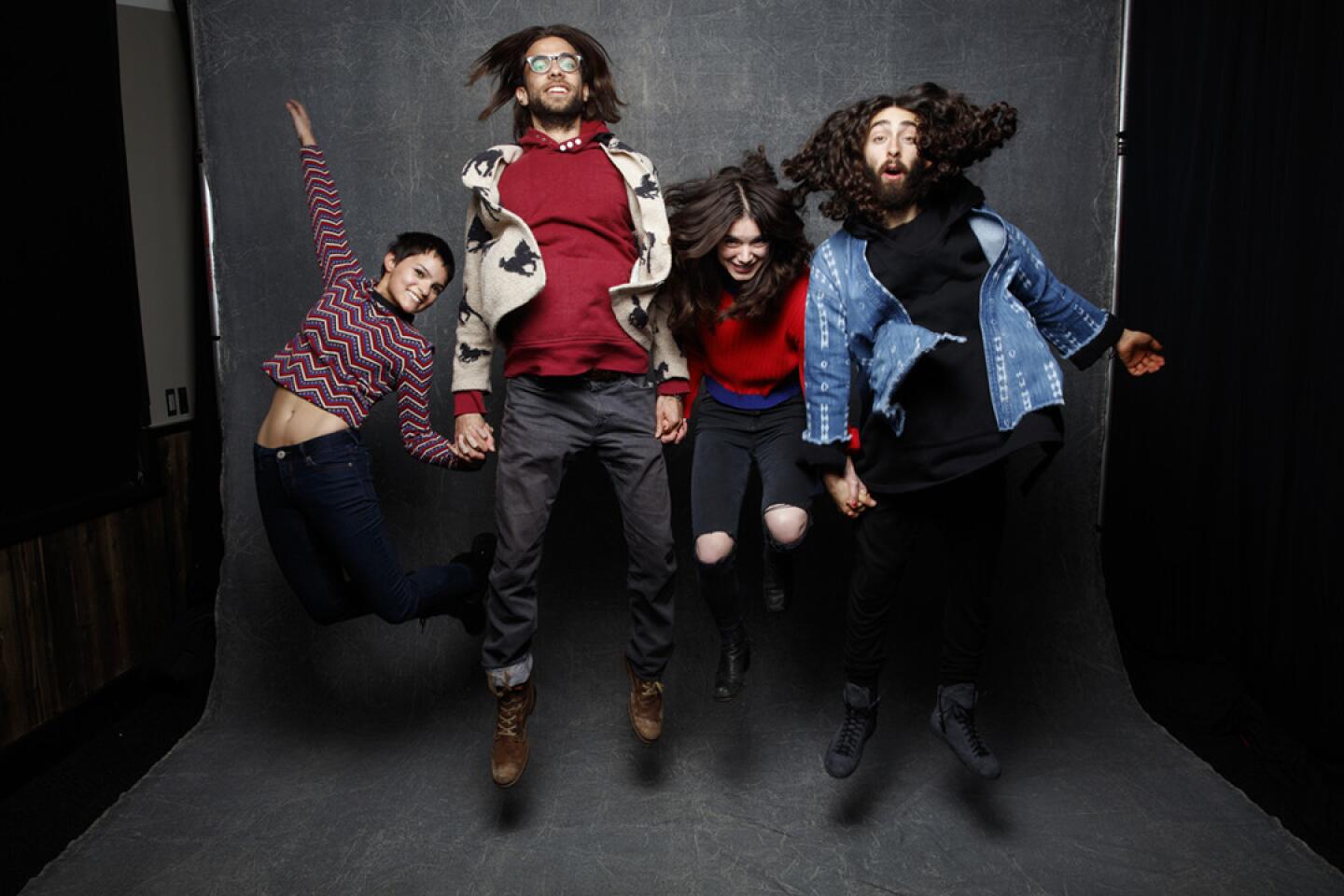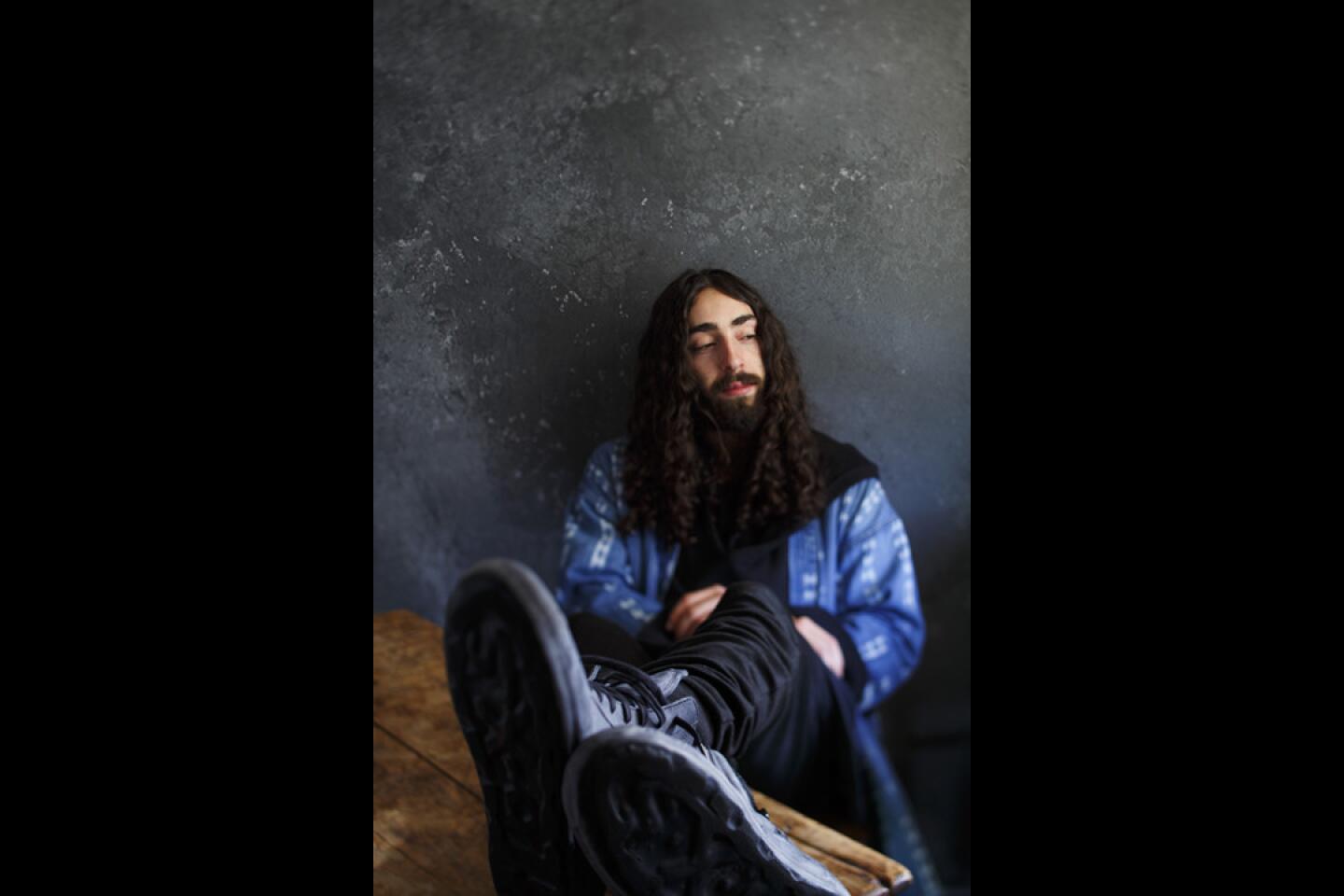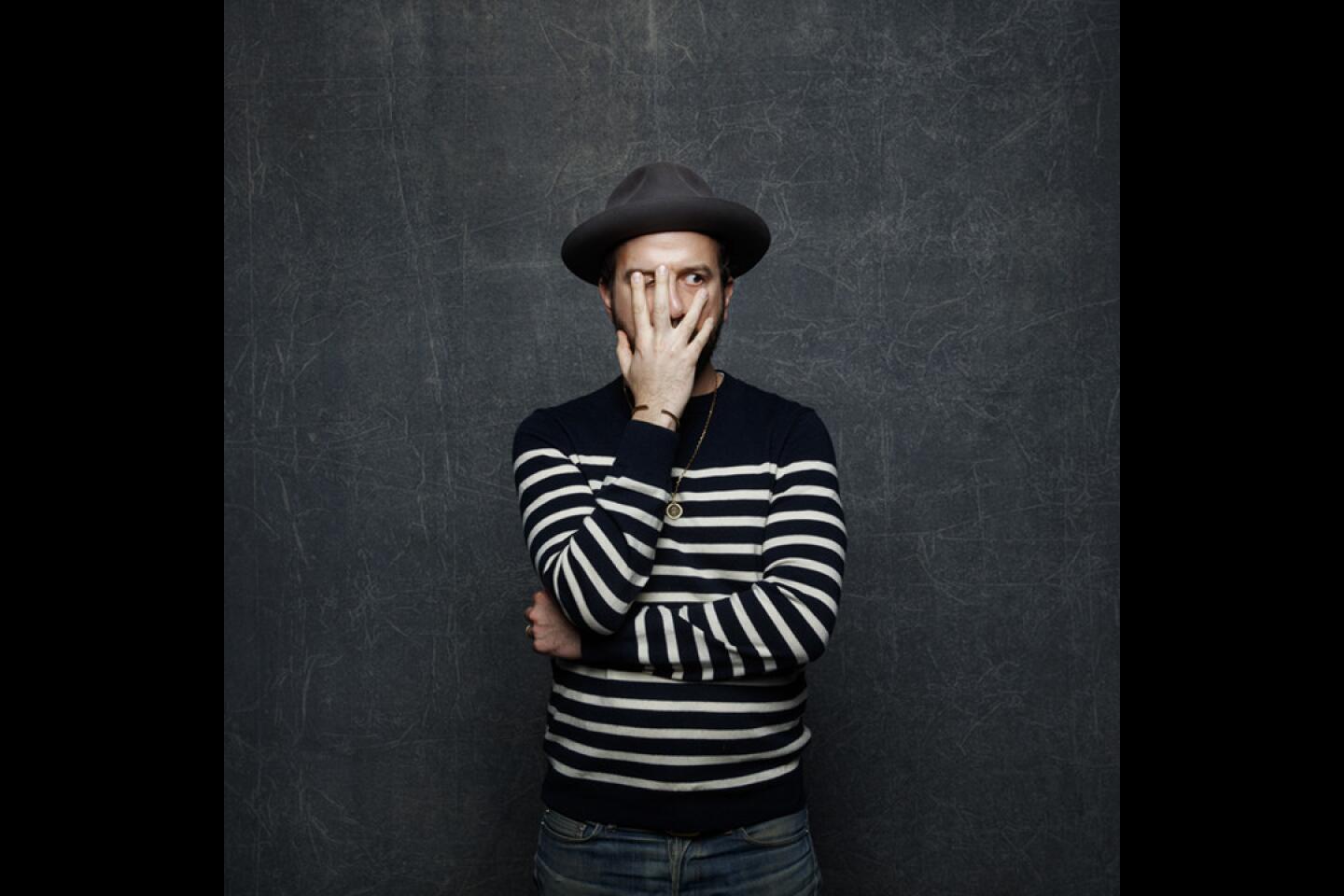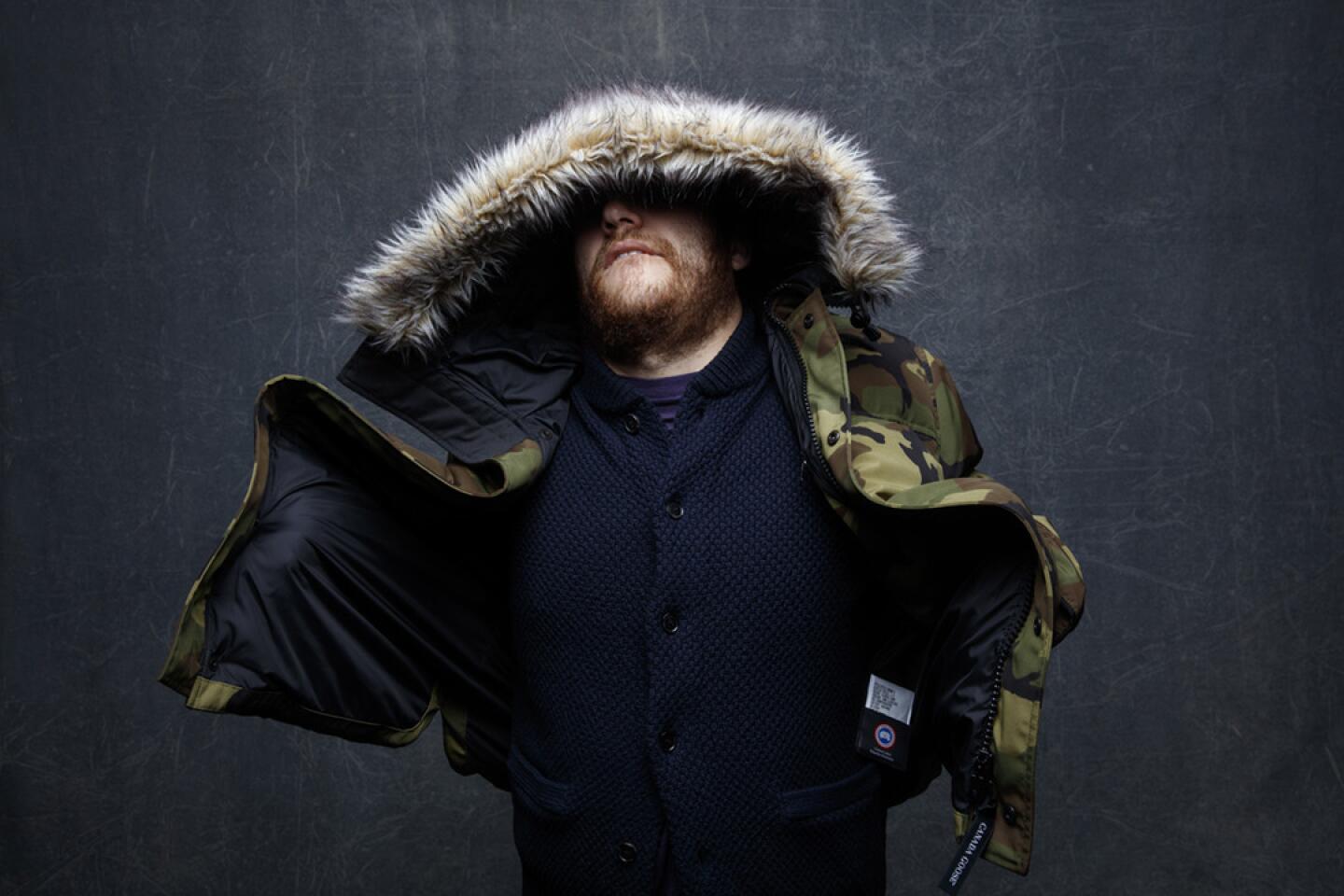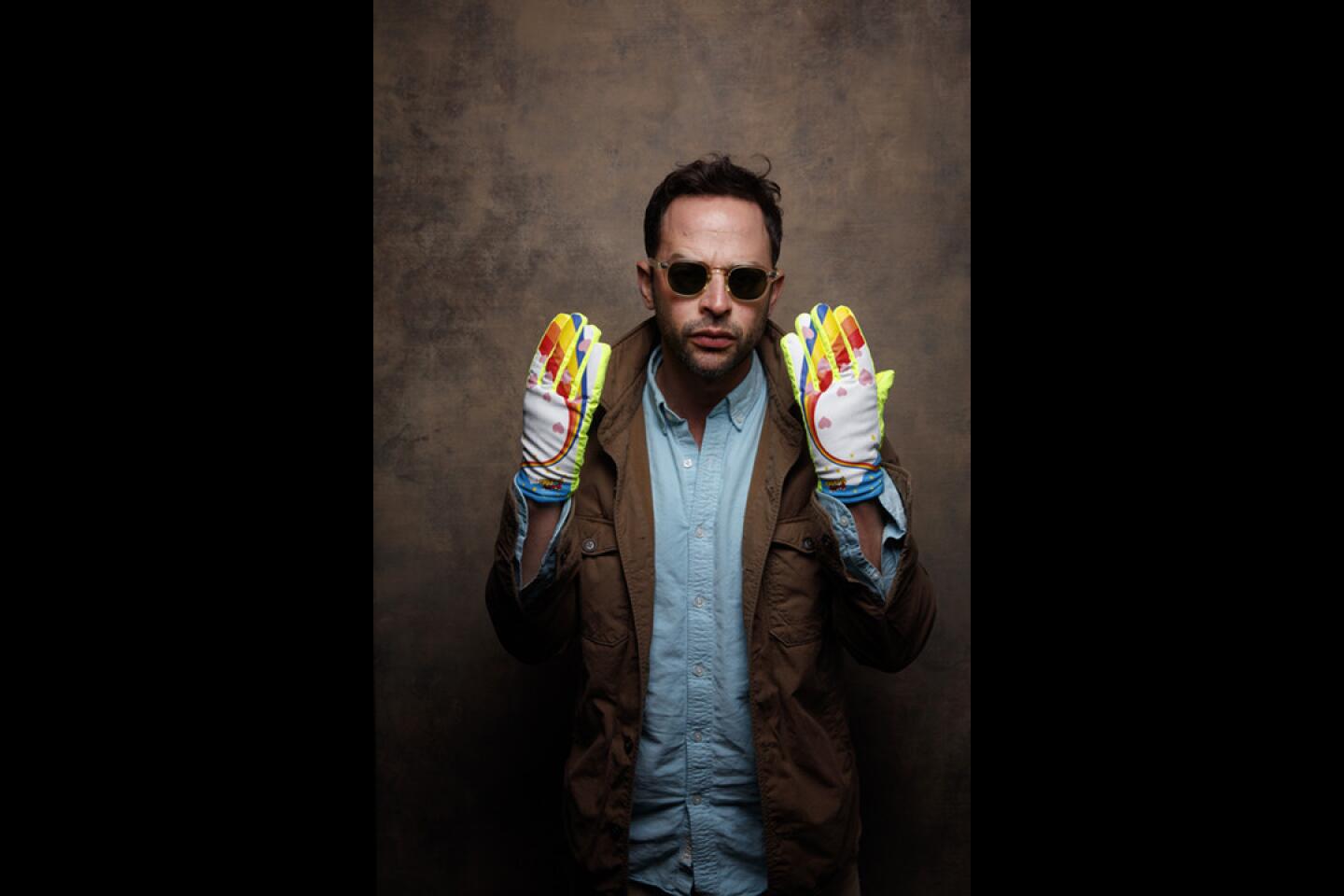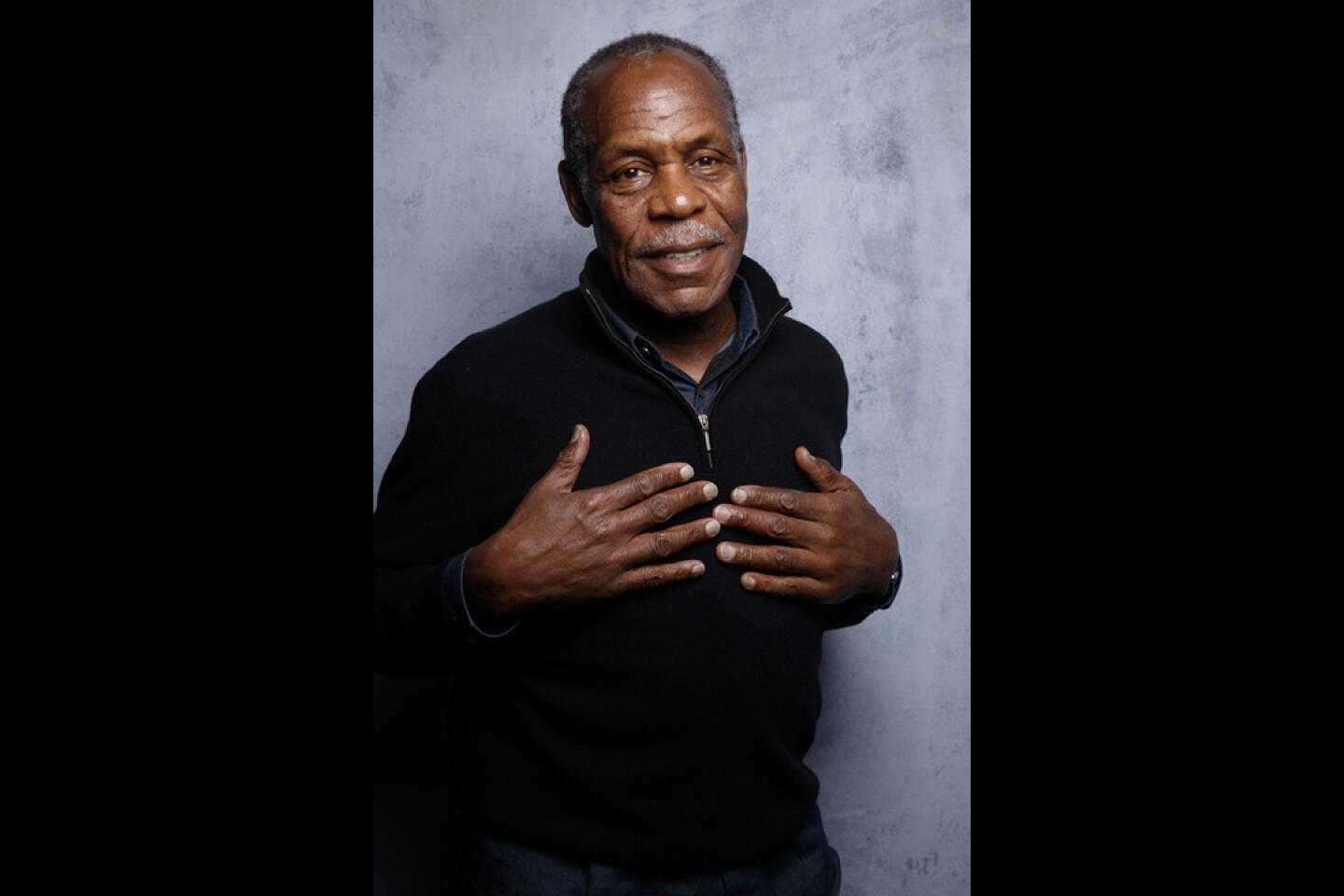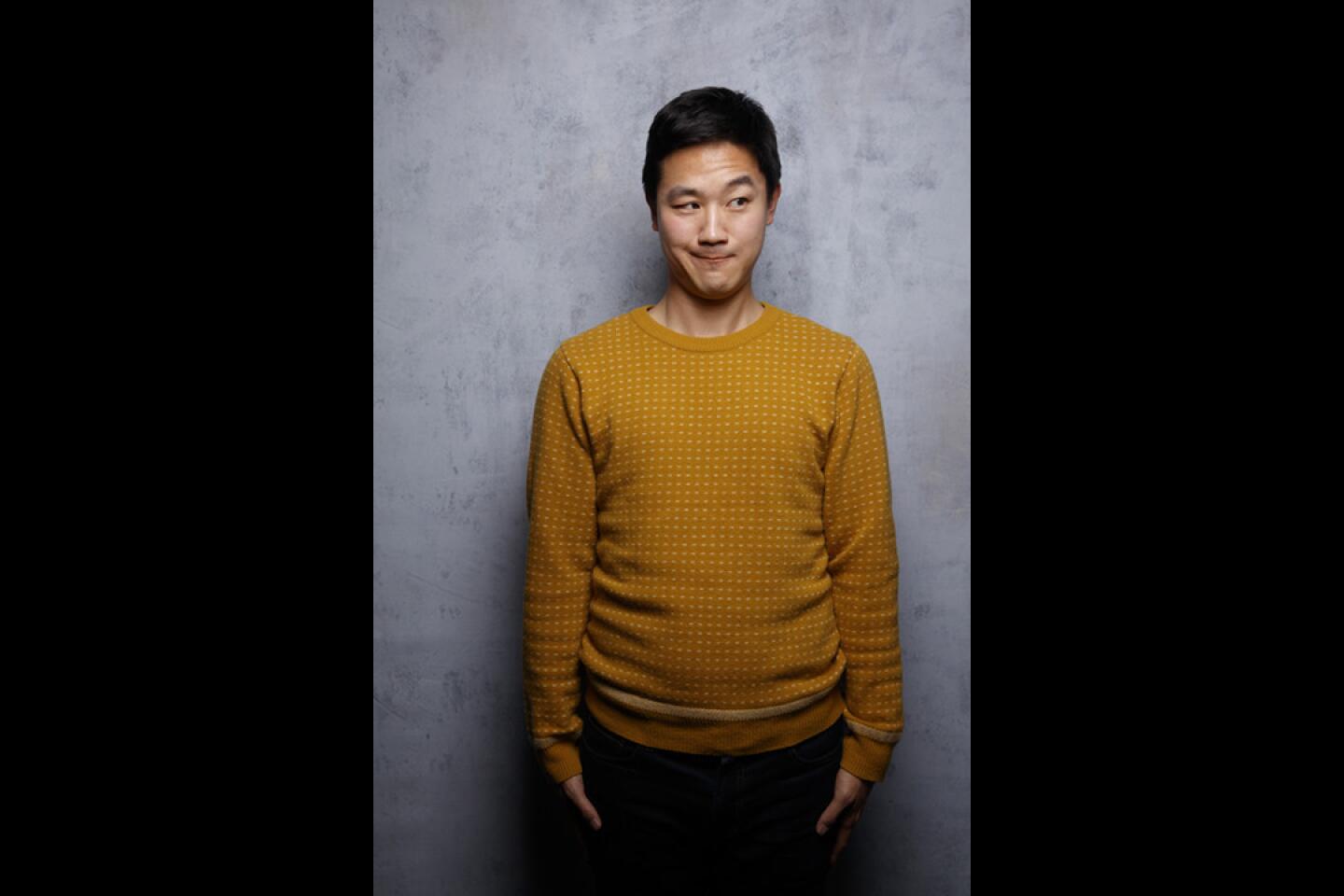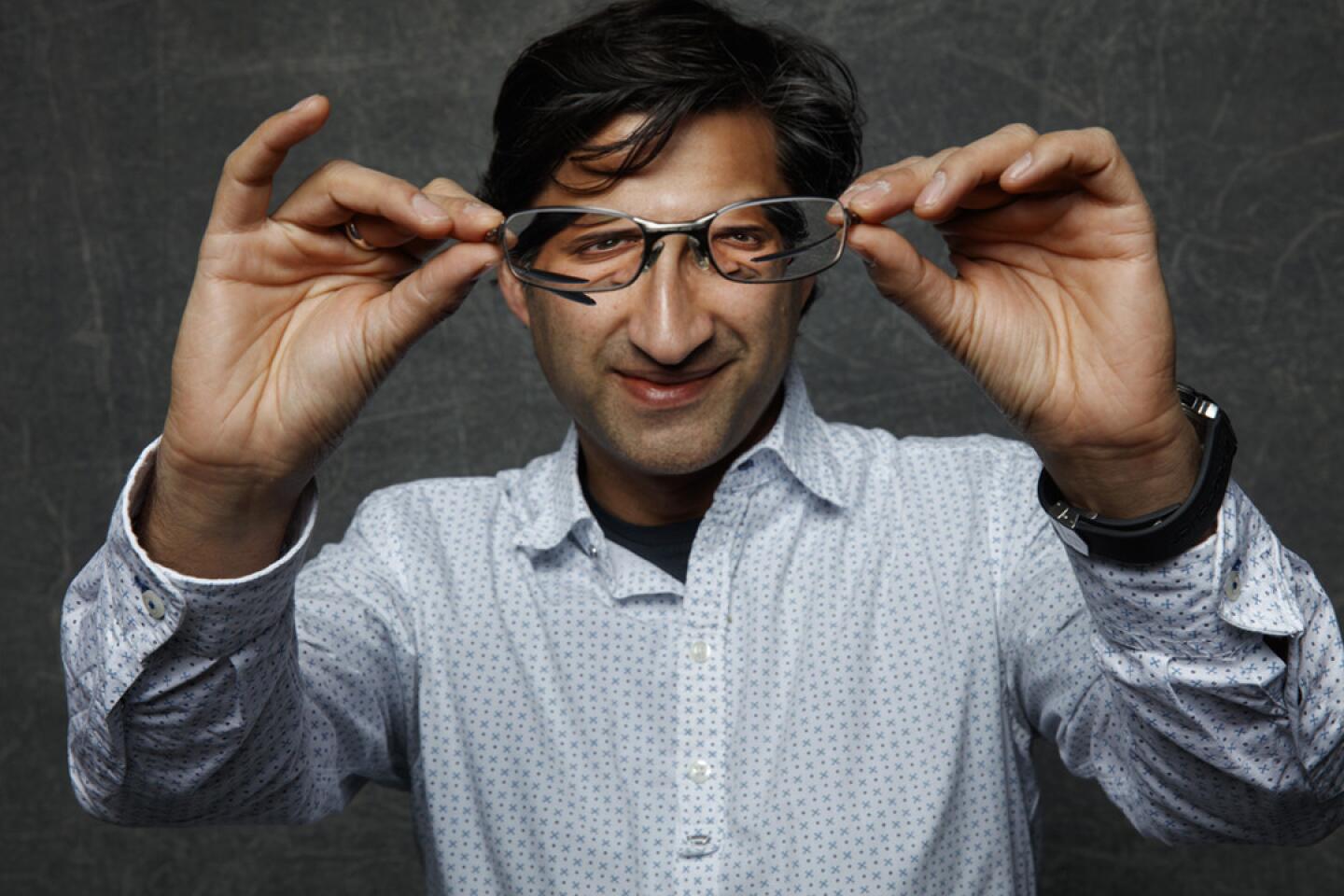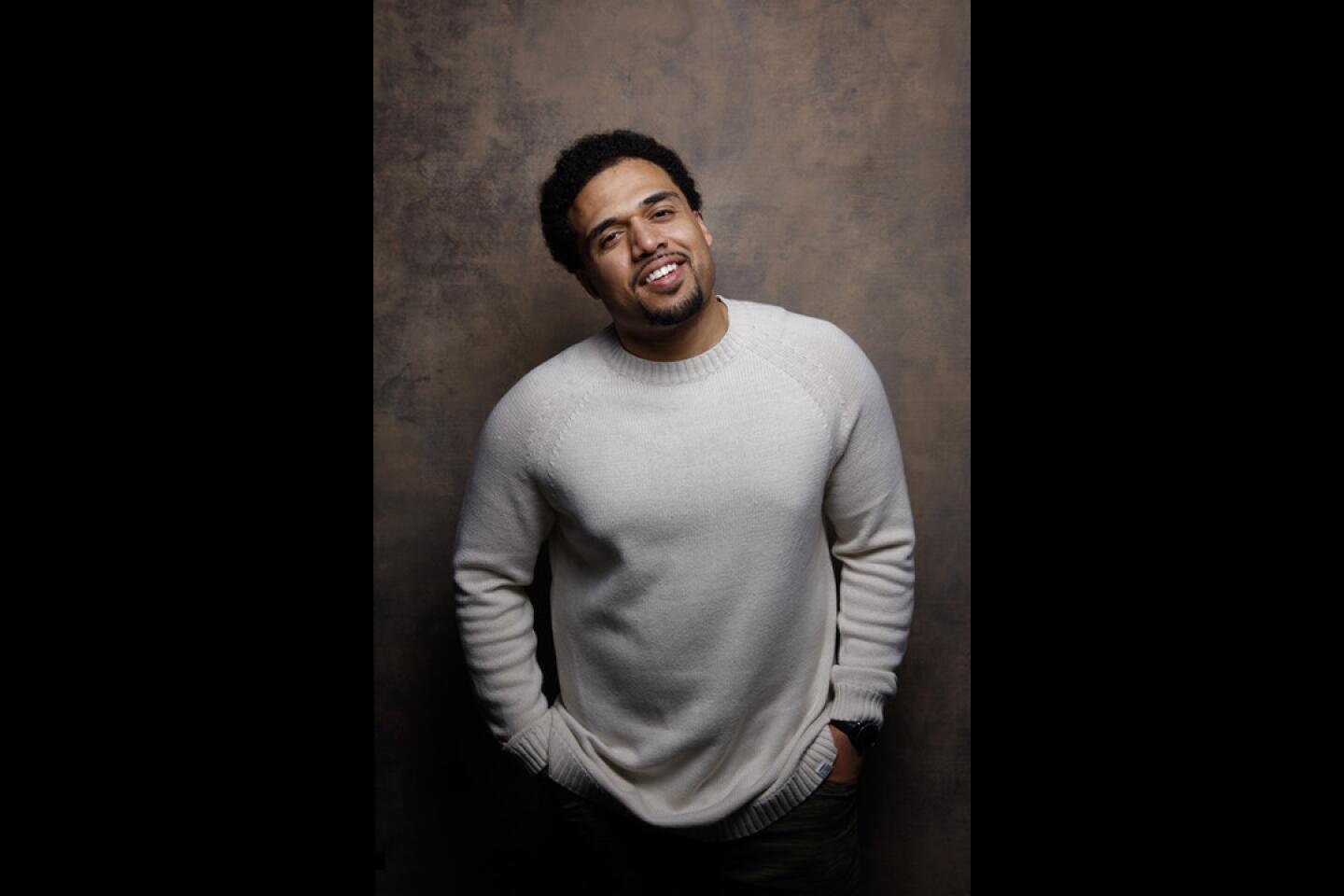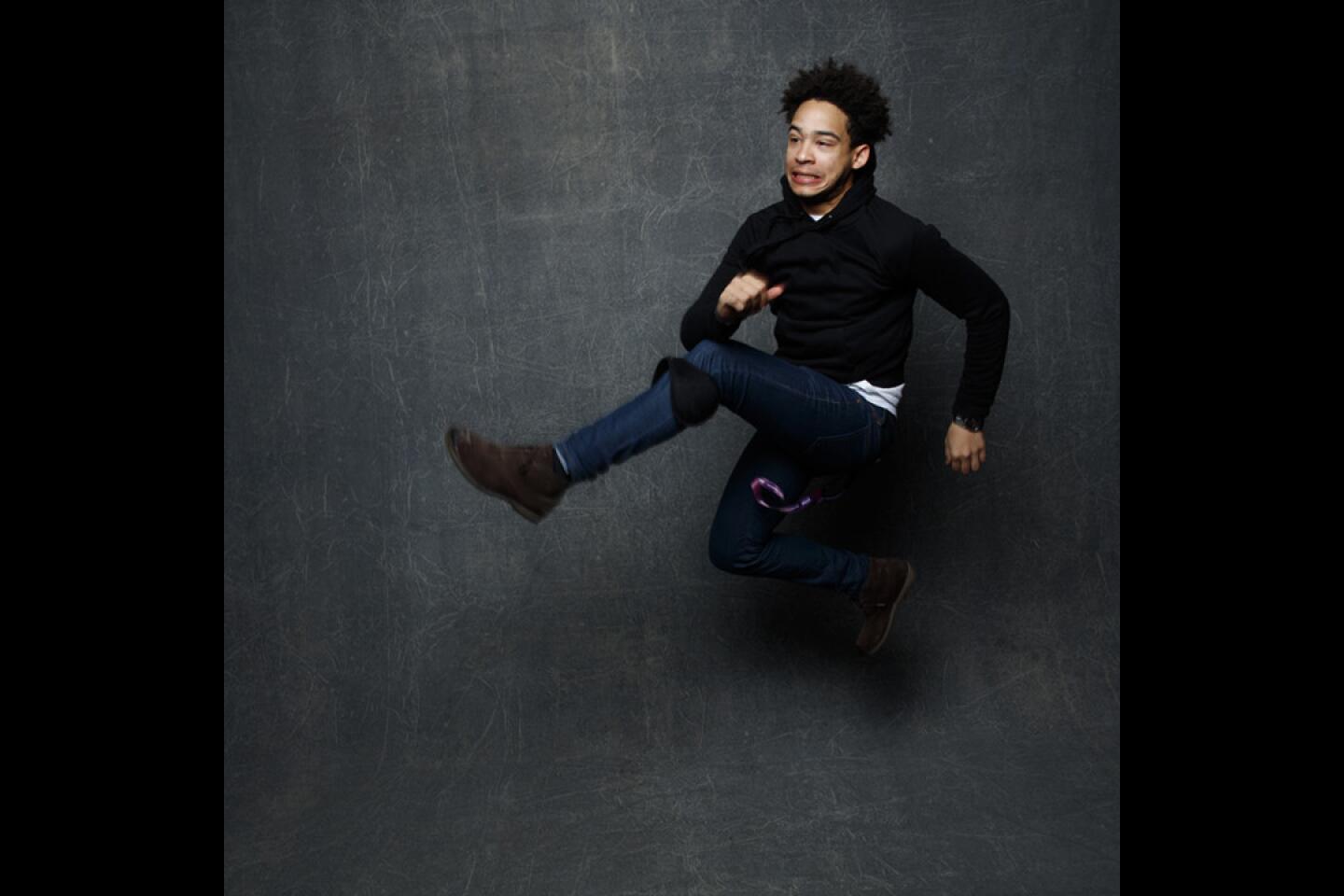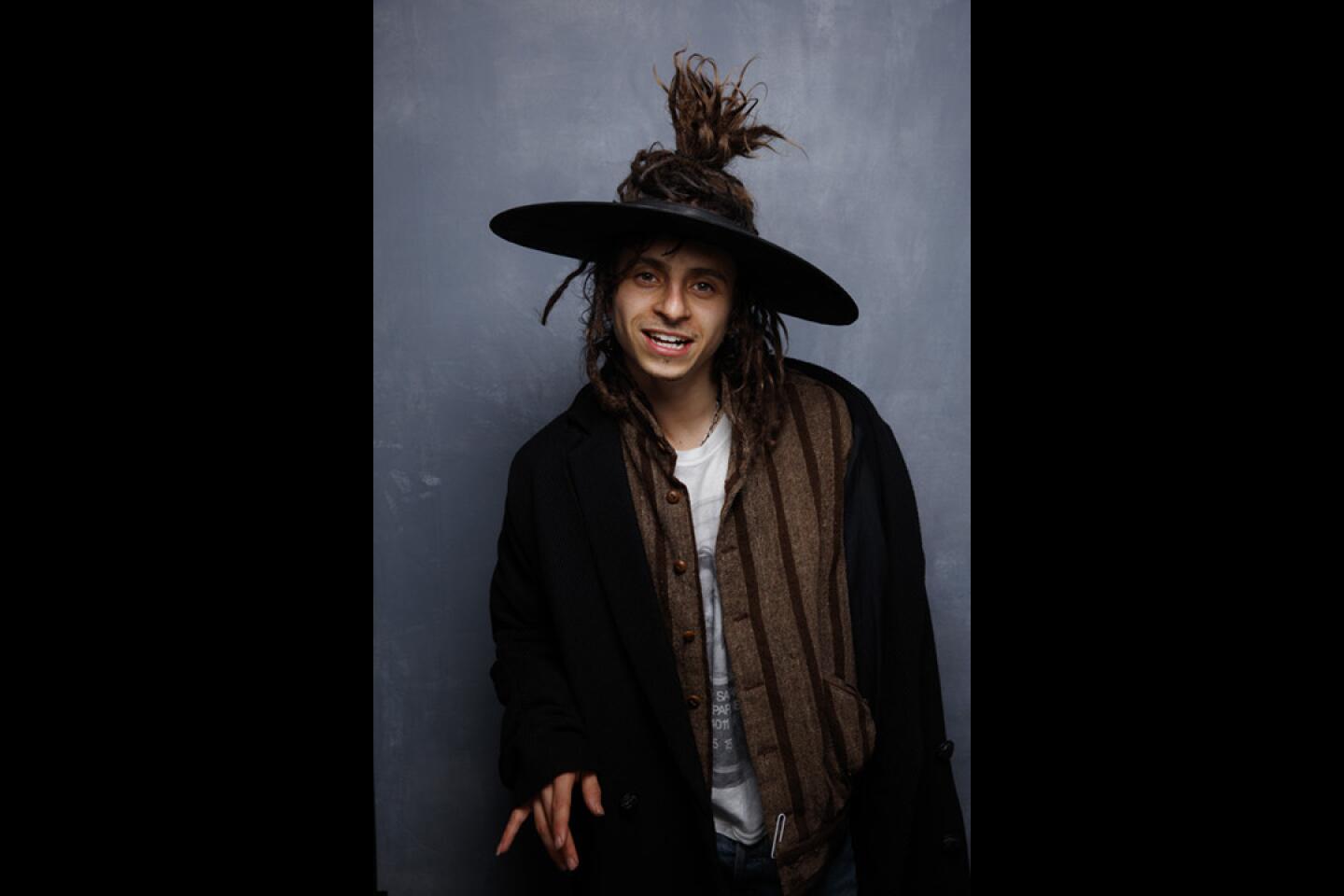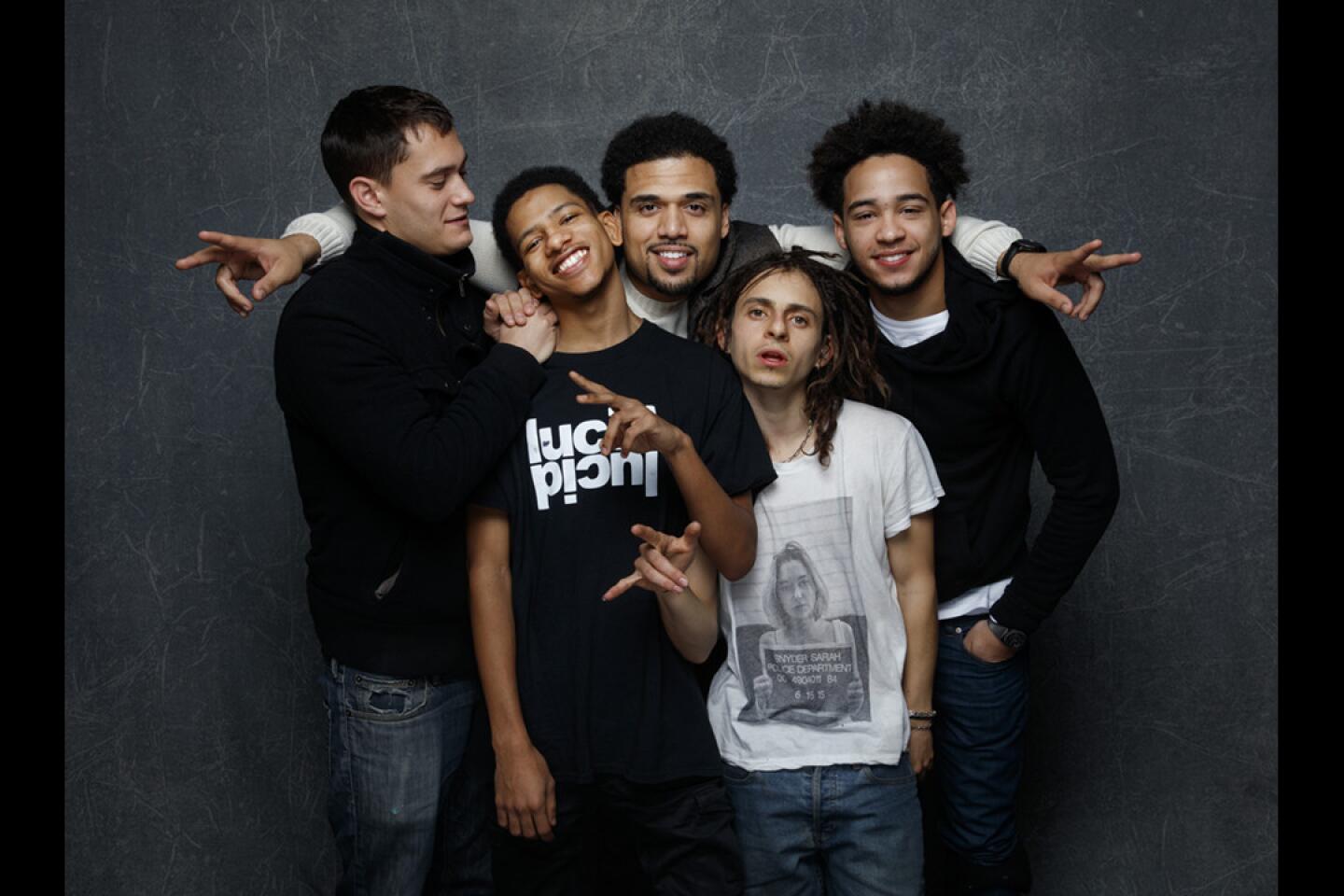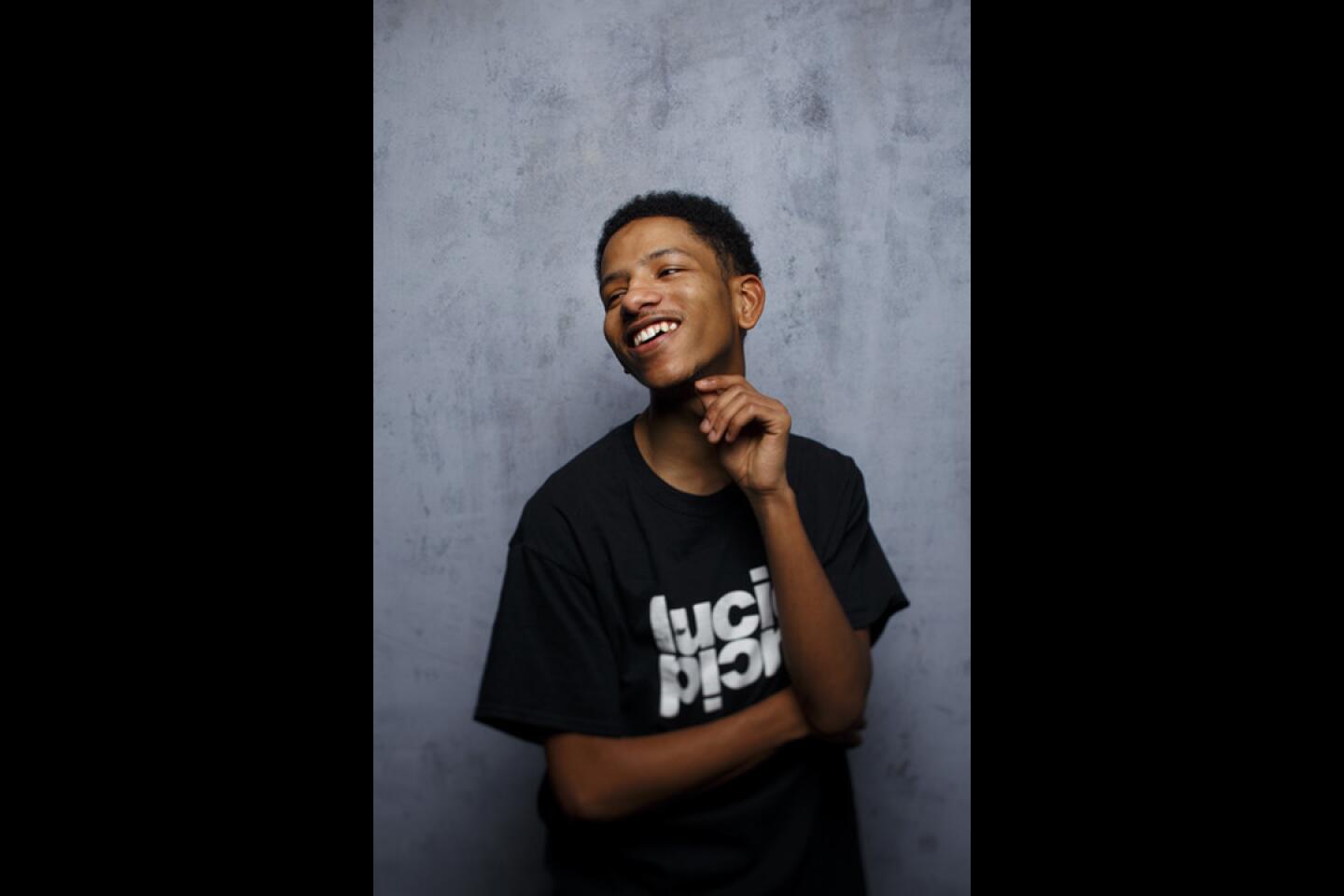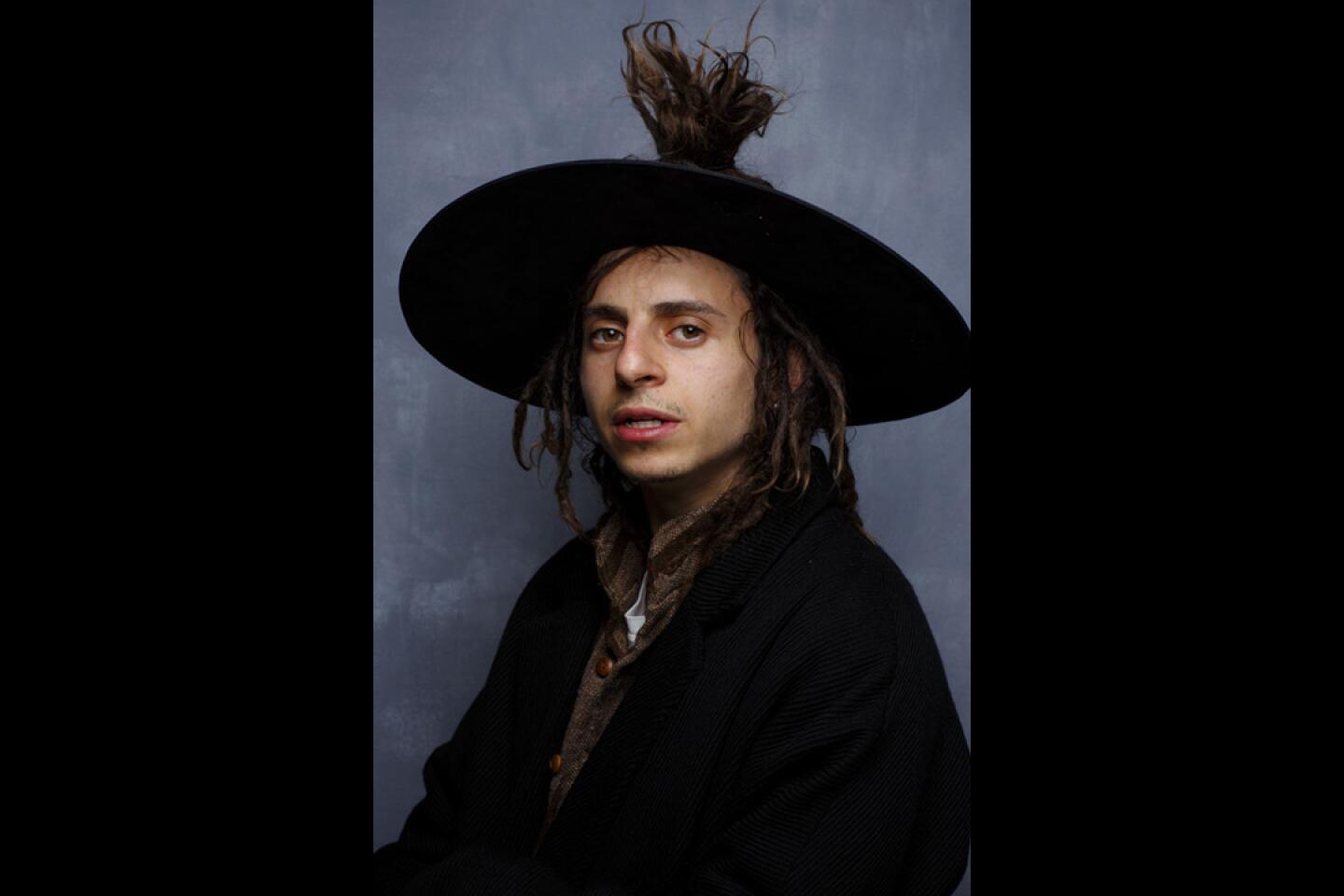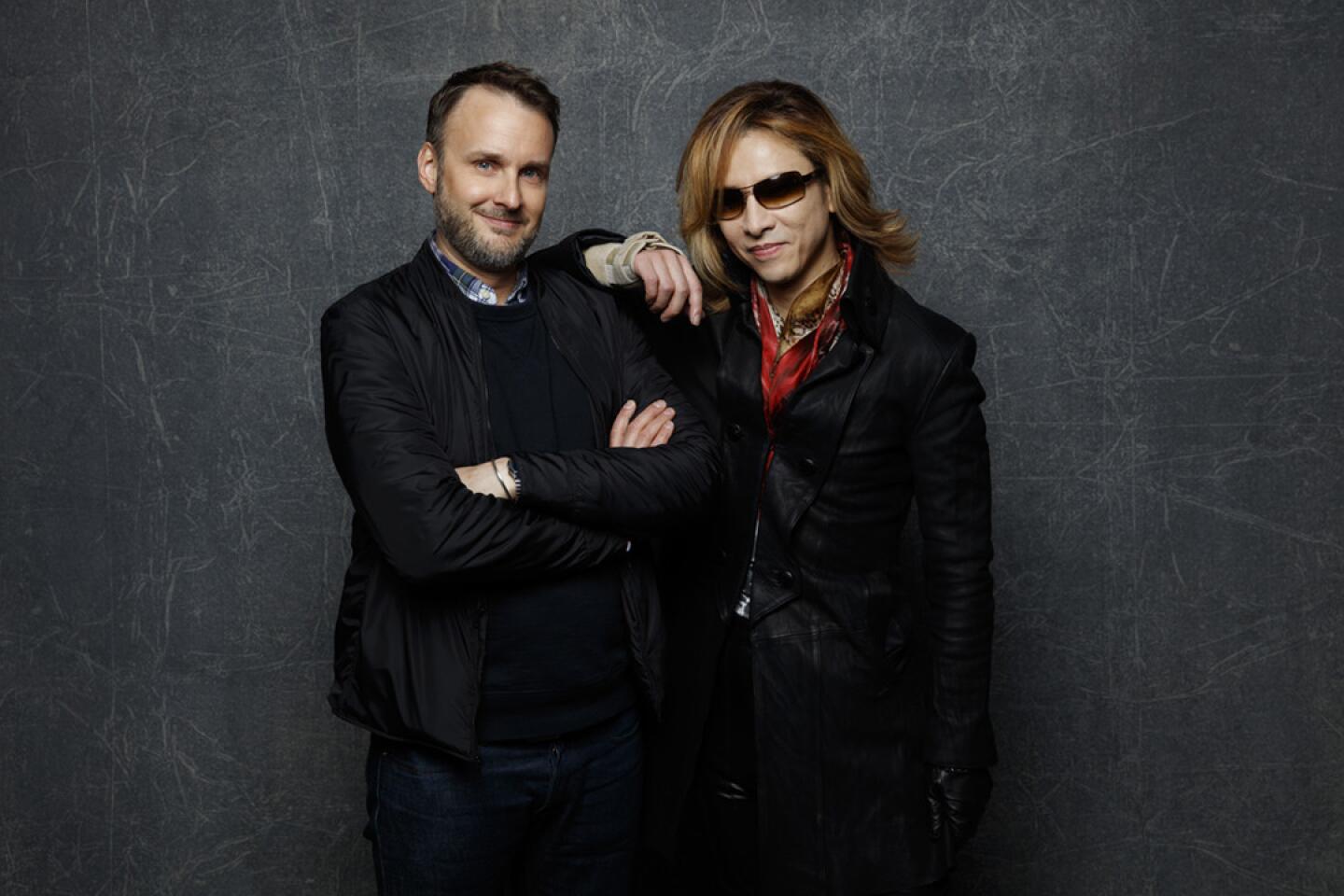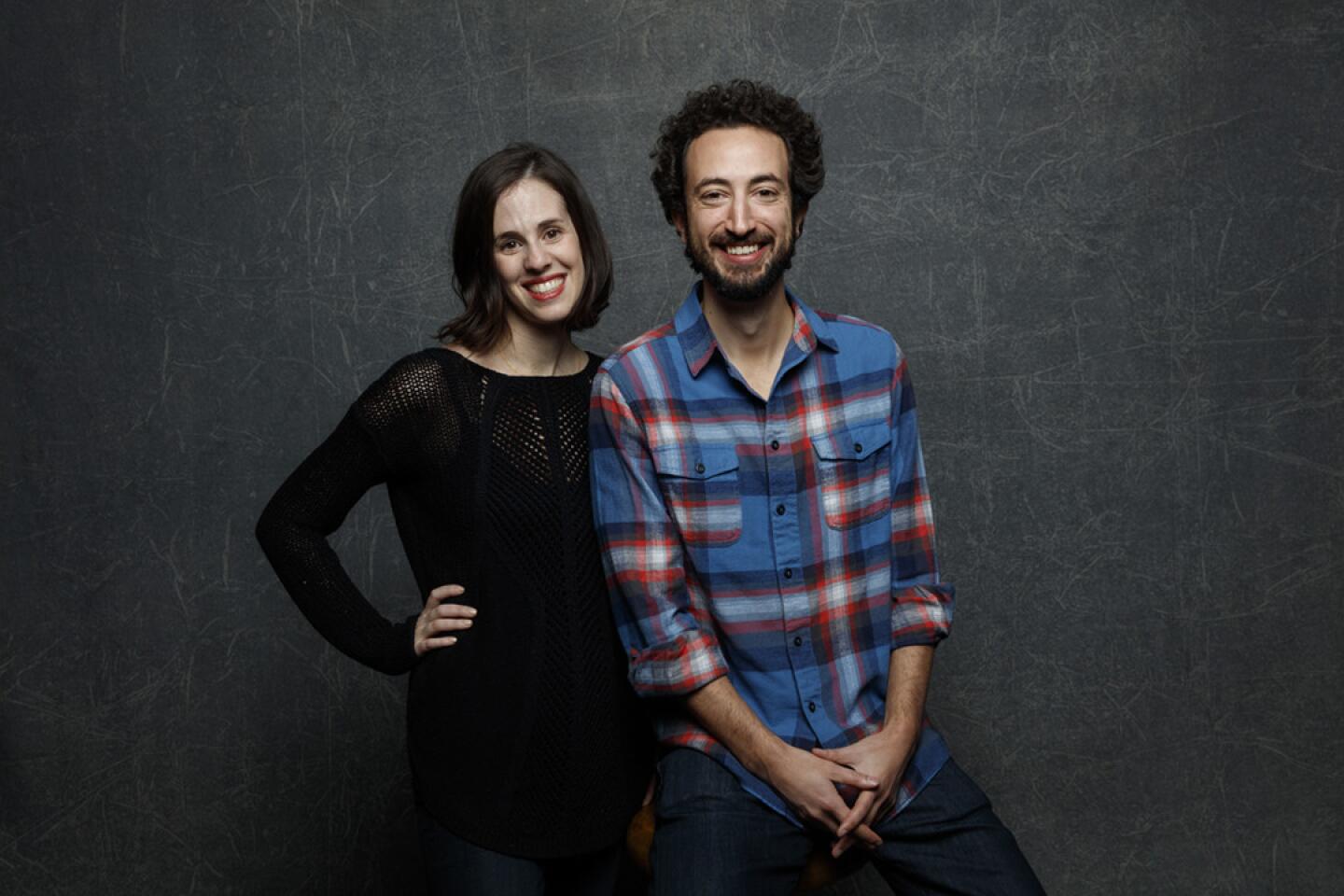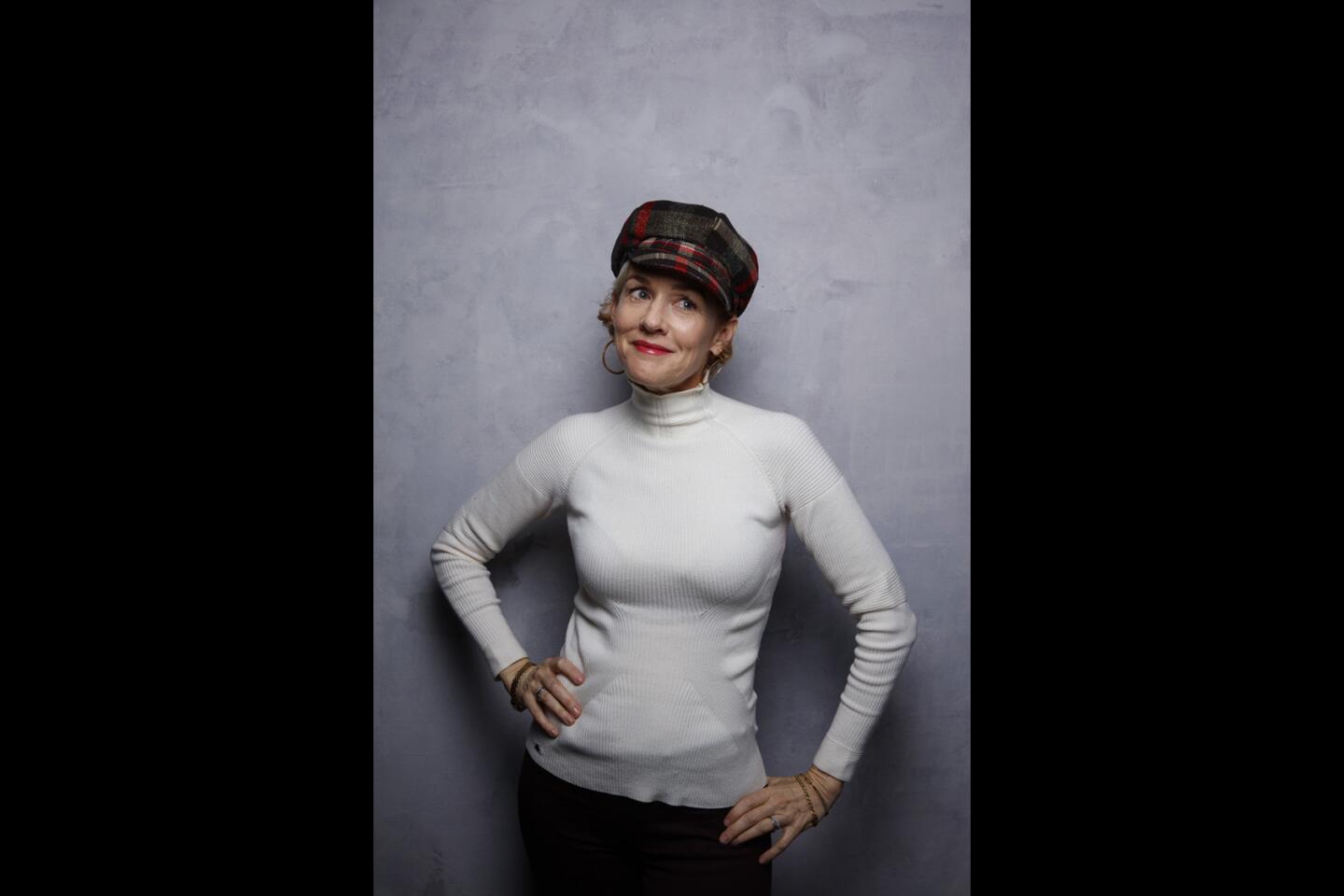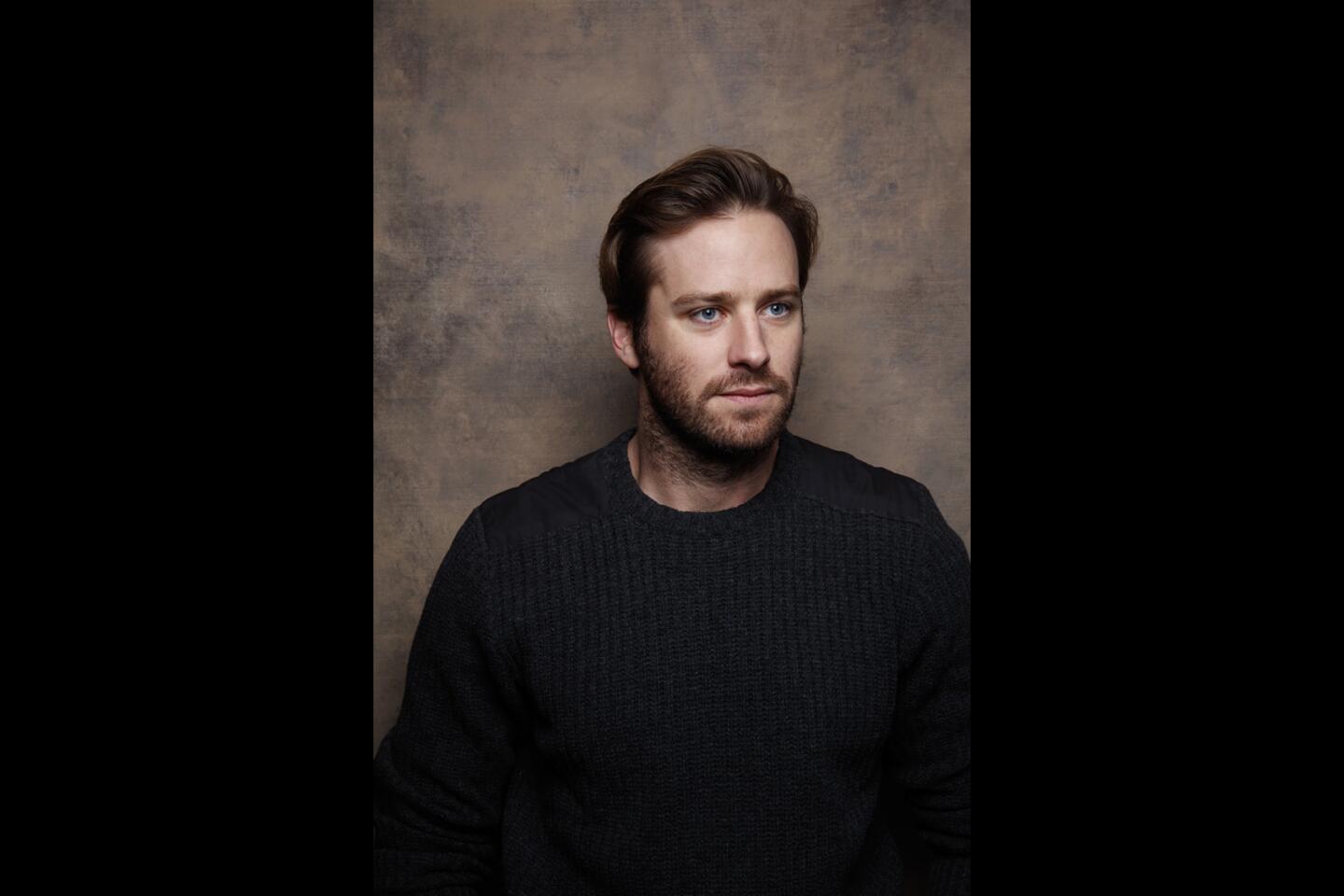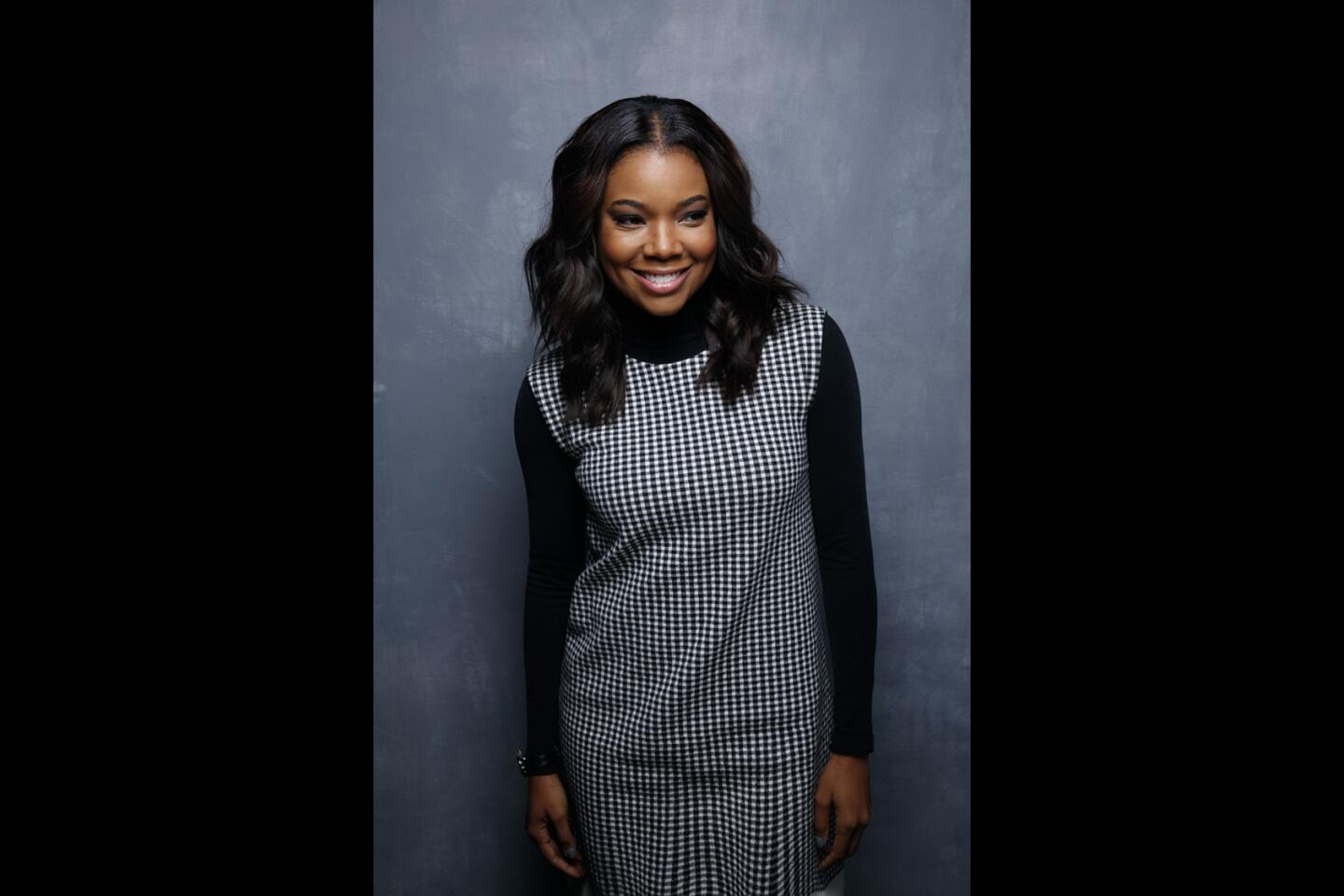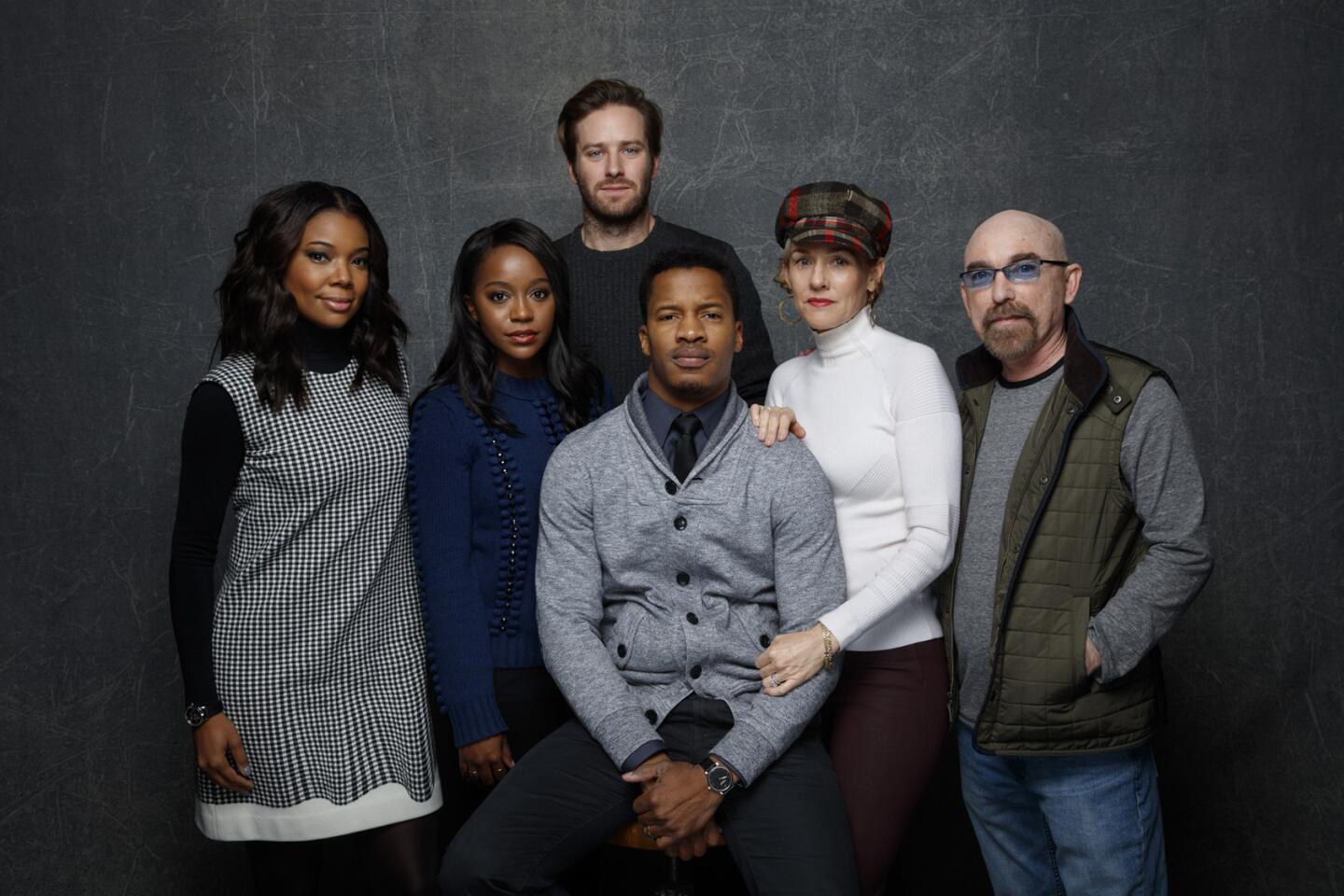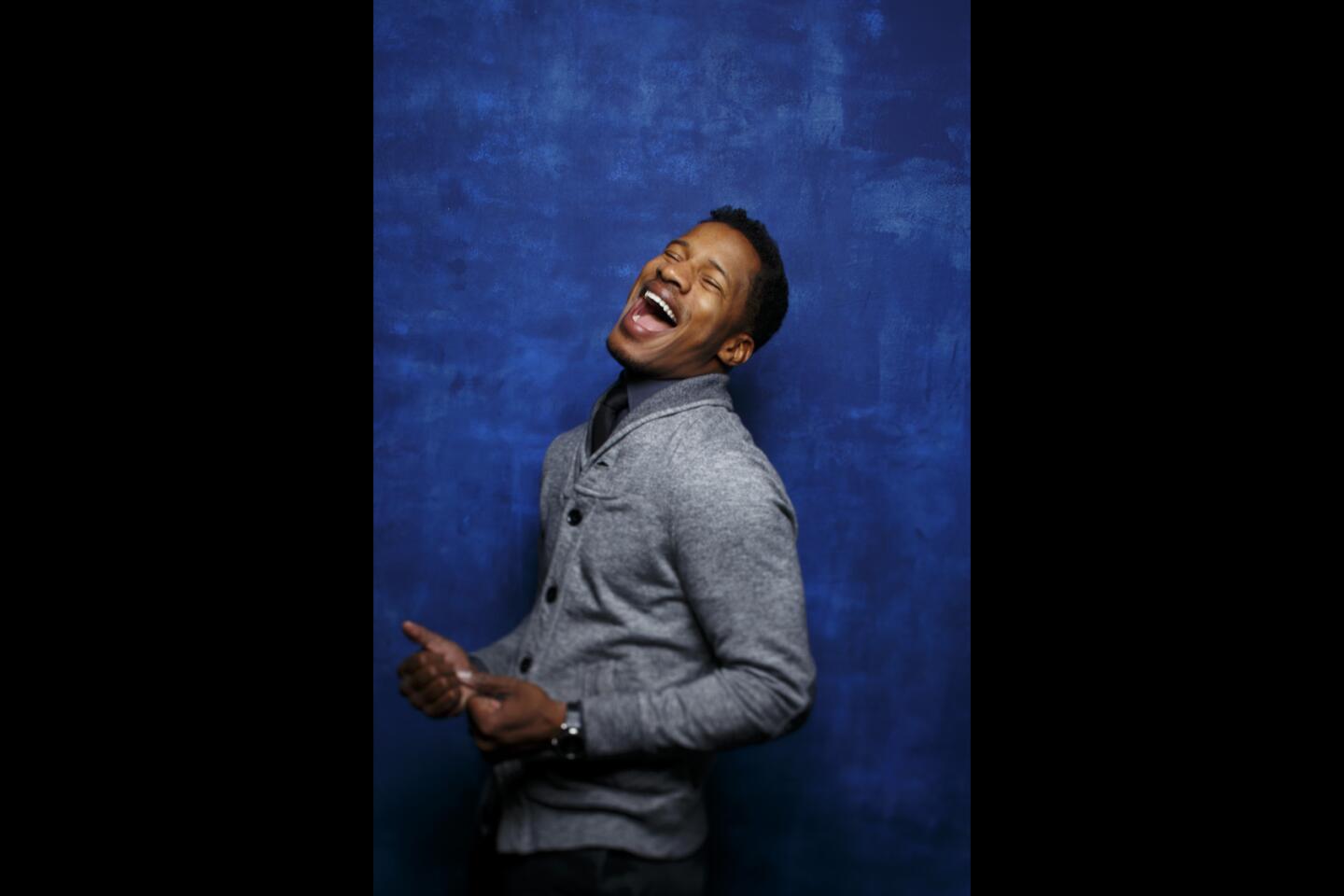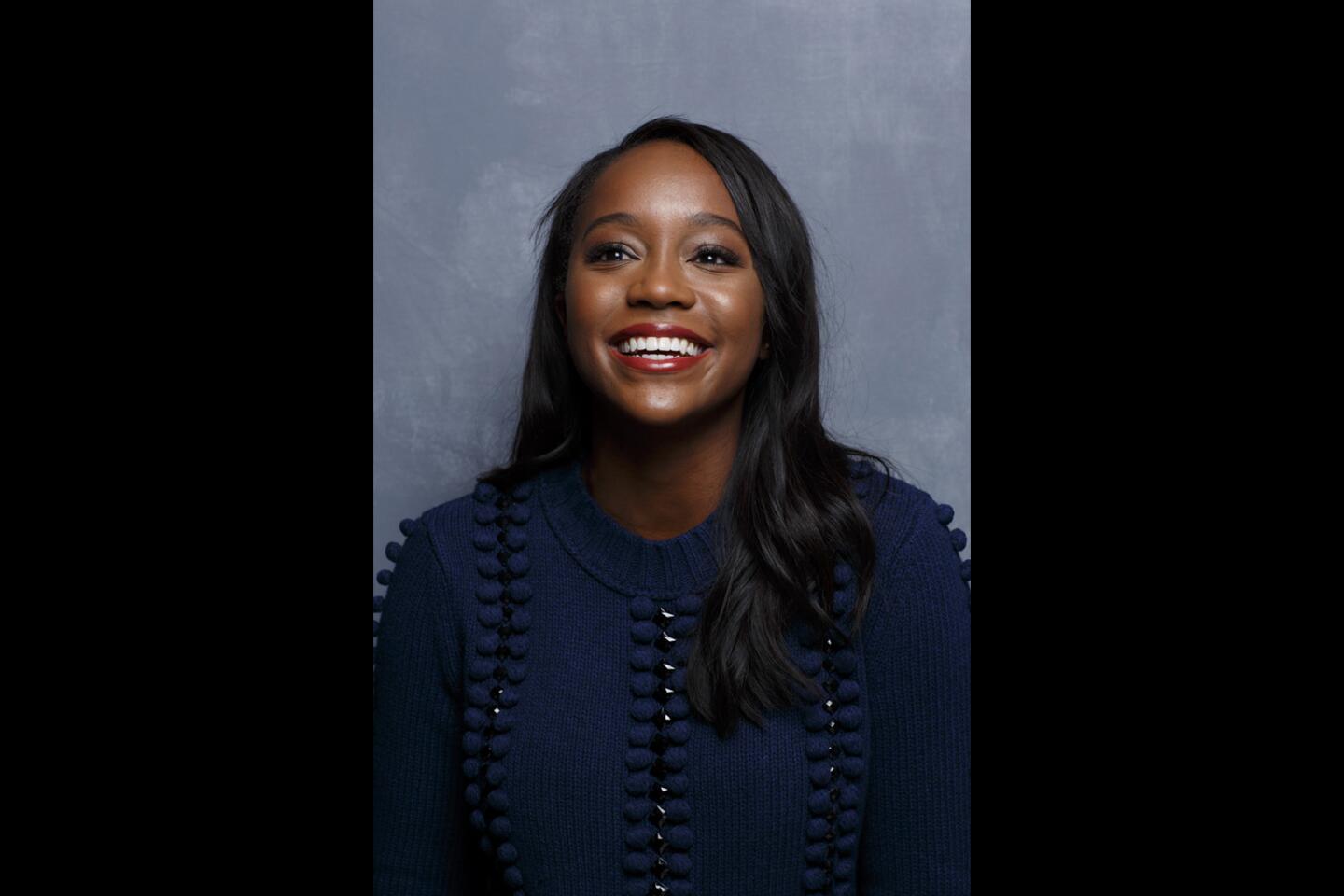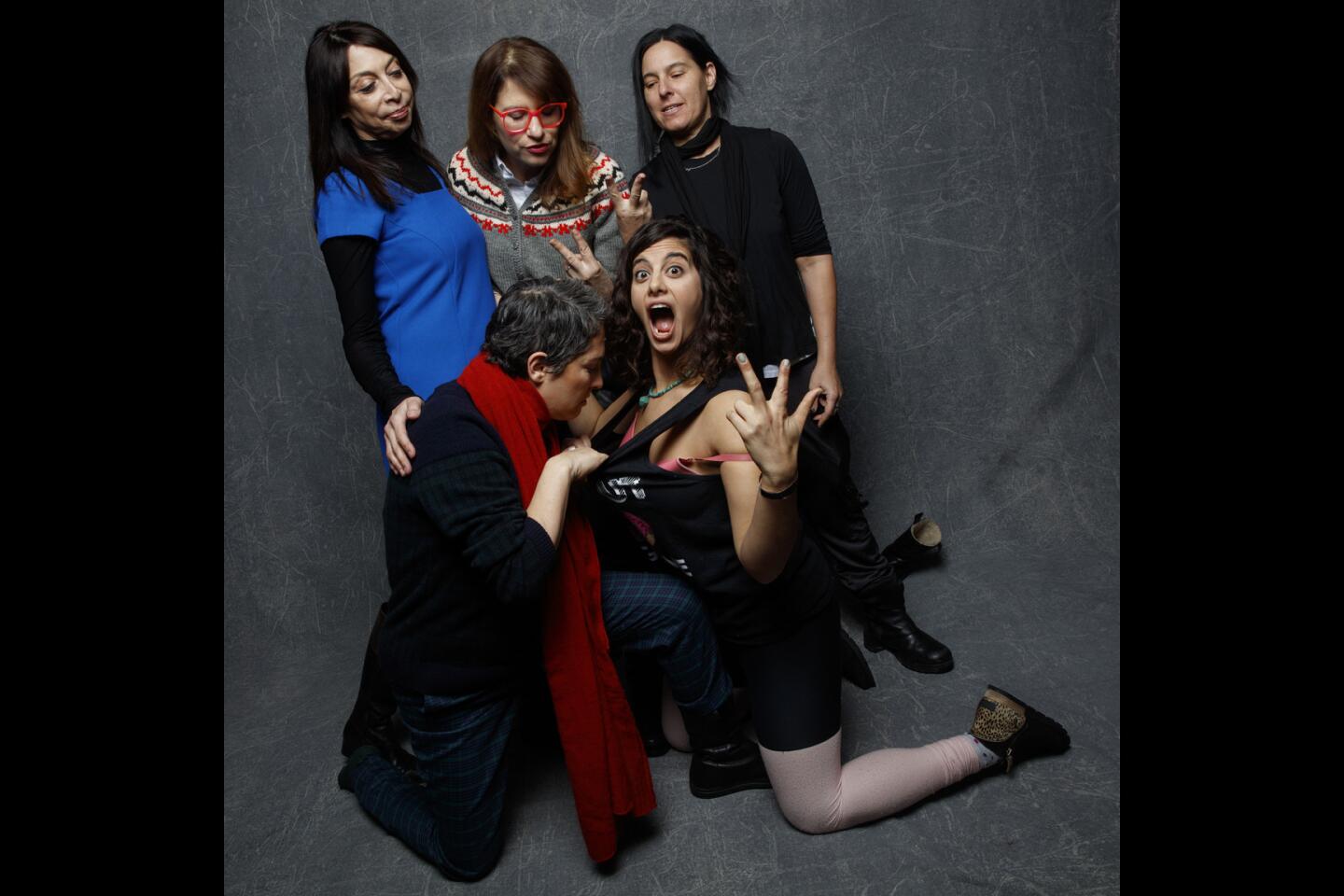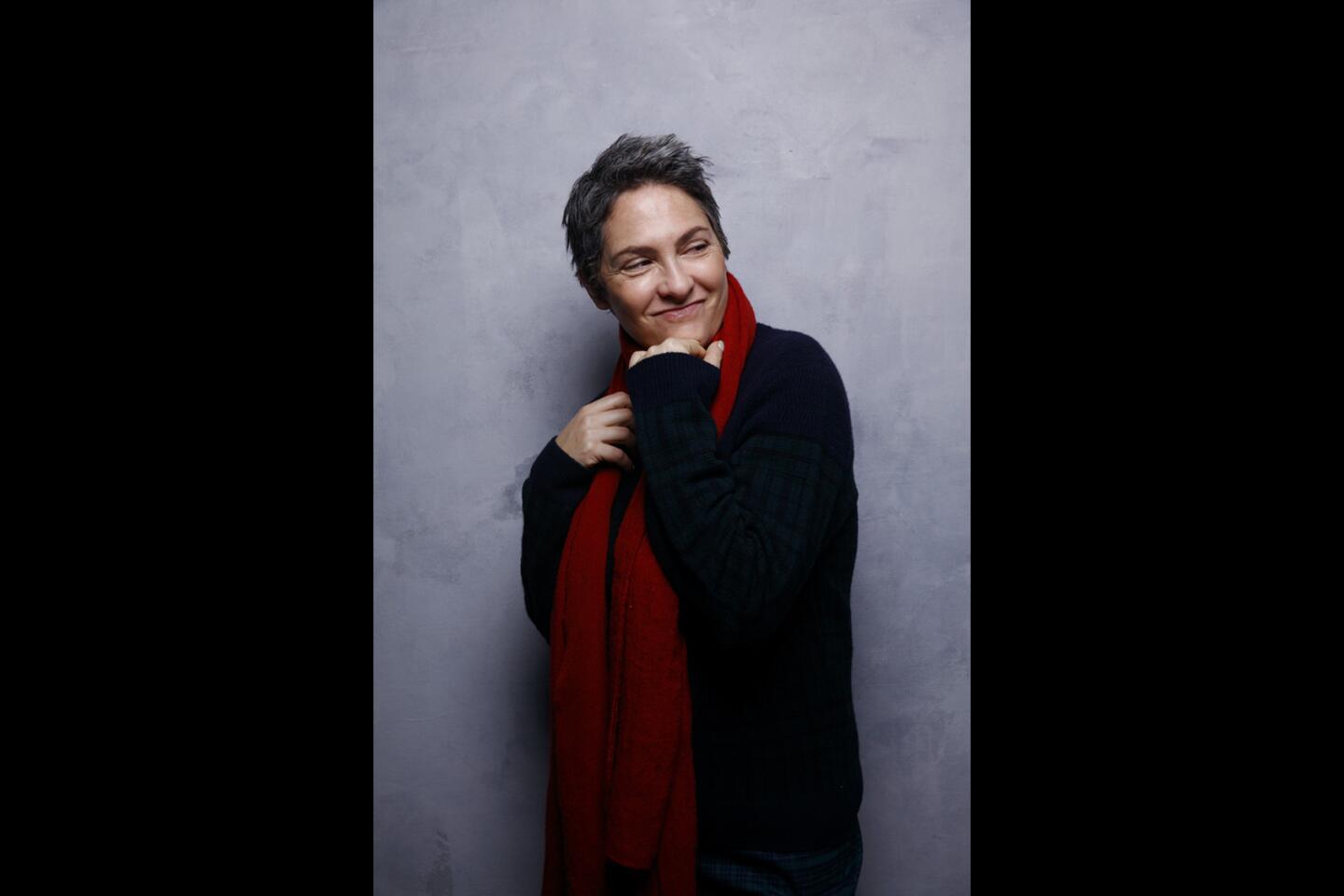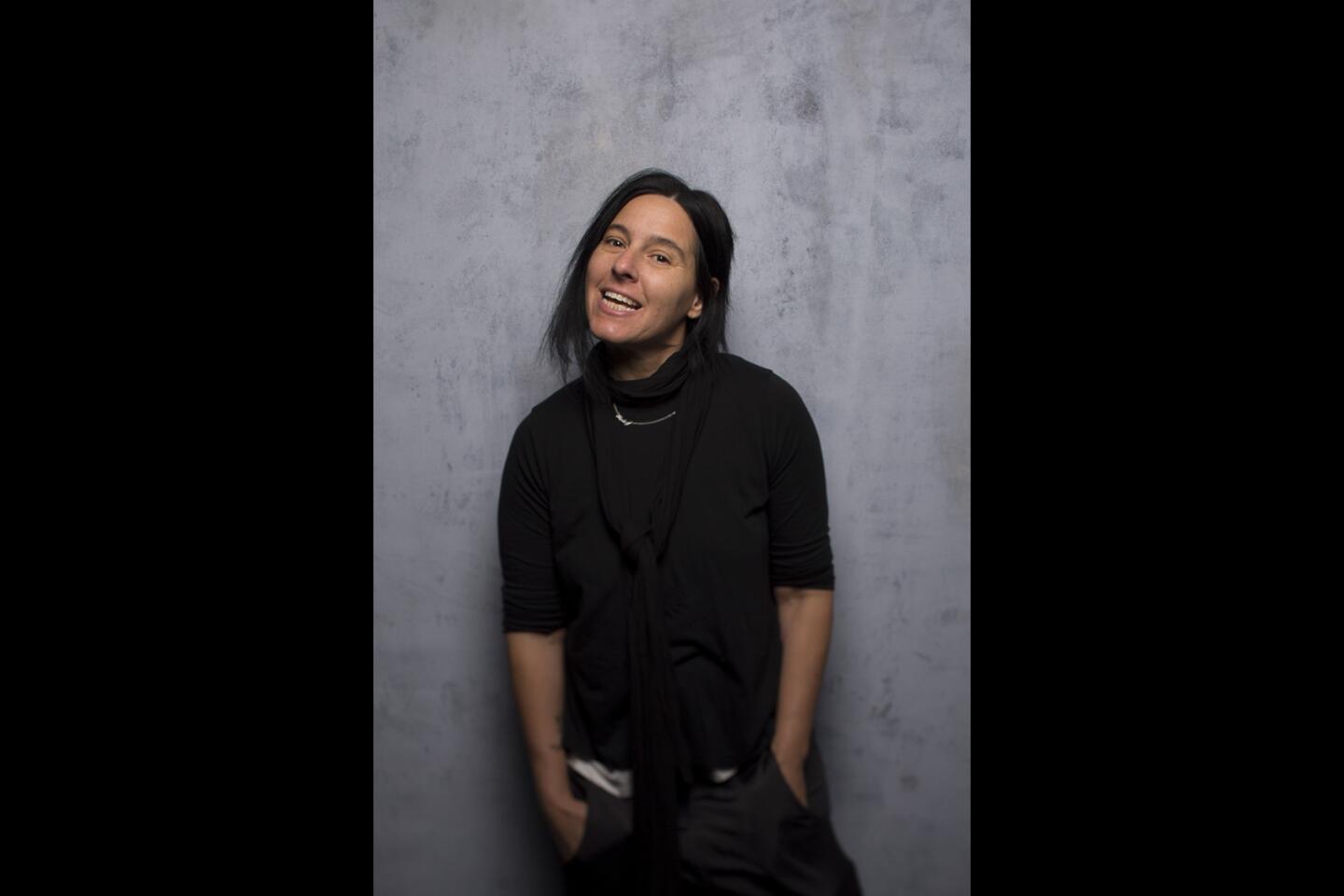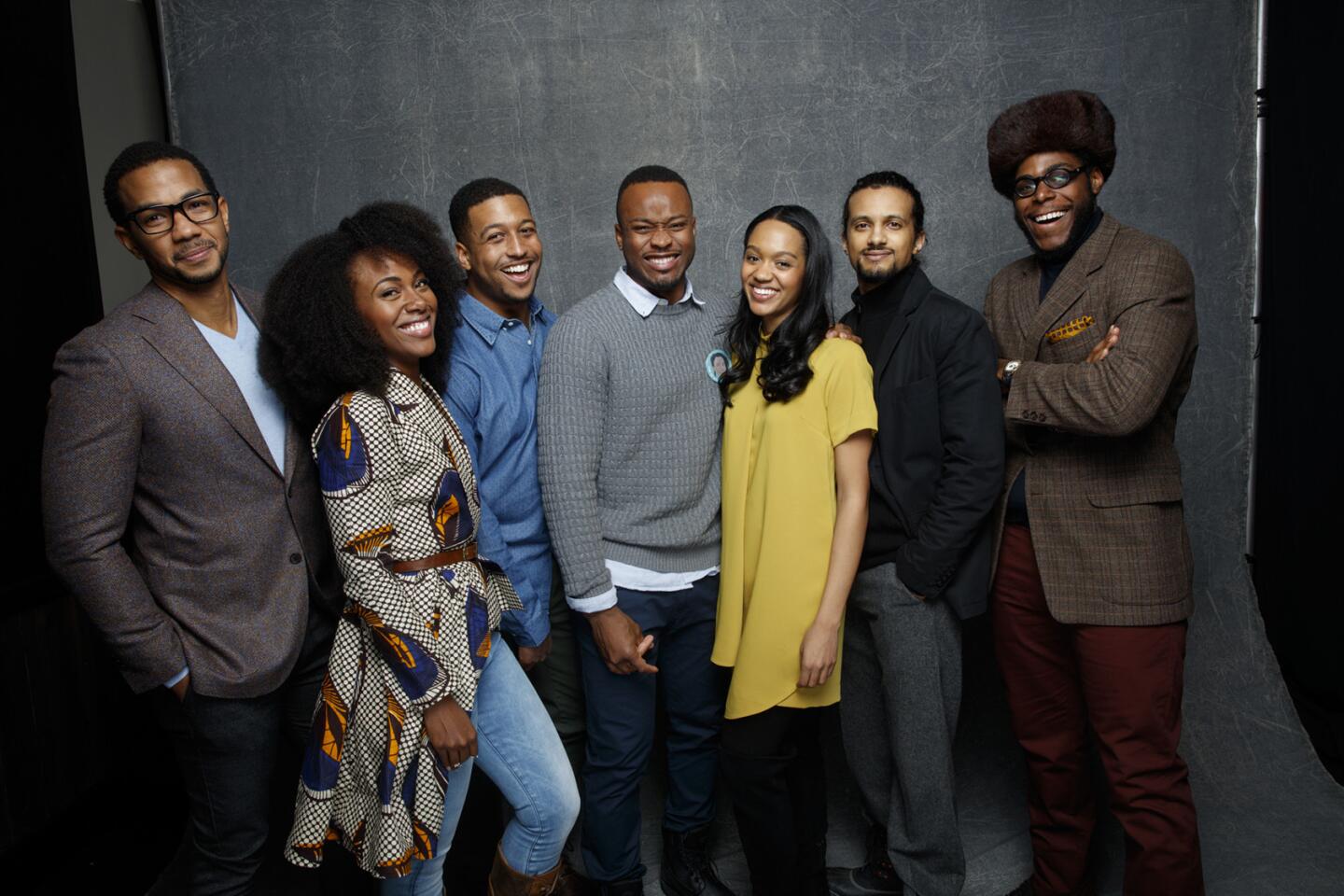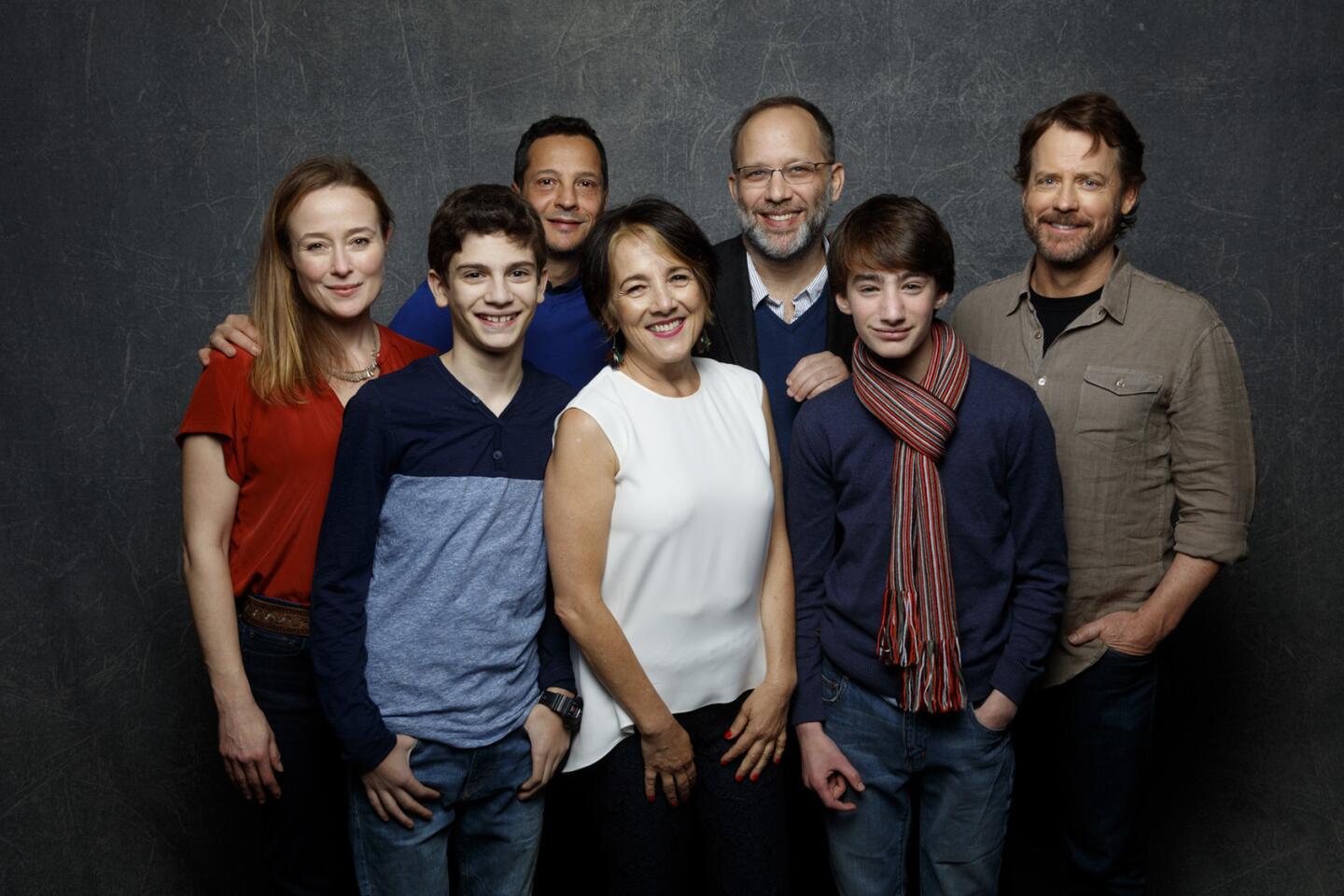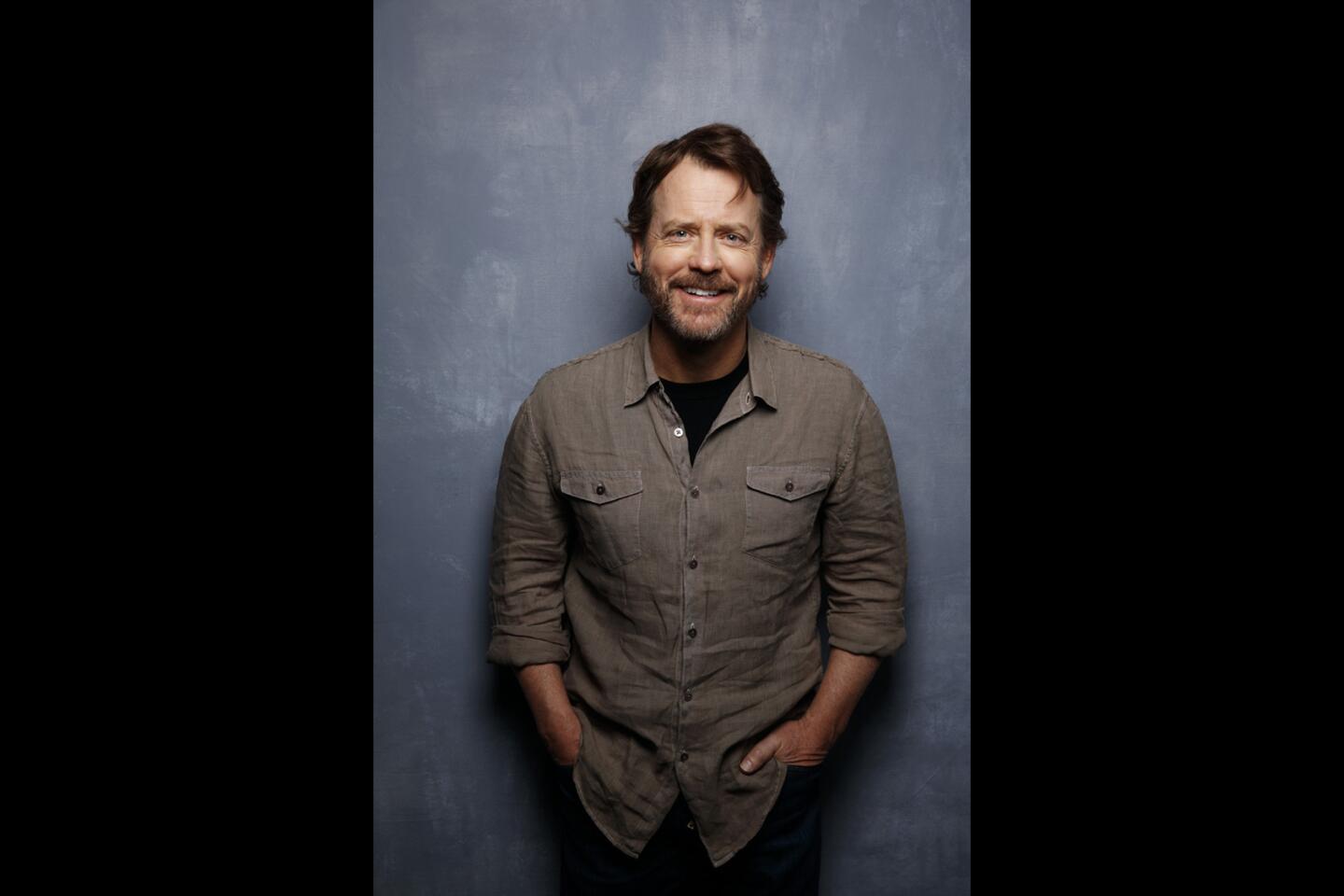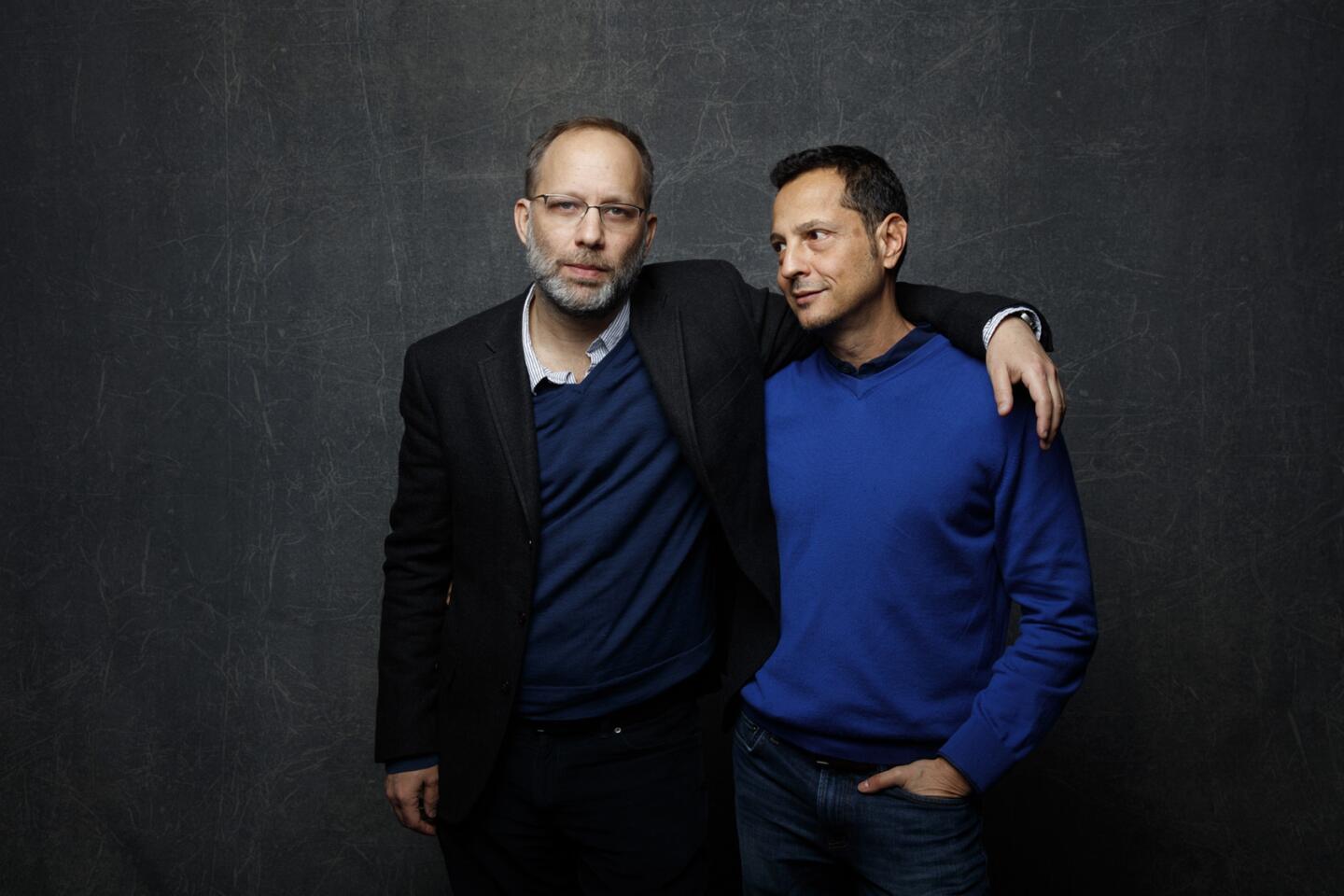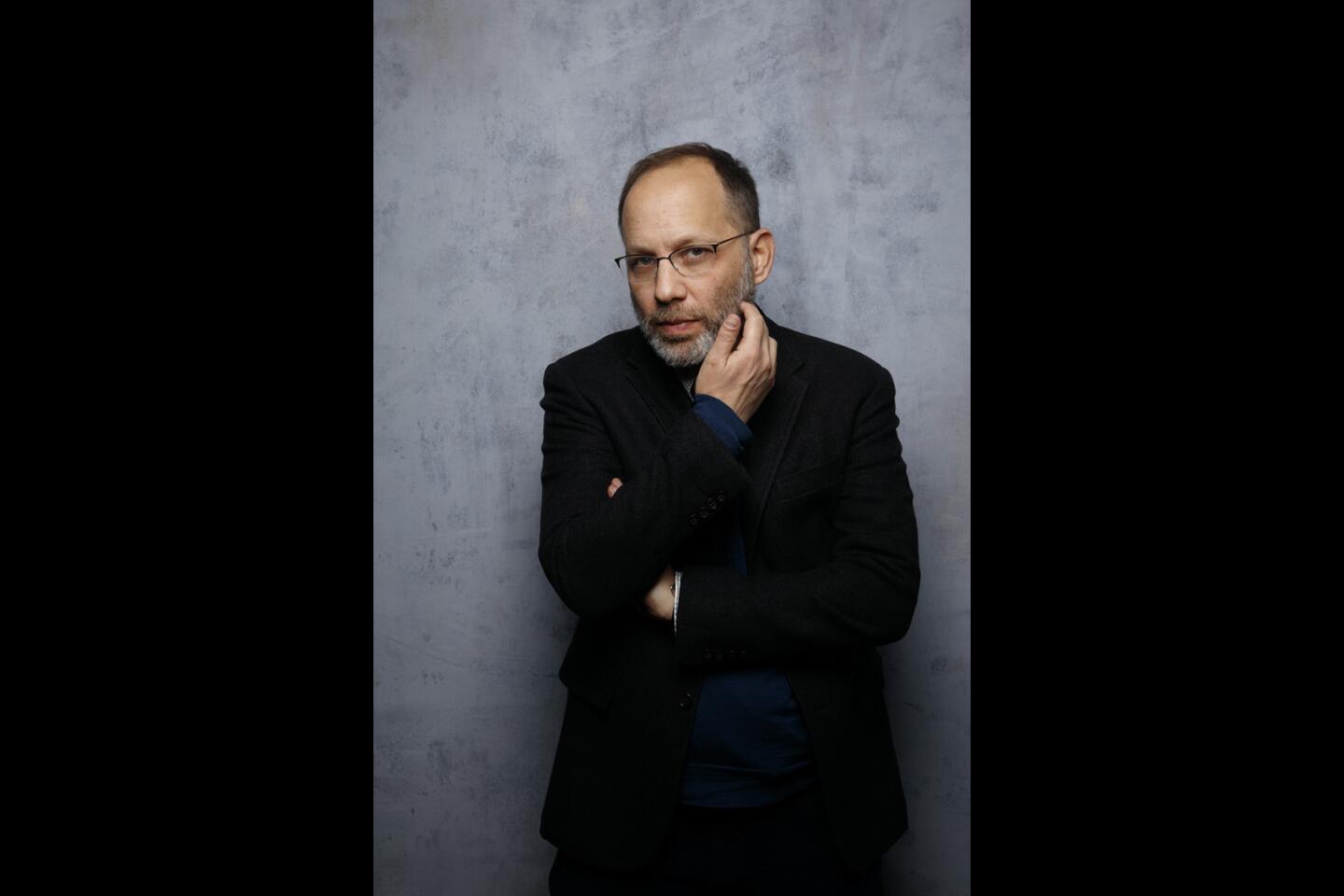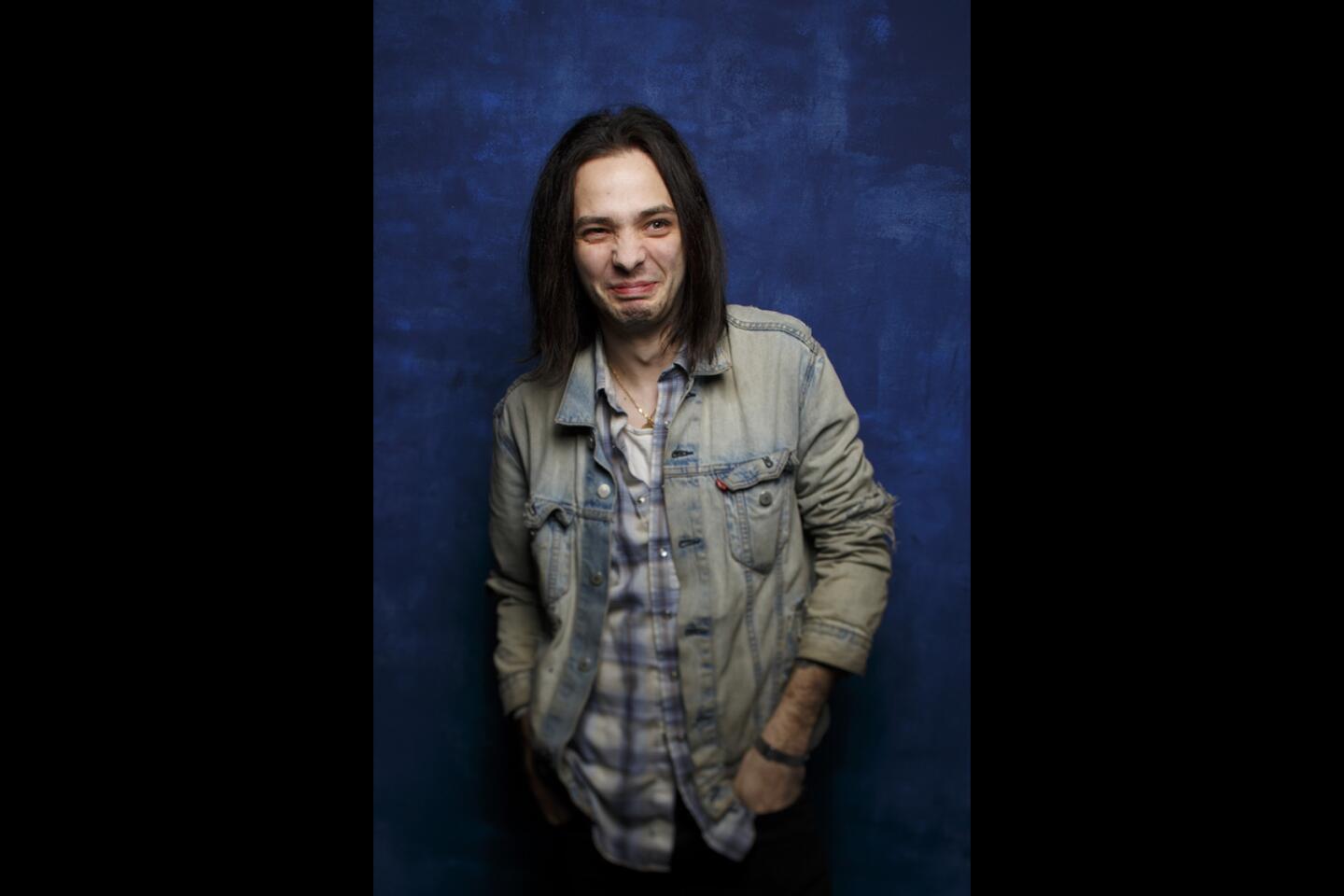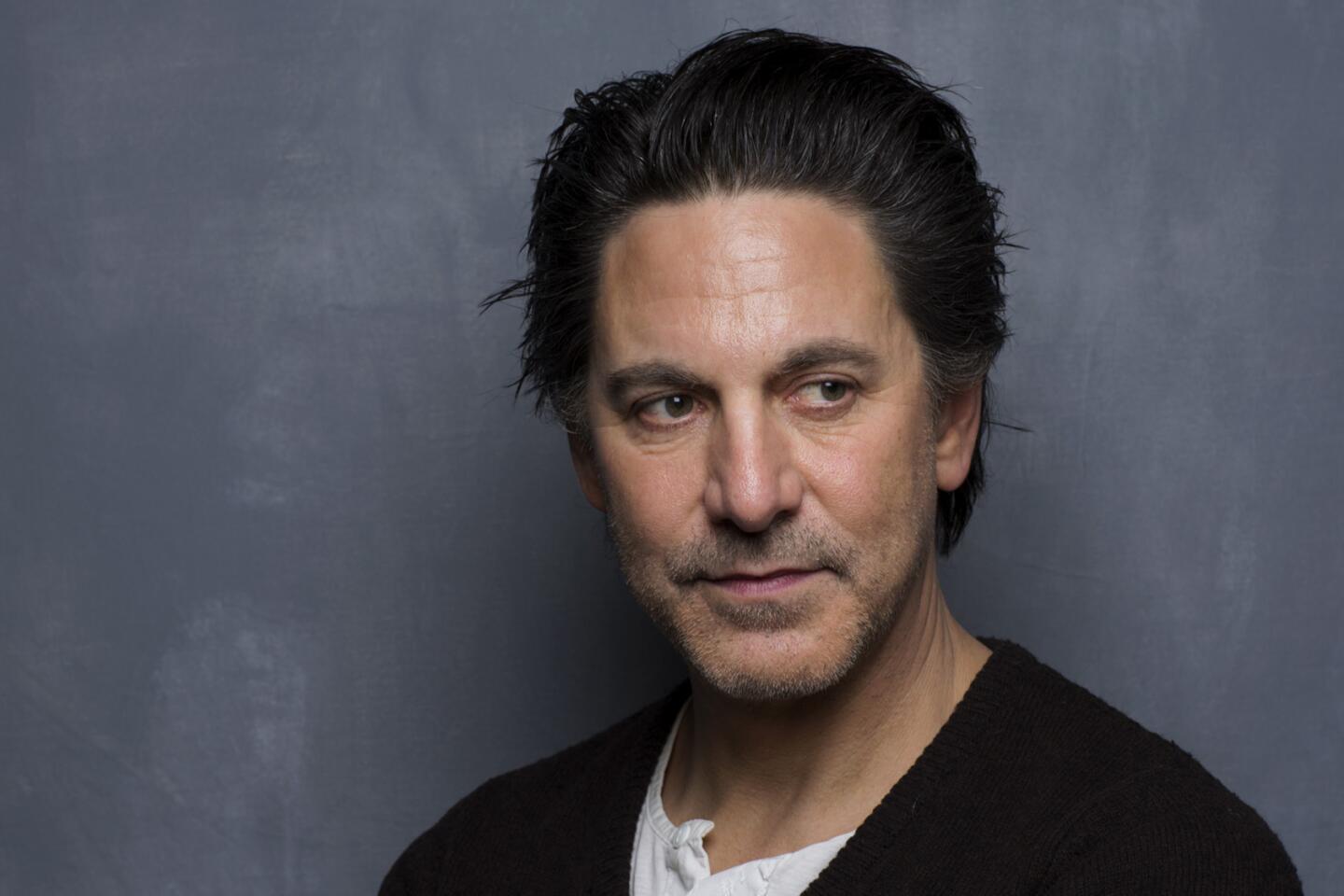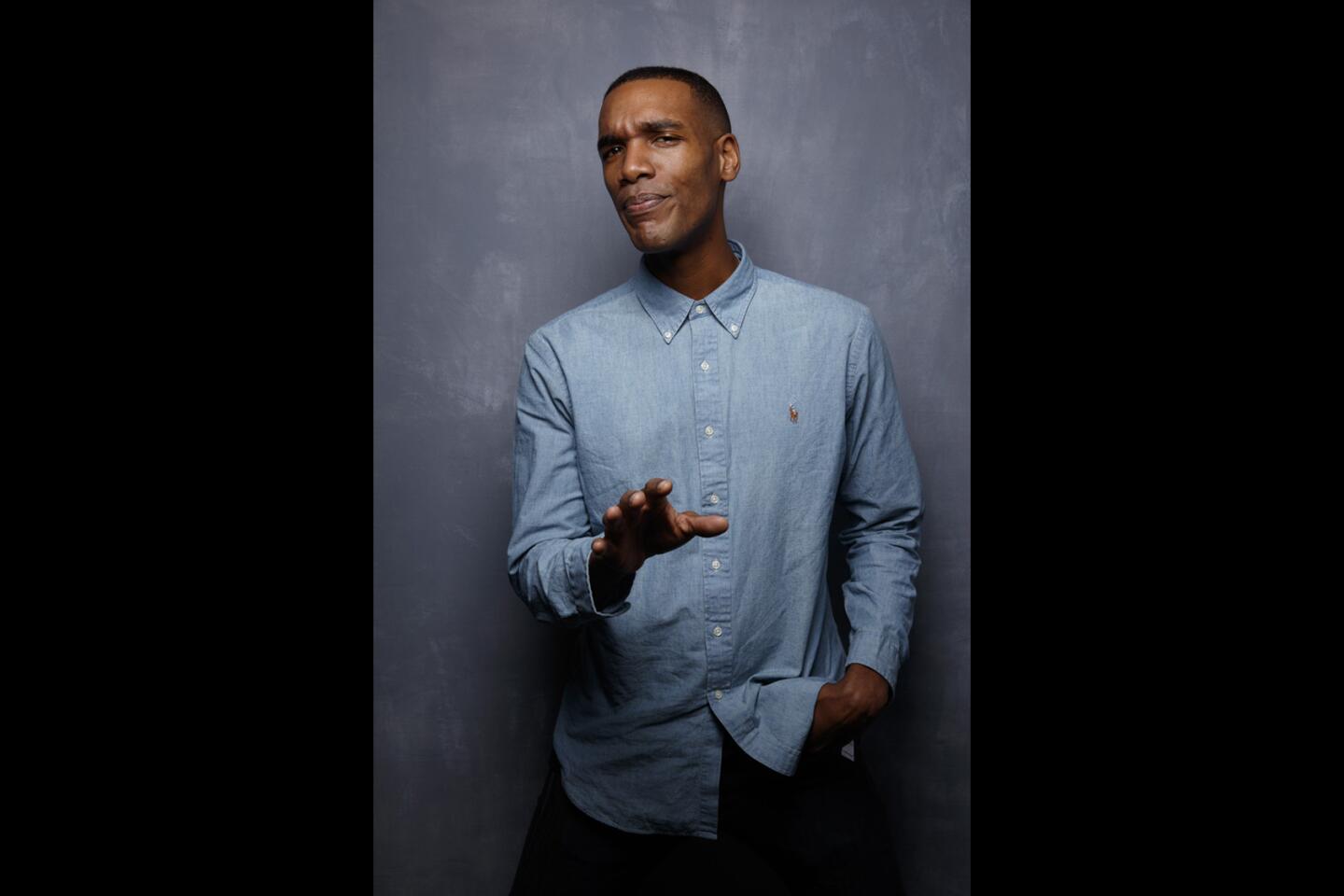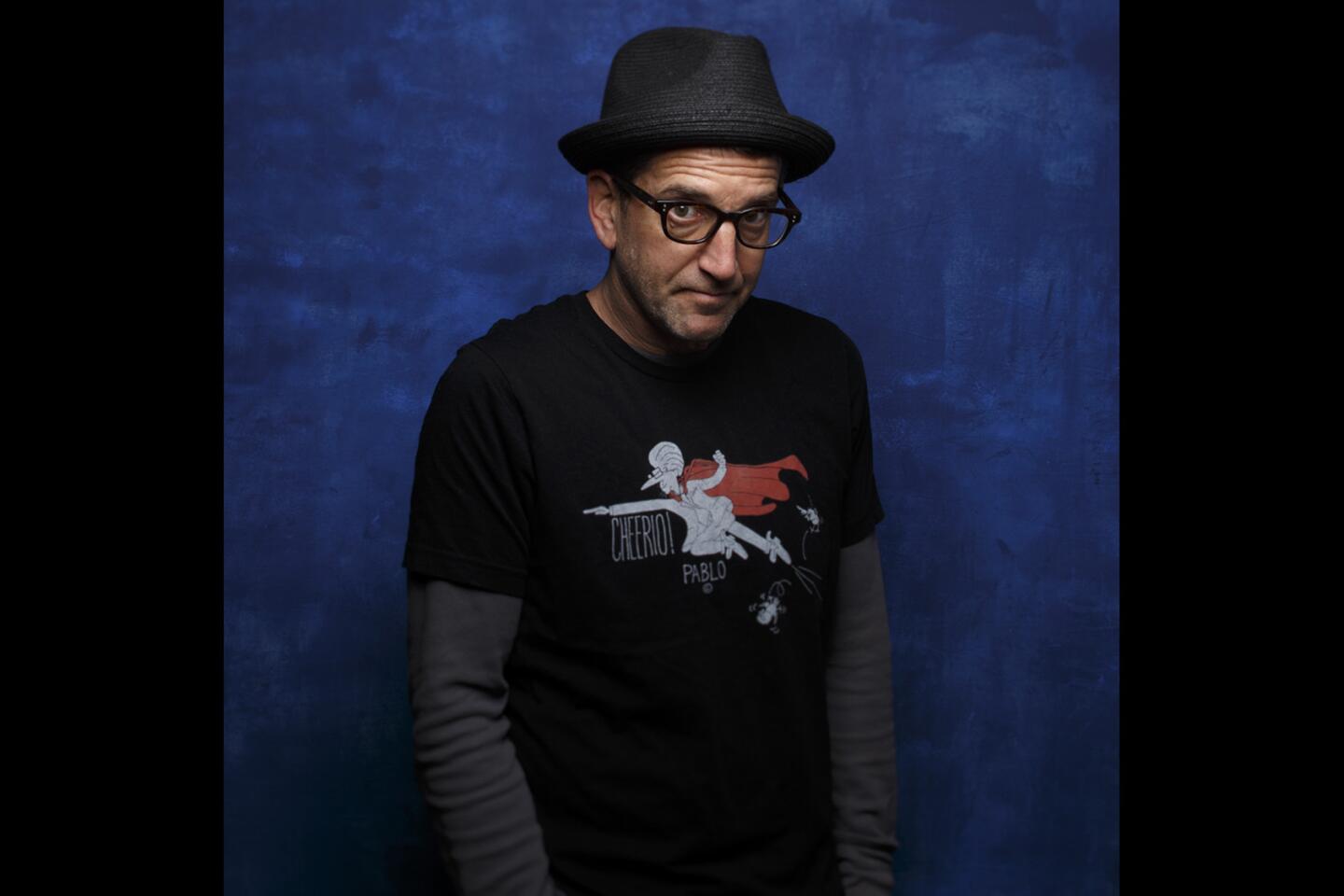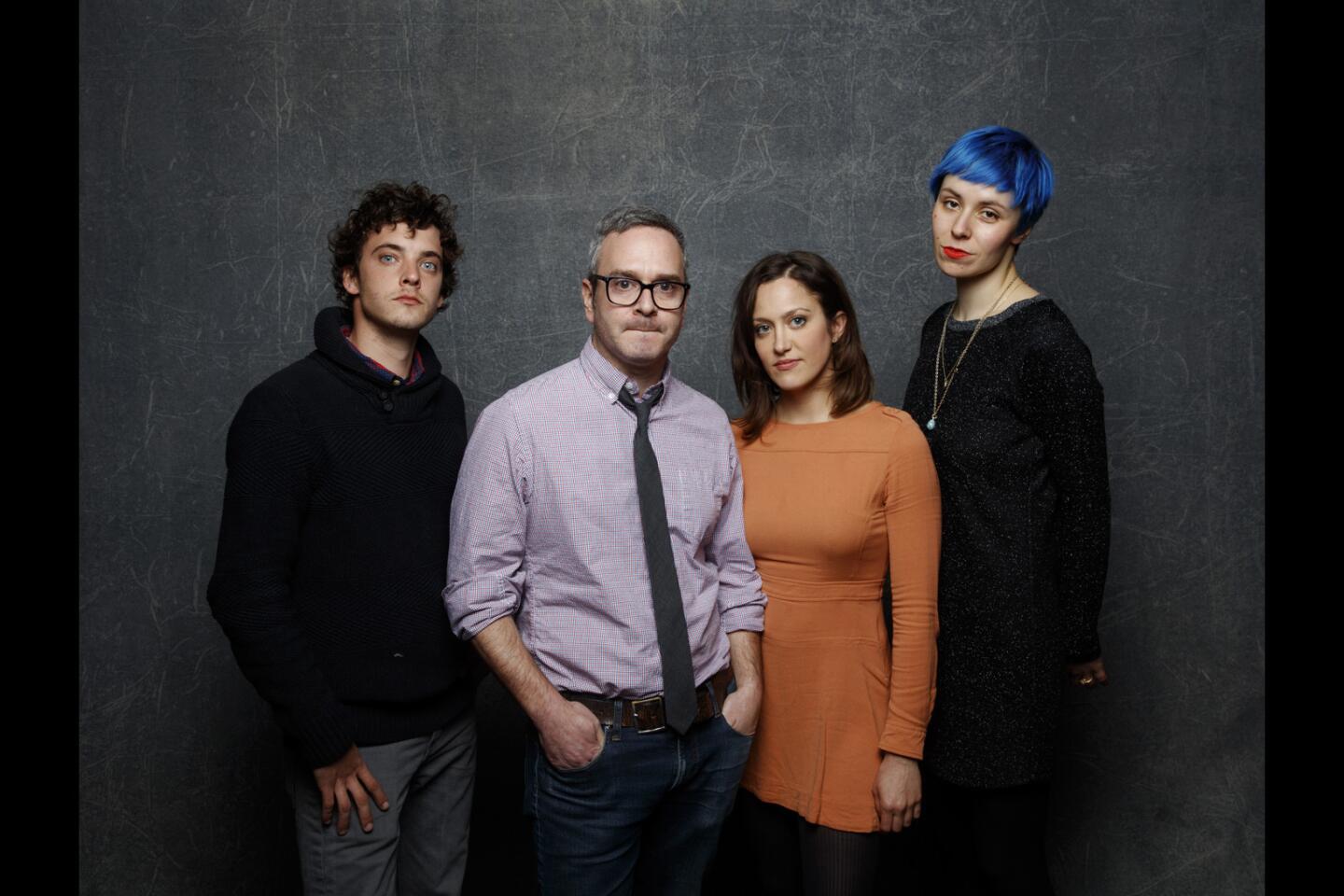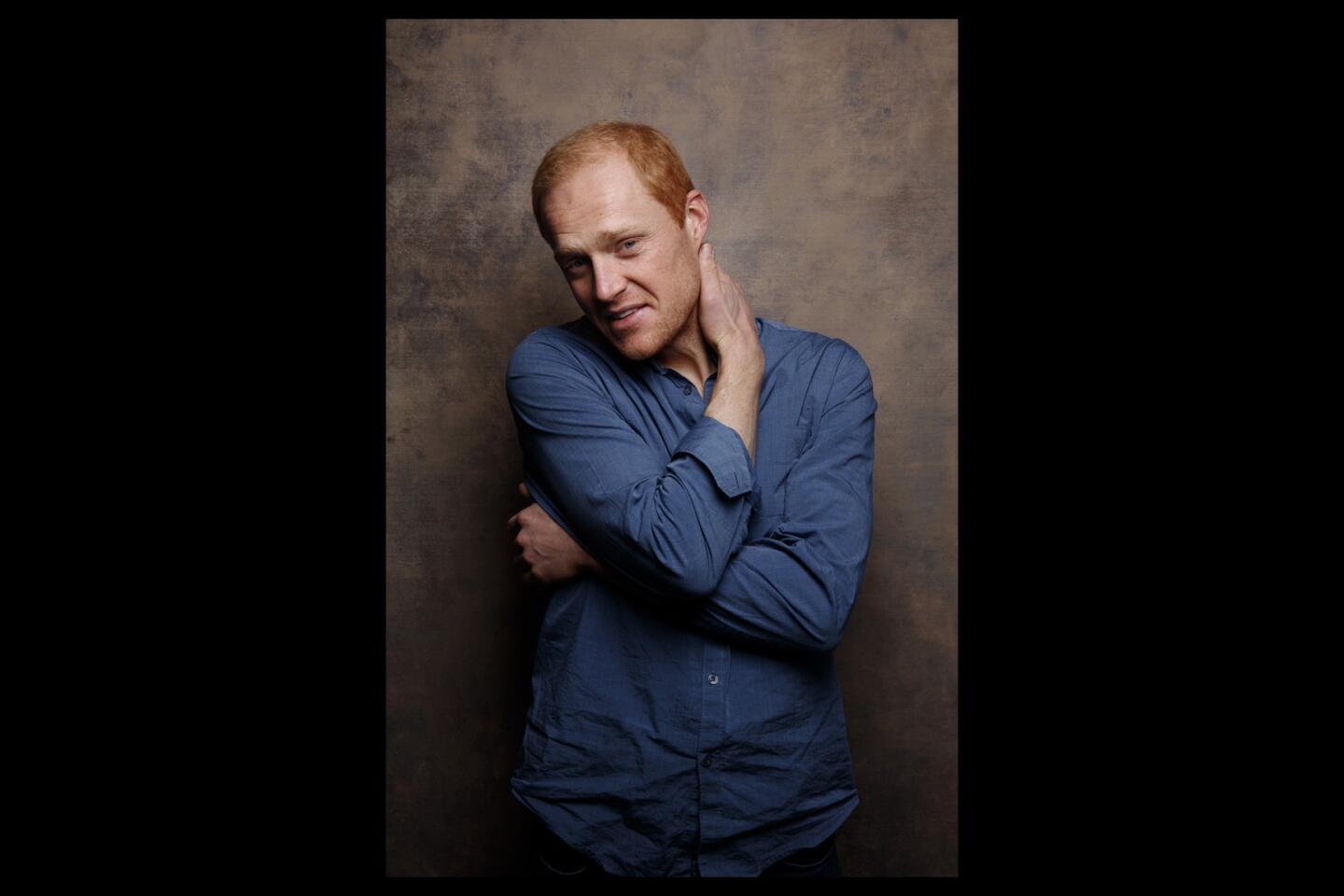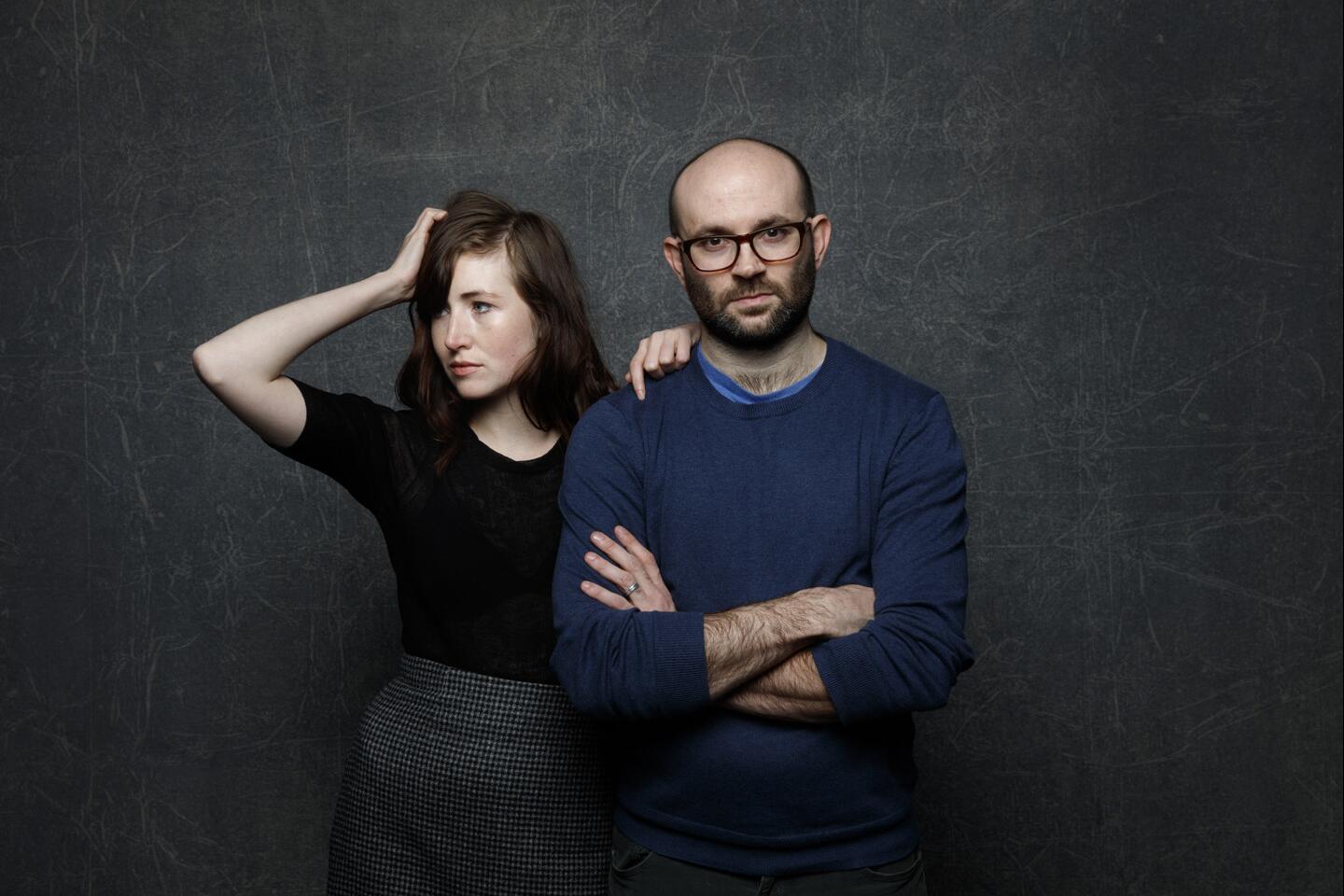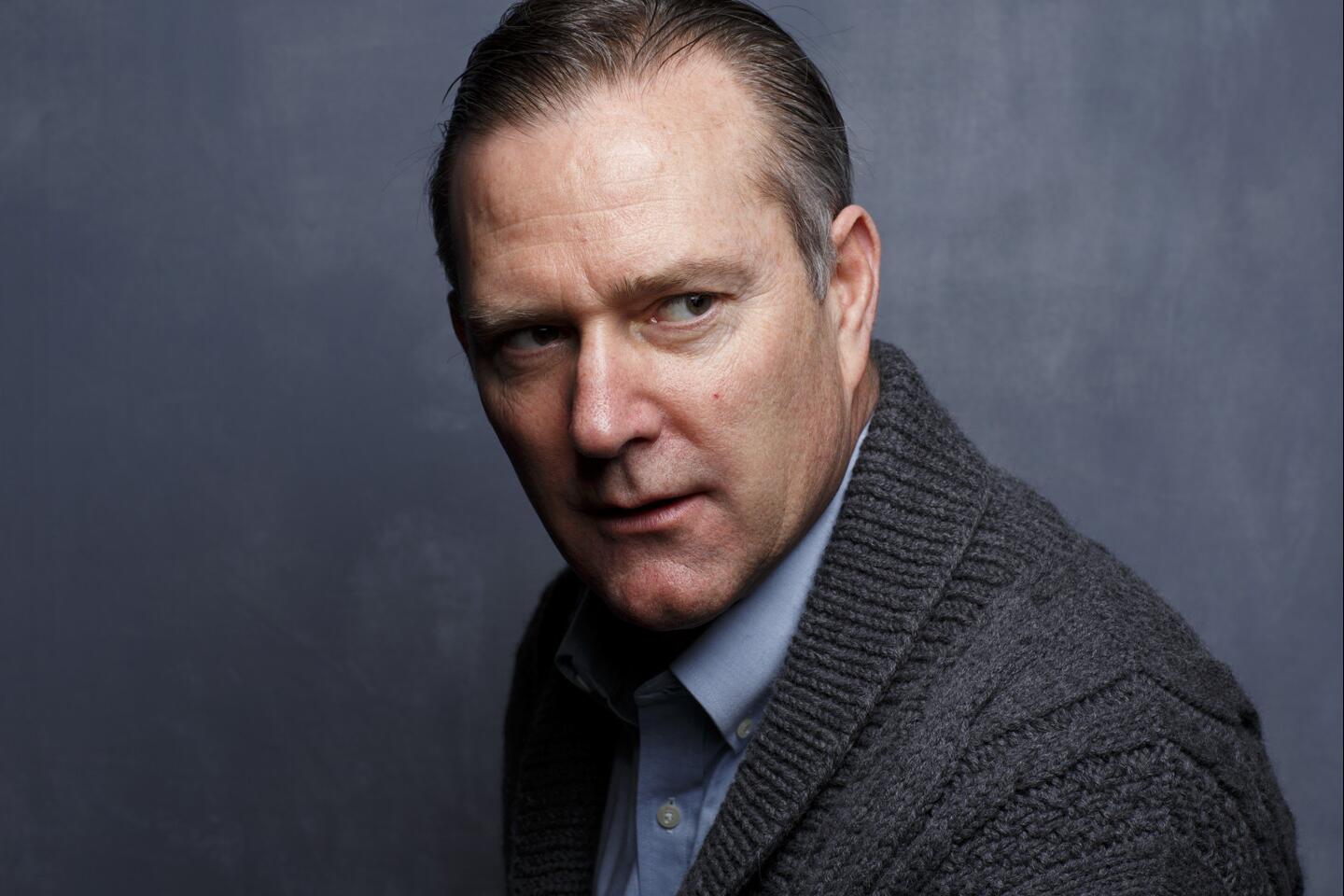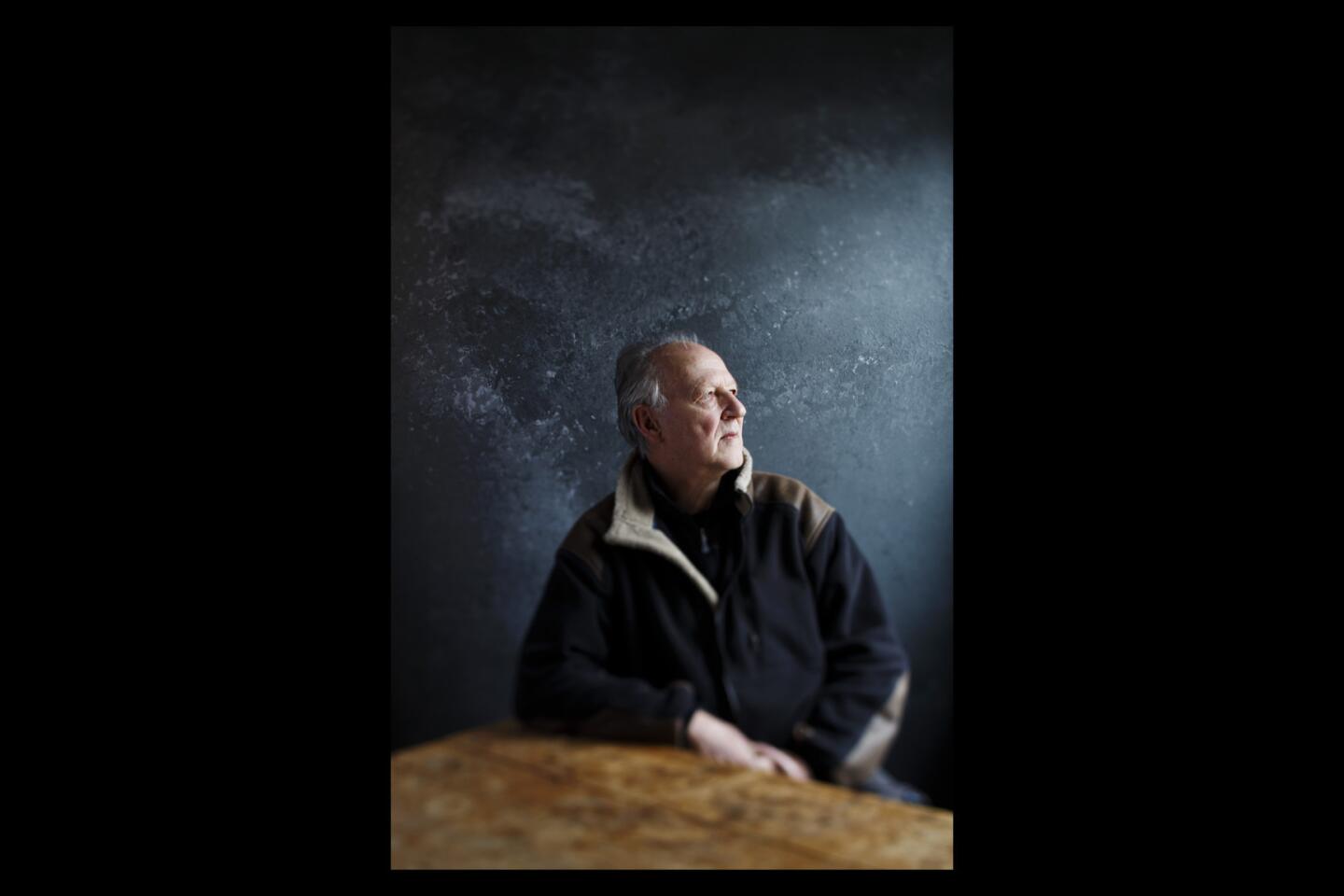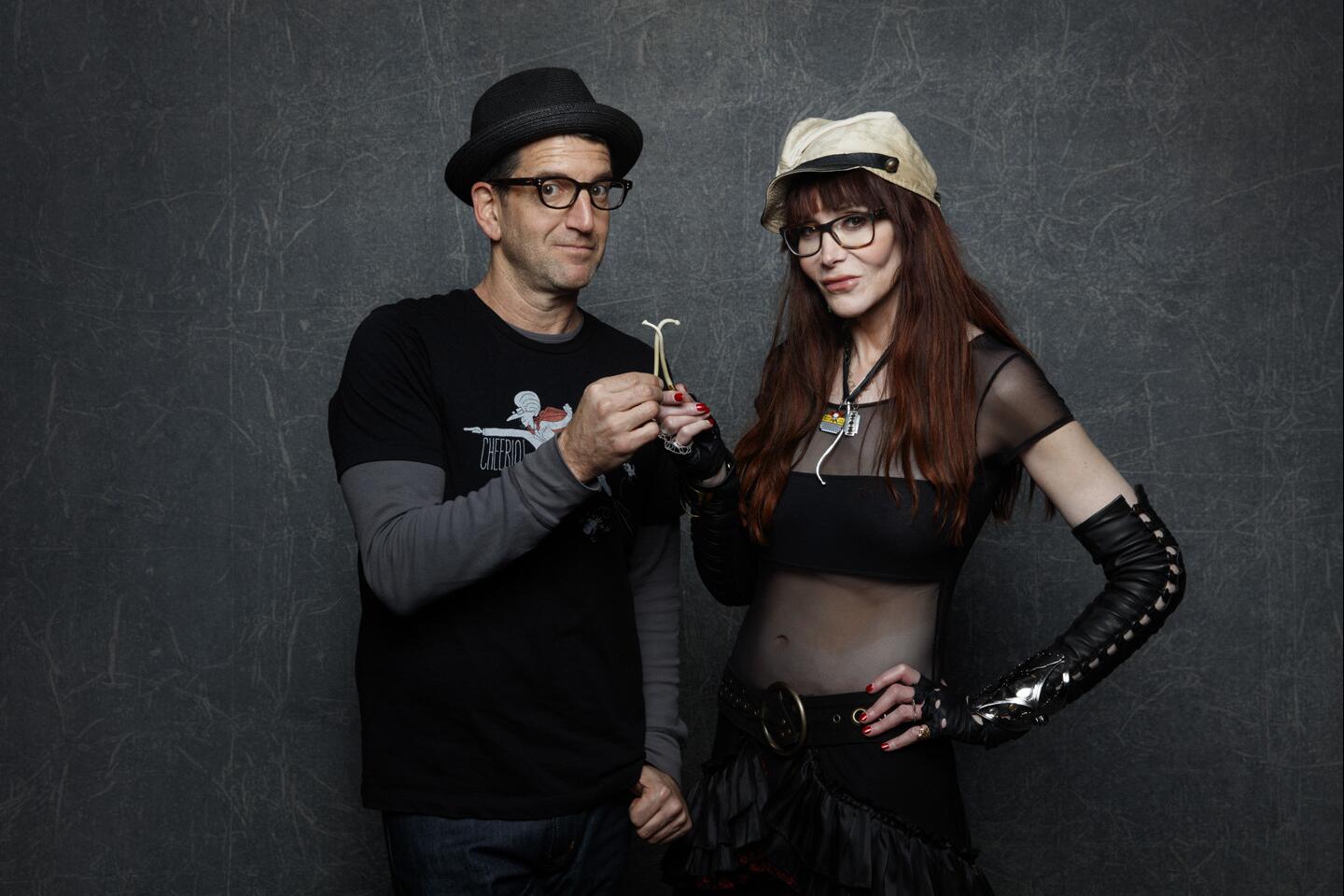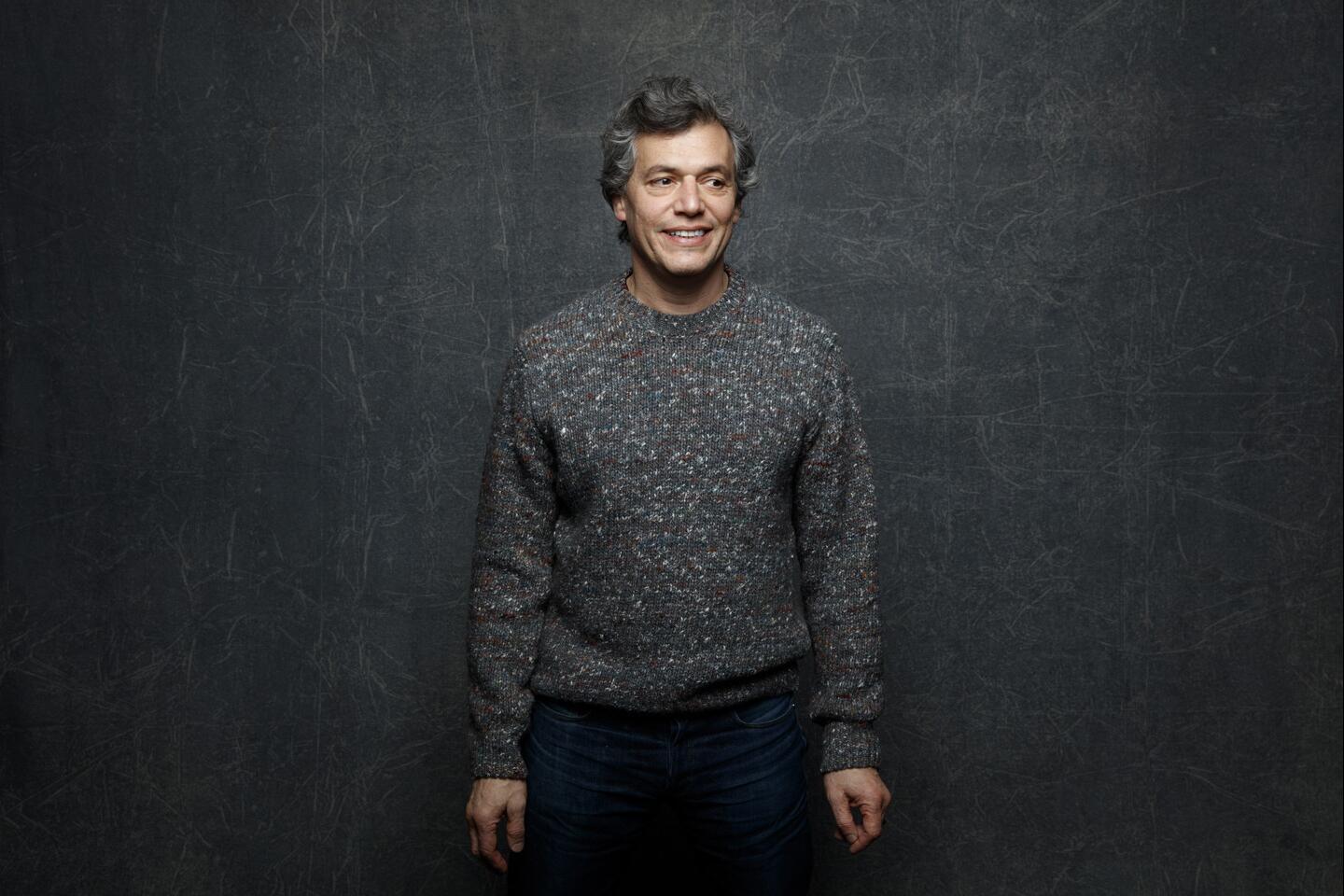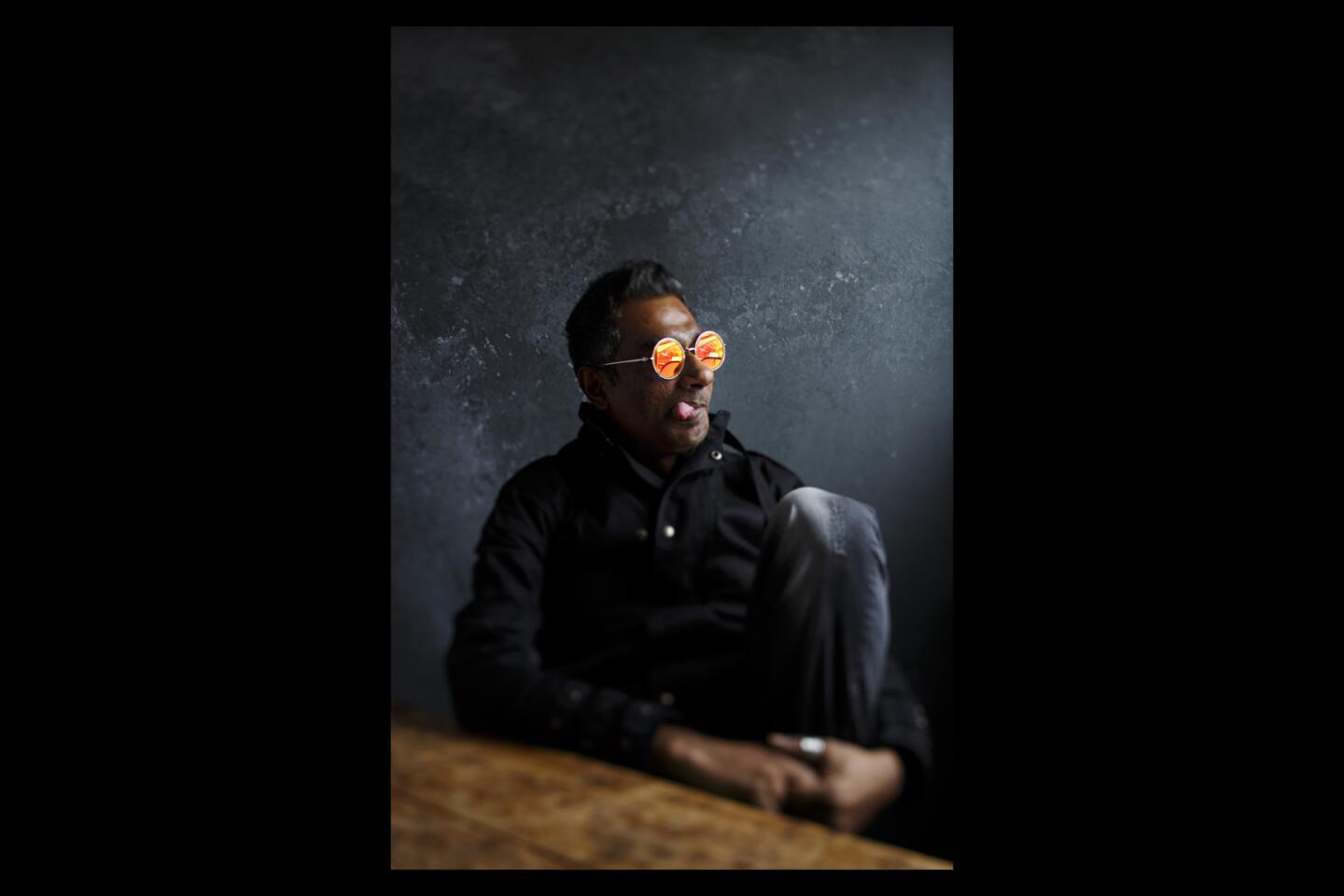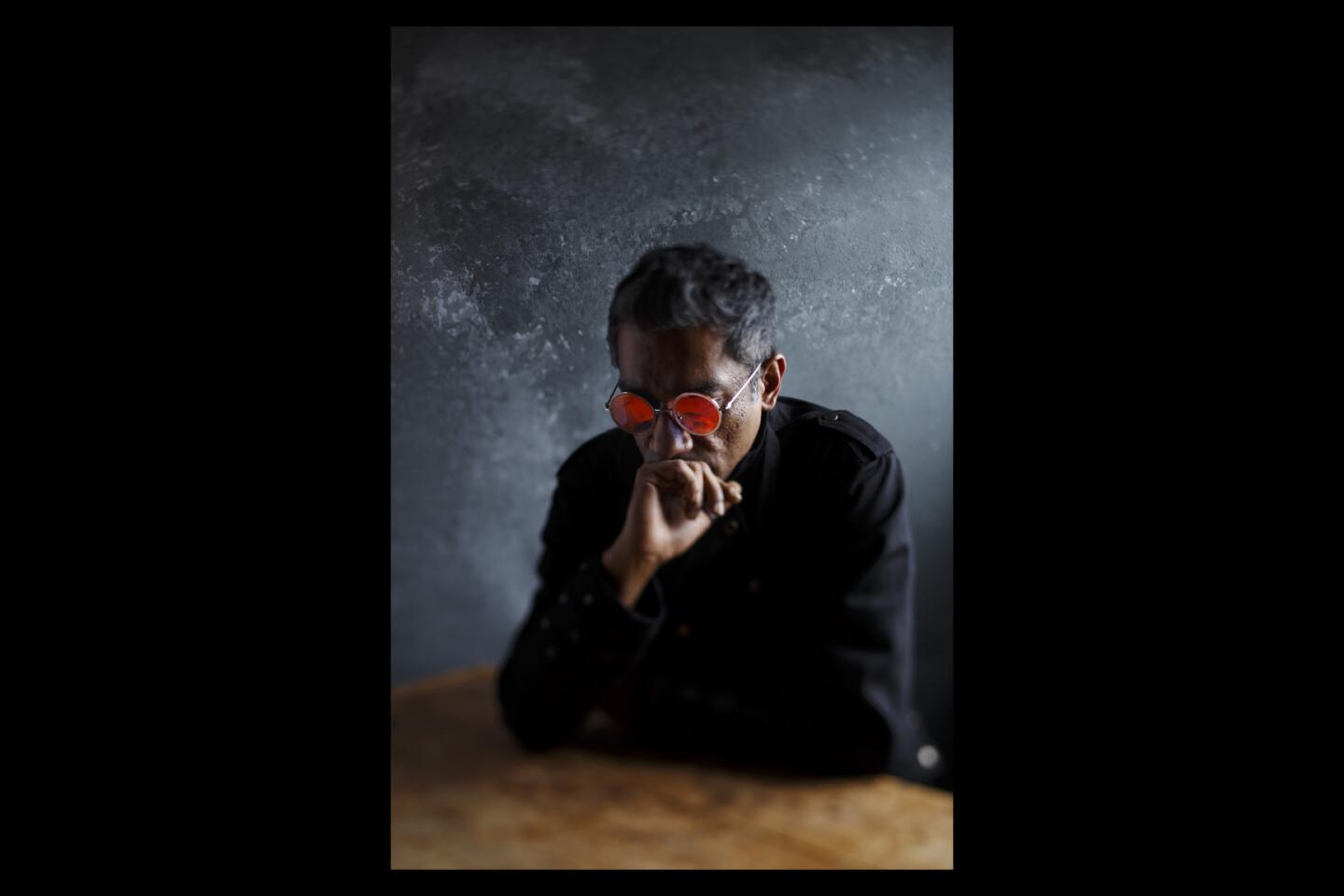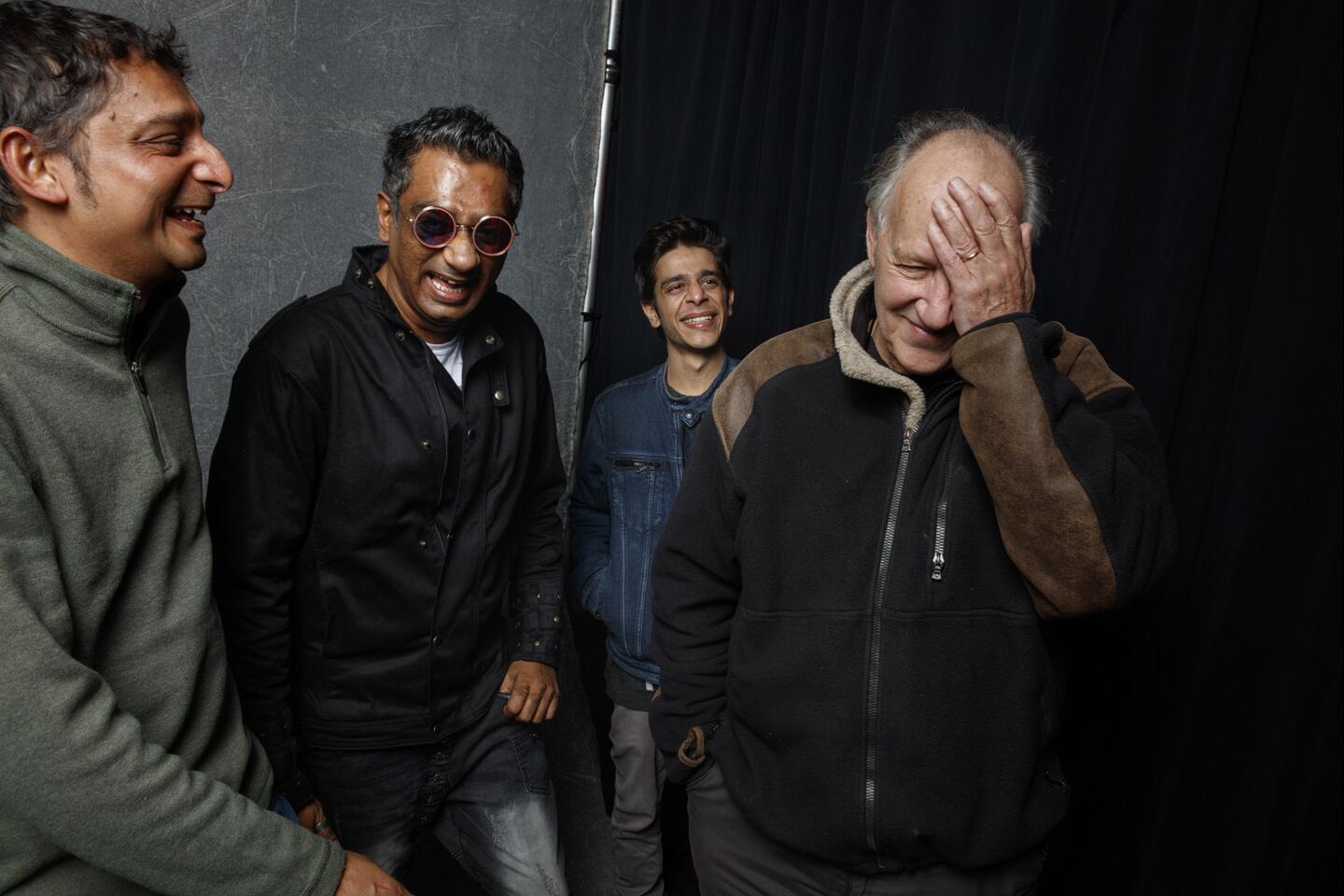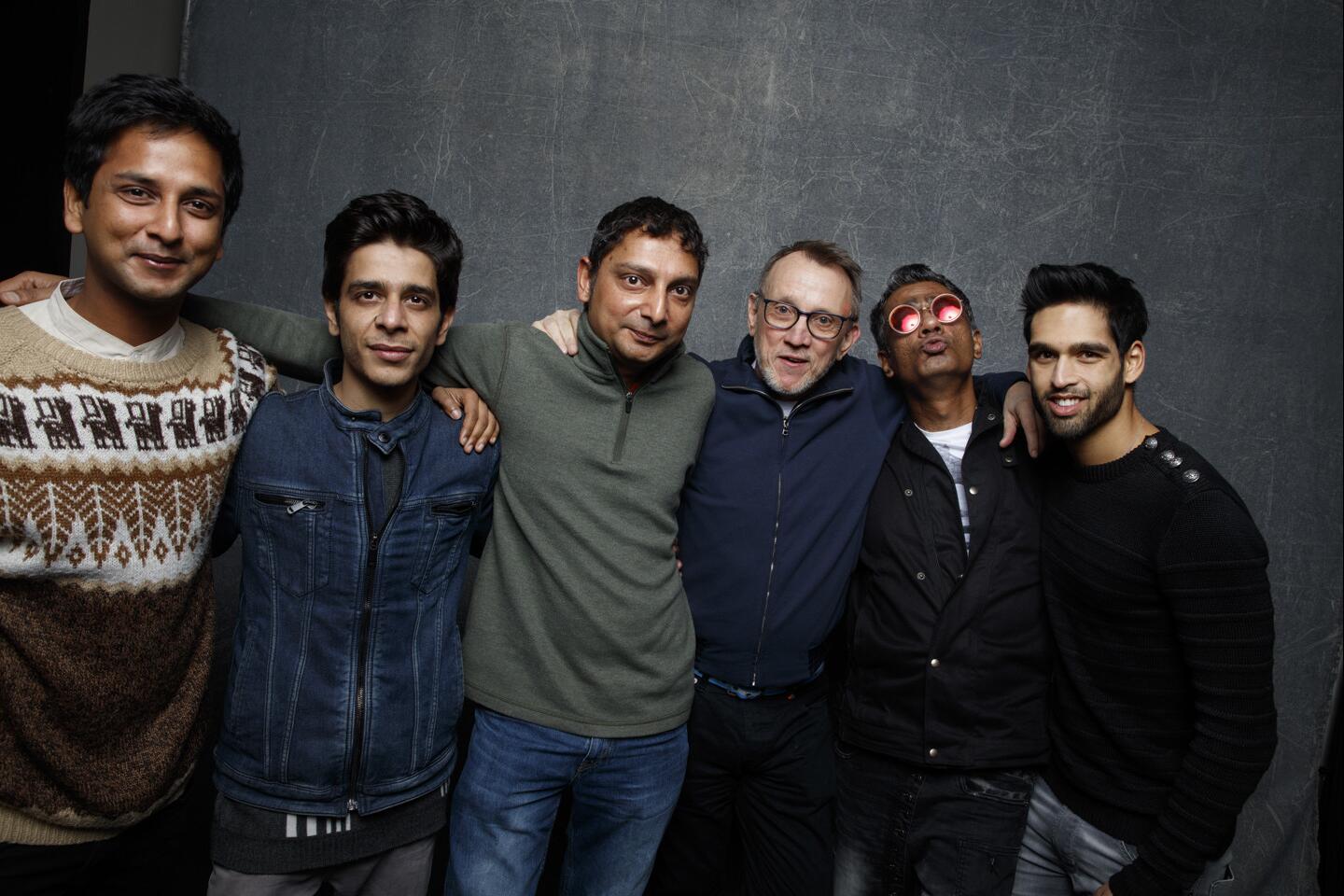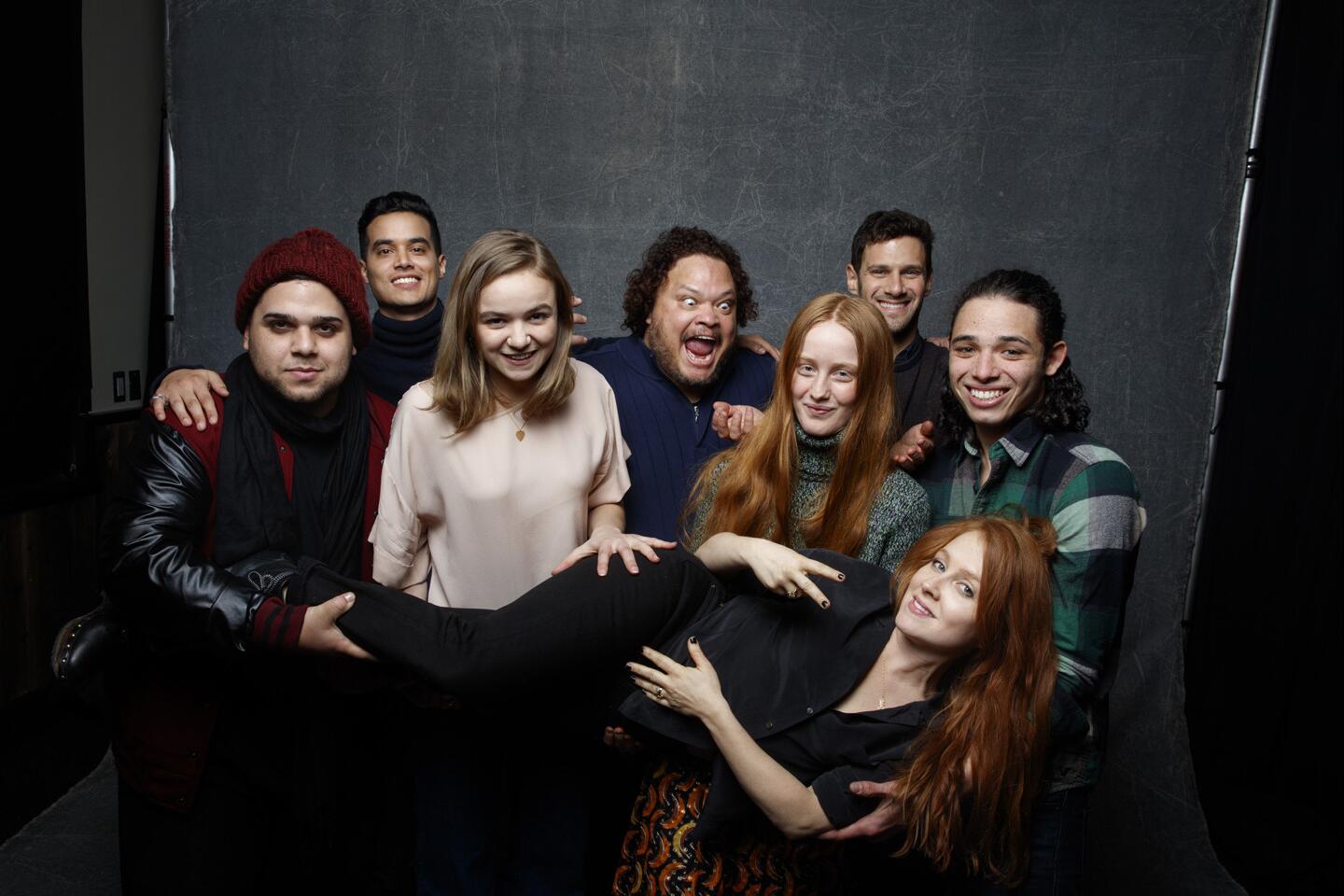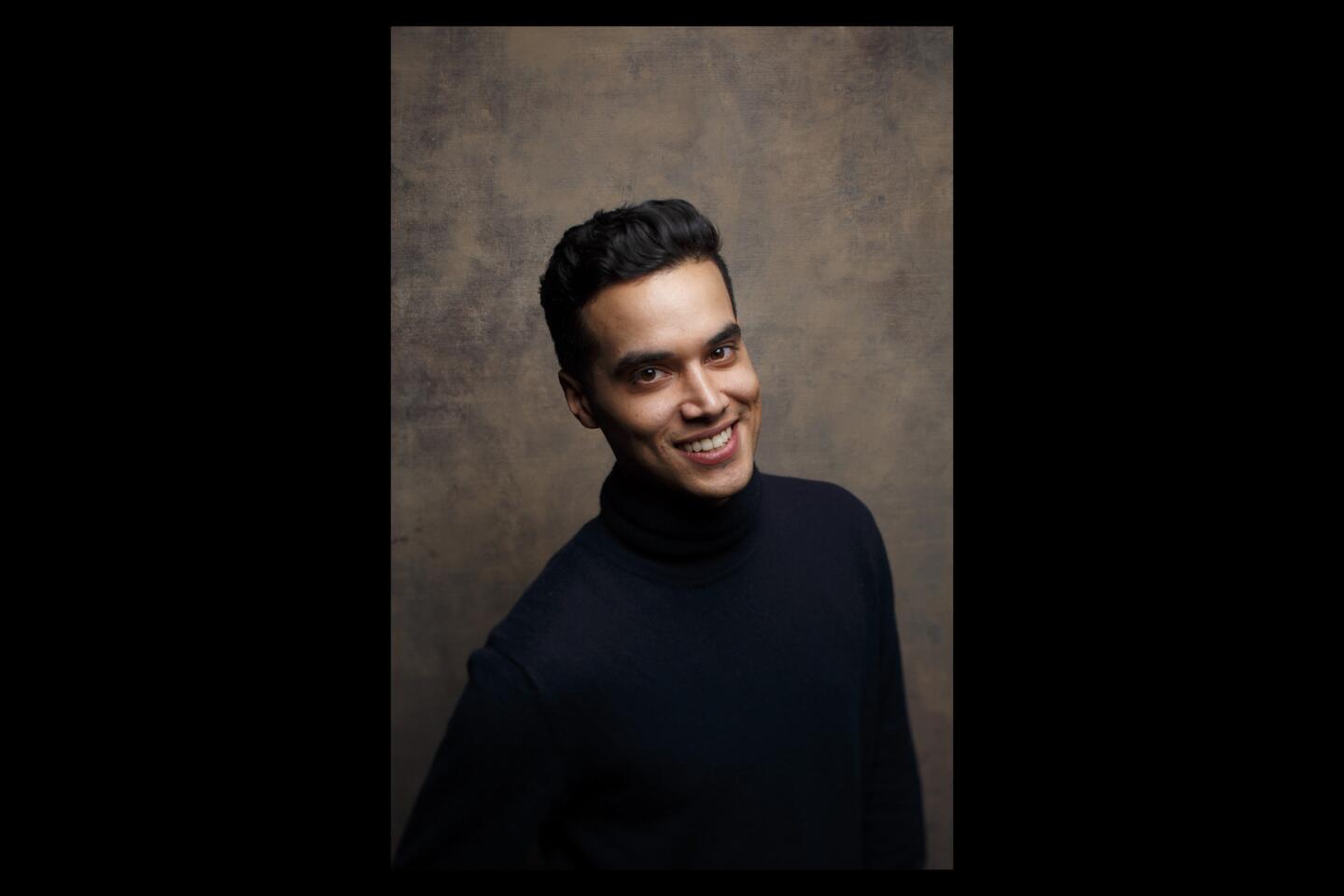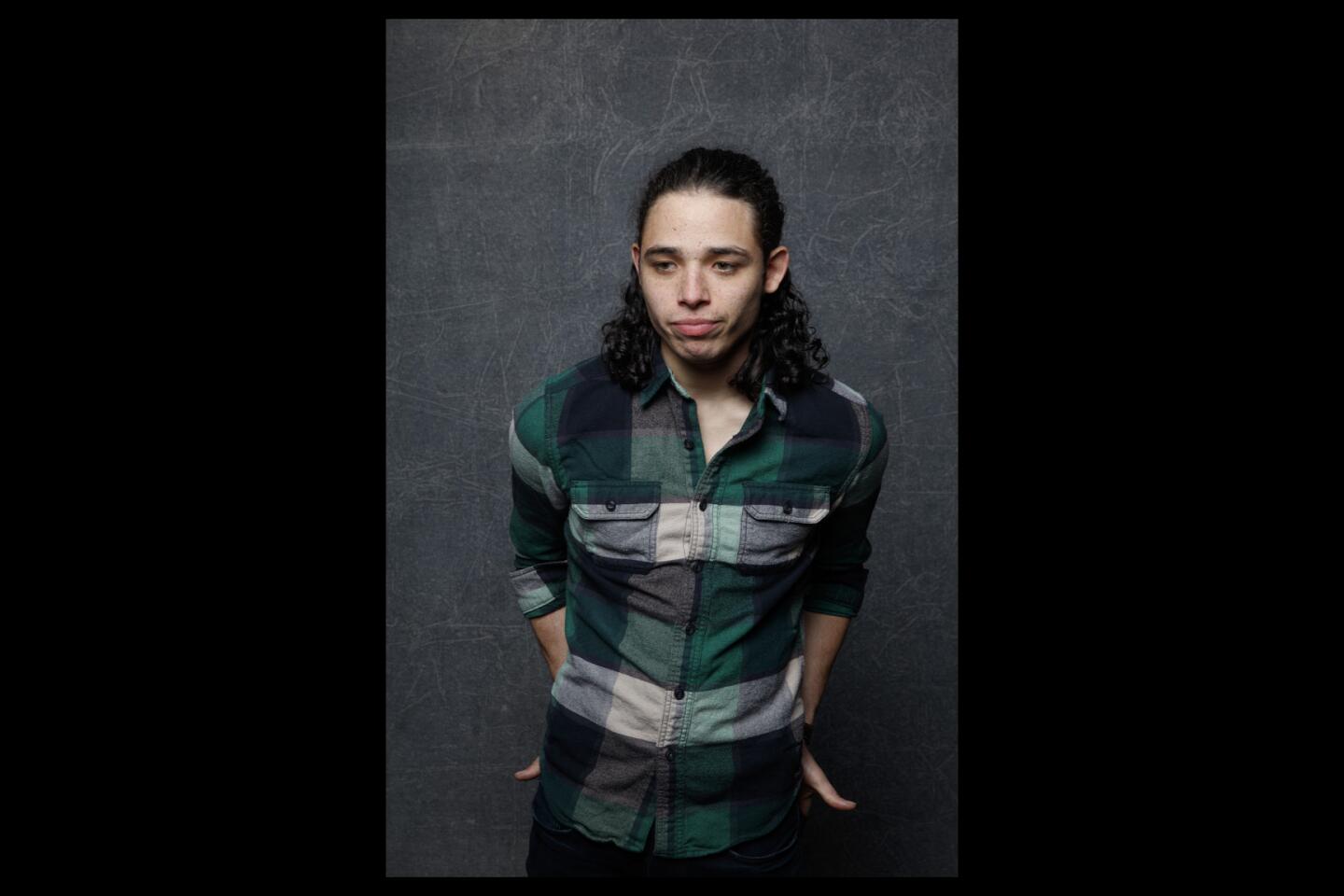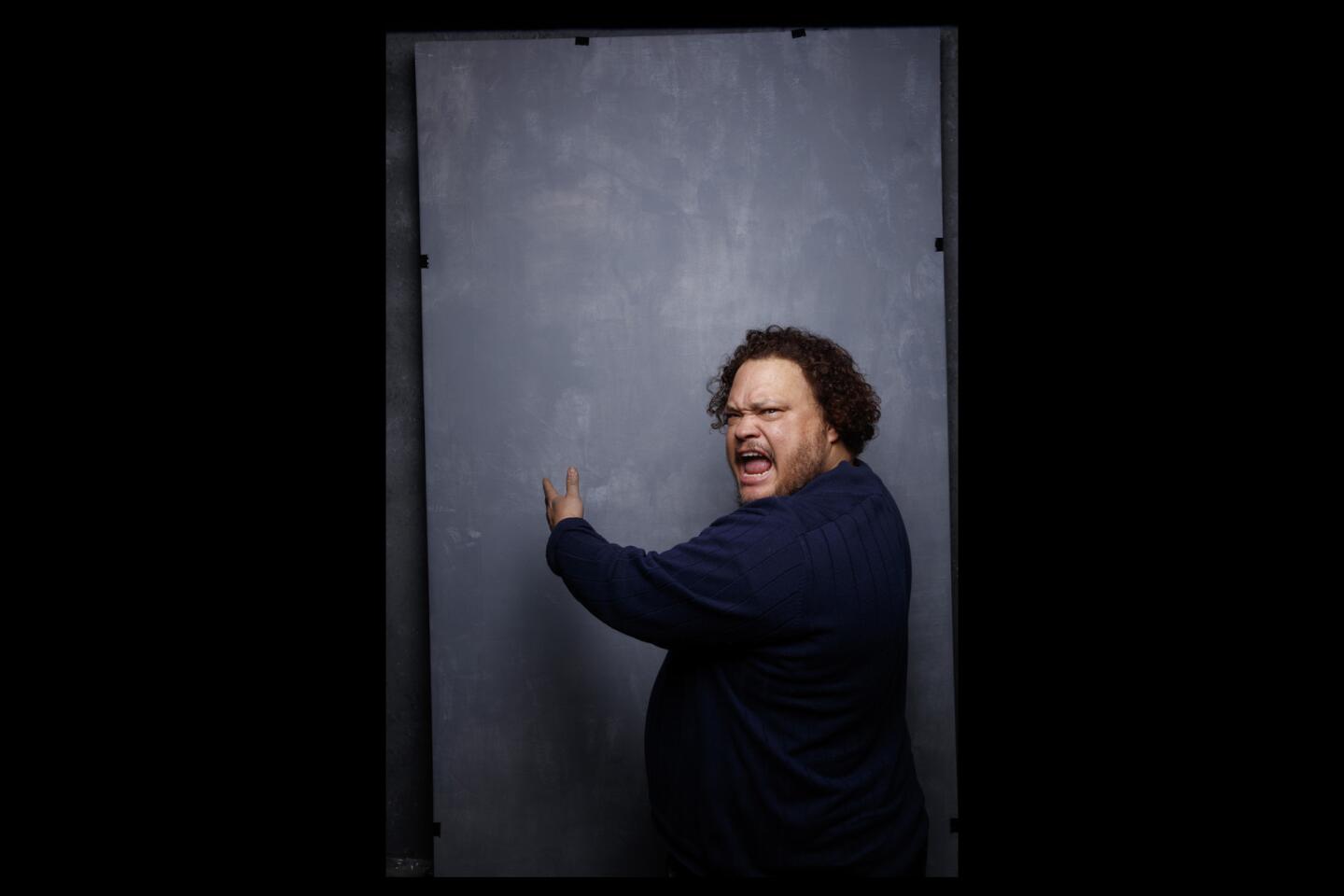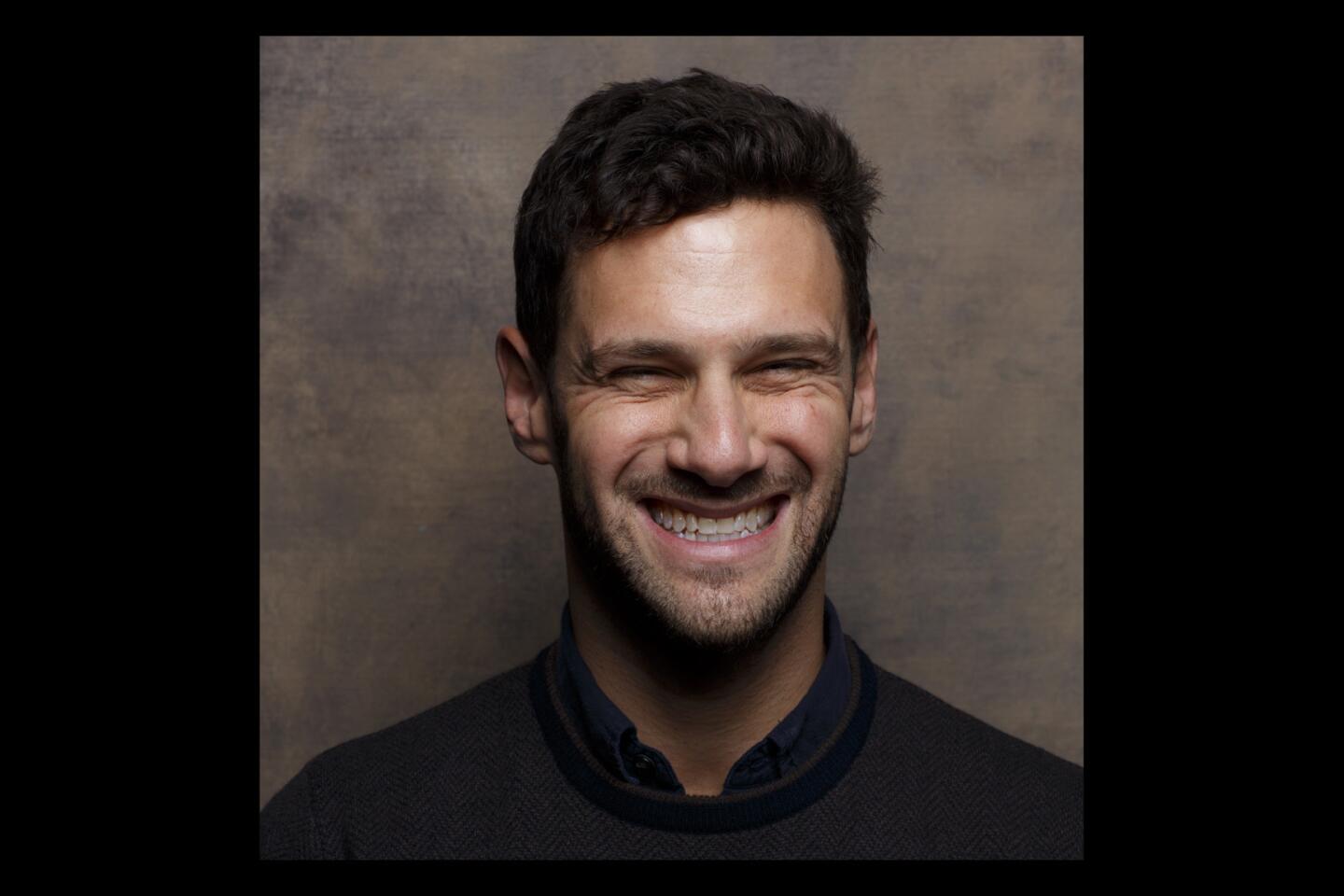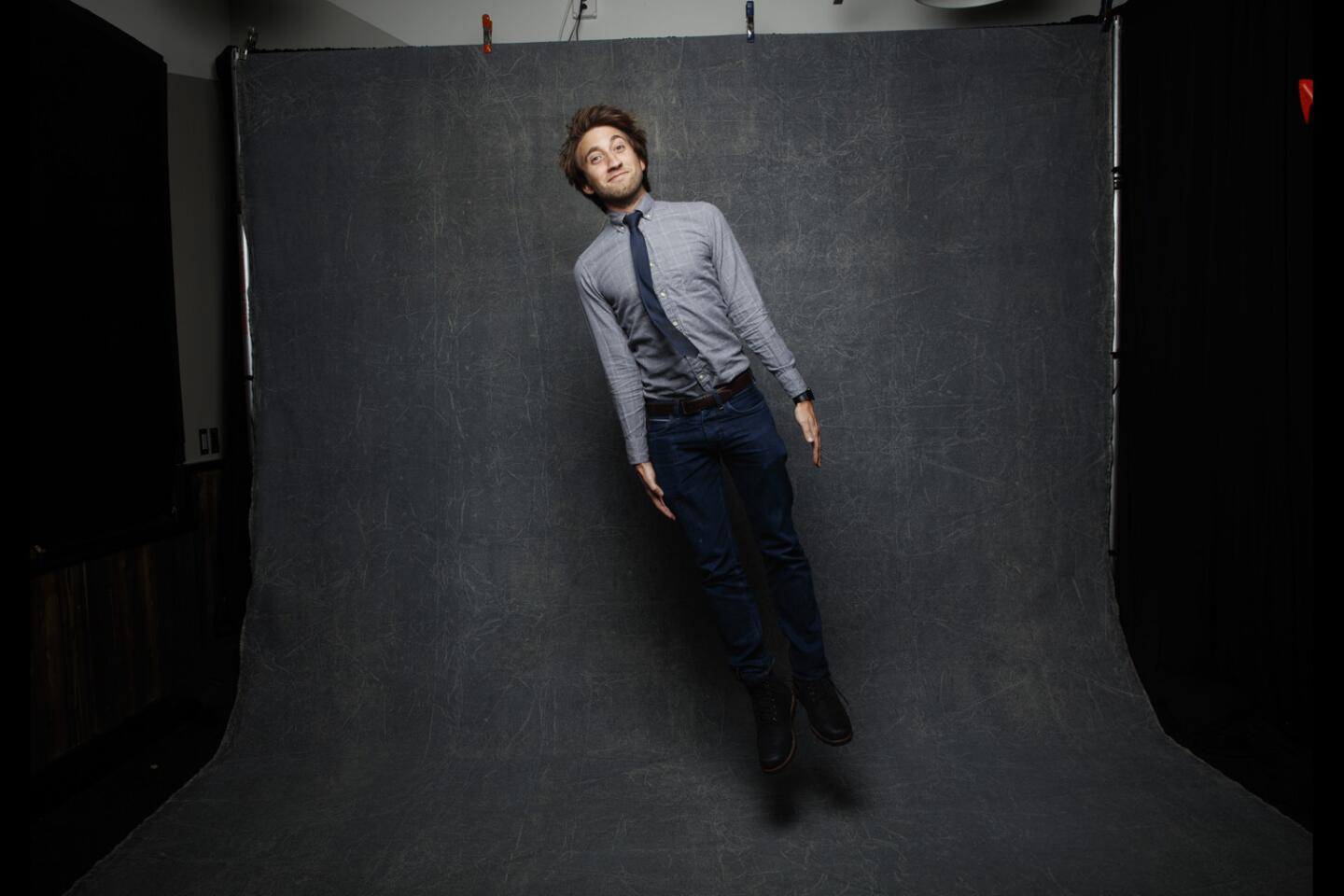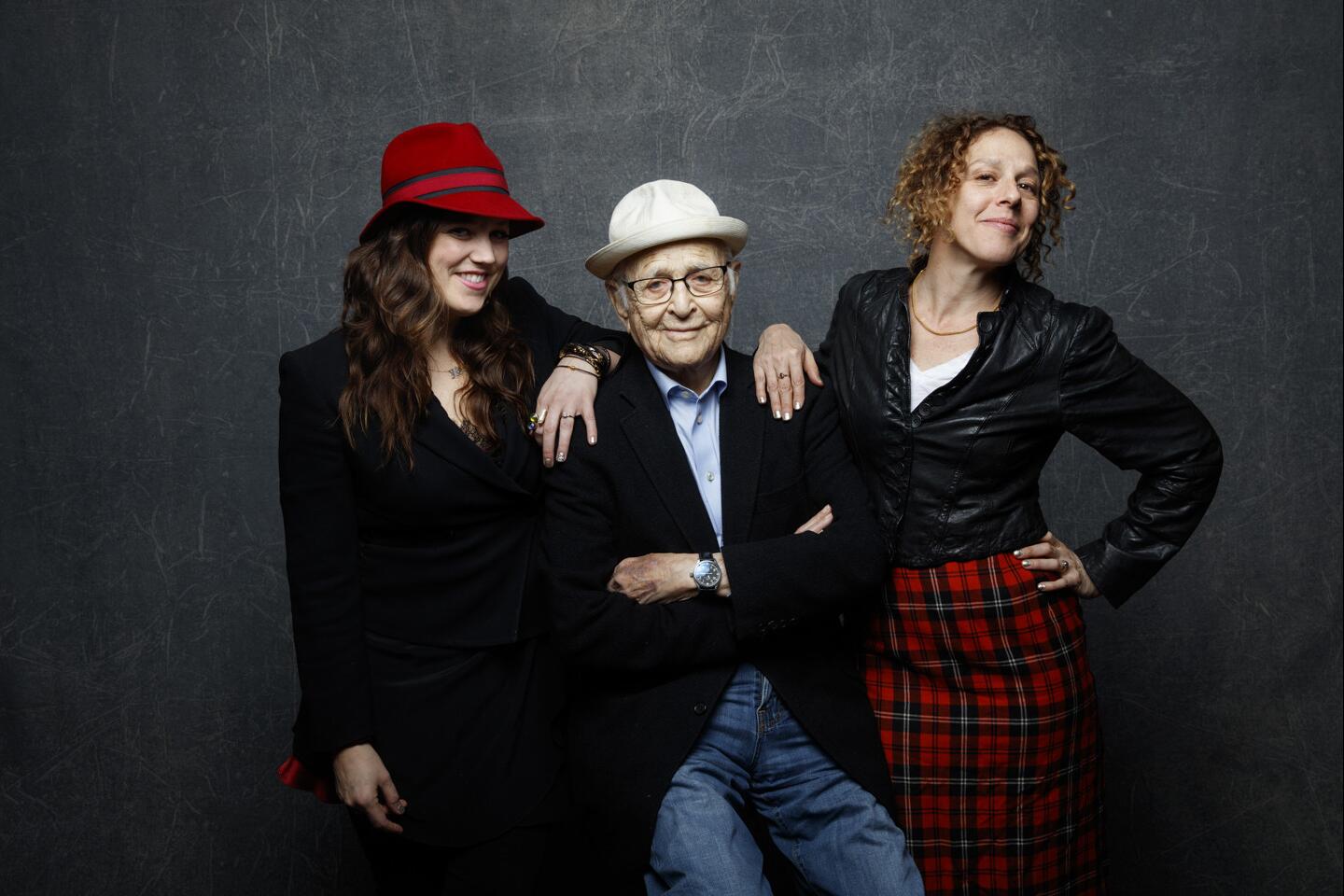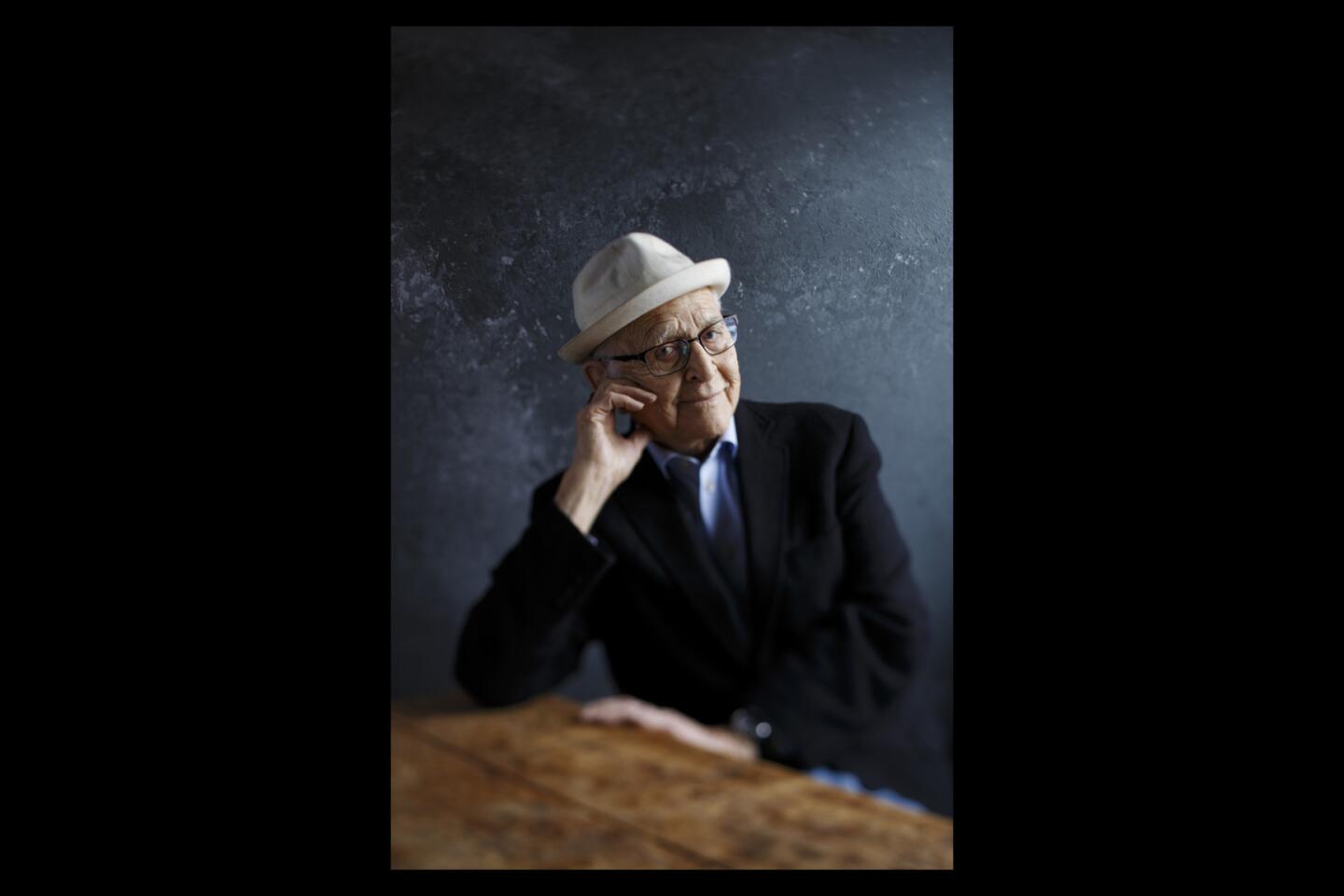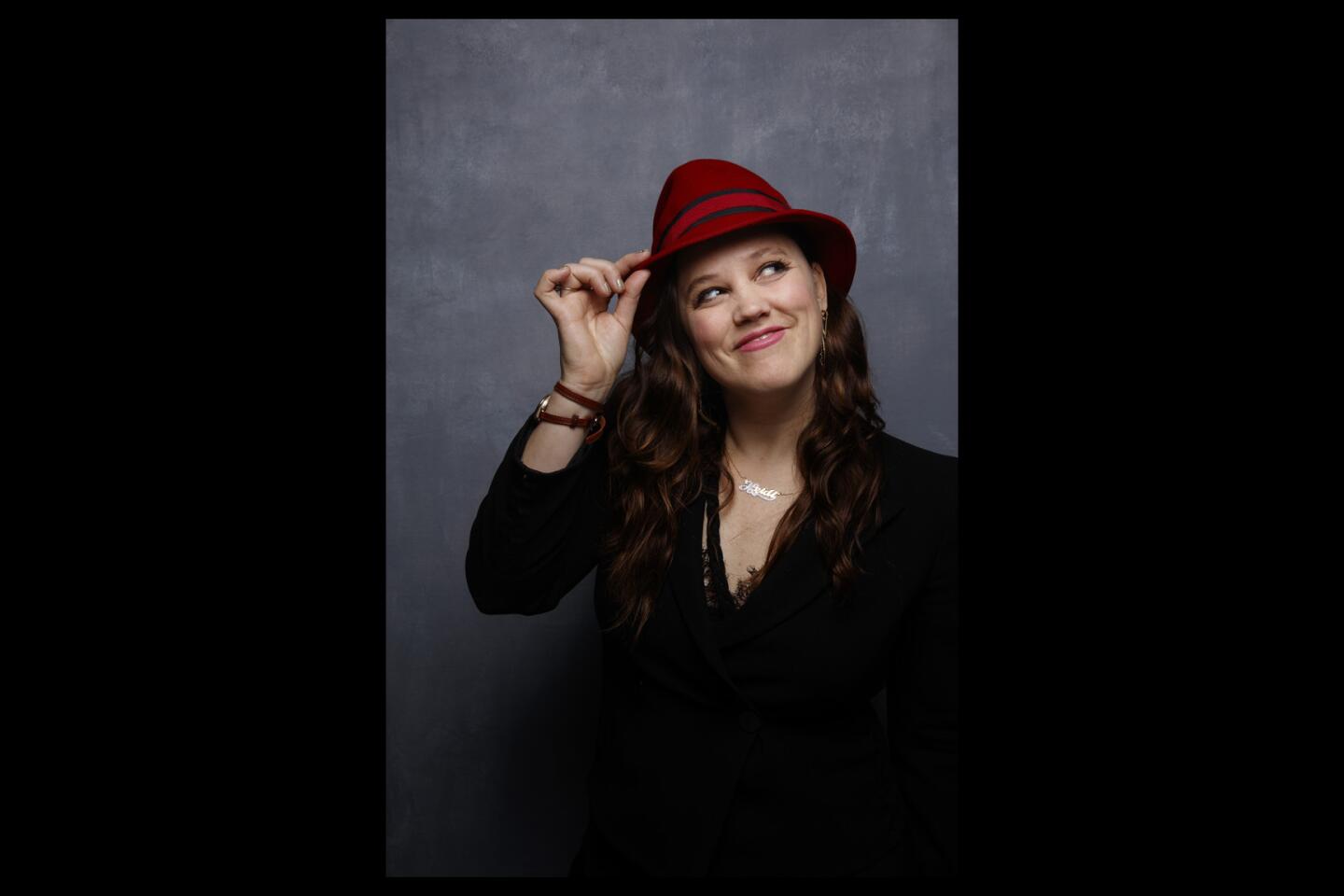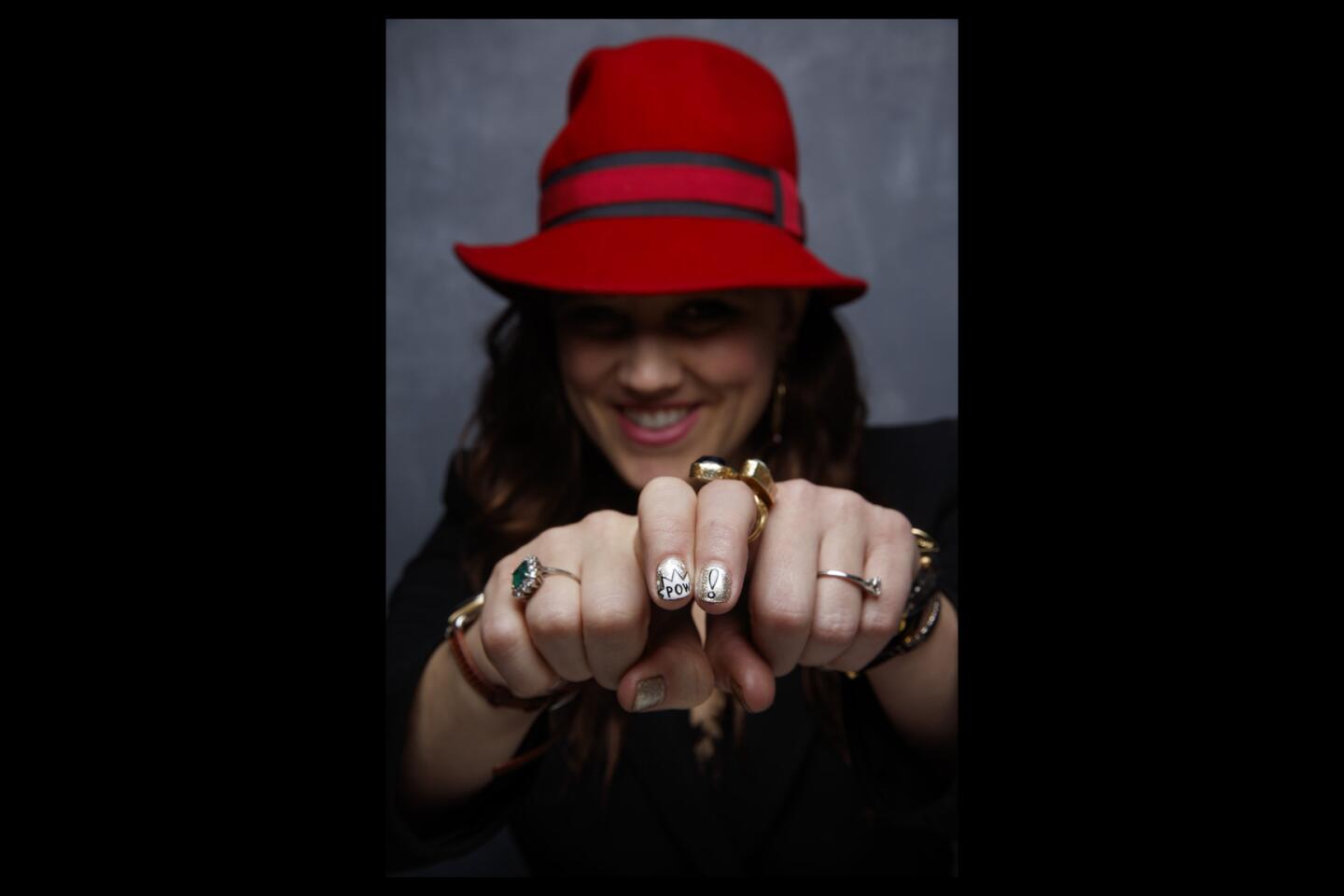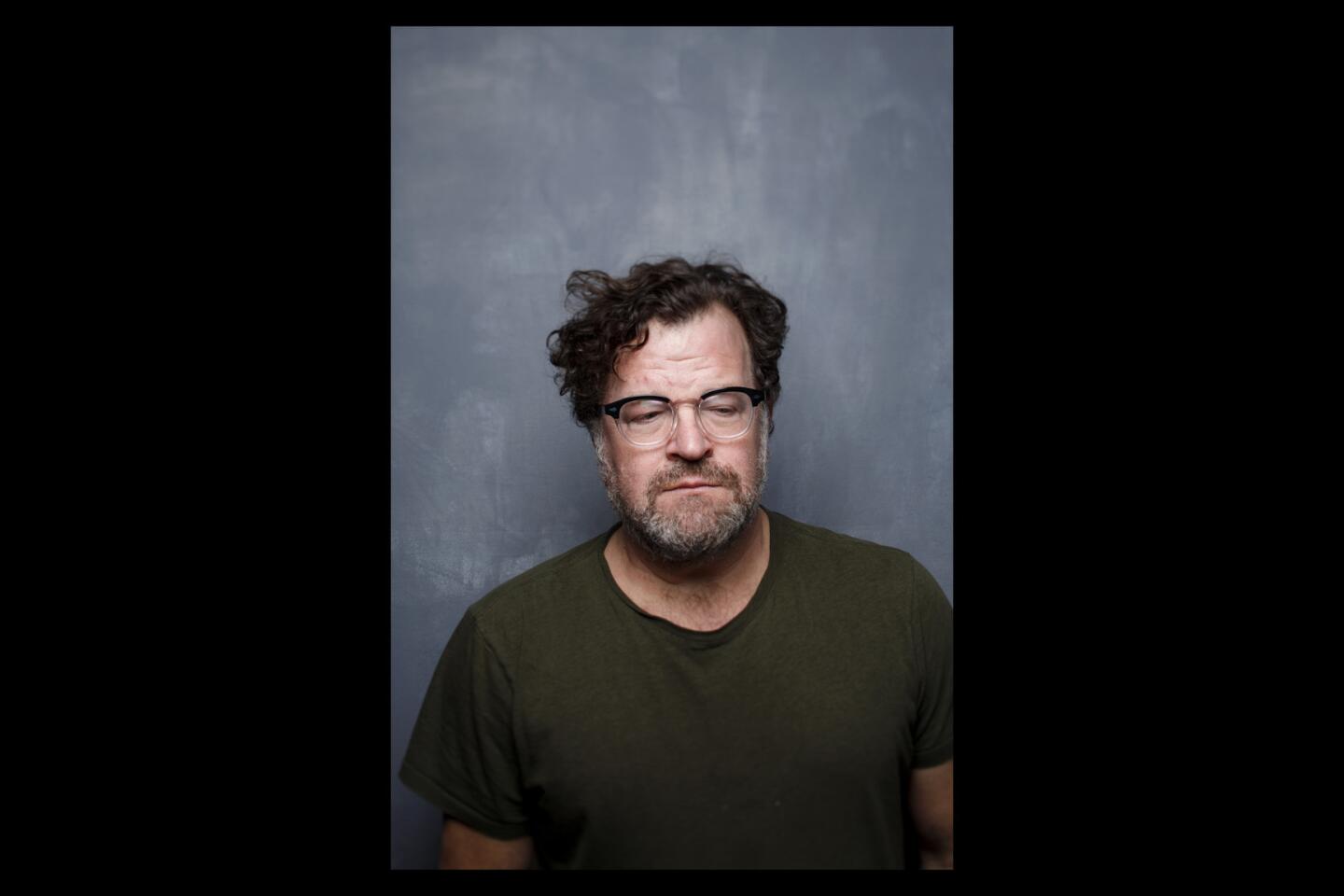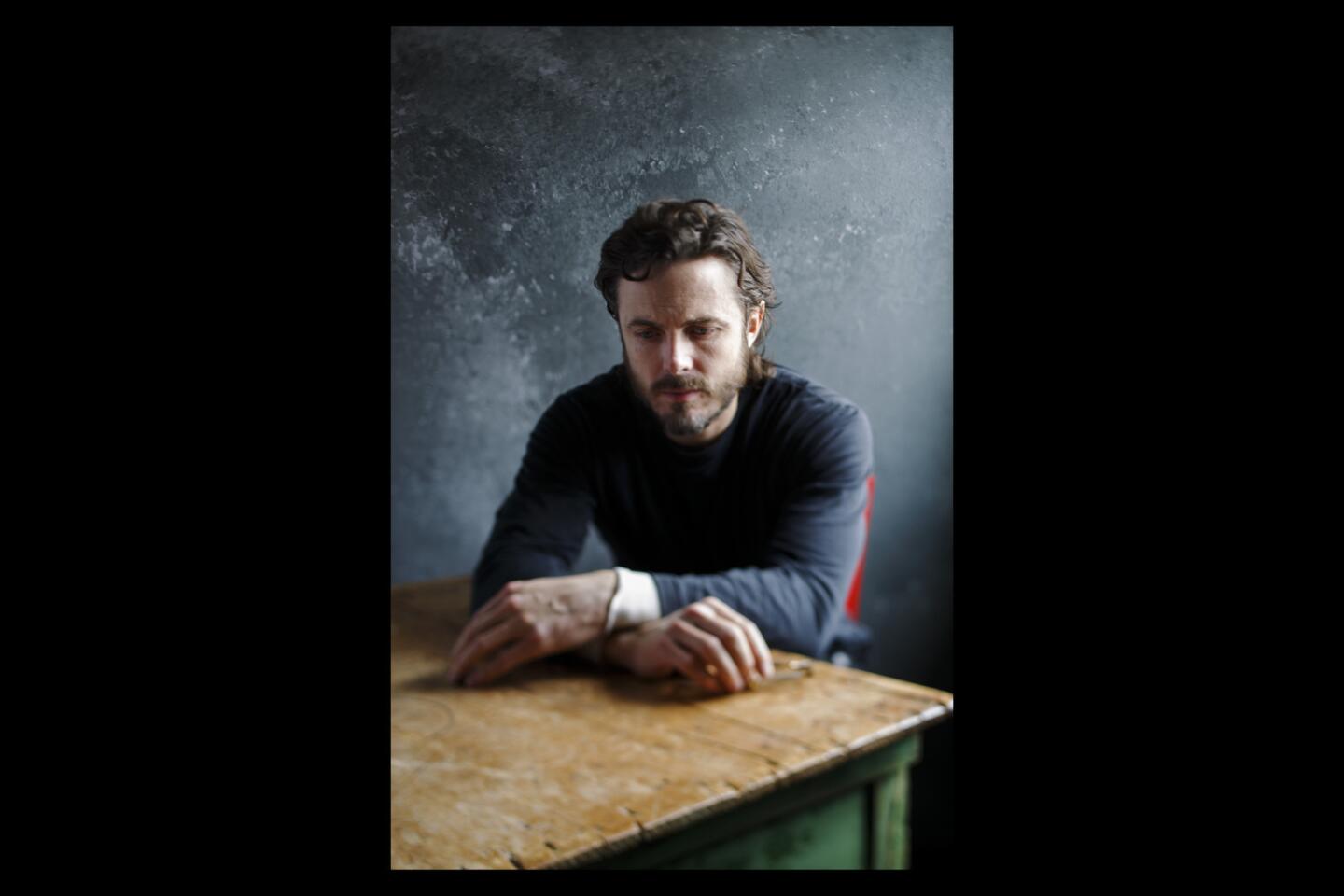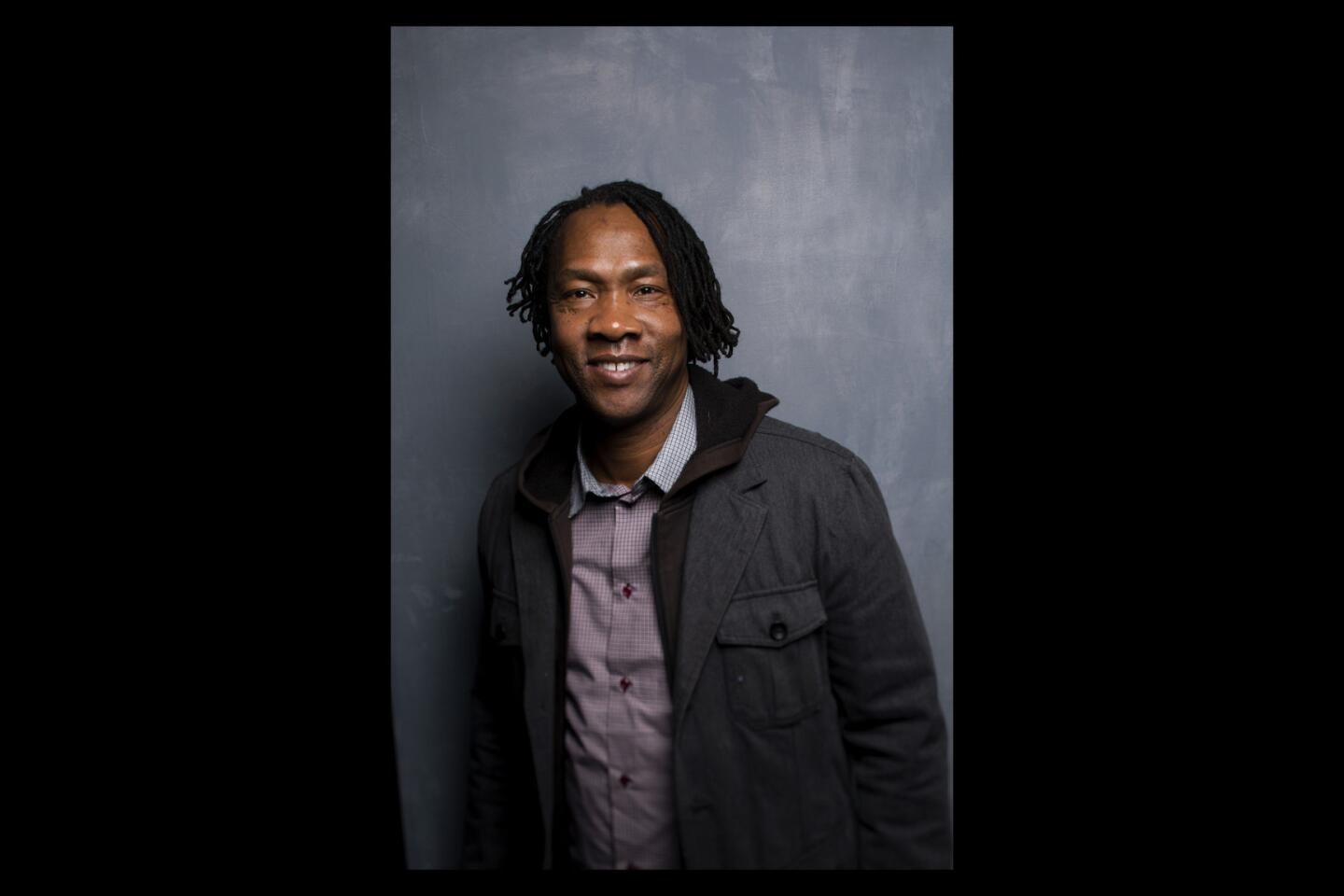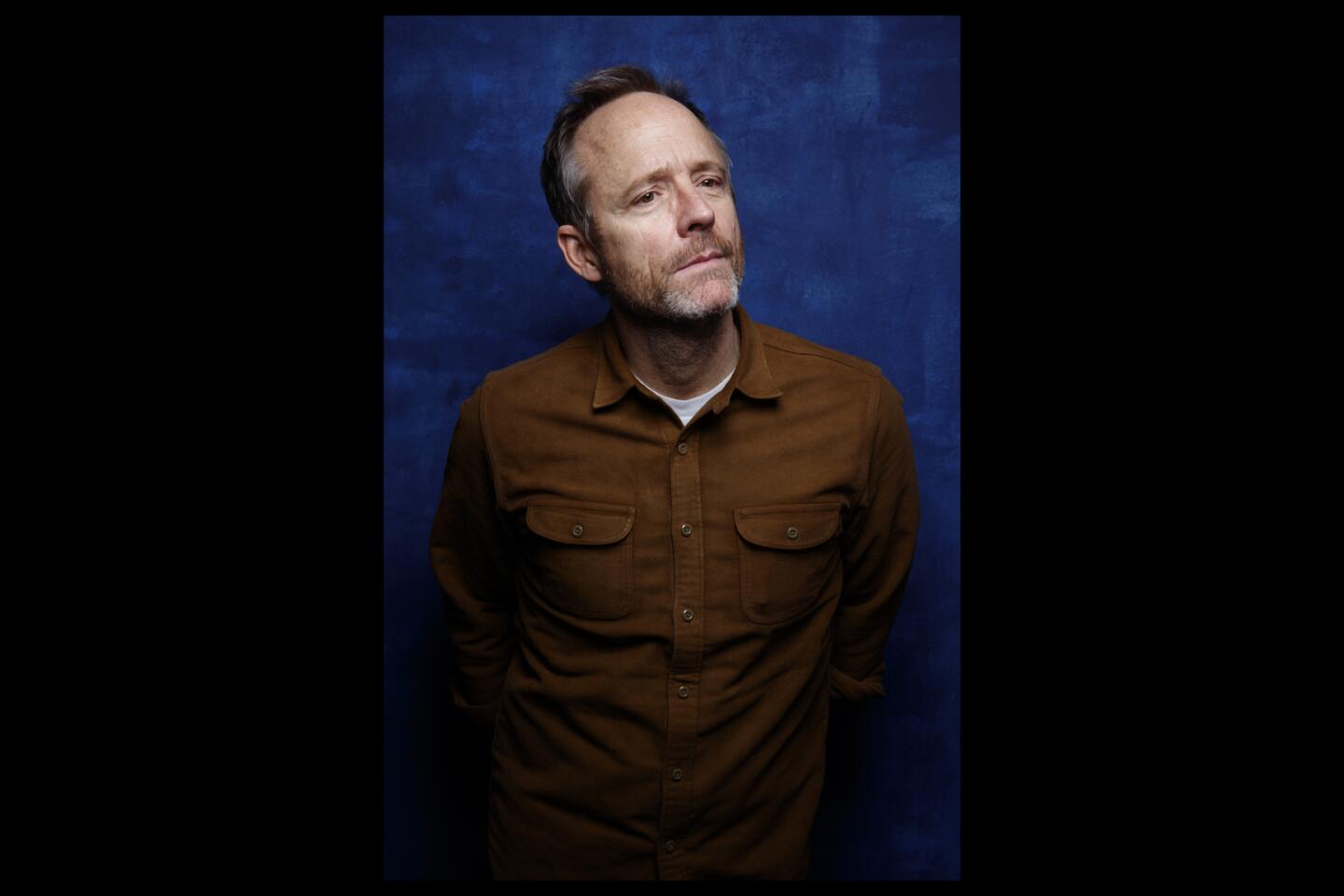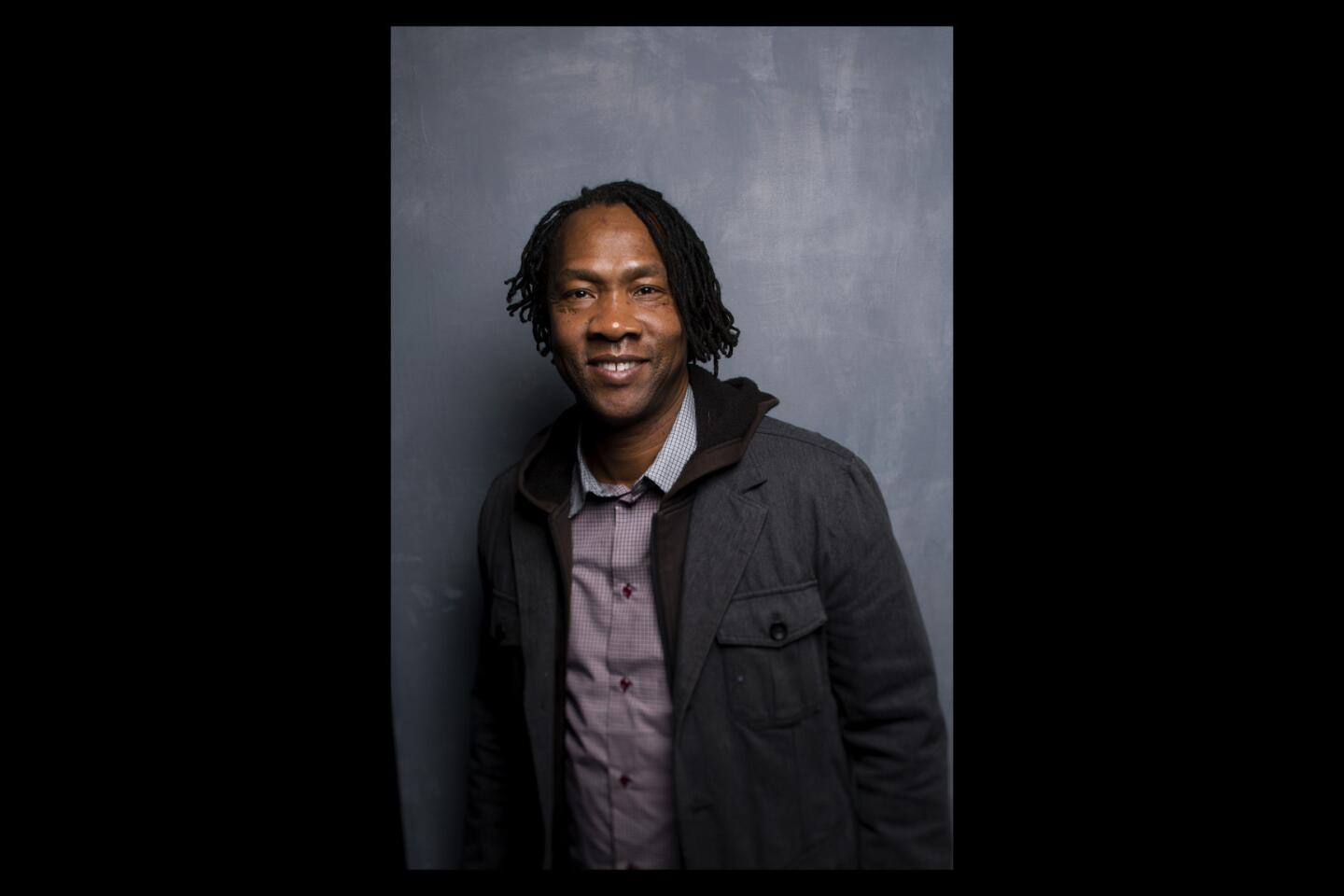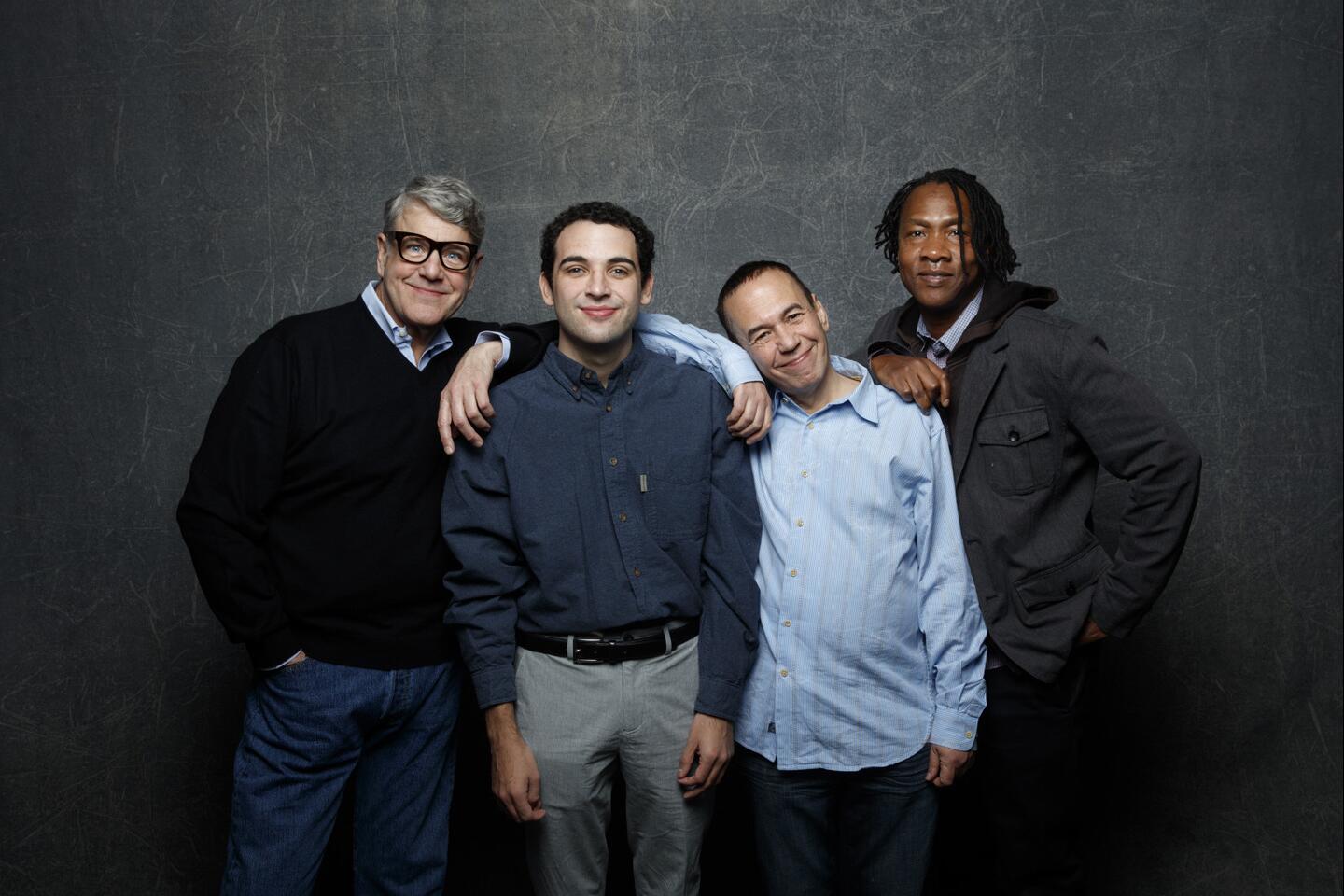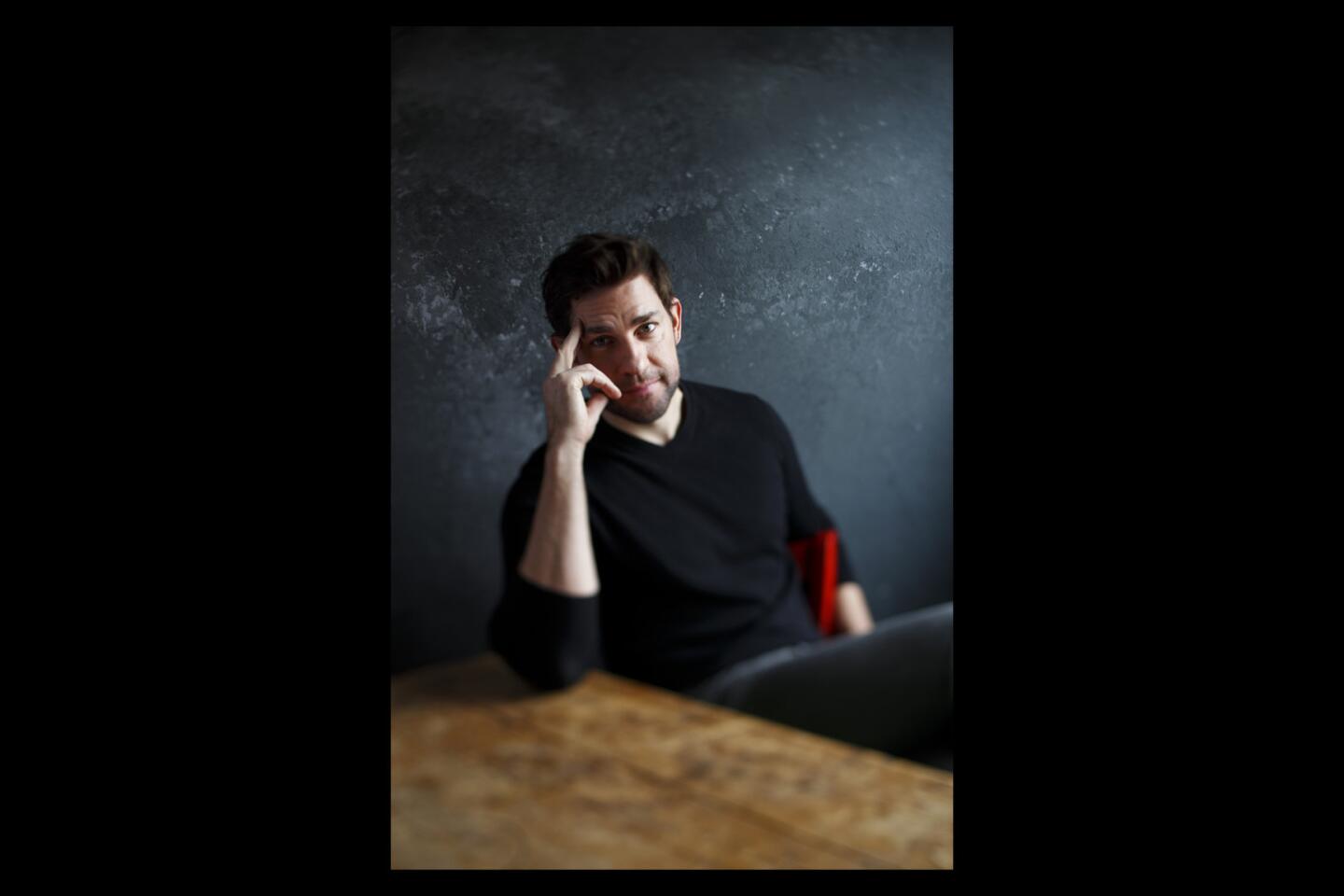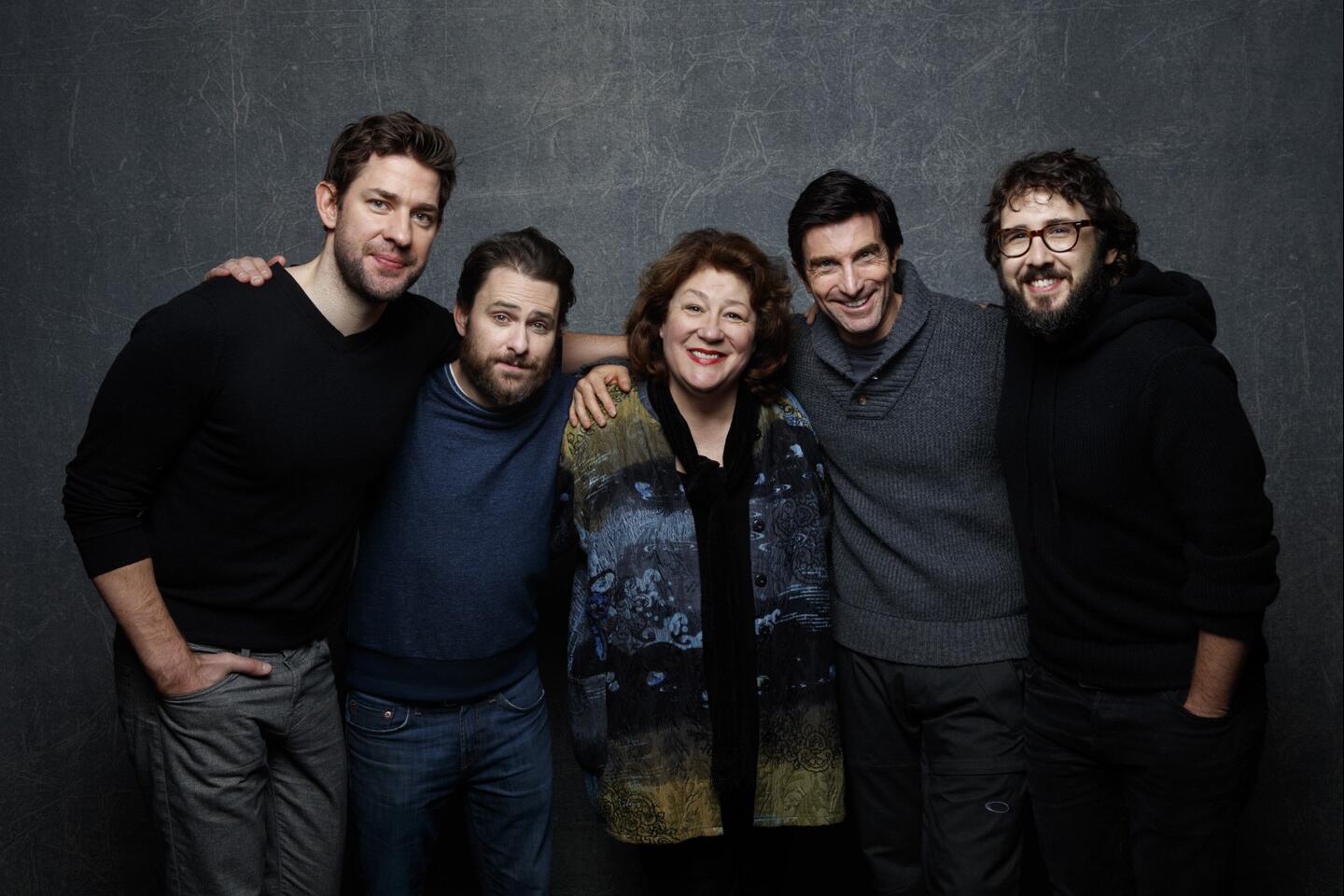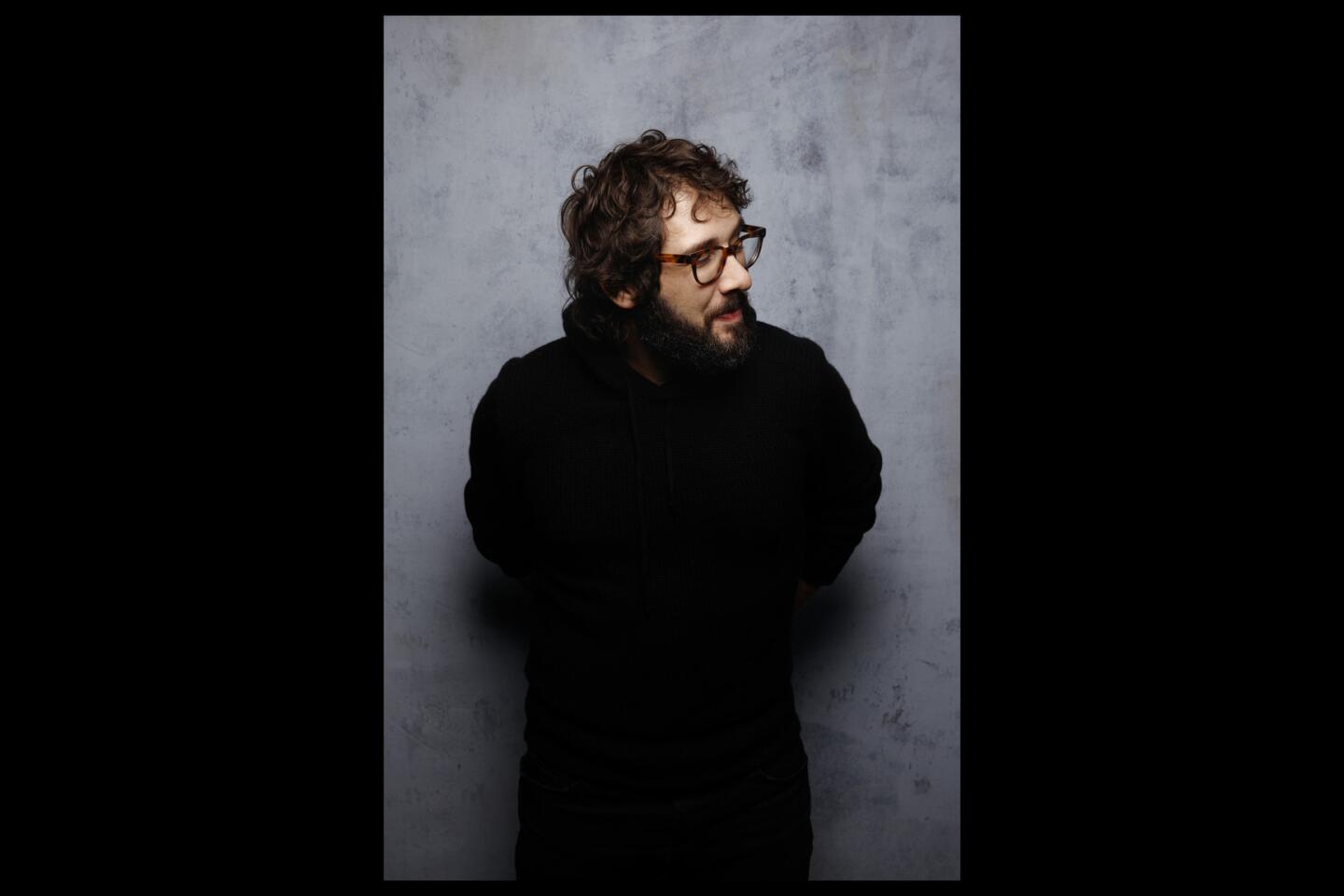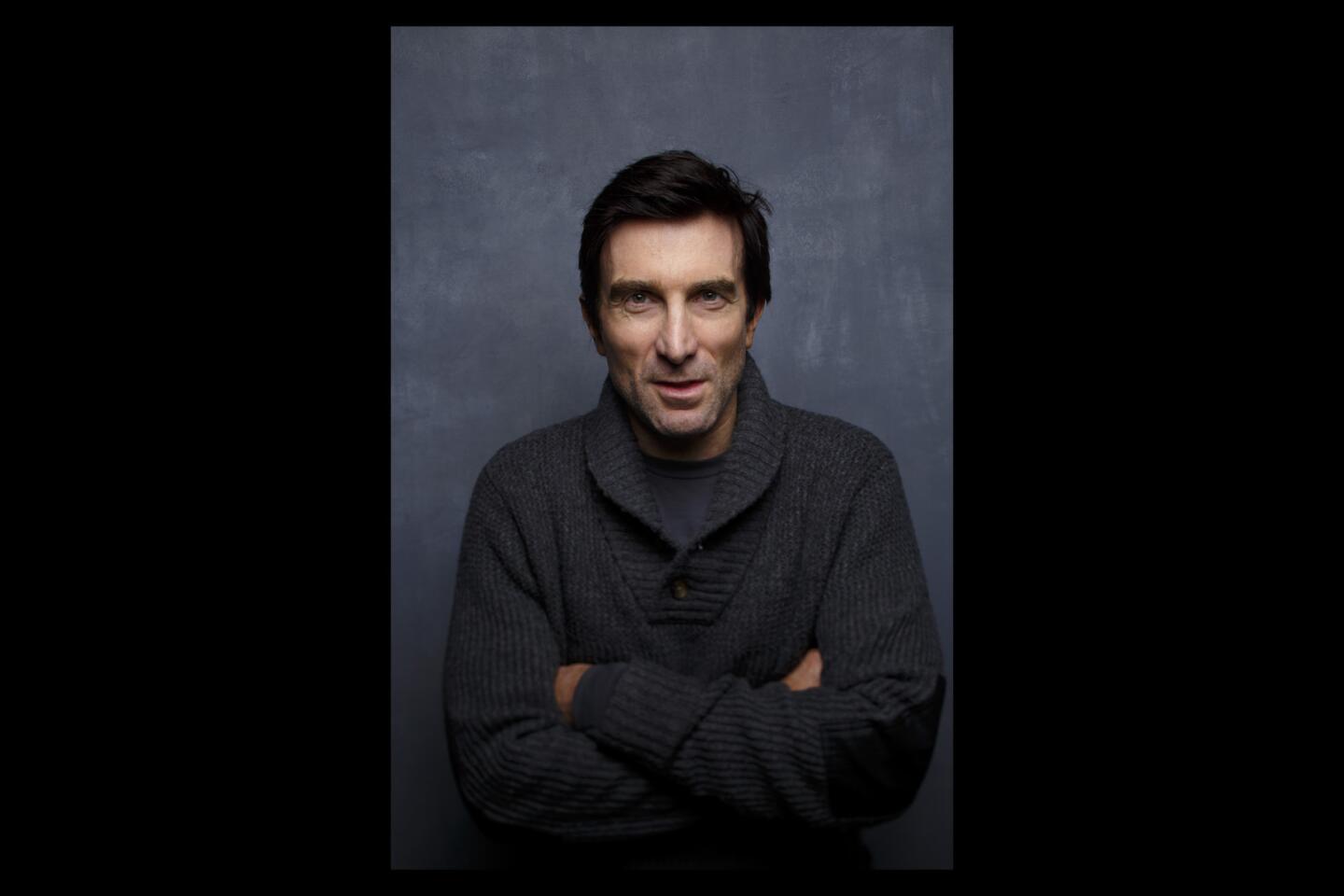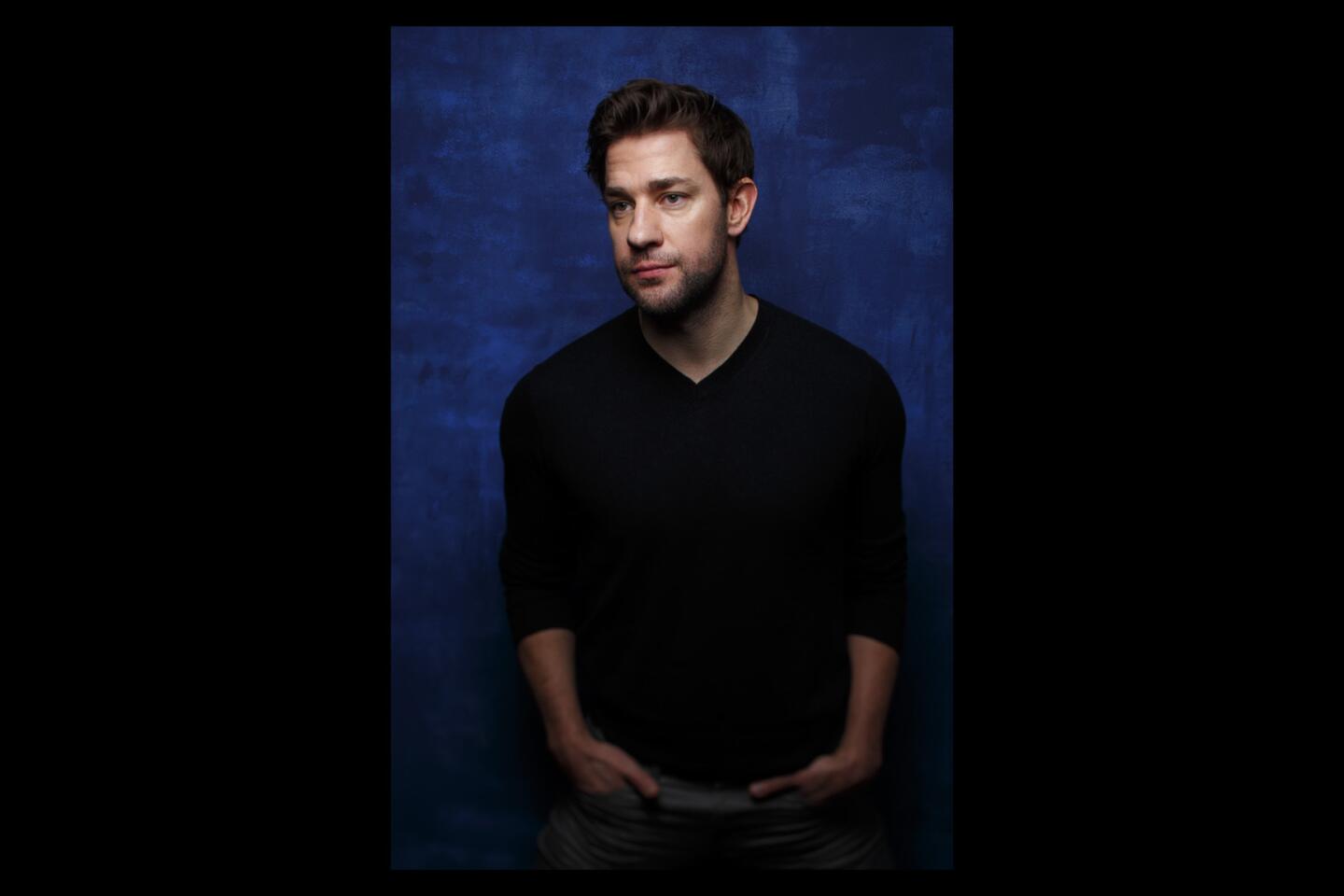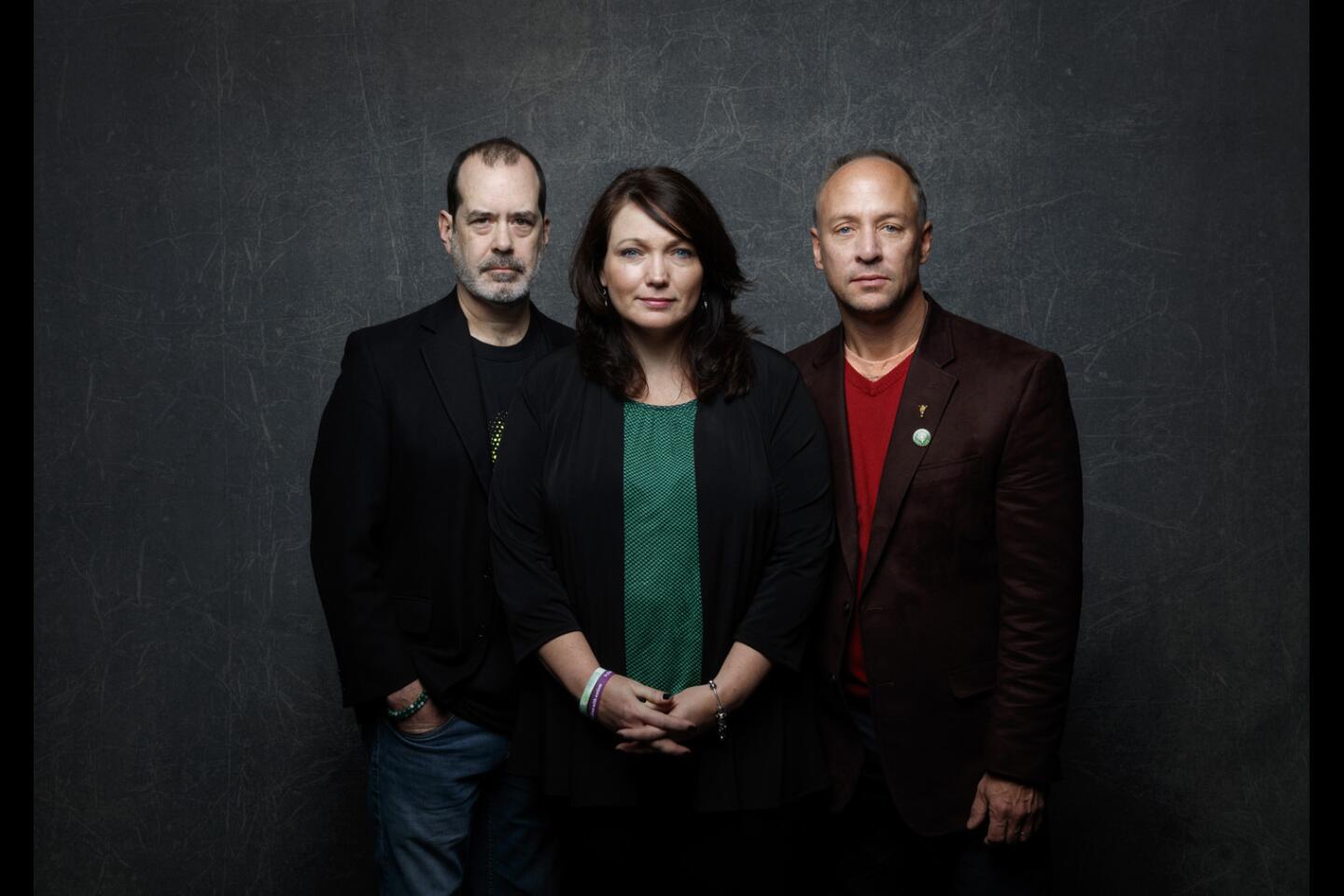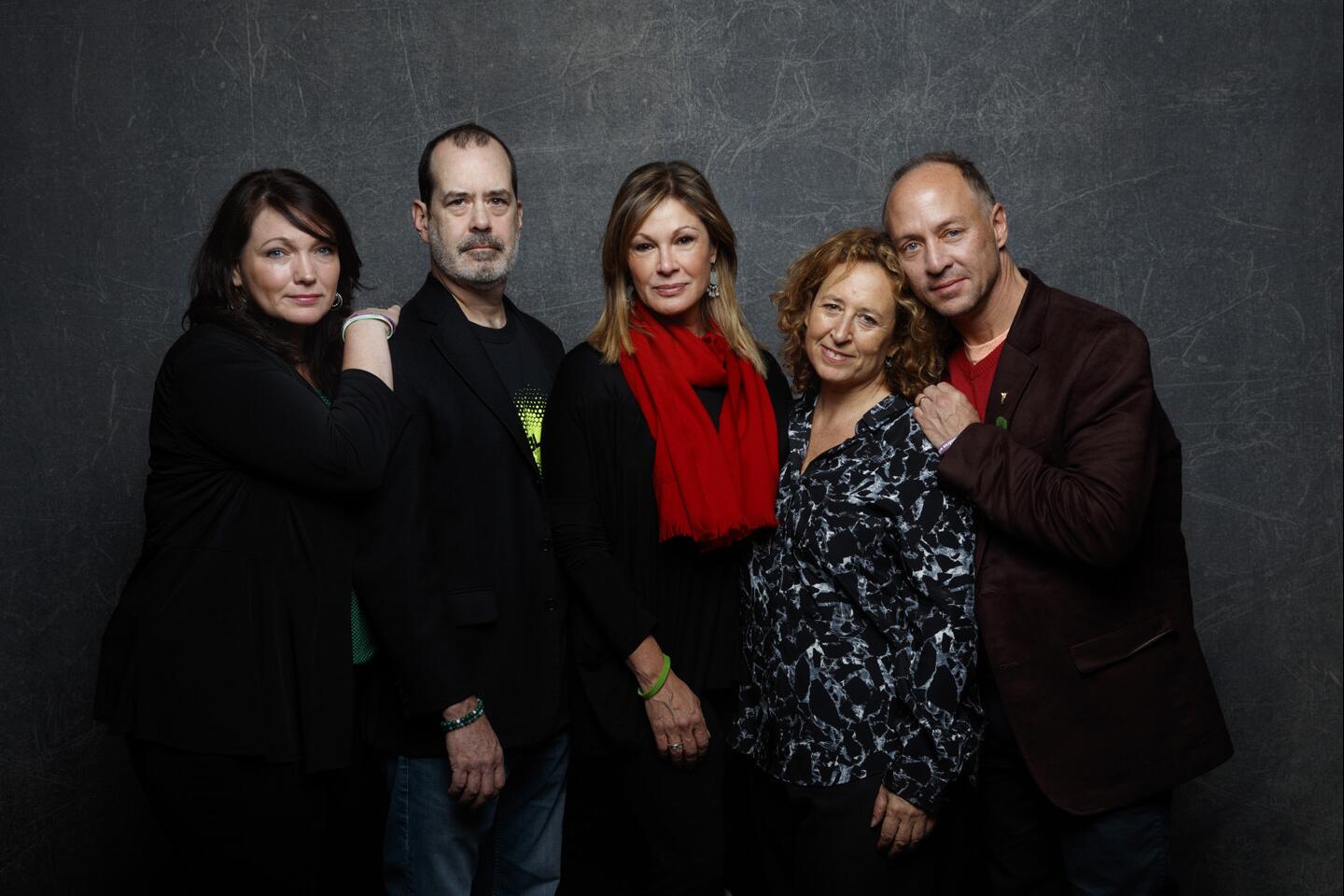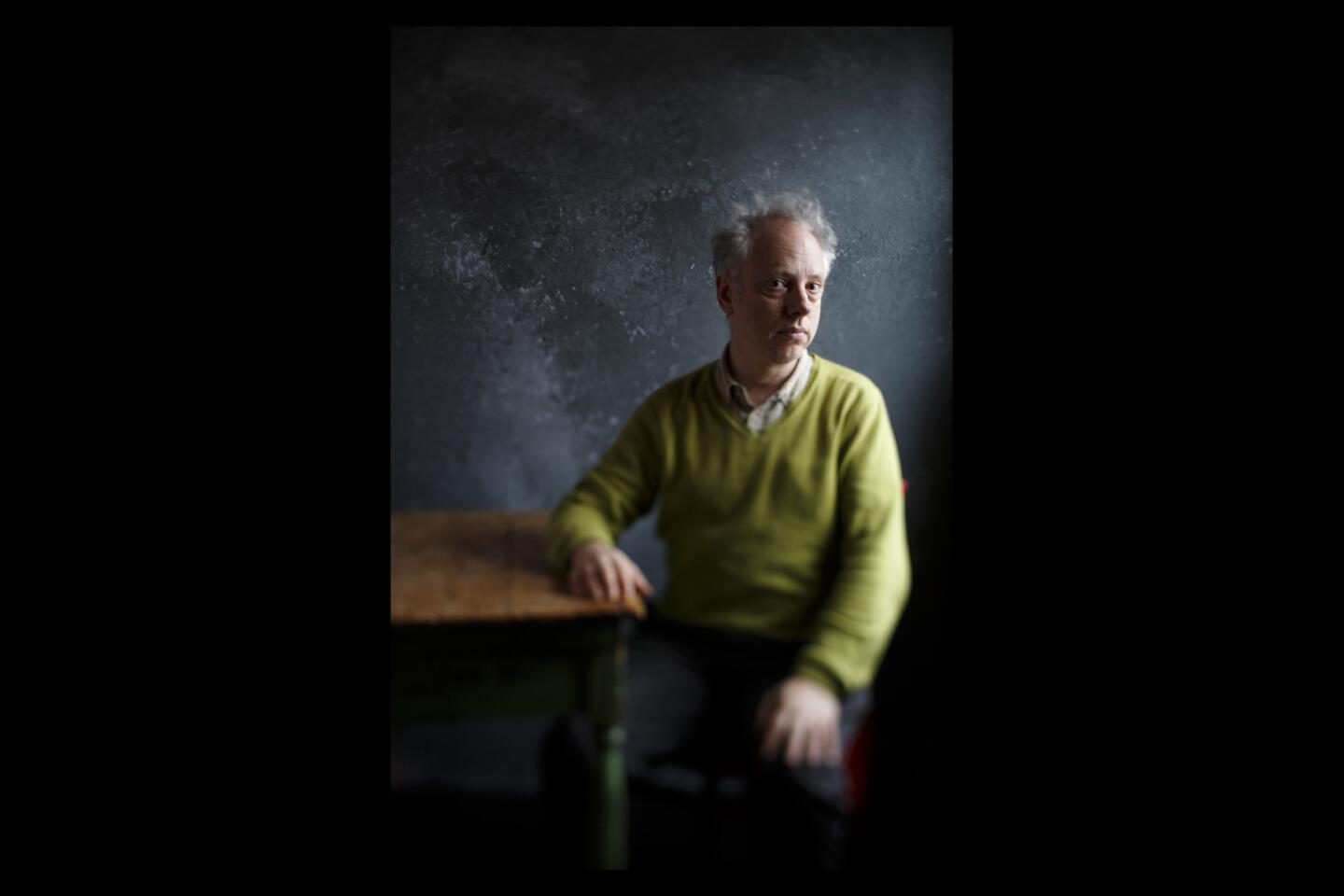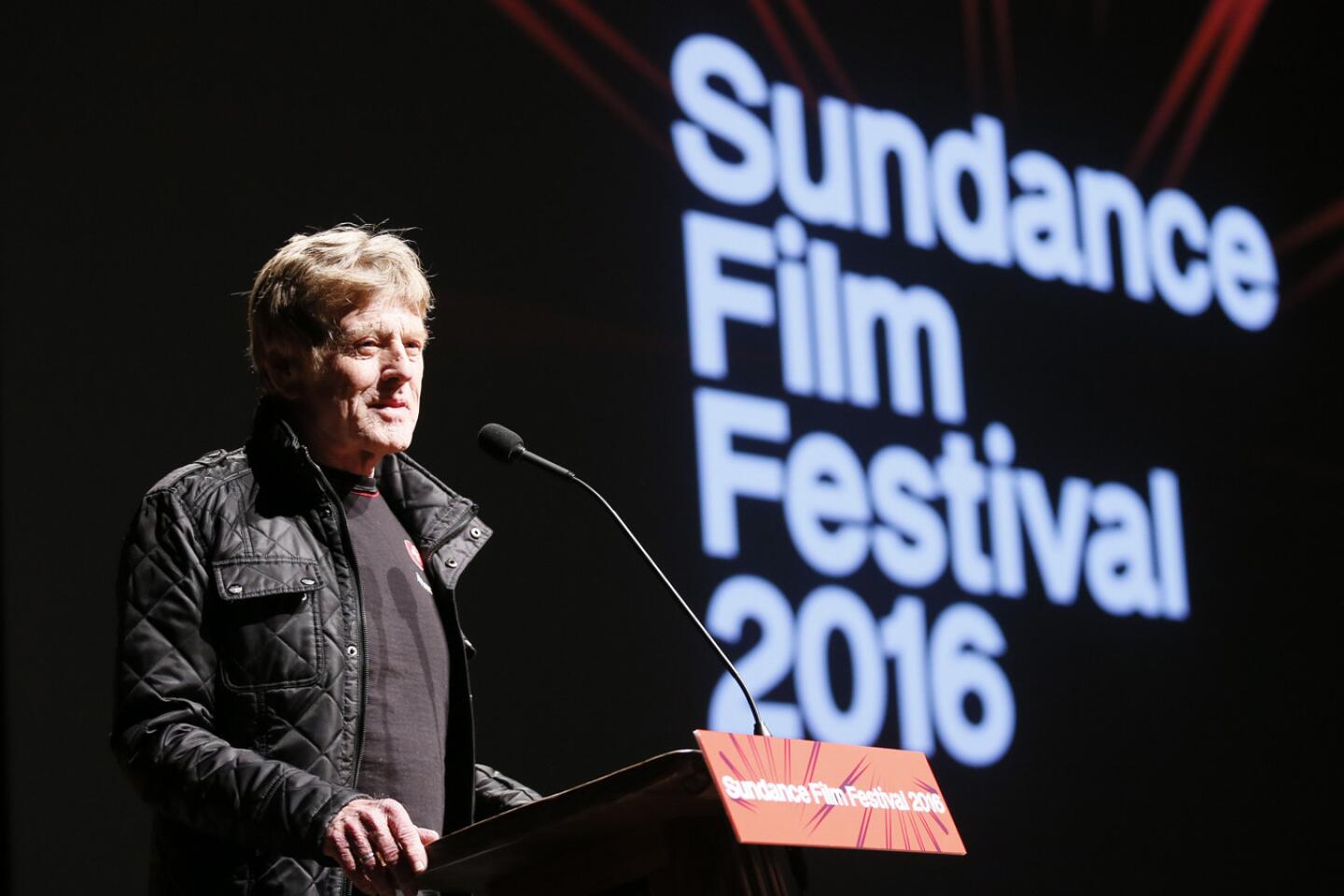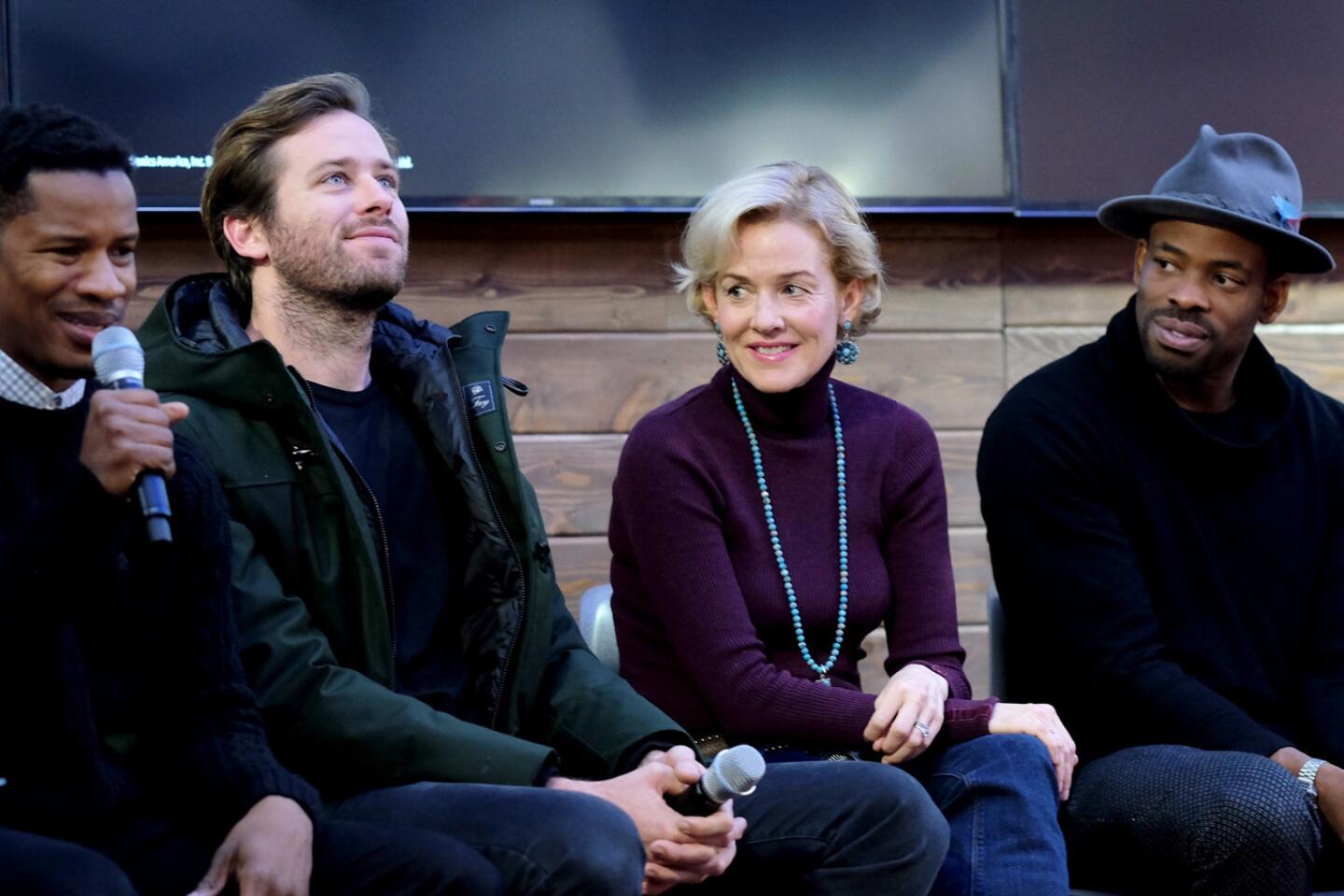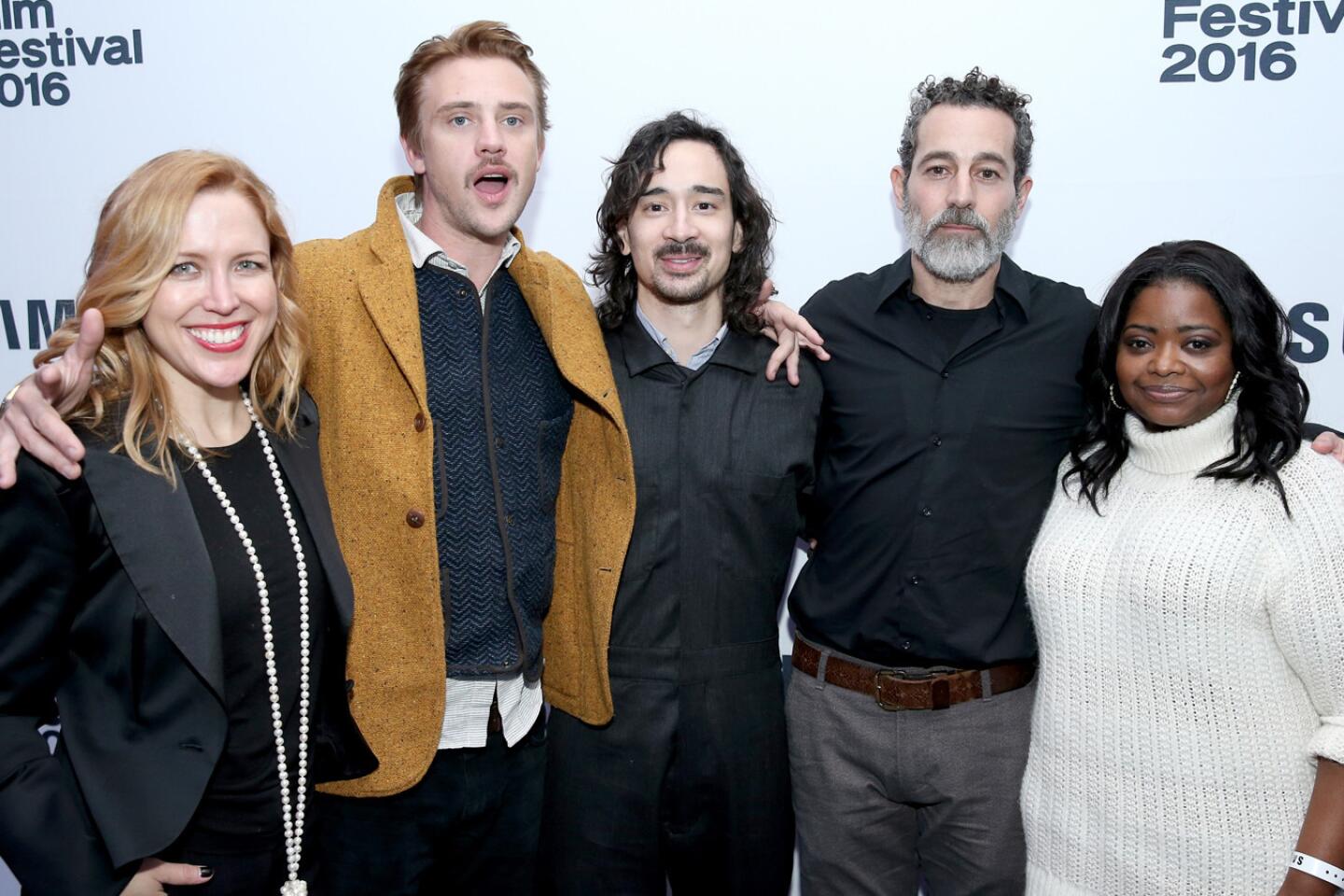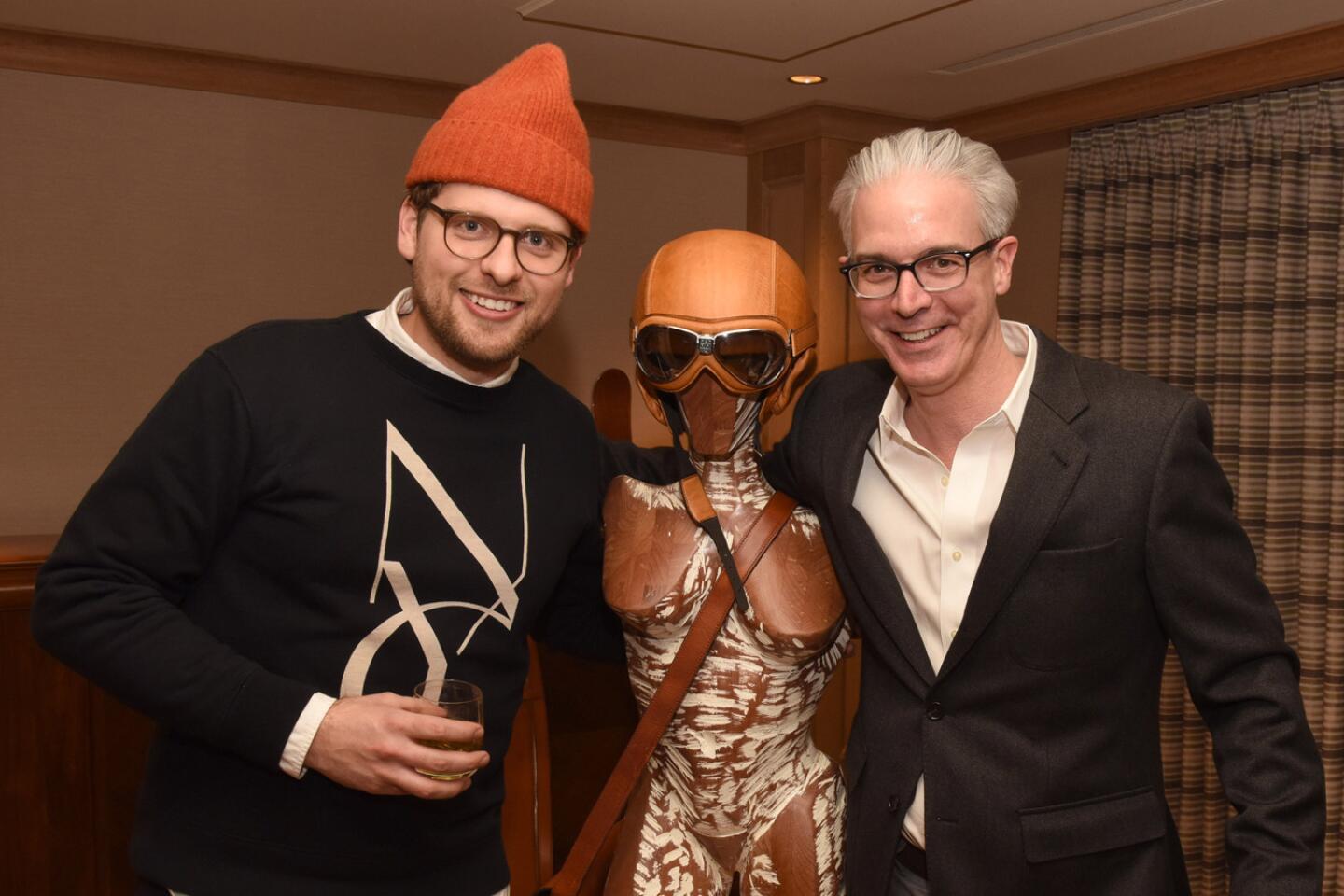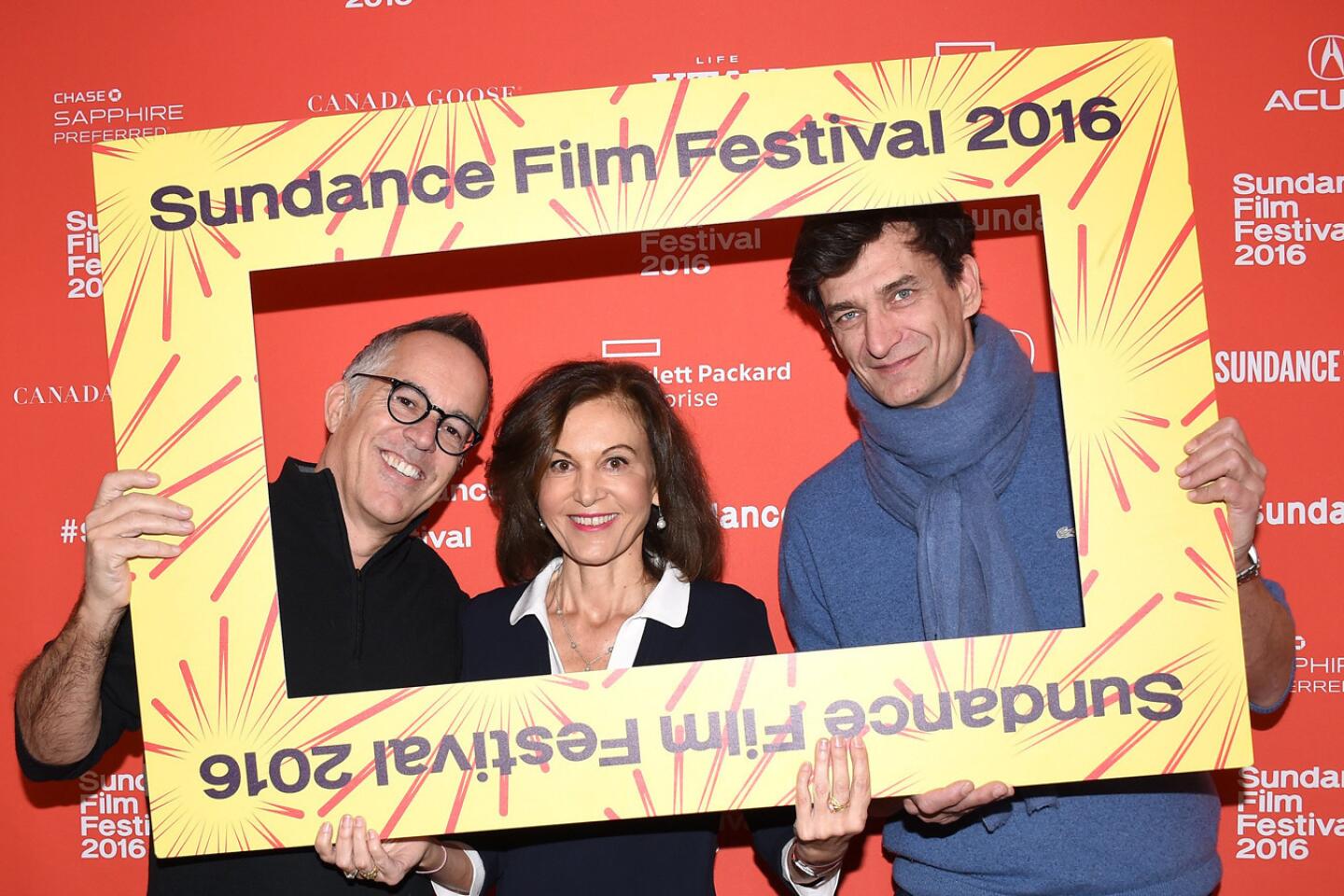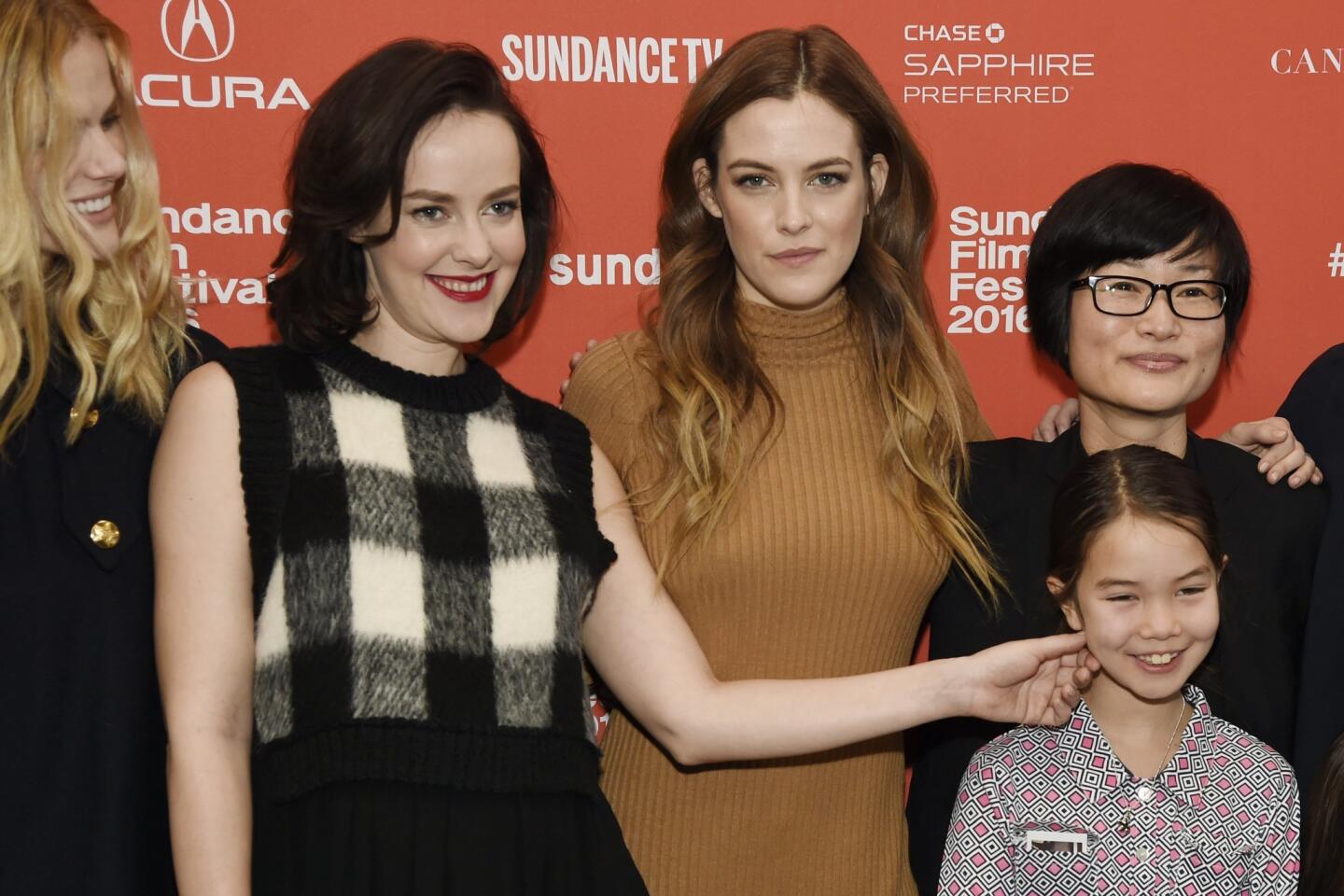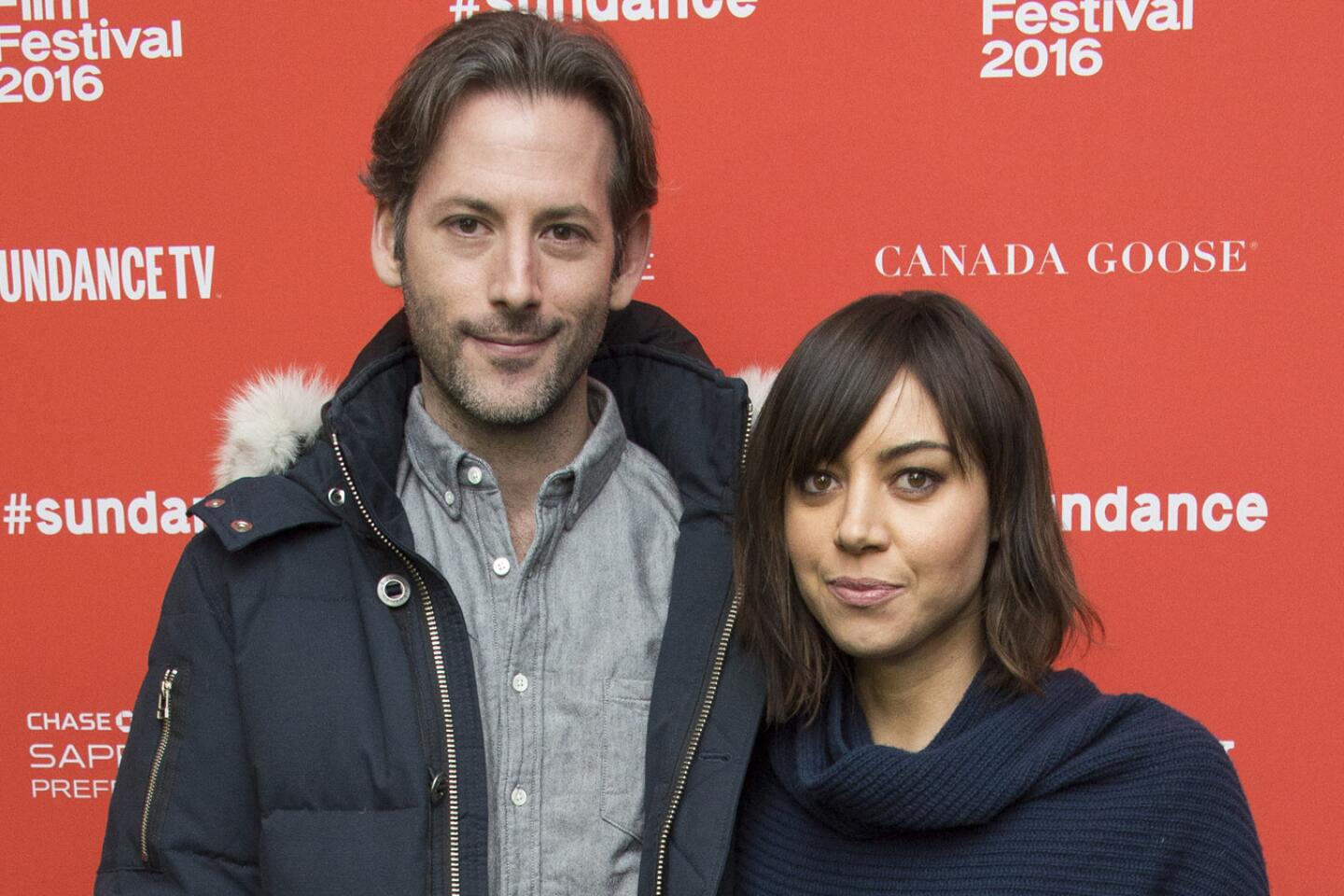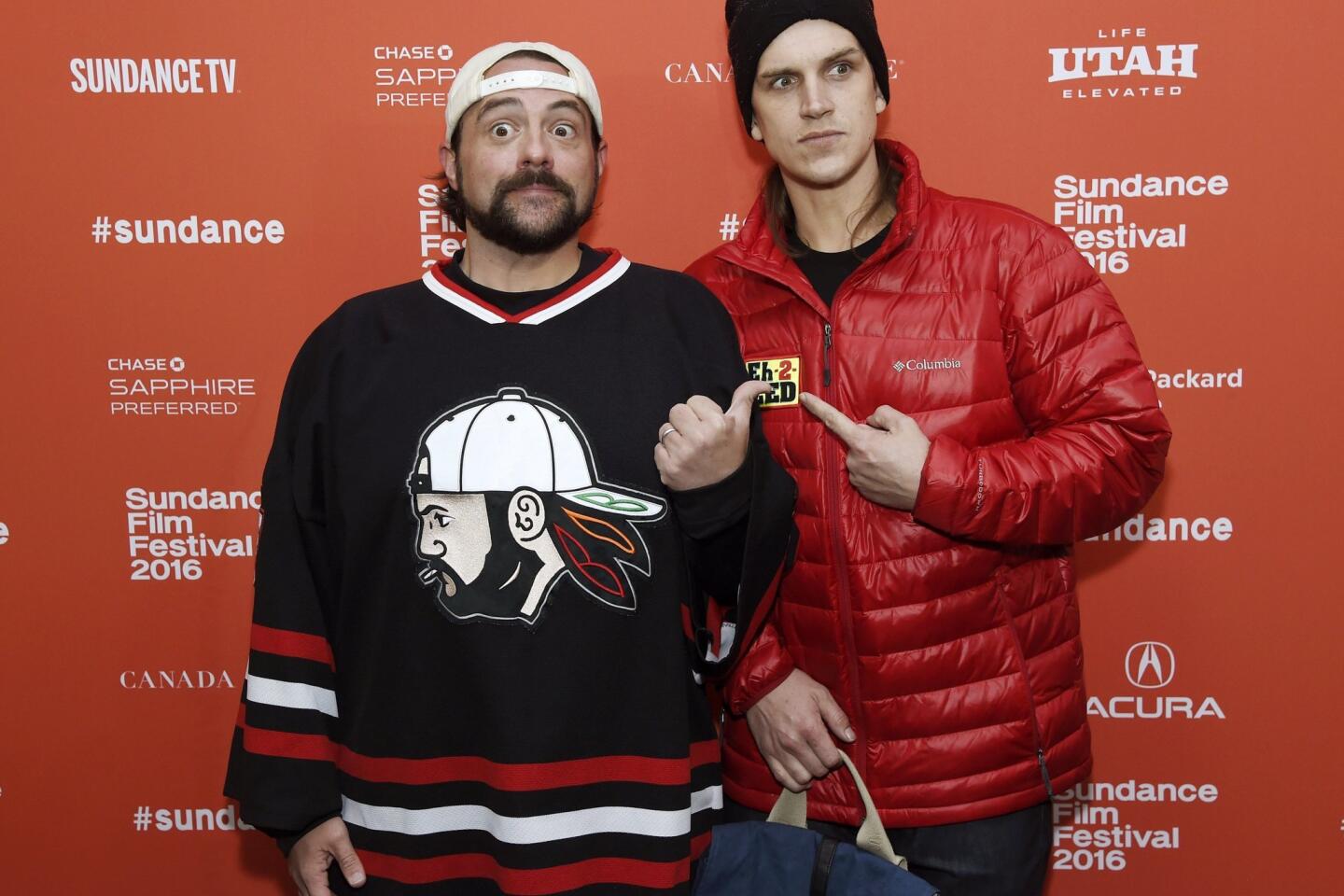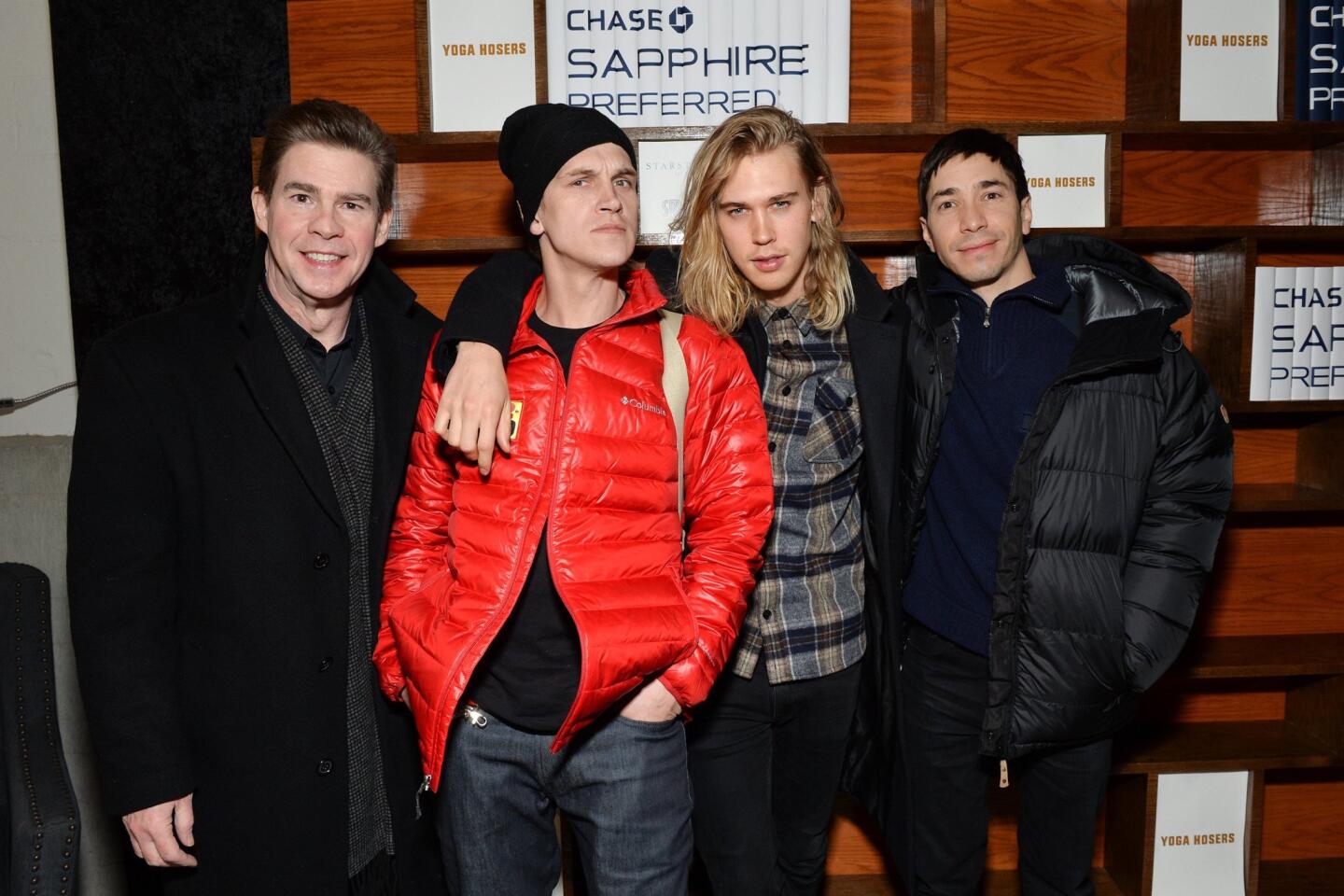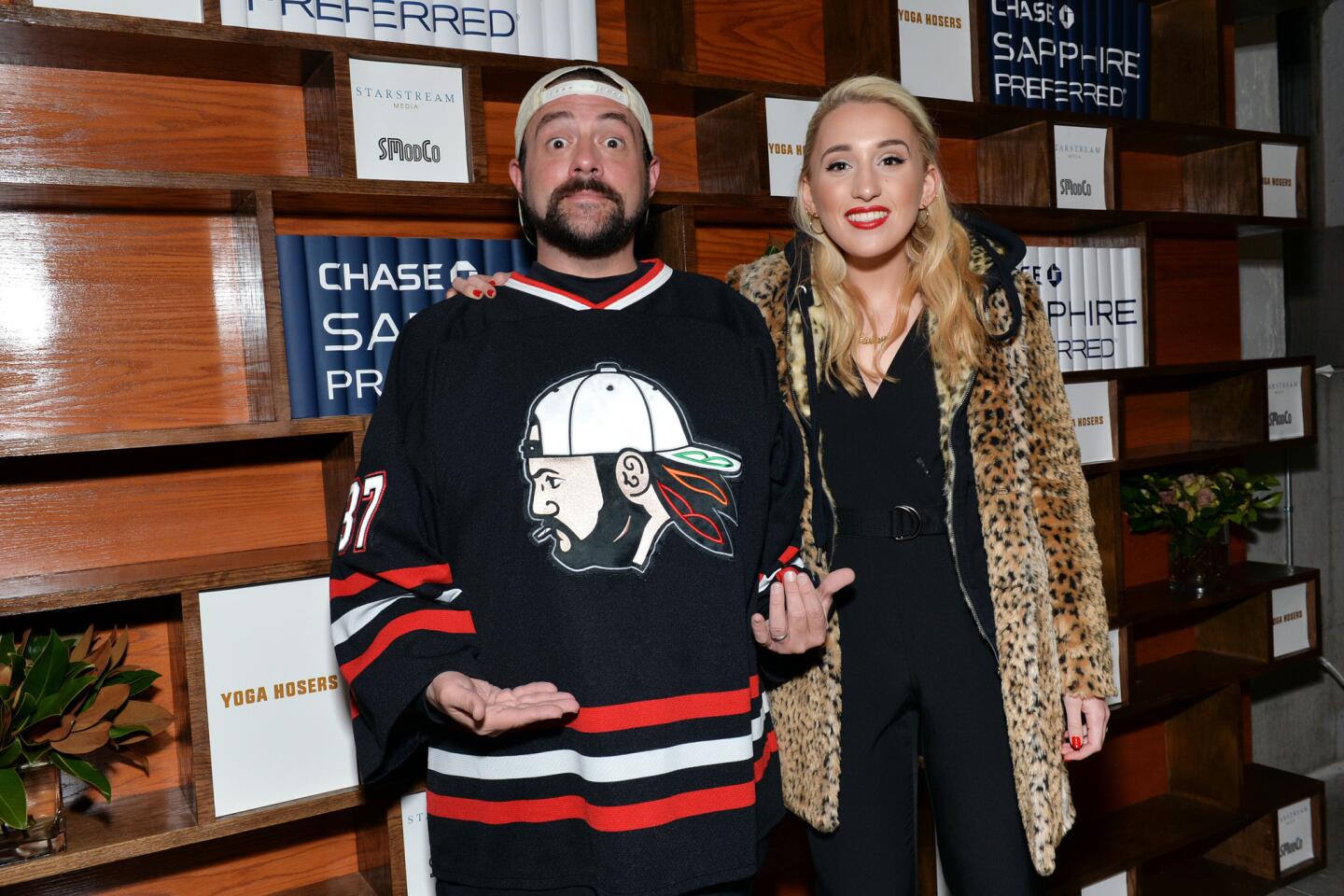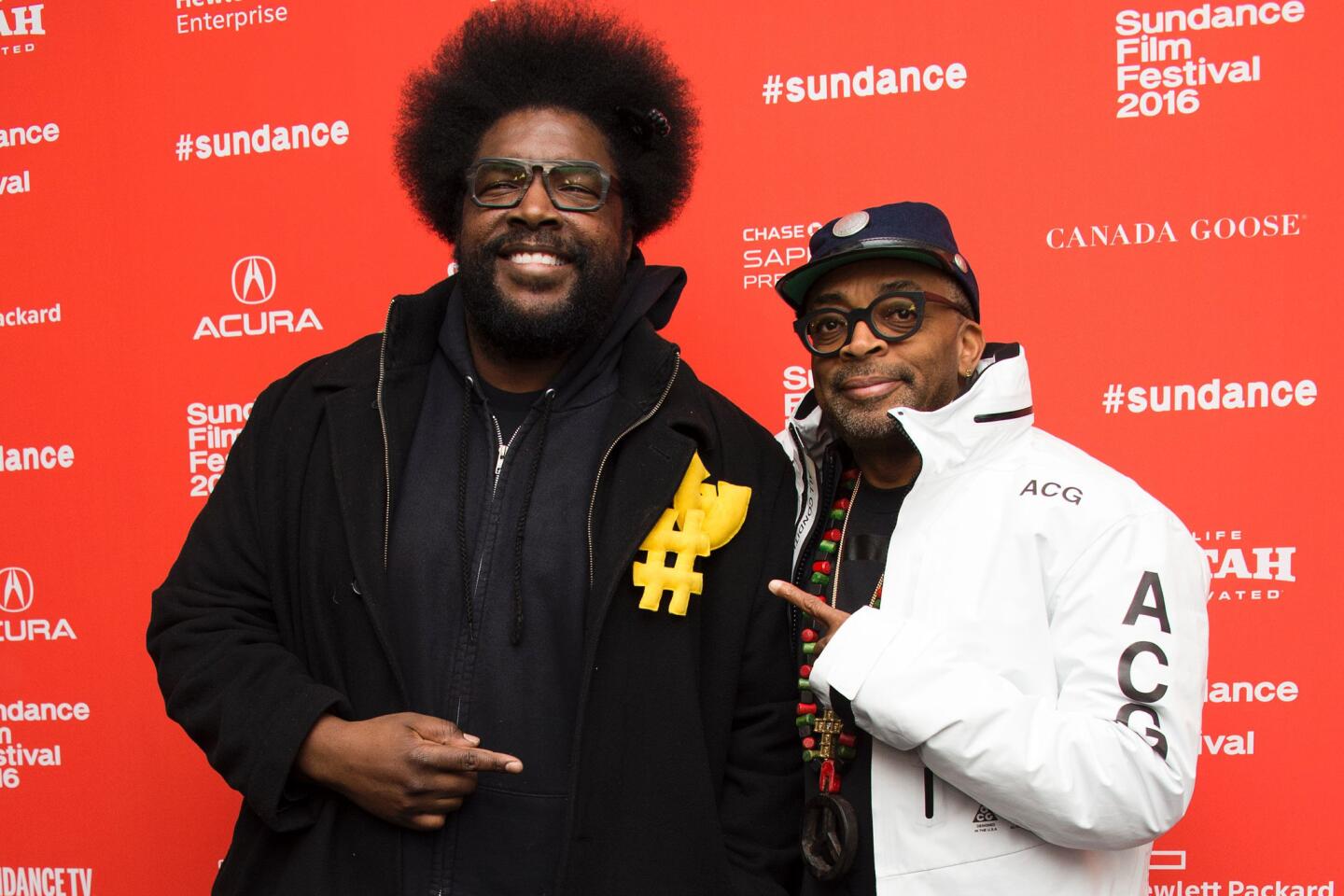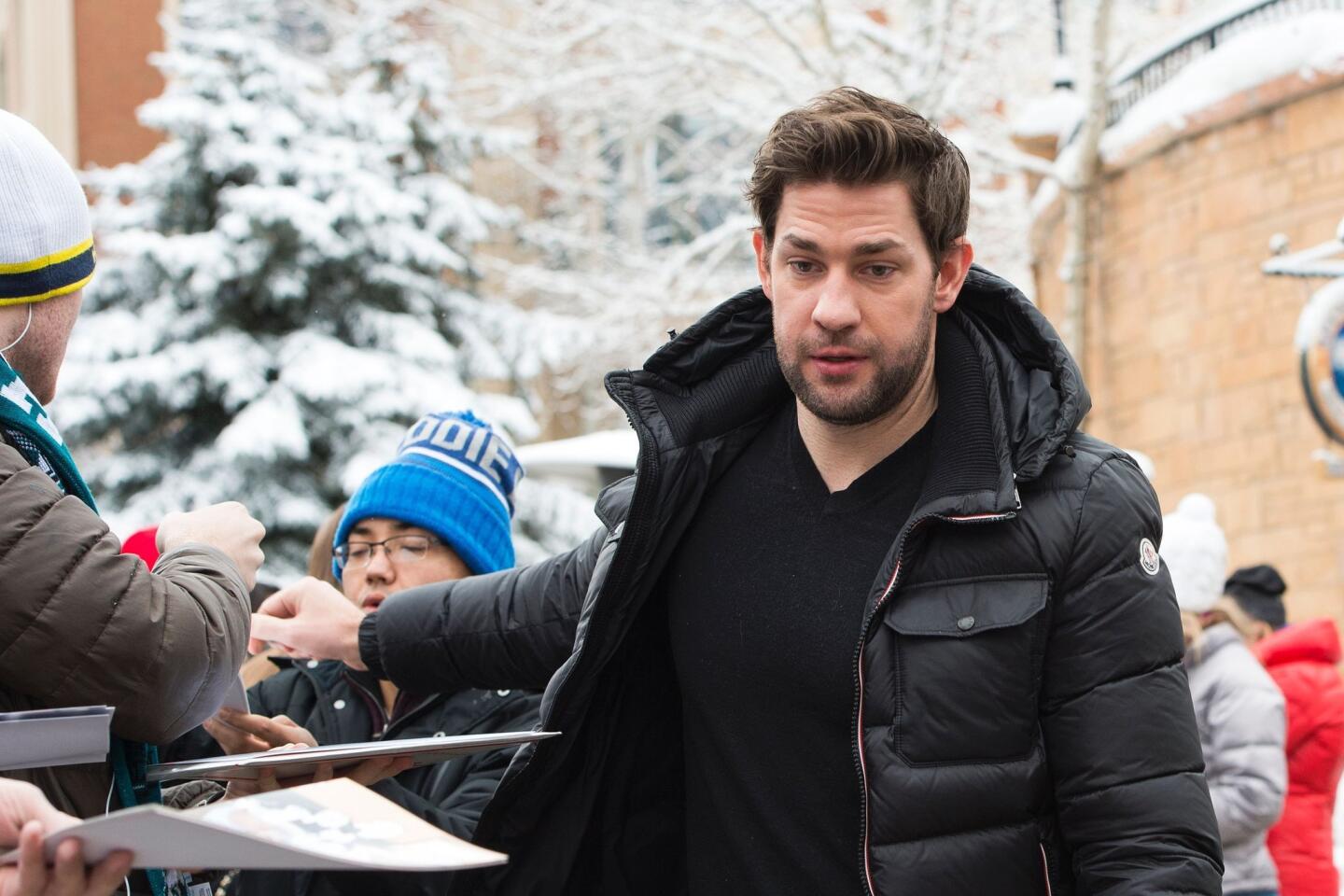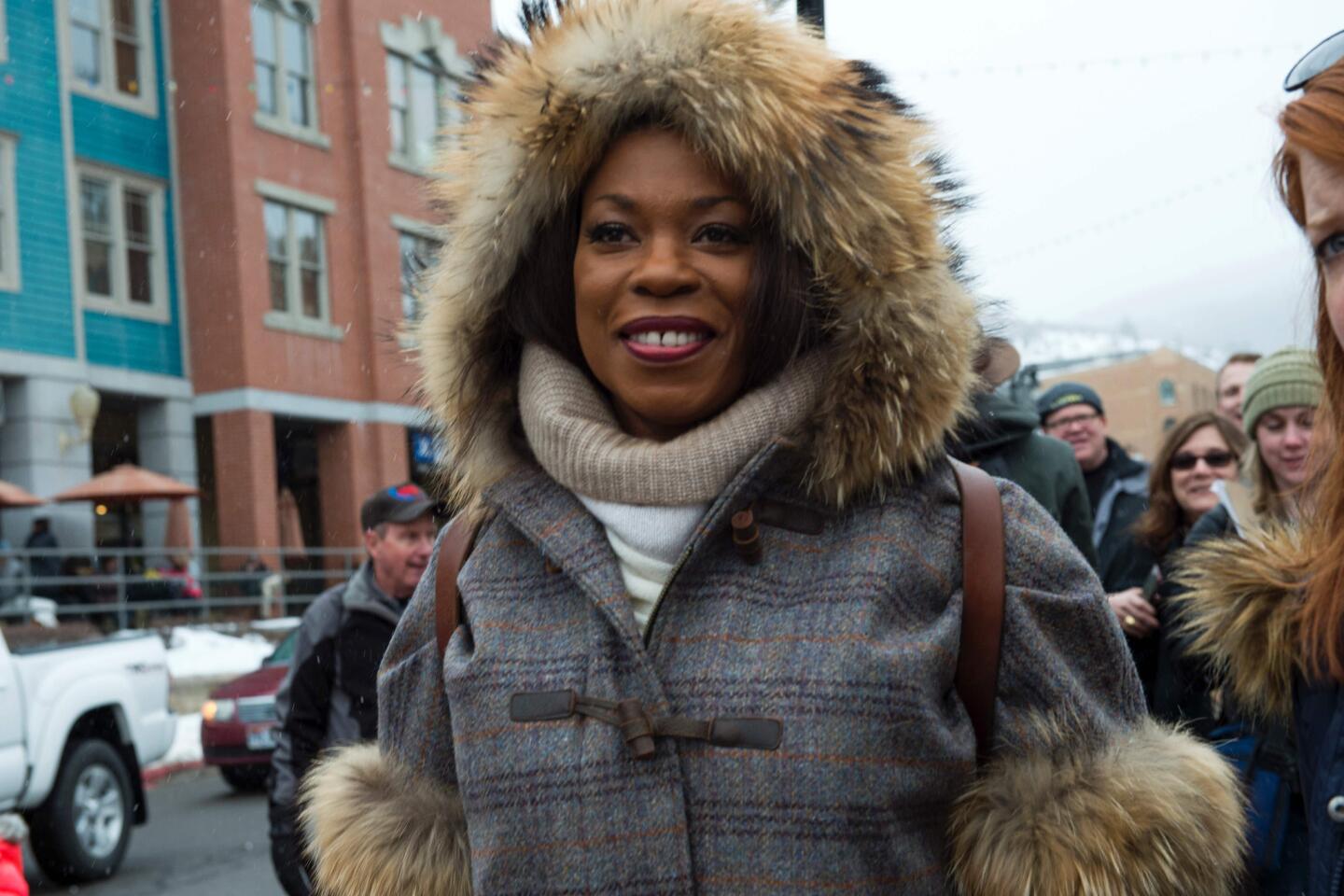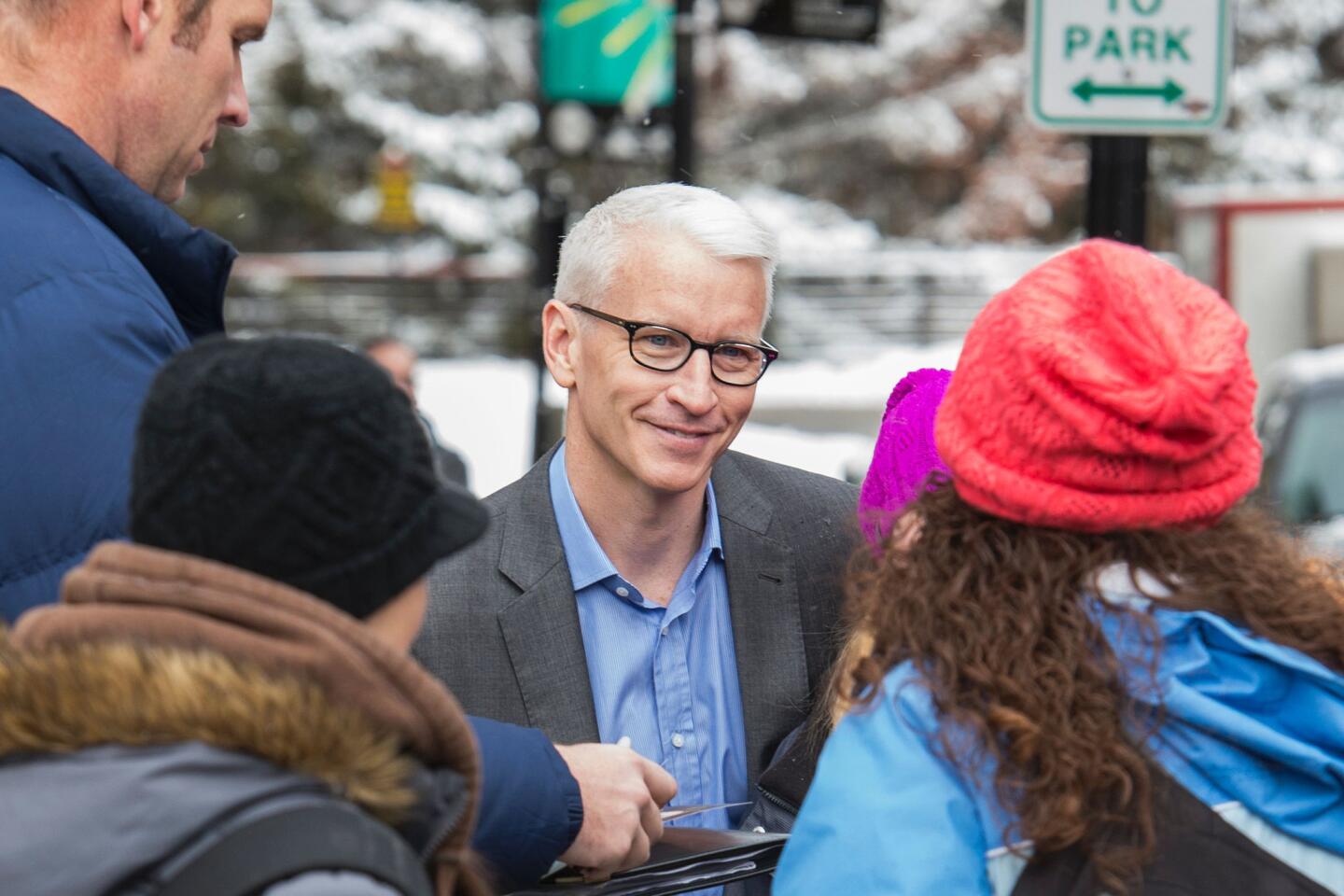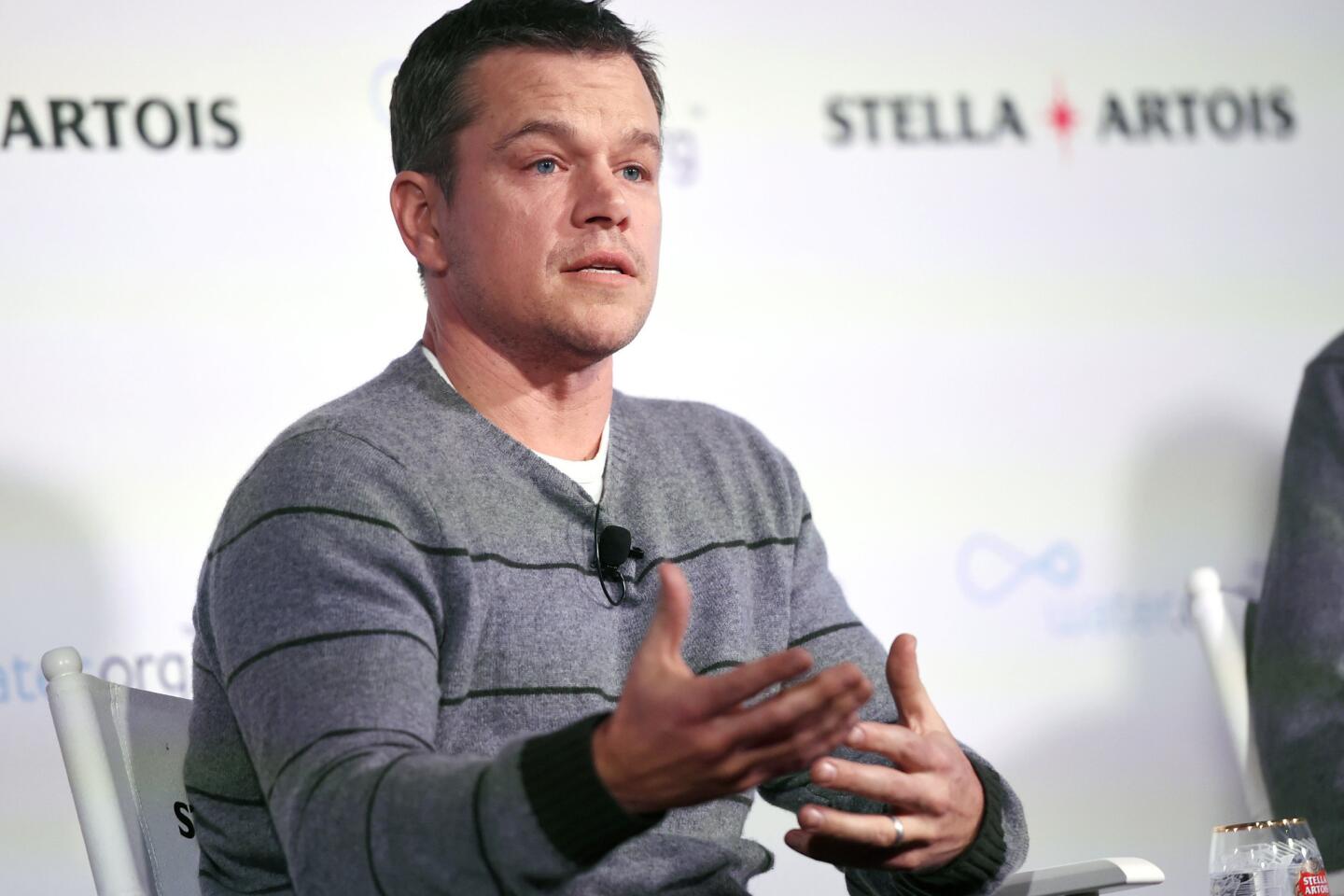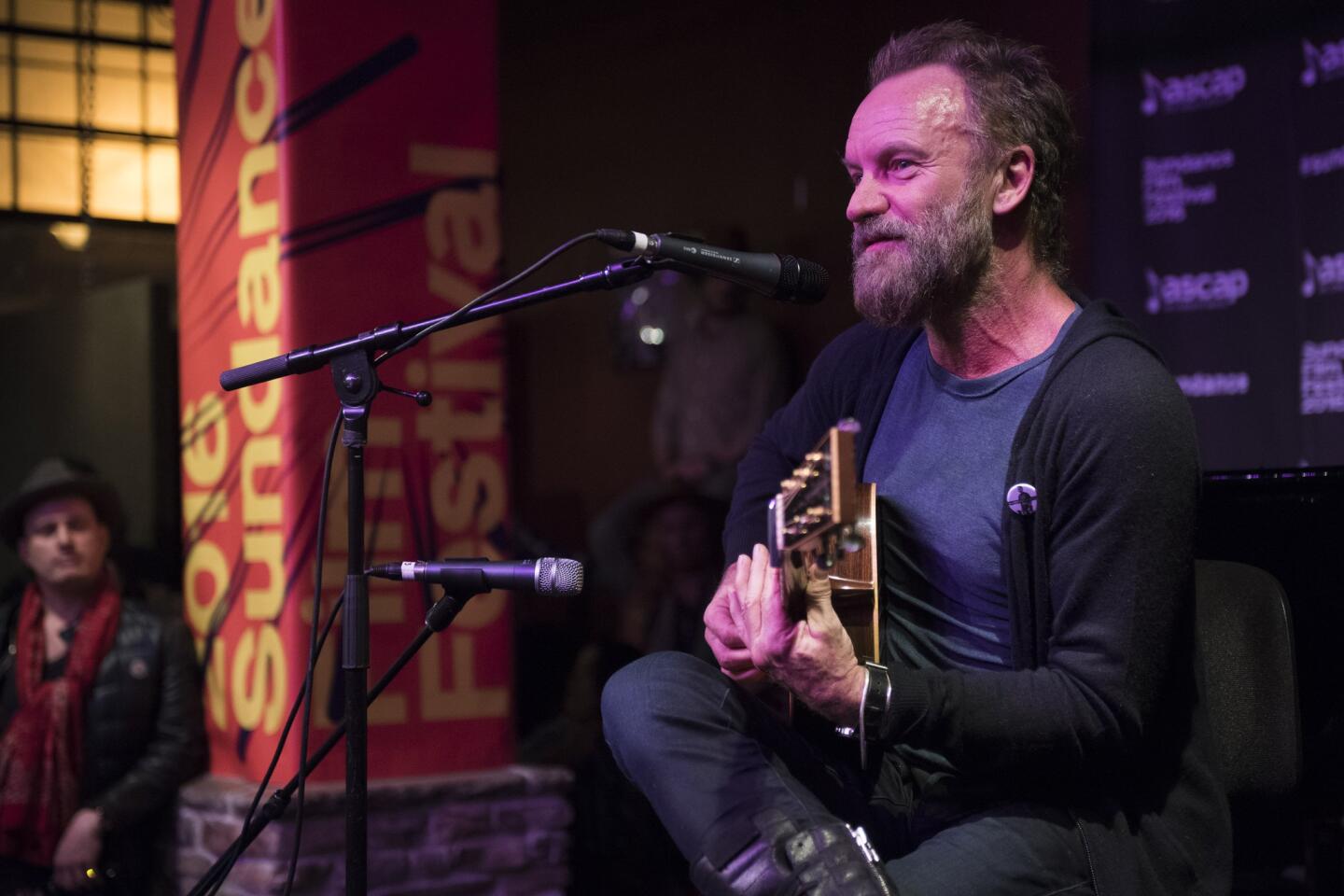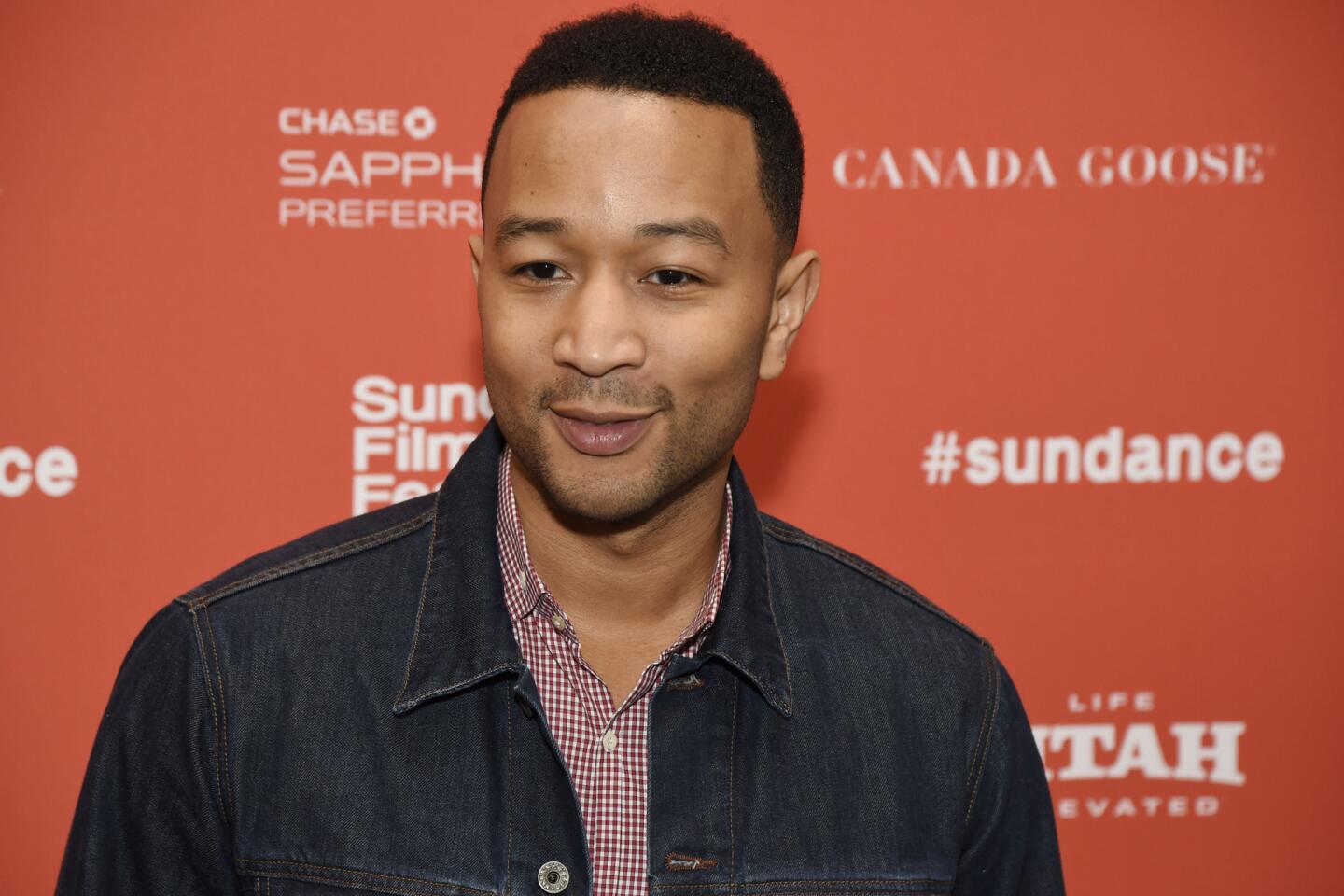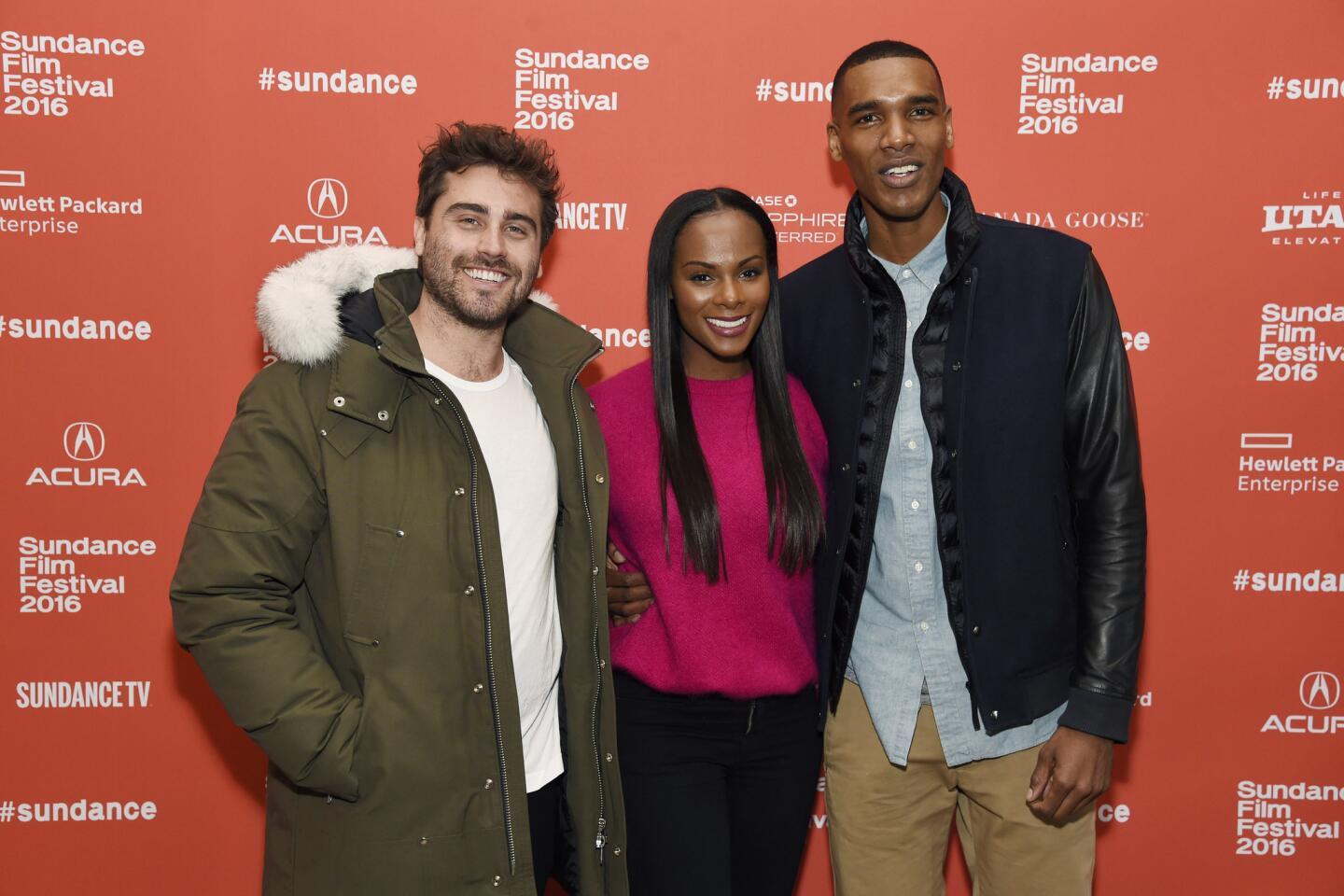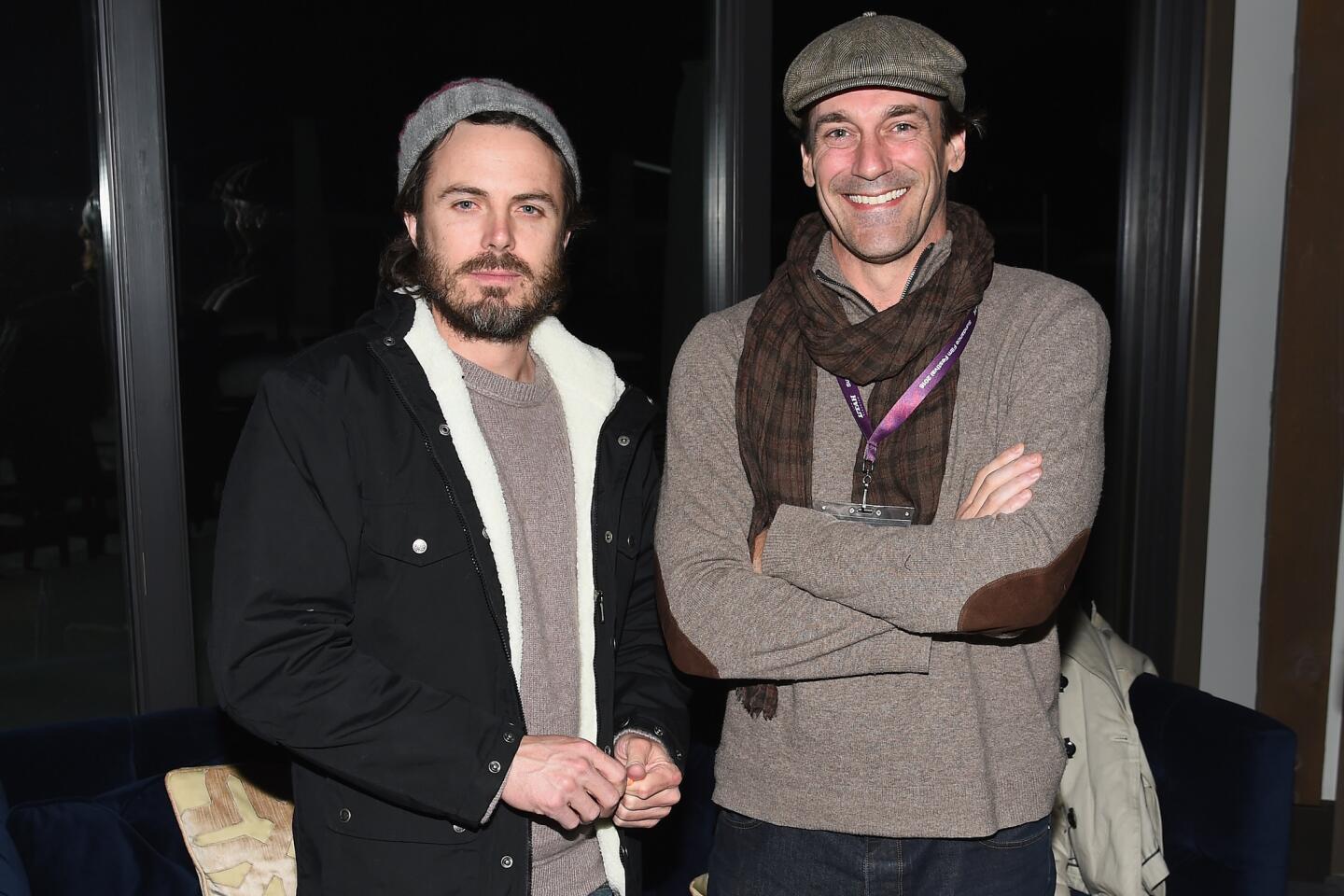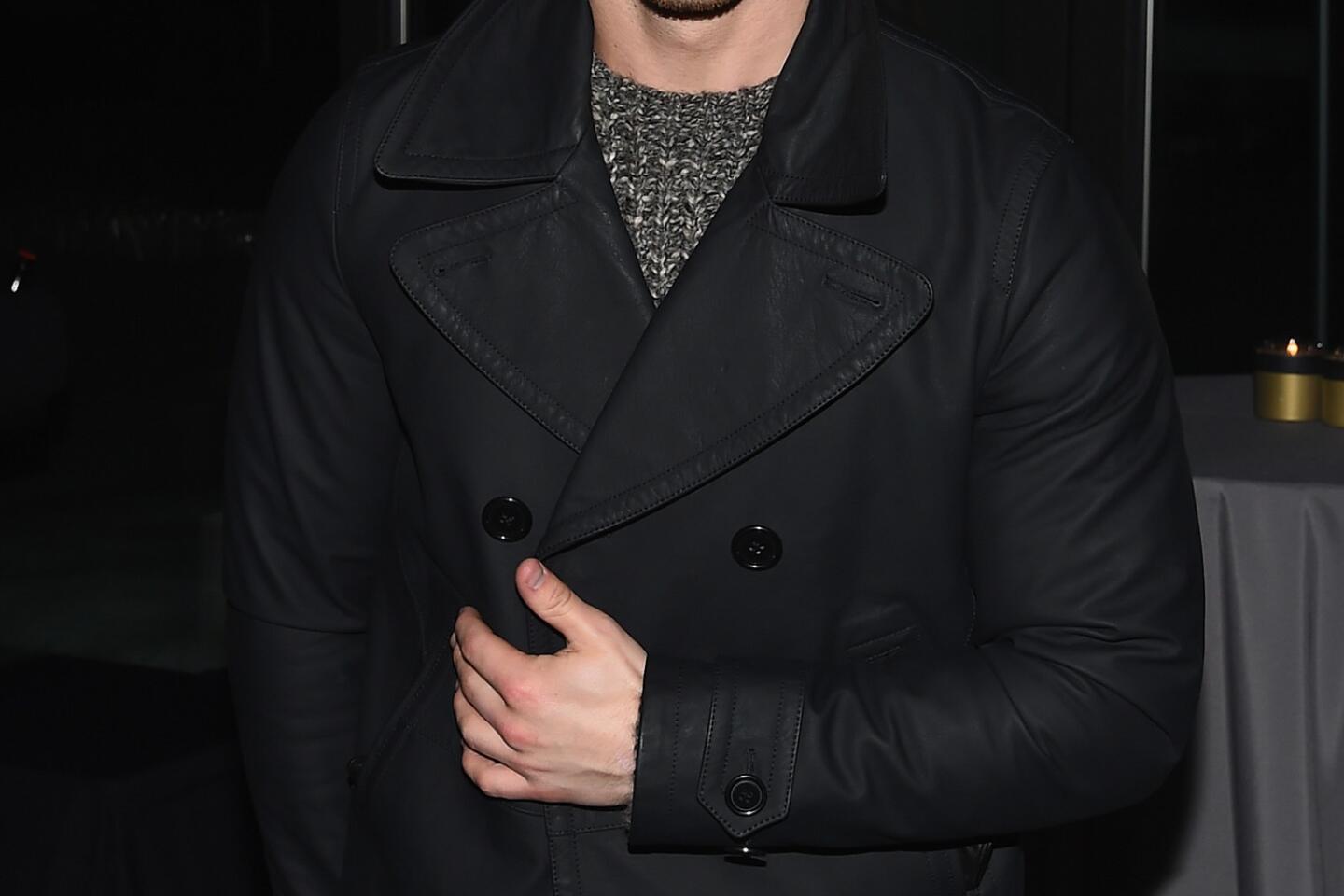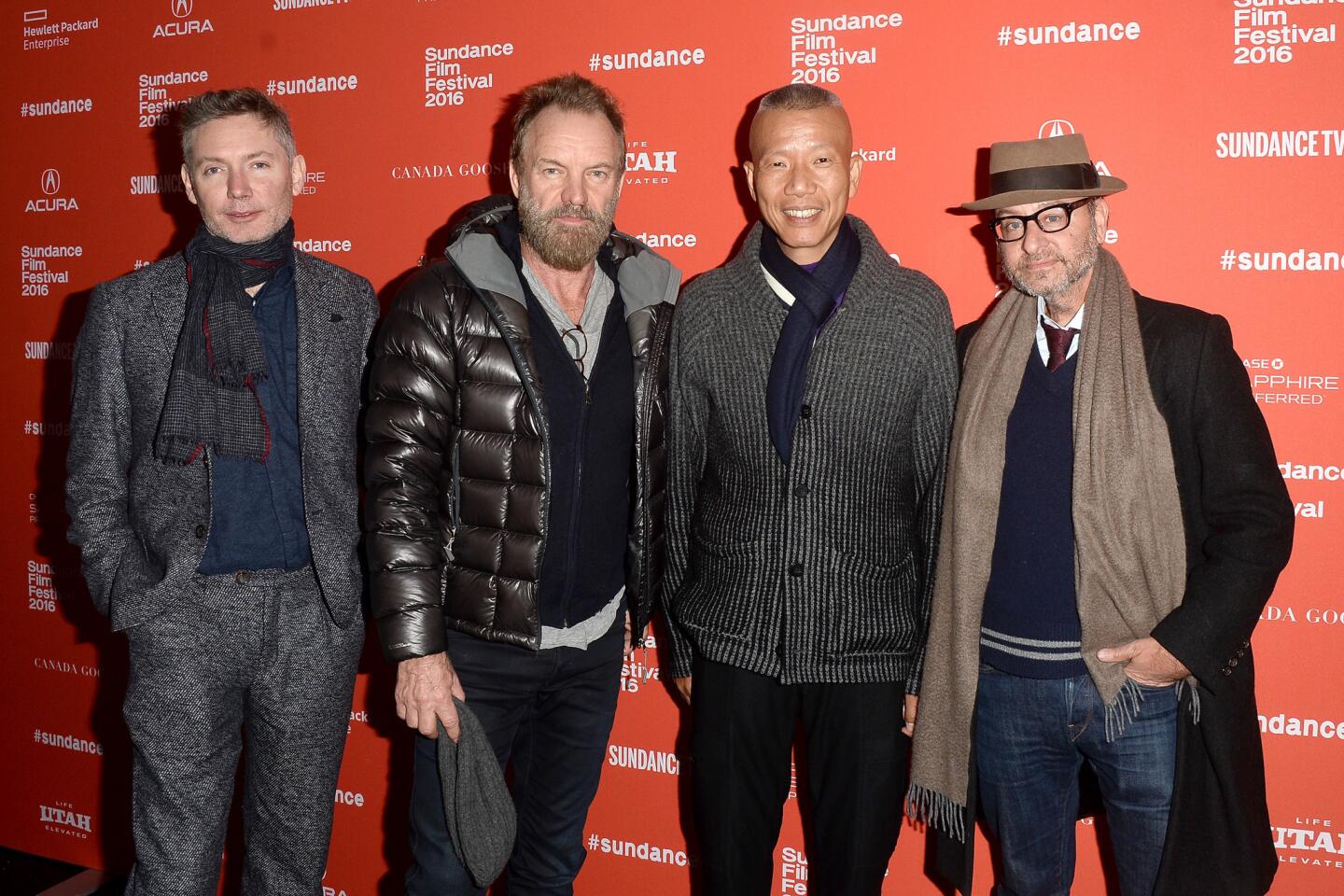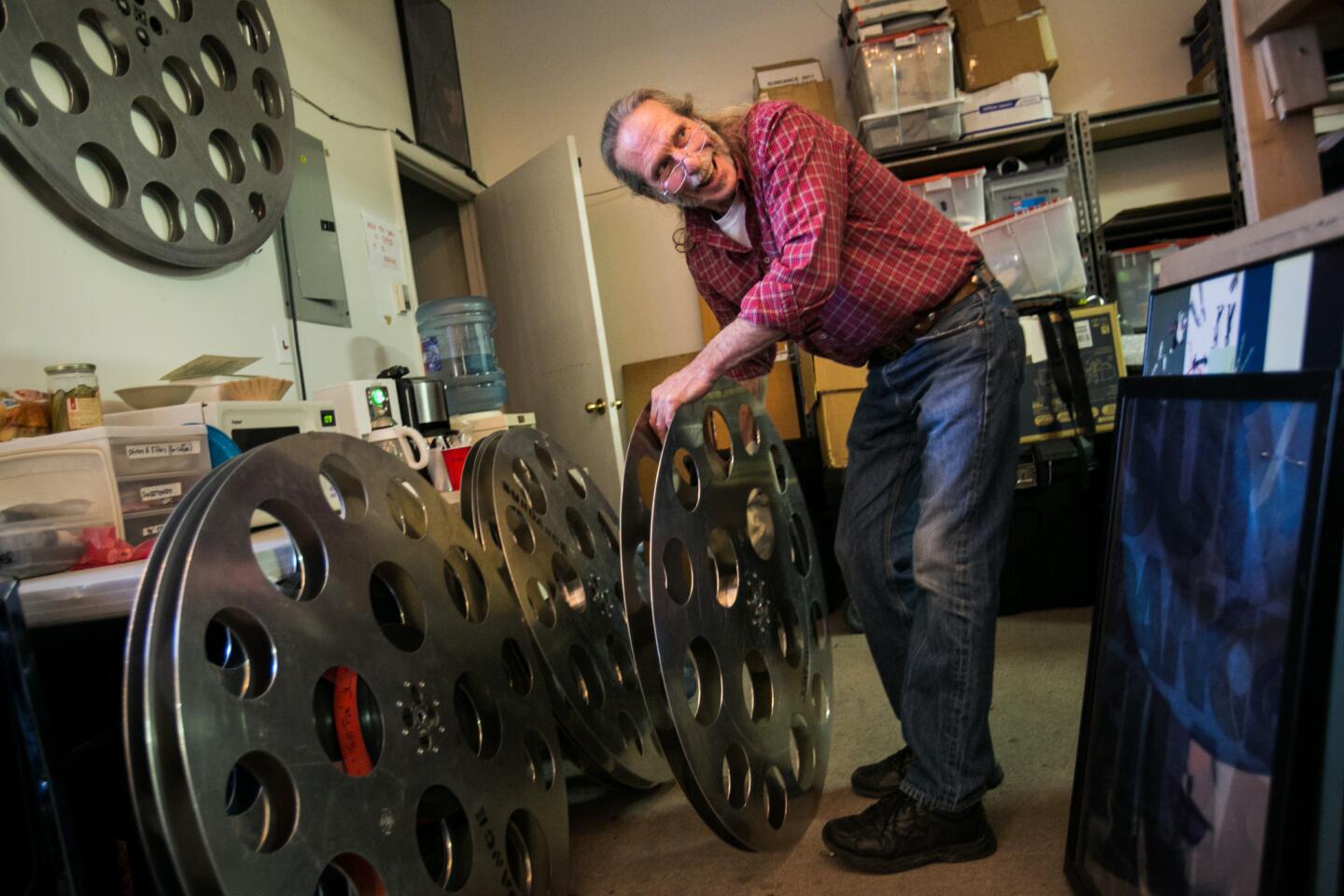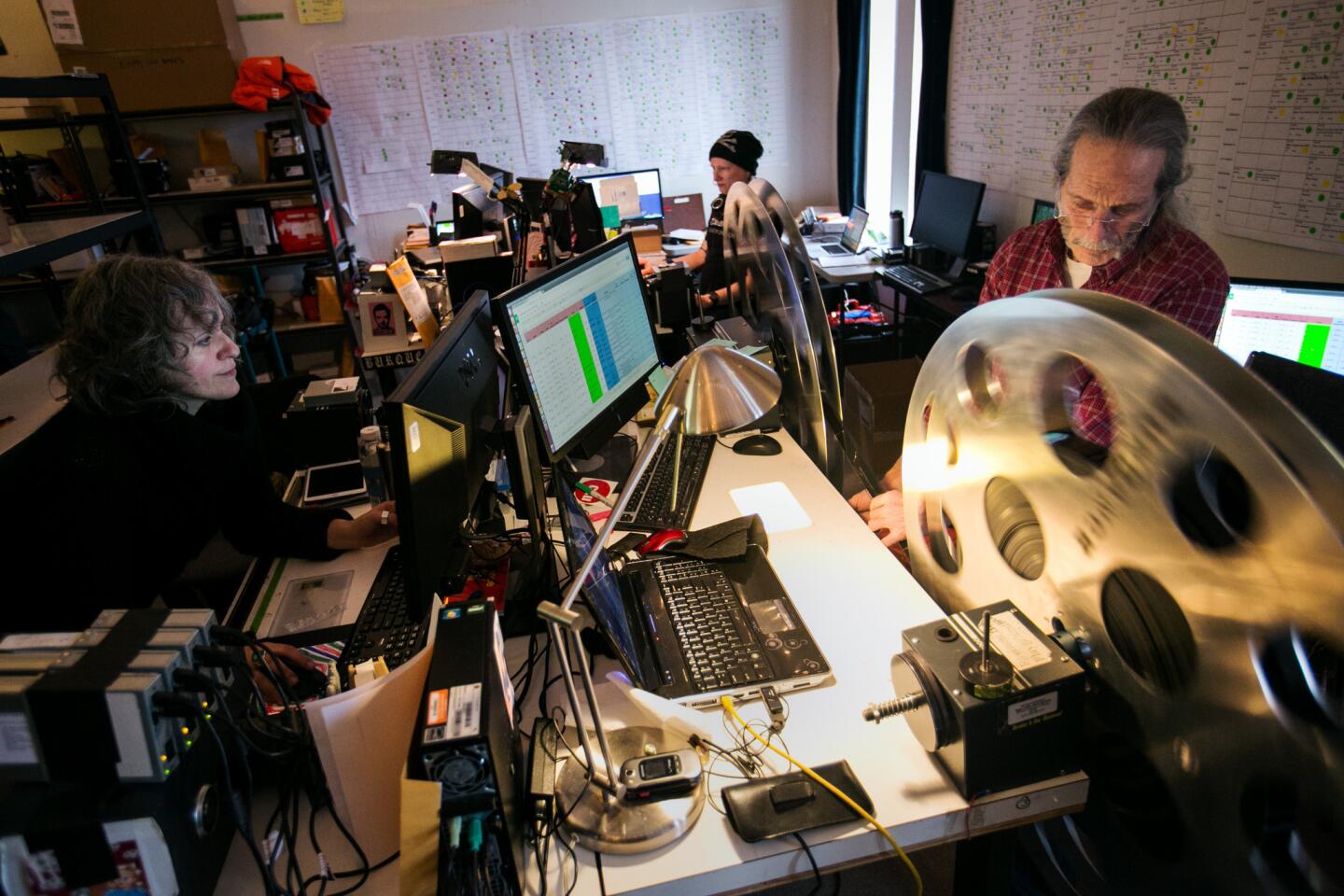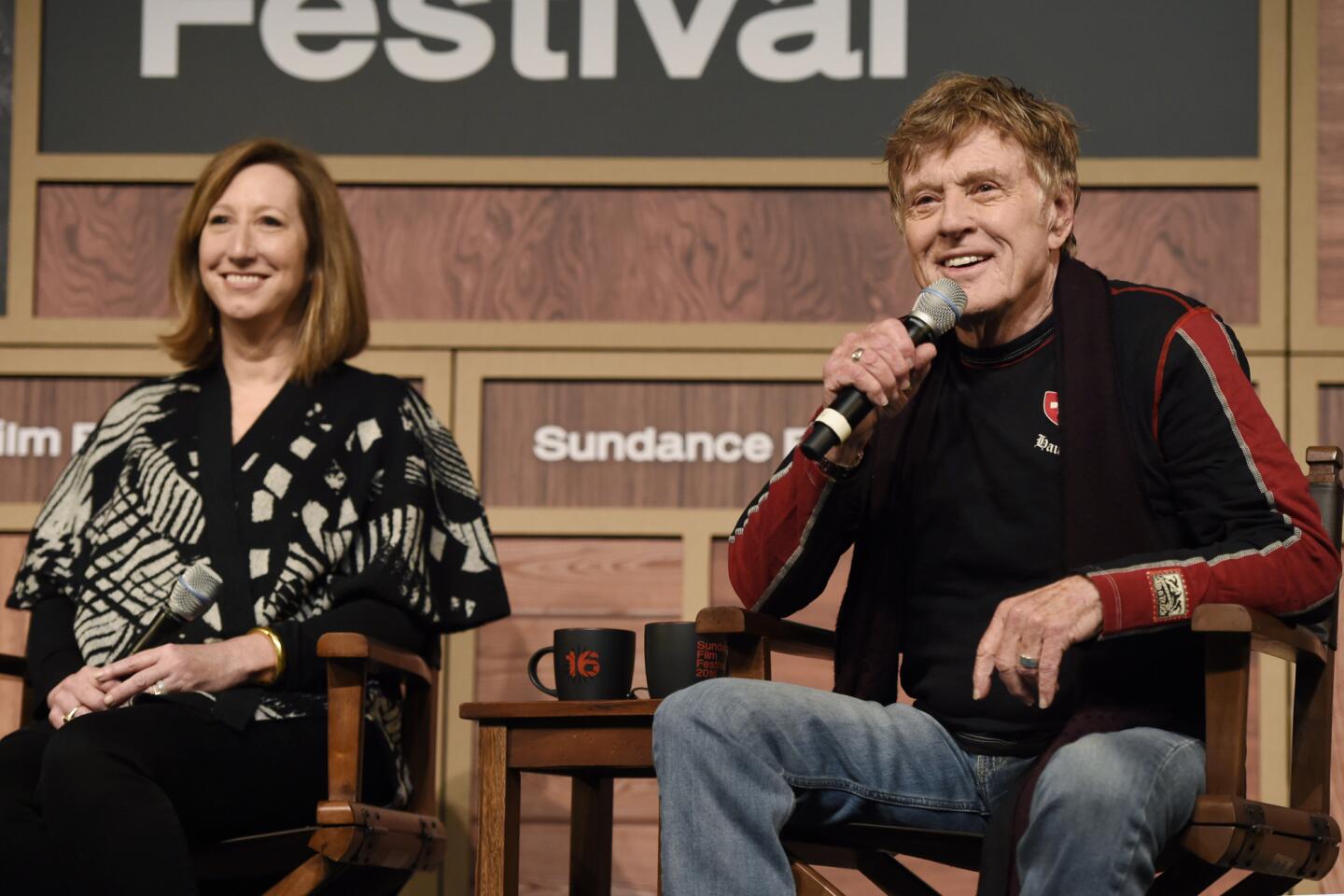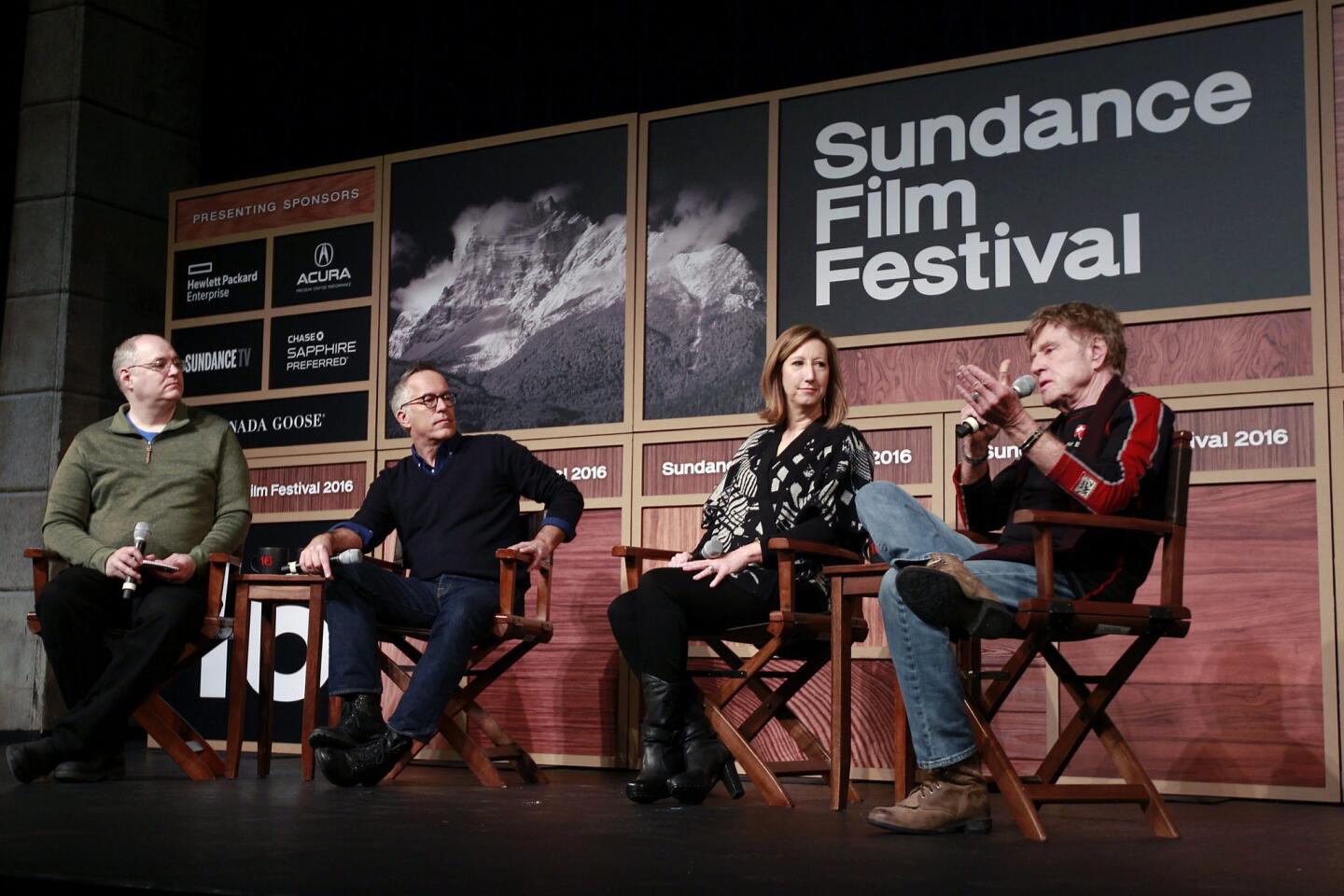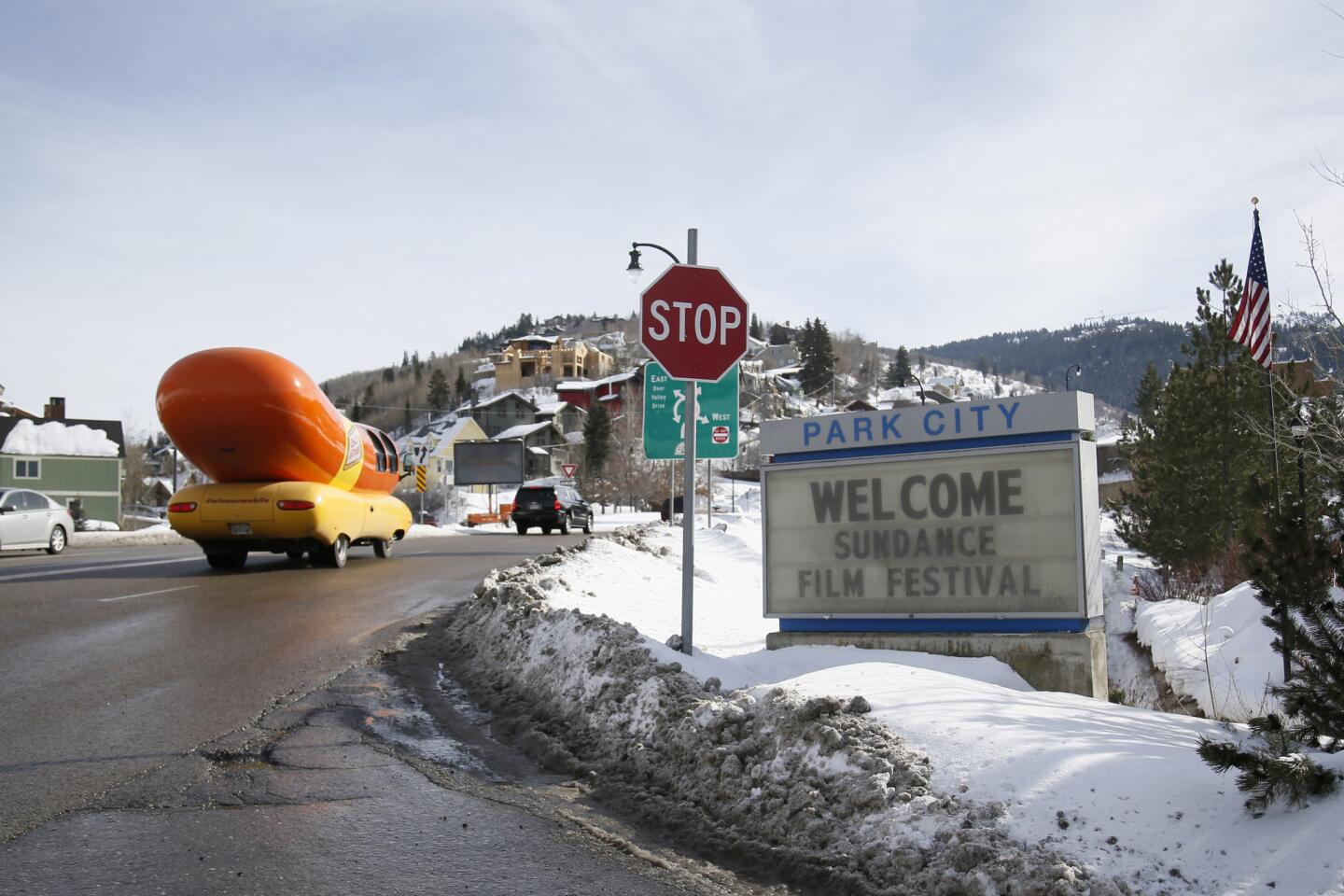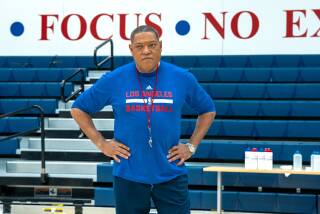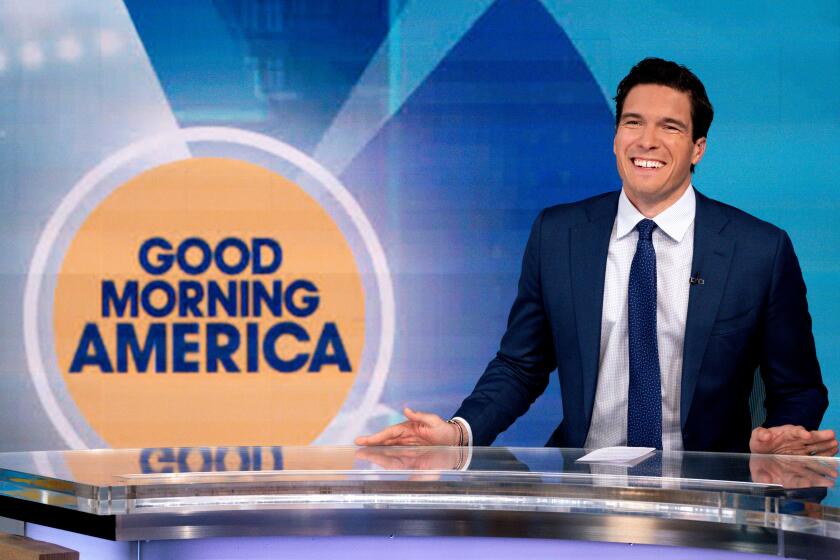The O.J. Simpson affair would seem to have long ago worn out its media welcome. Each news special, documentary and tell-all book has, in the two decades since the so-called trial of the century, increasingly ground us down. As if all that weren’t enough, FX will soon air the fact-based dramatization “American Crime Story: The People v. O.J. Simpson.”
As it turns out, there is another tale left to tell. And it’s a doozy.
FULL COVERAGE: Sundance Film Festival 2016
At the Sundance Film Festival on Friday, ESPN will unveil “O.J.: Made in America.” Directed by the nonfiction filmmaker Ezra Edelman, the documentary series is a sprawling, substantive affair with some startling ideas. Its five episodes will span 7 1/2 hours at the festival (two sessions, with a break in between) and 10 hours when it arrives on commercial television (five nights, likely consecutive, in the spring or early summer).
1/196
Imogen Poots, from the film “Frank and Lola,” poses for a portrait in the L.A. Times photo & video studio at the Sundance Film Festival in Park City, Utah.
(Jay L. Clendenin / Los Angeles Times) 2/196
Imogen Poots poses for a portrait at the Sundance Film Festival.
(Jay L. Clendenin / Los Angeles Times) 3/196
Imogen Poots and director Matthew Ross from the film “Frank and Lola” pose for an L.A. Times photo at the Sundance Film Festival.
(Jay L. Clendenin / Los Angeles Times) 4/196
Louis Black and Karen Bernstein, filmmakers from the film “Richard Linklater: Dream Is Destiny,” in a portrait taken at the L.A. Times studio at the Sundance Film Festival in Park City, Utah.
(Jay L. Clendenin / Los Angeles Times) 5/196
Chris Hegedus, left, Steven Wise and D.A. Pennebaker of the film “Unlocking the Cage” pose for a portrait in the L.A. Times studio at the Sundance Film Festival in Park City, Utah.
(Jay L. Clendenin / Los Angeles Times) 6/196
Chris Hegedus, director of “Unlocking the Cage,” in a portrait at the Sundance Film Festival in Park City, Utah.
(Jay L. Clendenin / Los Angeles Times) 7/196
Jon Shenk, left, subject Daisy Coleman and Bonni Cohen, director from the film “Audrie & Daisy,” poses for a portrait in the L.A. Times photo & video studio at the Sundance Film Festival in Park City, Utah.
(Jay L. Clendenin / Los Angeles Times) 8/196
Vincent Piazza from the film “Intervention.”
(Jay L. Clendenin / Los Angeles Times) 9/196
Daisy Coleman, subject from the film “Audrie & Daisy.”
(Jay L. Clendenin / Los Angeles Times) 10/196
Director Clea DuVall from the film “Intervention.”
(Jay L. Clendenin / Los Angeles Times) 11/196
Michael Shannon from the films “Complete Unknown” and “Frank and Lola.”
(Jay L. Clendenin / Los Angeles Times) 12/196
Melanie Lynskey from the film “Intervention.”
(Jay L. Clendenin / Los Angeles Times) 13/196
Michael Shannon from the film “Complete Unknown.”
(Jay L. Clendenin / Los Angeles Times) 14/196
Ben Schwartz from the film “Intervention.”
(Jay L. Clendenin / Los Angeles Times) 15/196
Michael Shannon from the films “Complete Unknown” and “Frank and Lola.”
(Jay L. Clendenin / Los Angeles Times) 16/196
Jason Ritter, left, Ben Schwartz, Natasha Lyonne, Vincent Piazza, Clea DuVall, director, Melanie Lynskey from the film “Intervention.”
(Jay L. Clendenin / Los Angeles Times) 17/196
Ben Schwartz, left, and Jason Ritter from the film “Intervention.”
(Jay L. Clendenin / Los Angeles Times) 18/196
Jason Ritter from the film “Intervention.”
(Jay L. Clendenin / Los Angeles Times) 19/196
Aaron Brookner, director from the film “Uncle Howard.”
(Jay L. Clendenin / Los Angeles Times) 20/196
Executive producer/narrator Katie Couric, right, and filmmaker Stephanie Soechtig from the film “Under The Gun.”
(Jay L. Clendenin / Los Angeles Times) 21/196
Executive producer/narrator Katie Couric from the film “Under The Gun.”
(Jay L. Clendenin / Los Angeles Times) 22/196
Michael Shannon from the films “Complete Unknown” and “Frank and Lola.”
(Jay L. Clendenin / Los Angeles Times) 23/196
Amandla Stenberg from the film “As You Are.”
(Jay L. Clendenin / Los Angeles Times) 24/196
Michael Chernus, left, Michael Shannon and director Joshua Marston from the film “Complete Unknown.”
(Jay L. Clendenin / Los Angeles Times) 25/196
Michael Chernus, left, Michael Shannon and director Joshua Marston from the film “Complete Unknown.”
(Jay L. Clendenin / Los Angeles Times) 26/196
Danfung Dennis, filmmaker, and Casey Brown, producer from the virtual reality experience “Condition One.”
(Jay L. Clendenin / Los Angeles Times) 27/196
Ciro Guerra, writer-director from the film “Embrace of the Serpent.”
(Jay L. Clendenin / Los Angeles Times) 28/196
Josh Fox, director from the film “How to Let Go of the World and Love All the Things Climate Can’t Change.”
(Jay L. Clendenin / Los Angeles Times) 29/196
Christopher Waldorf, left, Chi Chi Mizrahi,, MikeQ, Twiggy Pucci Garçon, co-writer/subject, Sara Jordeno, writer-director, Gia Marie Love, Kenneth “Symba McQueen” Soler-Rios from the film “Kiki.”
(Jay L. Clendenin / Los Angeles Times) 30/196
Kahane Cooperman, showrunner/executive producer from the film “The New Yorker Presents.”
(Jay L. Clendenin / Los Angeles Times) 31/196
Frankie Shaw, director-writer stars in “Too Legit.”
(Jay L. Clendenin / Los Angeles Times) 32/196
Dawn Porter, director from the film “Trapped.”
(Jay L. Clendenin / Los Angeles Times) 33/196
Keith Fulton, director, Lou Pepe, director, Jennifer Coffield and A.J. Wright from the film “Bad Kids.”
(Jay L. Clendenin / Los Angeles Times) 34/196
Lou Pepe, left, and Keith Fulton, directors from the film “Bad Kids.”
(Jay L. Clendenin / Los Angeles Times) 35/196
Jennifer Coffield and A.J. Wright from the film “Bad Kids.”
(Jay L. Clendenin / Los Angeles Times) 36/196
Michael Villar from the film “Carnage Park.”
(Jay L. Clendenin / Los Angeles Times) 37/196
Mickey Keating, director from the film “Carnage Park.”
(Jay L. Clendenin / Los Angeles Times) 38/196
Rebecca Hall from the film “Christine.”
(Jay L. Clendenin / Los Angeles Times) 39/196
Tahir Jetter, director from the film “How to Tell You’re a Douchebag.”
(Jay L. Clendenin / Los Angeles Times) 40/196
Alex Ross Perry from the movie “Joshy.”
(Jay L. Clendenin / Los Angeles Times) 41/196
Jenny Slate from the movie “Joshy.”
(Jay L. Clendenin / Los Angeles Times) 42/196
Thomas Middleditch from the movie “Joshy.”
(Jay L. Clendenin / Los Angeles Times) 43/196
Nick Kroll, left, Brett Gelman, Thomas Middleditch, Adam Pally, Alex Ross Perry, Jenny Slate, Jeff Baena, director, and Lauren Weedman from the movie “Joshy.”
(Jay L. Clendenin / Los Angeles Times) 44/196
Jeff Baena, director, from the movie “Joshy.”
(Jay L. Clendenin / Los Angeles Times) 45/196
Paulina Garcia from the film “Little Men.”
(Jay L. Clendenin / Los Angeles Times) 46/196
Diego Luna, director of “Mr. Pig.”
(Jay L. Clendenin / Los Angeles Times) 47/196
Maya Rudolph, star of “Mr. Pig”
(Jay L. Clendenin / Los Angeles Times) 48/196
Actors Danny Glover, from left, Maya Rudolph and “Mr. Pig” director Diego Luna.
(Jay L. Clendenin / Los Angeles Times) 49/196
Writer-director Richard Tanne, from left, Tika Sumpter and Parker Sawyers, from “Southside With You.”
(Jay L. Clendenin / Los Angeles Times) 50/196
Tika Sumpter from “Southside With You.”
(Jay L. Clendenin / Los Angeles Times) 51/196
Actor Waleed Zuaiter from “The Free World.”
(Jay L. Clendenin / Los Angeles Times) 52/196
Writer-director Jason Lew, from “The Free World.”
(Jay L. Clendenin / Los Angeles Times) 53/196
Boyd Holbrook, from “The Free World.”
(Jay L. Clendenin / Los Angeles Times) 54/196
Elisabeth Moss, from “The Free World.”
(Jay L. Clendenin / Los Angeles Times) 55/196
Elisabeth Moss, from “The Free World.”
(Jay L. Clendenin / Los Angeles Times) 56/196
Boyd Holbrook, from left, Octavia Spencer, writer-director Jason Lew, Elisabeth Moss and Waleed Zuaiter, from “The Free World.”
(Jay L. Clendenin / Los Angeles Times) 57/196
Octavia Spencer, from “The Free World.”
(Jay L. Clendenin / Los Angeles Times) 58/196
Octavia Spencer, from “The Free World.”
(Jay L. Clendenin / Los Angeles Times) 59/196
Bobby Naderi, from “Under the Shadow.”
(Jay L. Clendenin / Los Angeles Times) 60/196
Bobby Nader, from “Under The Shadow.”
(Jay L. Clendenin / Los Angeles Times) 61/196
Jeff Daniels Phillips, right, and Richard Brake from the film “31.”
(Jay L. Clendenin / Los Angeles Times) 62/196
Ashley Bell, left, Pat Healy, Mickey Keating, Michael Villar and James Landry Hébert from the film “Carnage Park.”
(Jay L. Clendenin / Los Angeles Times) 63/196
Ashley Bell from the film “Carnage Park.”
(Jay L. Clendenin / Los Angeles Times) 64/196
Rebecca Hall from the film “Christine.”
(Jay L. Clendenin / Los Angeles Times) 65/196
Rebecca Hall and director Antonio Campos from the film “Christine.”
(Jay L. Clendenin / Los Angeles Times) 66/196
Dylan Gelula from the film “First Girl I Loved.”
(Jay L. Clendenin / Los Angeles Times) 67/196
Writer-director Kerem Sanga from the film “First Girl I Loved.”
(Jay L. Clendenin / Los Angeles Times) 68/196
Brianna Hildebrand, left, Kerem Sanga, writer-director, Brianna Hildebrand, Dylan Gelula and Mateo Arias from the film “First Girl I Loved.”
(Jay L. Clendenin / Los Angeles Times) 69/196
Brianna Hildebrand, left, Kerem Sanga, writer-director, Brianna Hildebrand, Dylan Gelula and Mateo Arias from the film “First Girl I Loved.”
(Jay L. Clendenin / Los Angeles Times) 70/196
Brianna Hildebrand from the film “First Girl I Loved.”
(Jay L. Clendenin / Los Angeles Times) 71/196
Mateo Arias from the film “First Girl I Loved.”
(Jay L. Clendenin / Los Angeles Times) 72/196
Mateo Arias from the film “First Girl I Loved.”
(Jay L. Clendenin / Los Angeles Times) 73/196
Thomas Middleditch from the movie “Joshy.”
(Jay L. Clendenin / Los Angeles Times) 74/196
Lauren Weedman from the movie “Joshy.”
(Jay L. Clendenin / Los Angeles Times) 75/196
Brett Gelman from the movie “Joshy.”
(Jay L. Clendenin / Los Angeles Times) 76/196
Adam Pally from the movie “Joshy.”
(Jay L. Clendenin / Los Angeles Times) 77/196
Nick Kroll from the movie “Joshy.”
(Jay L. Clendenin / Los Angeles Times) 78/196
Maya Rudolph from the film “Mr. Pig.”
(Jay L. Clendenin / Los Angeles Times) 79/196
Maya Rudolph from the film “Mr. Pig.”
(Jay L. Clendenin / Los Angeles Times) 80/196
Danny Glover from the film “Mr. Pig.”
(Jay L. Clendenin / Los Angeles Times) 81/196
Haerry Kim from the film “Spa Night.”
(Jay L. Clendenin / Los Angeles Times) 82/196
Haerry Kim, left, director Andrew Ahn and Joe Seo from the film “Spa Night.”
(Jay L. Clendenin / Los Angeles Times) 83/196
Director Andrew Ahn from the film “Spa Night.”
(Jay L. Clendenin / Los Angeles Times) 84/196
Joe Seo from the film “Spa Night.”
(Jay L. Clendenin / Los Angeles Times) 85/196
Asif Kapadia, filmmaker from “Ali & Nino,” poses for a portrait in the L.A. Times photo & video studio at the Sundance Film Festival in Park City, Utah.
(Jay L. Clendenin / Los Angeles Times) 86/196
Alysia Reiner, left, and Sarah Megan Thomas from the film “Equity.”
(Jay L. Clendenin / Los Angeles Times) 87/196
Alysia Reiner from the film “Equity.”
(Jay L. Clendenin / Los Angeles Times) 88/196
Sarah Megan Thomas from the film “Equity.”
(Jay L. Clendenin / Los Angeles Times) 89/196
Steven Caple Jr., writer and director for the film “The Land.”
(Jay L. Clendenin / Los Angeles Times) 90/196
Jorge Lendeborg Jr. from the film “The Land.”
(Jay L. Clendenin / Los Angeles Times) 91/196
Moises Arias from the film “The Land.”
(Jay L. Clendenin / Los Angeles Times) 92/196
Rafi Gavron, left, Ezri Walker, Steven Caple Jr., Moises Arias and Jorge Lendeborg Jr. from the film “The Land.”
(Jay L. Clendenin / Los Angeles Times) 93/196
Ezri Walker from the film “The Land.”
(Jay L. Clendenin / Los Angeles Times) 94/196
Moises Arias from the film “The Land.”
(Jay L. Clendenin / Los Angeles Times) 95/196
Yoshiki from the film “We are X.”
(Jay L. Clendenin / Los Angeles Times) 96/196
Stephen Kijak, left, and Yoshiki from the film “We are X.”
(Jay L. Clendenin / Los Angeles Times) 97/196
Co-directors Josh Kriegman and Elyse Steinberg from the film “Weiner.”
(Jay L. Clendenin / Los Angeles Times) 98/196
Penelope Ann Miller from the film “The Birth of A Nation.”
(Jay L. Clendenin / Los Angeles Times) 99/196
Armie Hammer from the film “The Birth of A Nation.”
(Jay L. Clendenin / Los Angeles Times) 100/196
Gabrielle Union from the film “The Birth of A Nation.”
(Jay L. Clendenin / Los Angeles Times) 101/196
Gabrielle Union, left, Aja Naomi King, Armie Hammer, Nate Parker, director, Penelope Ann Miller and Jackie Earle Haley from the film “The Birth of A Nation.”
(Jay L. Clendenin / Los Angeles Times) 102/196
Nate Parker, director from the film “The Birth of A Nation.”
(Jay L. Clendenin / Los Angeles Times) 103/196
Jackie Earle Haley from the film “The Birth of A Nation.”
(Jay L. Clendenin / Los Angeles Times) 104/196
Aja Naomi King from the film “The Birth of A Nation.”
(Jay L. Clendenin / Los Angeles Times) 105/196
Jessie Kahnweiler, star-director-producer, from the film “The Skinny.”
(Jay L. Clendenin / Los Angeles Times) 106/196
Illeana Douglas, star-producer, left, Jill Soloway, executive producer, Rebecca Odes, executive producer, Jessie Kahnweiler, star-director-producer, and Andrea Sperling, producer, from the film “The Skinny.”
(Jay L. Clendenin / Los Angeles Times) 107/196
Jill Soloway, executive producer from the film “The Skinny.”
(Jay L. Clendenin / Los Angeles Times) 108/196
Jessie Kahnweiler from the film “The Skinny.”
(Jay L. Clendenin / Los Angeles Times) 109/196
Rebecca Odes, executive producer from the film “The Skinny.”
(Jay L. Clendenin / Los Angeles Times) 110/196
Illeana Douglas from the film “The Skinny.”
(Jay L. Clendenin / Los Angeles Times) 111/196
Illeana Douglas from the film “The Skinny.”
(Jay L. Clendenin / Los Angeles Times) 112/196
Andrea Sperling, producer from the film “The Skinny.”
(Jay L. Clendenin / Los Angeles Times) 113/196
DeWanda Wise from the film “How to Tell You’re a Douchebag.”
(Jay L. Clendenin / Los Angeles Times) 114/196
Jenna Williams, from the film “How to Tell You’re a Douchebag.”
(Jay L. Clendenin / Los Angeles Times) 115/196
Alano Miller, left, DeWanda Wise, Tahir Jetter, Charles Brice and producers Julius Pryor IV and Marttise Hill from the film “How to Tell You’re a Douchebag.”
(Jay L. Clendenin / Los Angeles Times) 116/196
Jennifer Ehle, from the film “Little Men.”
(Jay L. Clendenin / Los Angeles Times) 117/196
Jennifer Ehle, left, Michael Barbieri, Mauricio Zacharias, Paulina Garcia, Ira Sachs, director, Theo Taplitz and Greg Kinnear, from the film “Little Men.”
(Jay L. Clendenin / Los Angeles Times) 118/196
Greg Kinnear from the film “Little Men.”
(Jay L. Clendenin / Los Angeles Times) 119/196
Michael Barbieri, left, and Theo Taplitz from the film “Little Men.”
(Jay L. Clendenin / Los Angeles Times) 120/196
Director and co-writer Ira Sachs, left, and co-writer Mauricio Zacharias from the film “Little Men.”
(Jay L. Clendenin / Los Angeles Times) 121/196
Ira Sachs, director/co-writer from the film, “Little Men.”
(Jay L. Clendenin / Los Angeles Times) 122/196
Mary Stuart Masterson from the film “As You Are.”
(Jay L. Clendenin / Los Angeles Times) 123/196
Miles Joris-Peyrafitte from the film “As You Are.”
(Jay L. Clendenin / Los Angeles Times) 124/196
Amandla Stenberg from the film “As You Are.”
(Jay L. Clendenin / Los Angeles Times) 125/196
Scott Cohen from the film “As You Are.”
(Jay L. Clendenin / Los Angeles Times) 126/196
Owen Campbell from the film “As You Are.”
(Jay L. Clendenin / Los Angeles Times) 127/196
Parker Sawyers from the film “Southside With You.”
(Jay L. Clendenin / Los Angeles Times) 128/196
Tika Sumpter from the film “Southside With You.”
(Jay L. Clendenin / Los Angeles Times) 129/196
Richard Tanne, writer-director from the film “Southside With You.”
(Jay L. Clendenin / Los Angeles Times) 130/196
Jeff Feuerzig, director from the film “The JT Leroy Story.”
(Jay L. Clendenin / Los Angeles Times) 131/196
Robert Jumper, left, director Tim Sutton, Anna Rose and Maica Armata from the film “Dark Night” in the L.A. Times photo & video studio at the Sundance Film Festival in Park City, Utah.
( Jay L. Clendenin / Los Angeles Times) 132/196
Director Pieter-Jan De Pue from the film “The Land of the Enlightened.”
( Jay L. Clendenin / Los Angeles Times) 133/196
Michal Huszcza, left, Michal Marczak, director, and Kris Baganski from the film “All These Sleepless Nights” get cozy.
( Jay L. Clendenin / Los Angeles Times) 134/196
Abigail Spencer from the series “Rectify.”
( Jay L. Clendenin / Los Angeles Times) 135/196
Director Robert Greene and actress Kate Lyn Sheil from the film “Kate Plays Christine.”
( Jay L. Clendenin / Los Angeles Times) 136/196
Actress Kate Lyn Sheil from the film “Kate Plays Christine.”
( Jay L. Clendenin / Los Angeles Times) 137/196
Executive Producer Jim McNiel from the film “Lo and Behold: Reveries of the Connected World.”
( L. Clendenin / Los Angeles Times) 138/196
Werner Herzog, director of the film “Lo and Behold: Reveries of the Connected World.”
( L. Clendenin / Los Angeles Times) 139/196
Laura Albert from the film “The JT Leroy Story.”
( Jay L. Clendenin / Los Angeles Times) 140/196
Jeff Feuerzig and subject Laura Albert from the film “The JT Leroy Story.”
( Jay L. Clendenin / Los Angeles Times) 141/196
Jason Benjamin, director from the film “Suited.”
( Jay L. Clendenin / Los Angeles Times) 142/196
Jenni Konner, producer, left, Jason Benjamin, director, and Lena Dunham, producer, from the film “Suited.”
( Jay L. Clendenin / Los Angeles Times) 143/196
Jared Harris from the film “Certain Women.”
( Jay L. Clendenin / Los Angeles Times) 144/196
Jared Harris from the film “Certain Women.”
( Jay L. Clendenin / Los Angeles Times) 145/196
Q., director of the film “Brahman Naman.”
( Jay L. Clendenin / Los Angeles Times) 146/196
Q., director of the film “Brahman Naman.”
( Jay L. Clendenin / Los Angeles Times) 147/196
Naman Ramachandran, left, Q., and Shashank Arora with Werner Herzog.
( Jay L. Clendenin / Los Angeles Times) 148/196
Tanmay Dhanania, left, Shashank Arora, Naman Ramachandran, Steve Barron, producer, Q., director, Sid Mallya, screenwriter, from the film “Brahman Naman.”
( Jay L. Clendenin / Los Angeles Times) 149/196
Ralph Rodriguez, left, Brian “Sene” Marc, Morgan Saylor, Adrian Martinez, India Menuez, Justin Bartha, Elizabeth Wood, filmmaker, and Anthony Ramos from the film “White Girl.”
( Jay L. Clendenin / Los Angeles Times) 150/196
Brian “Sene” Marc from the film “White Girl.”
( Jay L. Clendenin / Los Angeles Times) 151/196
Morgan Saylor from the film “White Girl.”
( Jay L. Clendenin / Los Angeles Times) 152/196
Anthony Ramos from the film “White Girl.”
( Jay L. Clendenin / Los Angeles Times) 153/196
Adrian Martinez from the film “White Girl.”
( Jay L. Clendenin / Los Angeles Times) 154/196
India Menuez from the film “White Girl.”
( Jay L. Clendenin / Los Angeles Times) 155/196
Justin Bartha from the film “White Girl.”
( Jay L. Clendenin / Los Angeles Times) 156/196
Elizabeth Wood from the film “White Girl.”
( Jay L. Clendenin / Los Angeles Times) 157/196
Gavin Free for Lazer Team levitates.
( Jay L. Clendenin / Los Angeles Times) 158/196
Anne Fontaine, director from the film “Agnus Dei.”
(Jay L. Clendenin / Los Angeles Times) 159/196
Chloe Sevigny, left, Danny Perez and Natasha Lyonne from the film “Antibirth.”
( Jay L. Clendenin / Los Angeles Times) 160/196
Chloe Sevigny from the film “Antibirth.”
(Jay L. Clendenin / Los Angeles Times) 161/196
Chloe Sevigny from the film “Antibirth.”
(Jay L. Clendenin / Los Angeles Times) 162/196
Natasha Lyonne from the film “Antibirth.”
( Jay L. Clendenin / Los Angeles Times) 163/196
Rachel Grady, co-director from the film “Norman Lear: Just Another Version of You.”
( Jay L. Clendenin / Los Angeles Times) 164/196
Heidi Ewing, co-director, Norman Lear, Rachel Grady, co-director, from the film “Norman Lear: Just Another Version of You.”
(Jay L. Clendenin / Los Angeles Times) 165/196
Norman Lear from the film “Norman Lear: Just Another Version of You.”
(Jay L. Clendenin / Los Angeles Times) 166/196
Heidi Ewing, co-director from the film “Norman Lear: Just Another Version of You.”
(Jay L. Clendenin / Los Angeles Times) 167/196
Heidi Ewing, co-director from the film “Norman Lear: Just Another Version of You.”
(Jay L. Clendenin / Los Angeles Times) 168/196
Kenneth Lonergan, director from the film “Manchester by the Sea.”
(Jay L. Clendenin / Los Angeles Times) 169/196
Lucas Hedges, left, Kenneth Lonergan, director, and Casey Affleck from the film “Manchester by the Sea.”
(Jay L. Clendenin / Los Angeles Times) 170/196
Lucas Hedges, left, and Casey Affleck from the film “Manchester by the Sea.”
(Jay L. Clendenin / Los Angeles Times) 171/196
Lucas Hedges, left, and Casey Affleck from the film “Manchester by the Sea.”
( Jay L. Clendenin / Los Angeles Times) 172/196
Lucas Hedges from the film “Manchester by the Sea.”
( Jay L. Clendenin / Los Angeles Times) 173/196
Casey Affleck from the film “Manchester by the Sea.”
( Jay L. Clendenin / Los Angeles Times) 174/196
Casey Affleck from the film “Manchester by the Sea.”
( Jay L. Clendenin / Los Angeles Times) 175/196
Writer-director Sian Heder from the film “Talullah.”
( Jay L. Clendenin / Los Angeles Times) 176/196
John Benjamin Hickey, left, Allison Janney, Ellen Page, Sian Heder, writer-director, and Tammy Blanchard from the film “Talullah.”
( Jay L. Clendenin / Los Angeles Times) 177/196
Ellen Page from the film “Talullah.”
(Jay L. Clendenin / Los Angeles Times) 178/196
Director Roger Ross Williams from the film “Life Animated.”
(Jay L. Clendenin / Los Angeles Times) 179/196
Allison Janney from the film “Talullah.”
(Jay L. Clendenin / Los Angeles Times) 180/196
John Benjamin Hickey from the film “Talullah.”
( Jay L. Clendenin / Los Angeles Times) 181/196
Tammy Blanchard from the film “Talullah.”
( Jay L. Clendenin / Los Angeles Times) 182/196
Brooklyn Decker from the film “Lovesong.”
(Jay L. Clendenin / Los Angeles Times) 183/196
Jena Malone from the film “Lovesong.”
( Jay L. Clendenin / Los Angeles Times) 184/196
Jena Malone, left, and Riley Keough from the film “Lovesong.”
(Jay L. Clendenin / Los Angeles Times) 185/196
Director Roger Ross Williams from the film “Life Animated.”
(Jay L. Clendenin / Los Angeles Times) 186/196
Jonathan Freeman, left, Owen Suskind, Gilbert Gottfried and director Roger Ross Williams from the film “Life Animated.”
( Jay L. Clendenin / Los Angeles Times) 187/196
John Krasinski from the film, “The Hollars,” poses for a portrait in the L.A. Times photo & video studio at the Sundance Film Festival, in Park City, Utah. (Jay L. Clendenin / Los Angeles Times)
188/196
John Krasinski, left, Charlie Day, Margo Martindale, Sharlto Copley and Josh Groban from the film “The Hollars.”
( Jay L. Clendenin / Los Angeles Times) 189/196
Josh Groban from the film, “The Hollars,” in the L.A. Times photo & video studio at the Sundance Film Festival, in Park City, Utah. ( Jay L. Clendenin / Los Angeles Times)
190/196
Sharlto Copley from the film, “The Hollars,” in the L.A. Times photo & video studio at the Sundance Film Festival, in Park City, Utah. (Jay L. Clendenin / Los Angeles Times)
191/196
Margo Martindale, from the film, “The Hollars,” in the L.A. Times photo & video studio at the Sundance Film Festival, in Park City, Utah. ( Jay L. Clendenin / Los Angeles Times)
192/196
John Krasinski from the film, “The Hollars,” poses for a portrait in the L.A. Times photo & video studio at the Sundance Film Festival, in Park City, Utah. (Jay L. Clendenin / Los Angeles Times)
193/196
David Wheeler, left, Nicole Hockley, Mark Barden from the film “Newtown.”
(Jay L. Clendenin / Los Angeles Times) 194/196
Kim Snyder, left, director, and Maria Cuomo Cole, producer, from the film “Newtown.”
(Jay L. Clendenin / Los Angeles Times) 195/196
Nicole Hockley, David Wheeler, Maria Cuomo Cole, producer, Kim Snyder, director, and Mark Barden from the film “Newtown.”
(Jay L. Clendenin / Los Angeles Times) 196/196
Todd Solondz, director of the film “Wiener-Dog,” poses for a portrait in the L.A. Times photo & video studio at the Sundance Film Festival in Park City, Utah.
( Jay L. Clendenin / Los Angeles Times) Over that running time, “Made in America” covers a lot more than the murder of Nicole Brown and Ronald Goldman and the sociological Rorschach test that sprung up in its wake. The miniseries, which The Times was shown in advance of the festival, uses the life of the former USC star as a means of investigating race in America--a Trojan Horse, if you will.
Edelman’s tale is something of a double helix, telling the origin story of a complex crossover celebrity while chronicling black-white tension in Los Angeles, from Watts to Rodney King. The trial is important, but only as the convergence of those strands.
“What I want people to think about is that there’s more to think about,” Edelman said during an interview in New York this week. “This isn’t a story that started in June 1994 and ended in the fall of 1995. It started in the 1960s and even before that. And it continues today.”
At a moment when crime-themed docu-series have taken hold on television, and when the issue of double standards of black justice crop up in areas as different as police behavior and the Oscars, “Made in America” is a timely exercise. It is also a bold one, taking one of the best-known stories of our time and seeking to reshape the context in which we place it. Edelman’s series could change how people view the O.J. trial — in part because they’ll stop viewing it as being much about a trial.
That is evident early on: Apart from an opening scene showing O.J. talking to officers in his current Nevada prison (in archival footage supplied by the prison), the first few hours of the miniseries don’t deal with many of the star’s legal troubles at all.
SIGN UP for the free Indie Focus movies newsletter >>
Long before that fateful June night, Simpson is depicted as a unique post-Watts figure who broke a glass ceiling when he achieved mainstream celebrity status, via the famous (and, given the eventual development of black athlete megastars, gamechanging) Hertz airport commercial of the 1970s. But he did so seemingly apart from every major civil rights flashpoint of the era. We watch a charismatic football prodigy finding his way in college and eventually with the NFL’s Buffalo Bills. Yet even as Watts and other crucibles were happening, he was uttering his now-infamous line “I’m not black; I’m O.J.,” according to a childhood friend, setting himself apart from the very cause his fame was helping to further.
The third and fourth episodes do tangle with the legal proceedings, and it is with this that Edelman is on well-trod ground. But he manages to find plenty of new terrain here too, weaving the chase into a thriller whose inevitable conclusion makes it no less taut. (He is helped in this by new perspectives that give the events a panoramic sweep: a SWAT team chief racing to beat Simpson to his home; a helicopter traffic reporter who first spotted the Bronco.) The fifth chapter provides a kind of surreal epilogue, focusing on Simpson’s bizarre and finally doomed post-trial life.
1/39
The festival store on Main Street in Park City, Utah, during the 2016 Sundance Film Festival.
(Dave Mangels / Getty Images) 2/39
Robert Redford, founder and president of the Sundance Institute, speaks at the premiere of “Norman Lear: Just Another Version of You.”
(Danny Moloshok/Invision/AP) 3/39
Director Nate Parker, left, actors Armie Hammer, Penelope Ann Miller and Chike Okonkwo discuss “The Birth of a Nation” at the Deadline.com panel.
(Neilson Barnard / Getty Images for Samsung) 4/39
Producer Laura Rister, left, actor Boyd Holbrook, writer-director Jason Lew, actors the Intervention Happy Hour at the Samsung Studio.
(Neilson Barnard / Getty Images for Samsung) 5/39
Music composer Jay Wadley, left, and general manager of St. Regis Deer Valley Edward Shapard attend Rand Luxury Hosts cocktail reception.
(Vivien Killilea / Getty Images for Rand Luxury) 6/39
Actress Chloe Sevigny, left, and Glamour Editor in Chief Cindi Leive attend Glamour’s Women Rewriting Hollywood Lunch.
(Jason Merritt / Getty Images for Glamour) 7/39
Director Jacqueline Lyanga attends Glamour’s Women Rewriting Hollywood Lunch.
(Jason Merritt / Getty Images for Glamour) 8/39
Director of Sundance John Cooper, left, director Anne Fontaine and producer Eric Altmayer attend the “Agnus Dei” premiere.
(Nicholas Hunt / Getty Images for Sundance Film Festival) 9/39
Actress Kristen Stewart, left, and director and writer Kelly Reichardt at the premiere of “Certain Women.”
(Danny Moloshok / Invision) 10/39
“Lovesong” cast members Brooklyn Decker, from left, Jena Malone and Riley Keough pose alongside director So Yong Kim and her daughter Sky Ok Gray at the premiere of the film.
(Chris Pizzello / Invision ) 11/39
Actresses Jenny Slate, left, and Zoe Kazan pose at the premiere of “Joshy.”
(Arthur Mola / Invision ) 12/39
Director Jeff Baena and actress Aubrey Plaza at the premiere of “Joshy.”
(Arthur Mola / Invision ) 13/39
Kevin Smith, left, director of “Yoga Hosers,” and cast member Jason Mewes.
(Chris Pizzello / Invision ) 14/39
Actors Ralph Garman, from left, Jason Mewes, Austin Butler and Justin Long at the “Yoga Hosers” cast party.
(Evan Agostini / Invision ) 15/39
Director Kevin Smith with his daughter, actress Harley Quinn Smith, at the “Yoga Hosers” cast party.
(Evan Agostini / Invision ) 16/39
Recording artist Questlove, left, and director Spike Lee at the “Michael Jackson’s Journey From Motown to Off the Wall” premiere.
(Valerie Macon / AFP/Getty Images) 17/39
Bryce Dallas Howard, director of the short film “Solemates,” poses before a screening of the film.
(Chris Pizzello / Invision/Associated Press) 18/39
Actor John Krasinski walks along Park City’s Main Street during the Sundance Film Festival.
(Valerie Macon / AFP/Getty Images) 19/39
Actor Thomas Middleditch walks along Main Street during the Sundance Film Festival.
(Valerie Macon / AFP/Getty Images) 20/39
Actress Lorraine Toussaint on Park City’s Main Street during the Sundance Film Festival.
(Valerie Macon / AFP/Getty Images) 21/39
Anderson Cooper on Park City’s Main Street during the Sundance Film Festival.
(Valerie Macon / AFP/Getty Images) 22/39
Actor Matt Damon takes part in a panel discussion on the global water crisis during the 2016 Sundance Film Festival.
(Chris Pizzello / Invision/Associated Press) 23/39
Sting performs at the 2016 Sundance Film Festival.
(Arthur Mola / Invision/Associated Press) 24/39
Actresses Kate Beckinsale, left, and Chloe Sevigny at the premiere of “Love & Friendship.”
(Danny Moloshok / Invision/Associated Press) 25/39
Singer John Legend, executive producer of “Southside With You,” poses at the premiere of the film.
(Chris Pizzello / Invision/Associated Press) 26/39
“Southside With You” writer and director Richard Tanne, left, with cast members Tika Sumpter and Parker Sawyers at the film’s premiere at the Sundance Film Festival.
(Chris Pizzello / Invision/Associated Press) 27/39
Matthew Gray Gubler poses through a cardboard frame at the “Trash Fire” premiere.
(Chris Pizzello / Invision/Associated Press) 28/39
Actress Maude Apatow, right, and her father, Judd Apatow, at the premiere of “Other People” at the Sundance Film Festival.
(Danny Moloshok / Invision/Associated Press) 29/39
Casey Affleck, left, and Jon Hamm attend An Artist at the Table, a cocktail and dinner program benefit, in Kamas, Utah.
(Nicholas Hunt / Getty Images for Sundance Film Festival) 30/39
Singer-songwriter Nick Jonas attends An Artist at the Table in Kamas, Utah.
(Nicholas Hunt / Getty Images for Sundance Film Festival) 31/39
Filmmaker Kevin Macdonald, left, musican Sting, artist Cai Guo-Qiang and actor Fisher Stevens attend the “Sky Ladder: The Art of Cai Guo-Qiang” premiere at the Sundance Film Festival.
(Matt Winkelmeyer / Getty Images for Sundance Film Festival) 32/39
Producer Sam Bisbee, left, actress Maude Apatow, actor J.J. Totah, actress Madisen Beaty, actor Jesse Plemons, actress Molly Shannon, director Chris Kelly, actor Bradley Whitford, actor John Early, producer Naomi Scott and actor Adam Scott attend the “Other People” premiere.
(Jason Merritt / Getty Images for Sundance Film Festival) 33/39
Snowy conditions on Park City’s Main Street.
(Marcus Yam / Los Angeles Times) 34/39
Bill Hill, Sundance projection and inspection manager, wipes down film reels at the festival’s print traffic room.
(Marcus Yam / Los Angeles Times) 35/39
Adrianne Jorge, left, prepares films in digital formats as Bill Hill, right, Sundance projection and inspection manager, works on a film reel at the print traffic room for the Sundance Film Festival.
(Marcus Yam / Los Angeles Times) 36/39
Moderator Sean Means; Robert Redford, president and founder of the Sundance Institute; executive director Keri Putnam; and director of Sundance Film Festival John Cooper
(Valerie Macon / AFP/Getty Images) 37/39
Robert Redford, president and founder of the Sundance Institute, and Keri Putnam, executive director of the Sundance Institute, take part in the 2016 Sundance Film Festival opening day press conference.
(Chris Pizzello / Invision / Associated Press) 38/39
Salt Lake Tribune film critic Sean Means, festival director John Cooper, Sundance Institute executive director Keri Putnam and actor and festival founder Robert Redford attend a press conference to open the 2016 Sundance Film Festival.
(George Frey / EPA) 39/39
An Oscar Mayer Wienermobile passes a sign welcoming visitors during the 2016 Sundance Film Festival.
(Danny Moloshok / Invision / Associated Press) Yet it is the subject of race, and how Simpson both experienced and refracted it, that is the documentary’s central narrative. Not the question of innocence — Edelman presents the evidence in a way that makes pretty clear he’s concluded Simpson committed the murders — but the significance of exoneration. “Made in America” offers the provocative implication that although the bulk of evidence points to Simpson’s guilt, the tide of black history and injustice may argue for his acquittal.
“To me a lot of this becomes about emotion versus intellect,” Edelman said when asked about this duality. “And the intellect is easy to glom on to because it’s about the evidence. But how do you convey emotion? How do you convey the depth of historical experience? That’s what I was trying to do.”
Edelman is ideally suited to examine, and bridge, this divide. The son of a black activist mother and white professor father, he said his own identity has been informed by multiple racial perspectives. At 41, he’s also old enough to have experienced the trial as an adult but not so old his views about it were cast in concrete.
“Made in America” was first thought up by ESPN as a five-hour look into Simpson, a kind of supersized installment of its acclaimed 30 for 30 series. Network executives came to Edelman, who was well-credentialed to explore the subject, having previously investigated competing racial perspectives in sports (“Magic & Bird: A Courtship of Rivals”) and the intersection of athletes, money and pop culture (the stellar 2014 film “Requiem for the Big East”). Eventually it mushroomed into something larger.
Connor Schell, the senior vice president and executive producer at ESPN who oversaw the project, says he thinks even without a specific peg — and even after the FX series, which debuts Feb. 2 — there will be plenty of reasons for people to tune in to ESPN’s effort.
“This story is a vehicle to speak about race and celebrity, two of the dominant themes of the last 50 years.” Though he acknowledged that finding five consecutive nights clear of live programming will be difficult, he said it wasn’t airtime that gave the network pause. “Our concern was never, ‘Is this going to be so long that people won’t watch?’ It was, ‘Is this going to be good enough to merit the length?’ And I think with all it gets into, it is.”
Indeed, for those looking for fresh details, there is plenty to sate. Edelman conducted interviews with 72 people and features 66 of them — experts, activists, friends, trial participants — peppering the series with personal insight. There is the tale from a childhood pal about how Simpson once tried to steal his own best friend’s girlfriend, an anecdote that will have more sinister echoes when he rails again his estranged wife’s new lovers years later.
There are other contradictions. Simpson as portrayed here often seems likable — indeed, if one knew nothing of later events and just watched him in action in the 1960’s and 1970’s they’d fall hard for his selflessness and outgoing charisma — but can also turn radically on a dime. He switches on the charm for one of Brown’s romantic partners, for instance, just a moment after mortally threatening him.
There are also touching accounts from those who knew the victims, particularly Robin Greer, an actress and Brown’s longtime friend, who offers key insight into Brown’s thinking, which combines potently with images of her sad fate.
And the piece hints are more Freudian overtones when it suggests Simpson might have harbored shame about his gay father, though Edelman does not spend a lot of time on these more tabloid-y details.
The trial features its share of revealing personalities too. Simpson, prosecutor Christopher Darden and Judge Lance Ito declined to be interviewed, but there is much material from prosecutor Marcia Clark, LAPD Det. Mark Fuhrman and Dist. Atty. Gil Garcetti for the prosecution (the last one giving a rare interview), as well as Barry Scheck and Carl Douglas for the defense.
The Fuhrman section becomes a mini-portrait in its own right, and viewers will be left to argue over whether he is a decent man exploited by cutthroat lawyers or a flawed racist with a talent for self-justification.
Douglas, meanwhile, is one of the most colorful subjects, and is particularly good at exploring the idea of the Simpson trial as theater. Of the decision before a jury visit to Simpson’s house to adorn the walls with photos of black people whom Simpson rarely spent time with, so as to sway black members of the panel, Douglas quipped, “If we had a Latin jury, we would have had a picture of him in a sombrero. There would have been a mariachi band out front.”
The lawyer’s point is humorous, but it captures a key irony: After years seeking to distance himself from his race, Simpson was a very unlikely repository for its hope.
The series reaches the heights of sociological complexity when Edelman asks the civil rights activist Danny Bakewell — along with Walter Mosley, one of the more persuasive race commentators in the series — whether this means Bakewell used Simpson “for your cause.”
No, Bakewell replies, “for our cause.”
Edelman ultimately takes a dim view of how the Simpson saga resolved itself.
“O.J. is a sad, depressing American story, and a tragedy,” he said in the interview. “But the tragedy is not that this beautiful, charismatic person ended up where he is today. It’s that the people who invested in him had so little hope that this was something so important to celebrate — that they were left to fight over crumbs.”
The series is an illumination of both sides of the debate about the acquittal— or, more plainly put, of black and white views of the case. Edelman offers hard evidence to counter those convinced of Simpson’s innocence, but at the same time suggests solid reasons why those certain of guilt might question their desire for a conviction.
In other words, though it features a very compelling figure, the most fascinating character in “O.J.: Made in America” isn’t the former football star: it’s us.
MORE SUNDANCE:
Six must-see films scheduled to screen at Sundance
A film festival tackles gun violence, from many angles
How the festival helped ‘Holy Hell’ filmmaker find his way back from a cult



